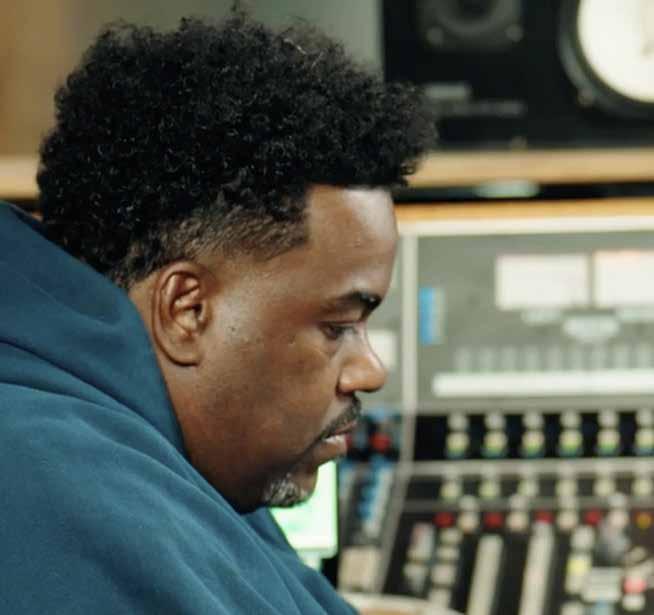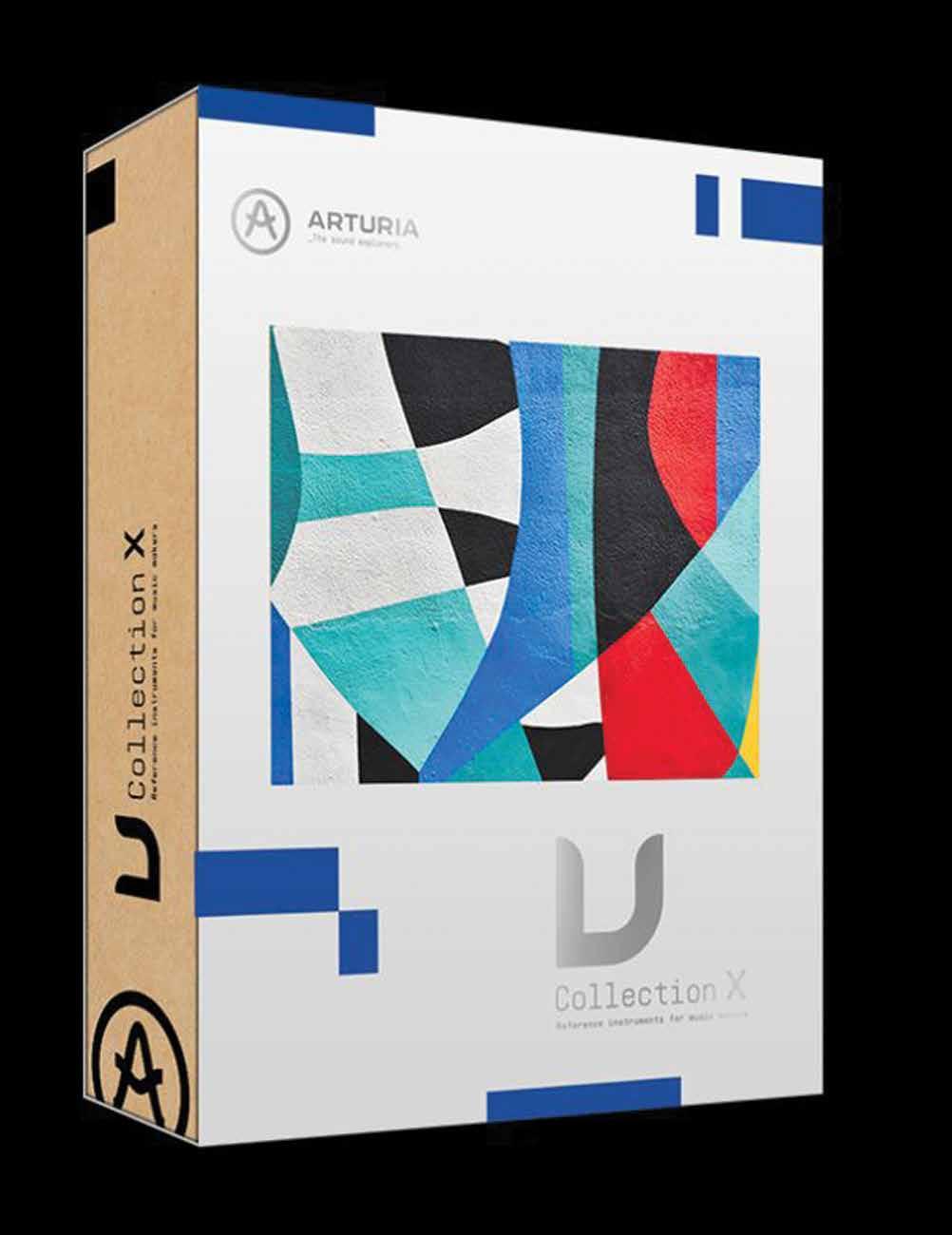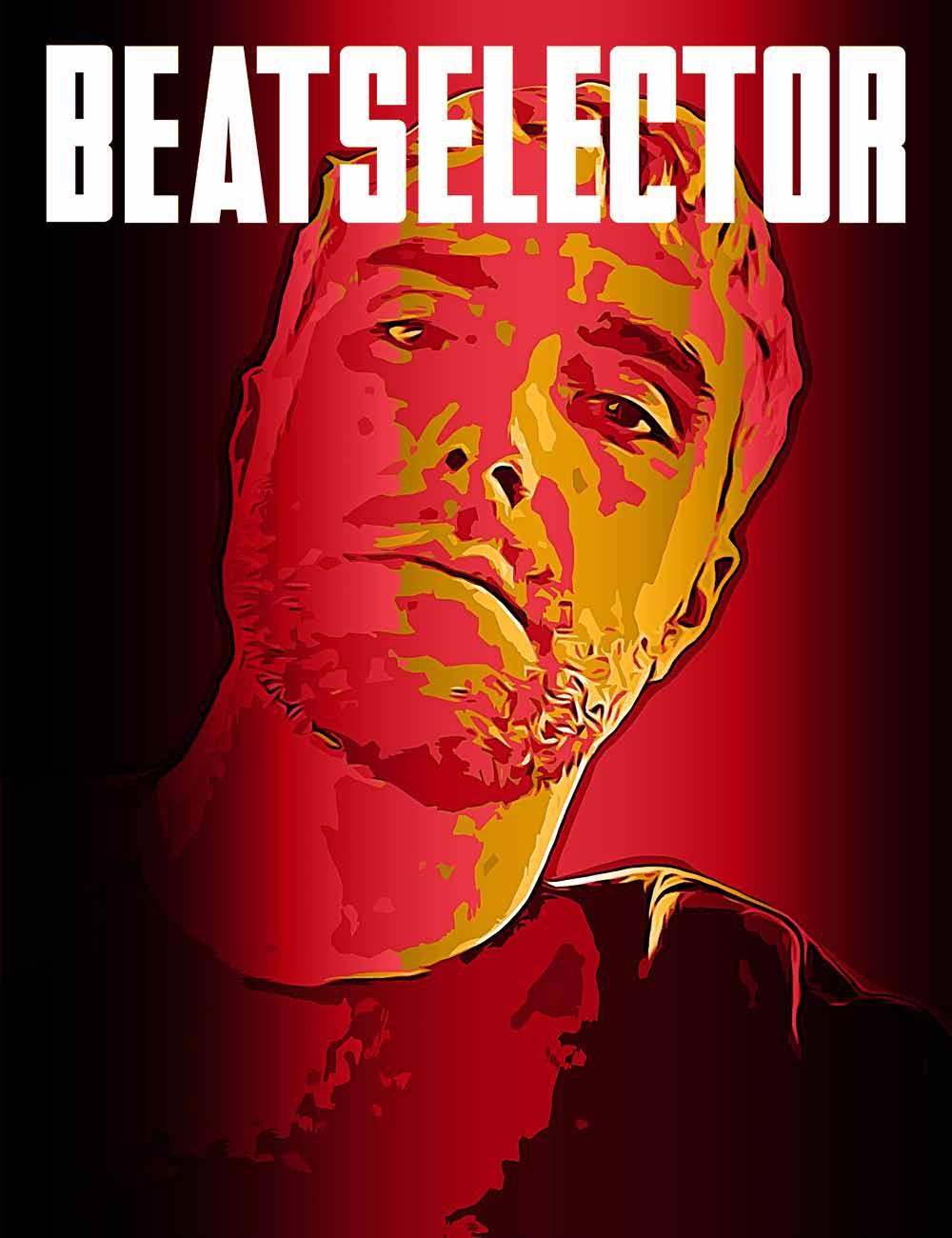










PG. 08
MUSIC INDUSTRY NEWS
Daft Punk, Clio Awards, NAMM, TikTok, Coco Jones, The Grammy Hall of Fame Gala, Jon Bon Jovi, Usher, John Mayer and more.
PG. 20
SPECIAL MOMENTS IN TIME AT THE 2024 GRAMMY AWARDS
A time capsule of our favorite moments from the 66th Edition of the Grammy Awards Show. Curated by Shon, Murdock, Courtney Johnson and Matthew Washington.
PG. 38
1974: STEVIE WONDER'S YEAR OF ARTISTIC INVINCIBILITY
Guest contributor John Murph journeys back to 1974 with a historical take on what could be argued as Stevie Wonder's finest year.
PG. 44
EXCLUSIVE INTERVIEW WITH RAHSAAN "CUS" STEPHENS
Rahsaan "Cus" Stephens stands as a revered figure within the dynamic realm of music production, where his mastery of sound engineering has propelled him to the forefront of the industry.
PG. 50
EXCLUSIVE INTERVIEW WITH MARTY ARNOLD
Marty Arnold, together with co-founder C. Von Parchman, seamlessly integrate music into various mediums, crafting compelling narratives for global audiences.
PG. 56
EXCLUSIVE INTERVIEW WITH SHALOM "J-STORM" MILLER
Shalom Miller shines as a symbol of creativity, innovation, and relentless passion—a visionary whose contributions will mesmerize and motivate future generations.
Whether you're a beginner producer or an experienced musician looking to add some groovy beats to your compositions, we've got you covered. So, get drumming!
RODNEY JERKINS AND HIS LOVE FOR ARTURIA'S V COLLECTION X
At the core of Rodney Jerkin's studio prowess is the versatile V Collection X by Arturia a key proponent to the hit-maker's rapid ascent in R&B production.
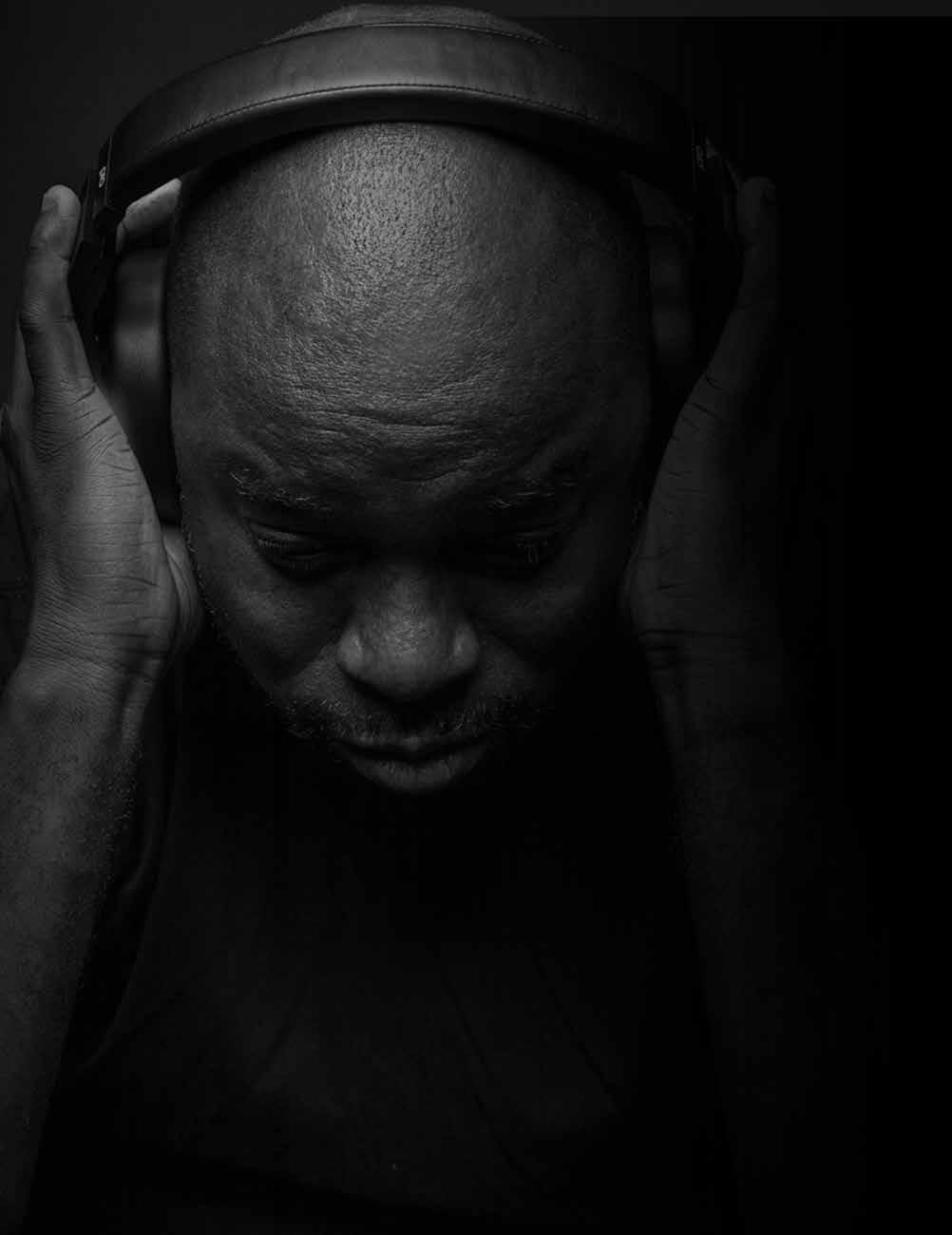
THE GRAMMY GODS 2.0 THE INTERVIEWS
WONDER ARILLO
JAMES AUWARTER
CRAIG BAUER
LESLIE BRATHWAITE
CHUCKEY CHARLES
TRAVIS CHERRY
KEITH CLARK
SHAMANN COOKE
AYANNA DEPAS
DOC ISH
CHRISTOPHER GHOLSON
MARK GOODCHILD
SHAMEL HUGHES
KENNY KORNEGAY
RICCO LUMPKINS
AARON LYLES
CARLTON LYNN
GREGORY MANCE
TONY MERCEDES
DR. FELTON PILATE
NEAL H. POGUE
LUCA PRETOLESI
DANA STINSON
JEFF VILLANUEVA
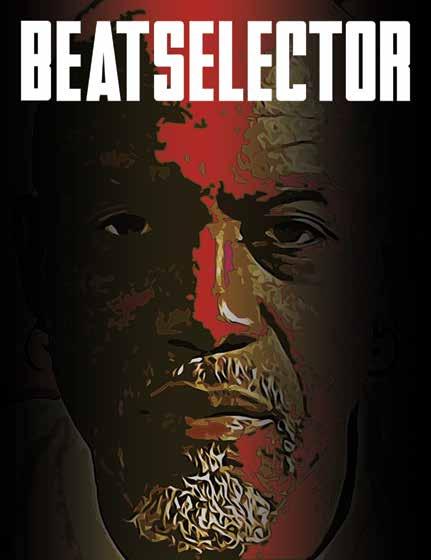
Welcome to The Grammy Gods 2.0 Special Edition!
Featured on our Special double-cover are Neal Harrington Pogue, Grammy winner for Best Engineered Album for Victoria Monét's "Jaguar II" and Fred again...,winner of Best Dance/Electronic Recording ("Rumble") and Best Dance/Electronic Album ("Actual Life 3 (January 1 – September 9 2022))".
The Grammy Gods 2.0 features 25 Exclusive Interviews with multi-winning producers, sound egineers and mixers, sharing their experiences with iconic musicians across all genres, professional advice and personal stories and more.
Fifty years ago, Stevie Wonder could do no wrong – musically. At the 16th annual Grammy Awards celebration, he took home four trophies, including one for “Album of the Year” for his 1973 LP,
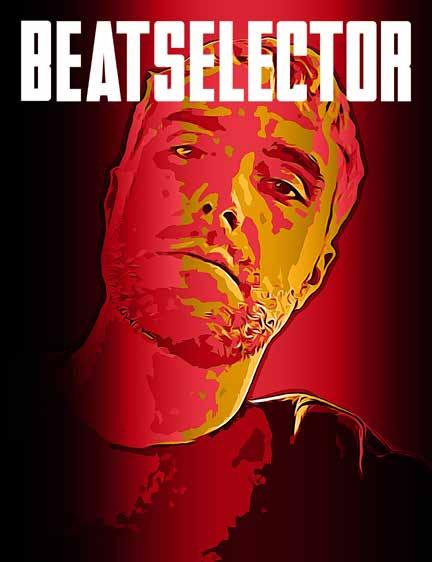
"Innervisions" (Tamla). Five months later, he released "Fulfillingness' First Finale," which, like its predecessor, granted Wonder another “Album of the Year” Grammy win. Guest contributor John Murph takes us back to 1974, with a unique take on what could be argued as Stevie's finest year.
Marty Arnold shapes culture and cultivates trends across film, television, music, sports, and more. Together with co-founder C. Von Parchman, they seamlessly integrate music into various mediums, crafting compelling narratives for global audiences.
Enter the realm of music, where every beat, every lyric, every note, tells a story—a story of passion, perseverance, and profound creativity. In this exclusive feature, we delve into the captivating style of one of the industry's most enigmatic figuresShalom "J-Storm" Miller.
Rodney Jerkins rapid ascent to R&B production mastery is evident in a catalog of chart-topping hits, demonstrating his ability to create memorable and addictive singles that resonate with the musical zeitgeist. At the core of his studio prowess is the versatile V Collection X by Arturia.
Moving Electronic Music Forward Since
PUBLISHER/EDITOR-IN-CHIEF
JOSEPH WENSELL
EDITORIAL DIRECTOR-AT-LARGE SHON MURDOCK
INTERNET TECHNOLOGY
KARIN HASLINGER COMMUNICATIONS
COURTNEY JOHNSON
CONTRIBUTORS AT LARGE
Catherine Strickland, Cory Royster, Desirae L. Benson, Erik L. Richardson, James Arena, Joseph Arthur, Karin Haslinger, Courtney Johnson, Leo Weaver, Matthew Washington, Tim Stark, Vladimir Jean-Philippe, Zach Miller
EDITORIAL REQUESTS
Joseph Wensell editor@beatselectormagazine.com
BRANDING PARTNERSHIP & SPONSORSHIP
Shon Murdock shon@beatselectormagazine.com
ADVERTISING & MARKETING editor@beatselectormagazine.com
GENERAL INQUIRIES editor@beatselectormagazine.com
issuu.com/beatselectormagazine
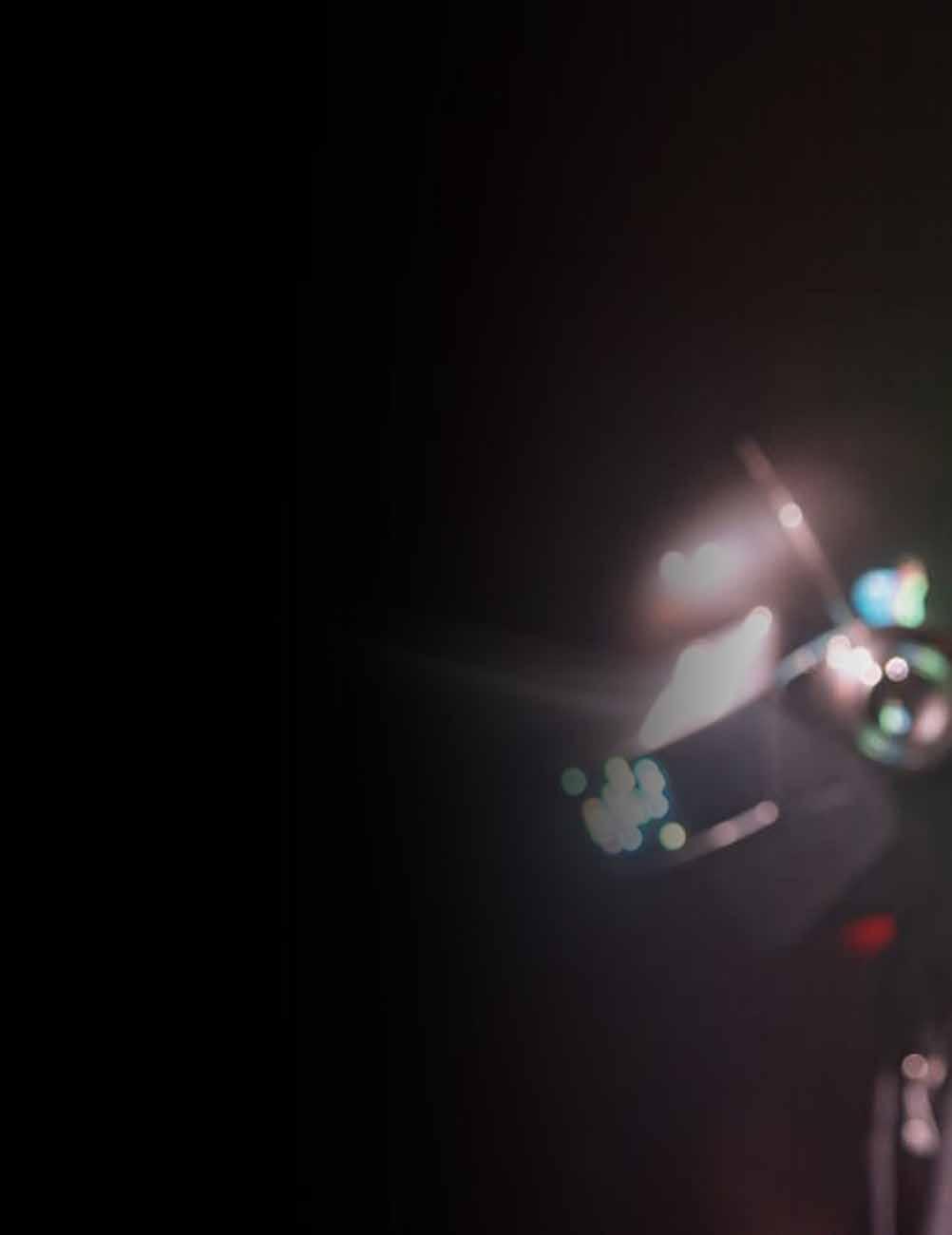
Madame Tussauds famed NYC location has announced that the 6x Grammy award-winning French electronic music duo Daft Punk will "Get Lucky" with yet another accomplishment in their storied career - brand new figures at the world's greatest wax museum, Madame Tussauds New York.
The figures will set up residency behind the DJ booth in the glamorous Glow Gala area, inspired by New York's iconic gala scene and are styled in custom-tailored replicas of Saint Laurent’s black sequined Le Smoking tuxedo suits designed by Hedi Slimane for Daft Punk’s "Random Access Memories" project.
Each figure is adorned with matching replica gloves and pyramid pendant necklaces, gold and silver for their respective DJ, representing the precise detail that went into crafting the figures “Alive” with the luxurious fashion sense the pair came to be known for.
Their celebrated final album "Random Access Memories" continues to celebrate its 10th year anniversary this year.
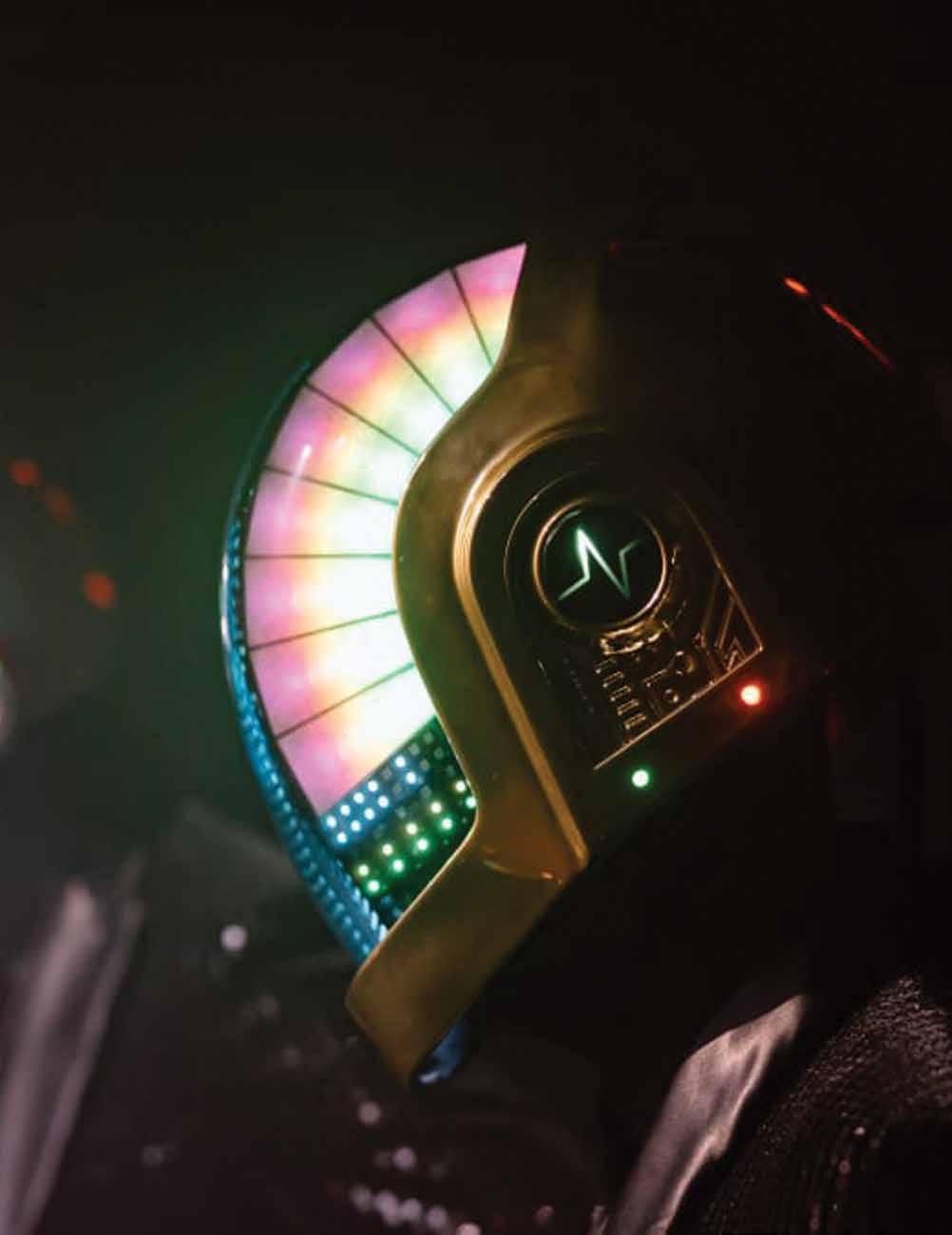

Clio Music, the global competition celebrating creativity in music marketing and the use of music in advertising, presented Pearl Jam and Ozzy Osbourne honorary trophies at the 2024 Clio Music Awards at NeueHouse Hollywood on January 31st.
Pearl Jam was honored with a 2024 Clio Impact Award in recognition of their diverse creative pursuits, building an enduring and inspiring connection to their fans. Most notably, the band will be recognized for the ongoing practice of creating a unique poster for each individual concert date, many of which have won Clio Music Awards. The honor also recognizes the band’s impactful philanthropic work through
the Vitalogy Foundation, which to date has raised more than $50 million for organizations supporting issues such as abortion access, climate change and homelessness, and drawing attention to the fight against diseases such as Crohn’s and ulcerative colitis and epidermolysis bullosa (EB). In addition to the impact of Vitalogy Foundation, the band also supports bassist Jeff Ament’s Montana Pool Service, a project that funds the building of skate parks in Montana and South Dakota.
Ozzy Osbourne was recognized with the 2024 Clio Music Lifetime Achievement Award. As a solo artist and the front man for Black Sabbath, Osbourne’s musical talent, creative output and larger than life persona has attracted legions of fans and led to the sale of over 100 million records His Ozzfest tour has brought together a community of metal fans and launched the careers of many artists in the genre. With this award, Clio Music celebrated Osbourne’s creative legacy, enduring impact on popular culture and the numerous Clio Music Award winning campaigns in which he’s appeared, including 2024’s 'Patient Number 9' Album Campaign.
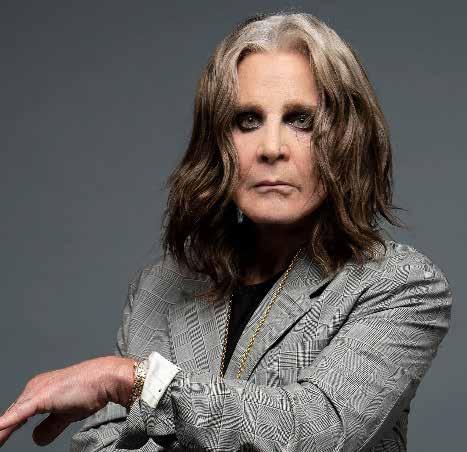

Warner Chappell Music (WCM) has signed an exclusive publishing agreement with hit R&B singer/songwriter Coco Jones. Her highly acclaimed EP, "What I Didn’t Tell You," landed her five Grammy nominations and a win for Best R&B Performance for the hit single "ICU."
Riding on the success of her album, Jones emerged as one of 2023’s biggest acts and embarked on her first headlining tour, selling out shows in 16 major cities across the U.S.
On signing with WCM, Coco Jones shared: “Music has been a constant in my life and the motivation that has anchored me since the very beginning. Discovering a team at Warner Chappell that shares that same passion and understands my voice and vision is very special to
me.” Xavier Champagne, Senior Director, Urban A&R, WCM said: “Coco is a natural superstar. She’s a top-tier performer and has a special talent for songwriting that connects deeply with her fans. Ryan Press, President, North America, WCM added: “Coco Jones has one of the most unique voices out there, and it’s great to see her having her moment as both a songwriter and artist."
During the 2024 edition of NAMM (The National Association of Music Merchants), the largest global not-for-profit music trade organization, the music industry gathered for an exhilarating week that set the music industry narrative for years ahead. With 1,600+ exhibitors representing 3,500+ brands from around the globe, The NAMM Show showcased innovative technologies, products, and trends that shape the future of the music industry while creating a week-long platform for personal connections and meetings that are a necessity for the growth of the music industry.
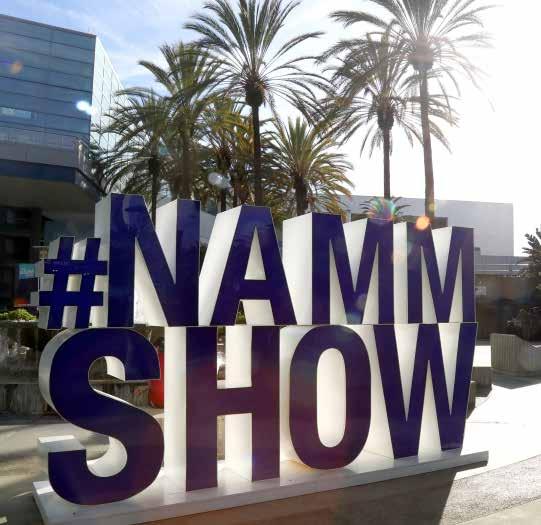
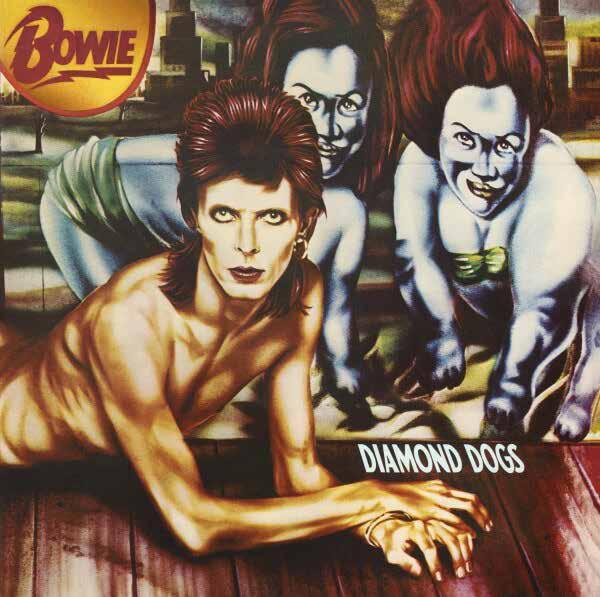
February 15, 2024 marked the 50th anniversary of the release of David Bowie’s landmark single ‘REBEL REBEL’, which appeared in a remixed form on Bowie’s eighth and most musically adventurous album of the early 1970s, DIAMOND DOGS.
On May 24, 2024, the exact day of its Golden Jubilee, "DIAMOND DOGS" will be issued as a limited edition 50th anniversary half-speed mastered LP and a picture disc LP pressed from the same master. The first single from the album, the aforementioned "REBEL REBEL," reached number 5 in the UK and the album would also reach similar heights on both sides of the Atlantic reaching number 1 in the UK and number 5 in the USA. Since its release, tracks from "DIAMOND DOGS" have been covered by artists such as Beck, Tina Turner,
Duran Duran, Def Leppard, Joan As Police Woman, Dead Or Alive, The Struts and many others.
This new pressing of "DIAMOND DOGS" was cut on a customised late Neumann VMS80 lathe with fully recapped electronics from 192kHz restored masters of the original master tapes, with no additional processing on transfer. The half-speed was cut by John Webber at AIR Studios.
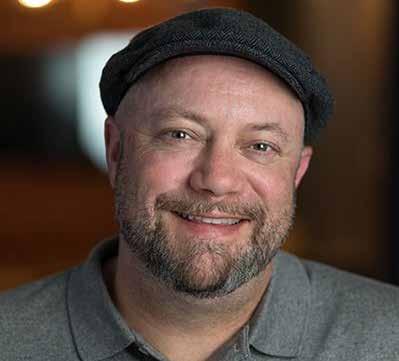
Virginia Beach, Virginia's Studio Center has announced the hiring of the newest member to their audio team, Andrew "Drew" Coleman, a 3 time Grammy Award winning engineer, mixer, producer and guitarist. For more than three decades, Andrew has been behind the boards for some of the biggest pop hits in this country and around the world. Through his partnership with Pharrell Williams and Chad Hugo of the Neptunes, "Drew" has worked with
a virtual who's who of pop music, including Justin Timberlake, Snoop Dogg, N*E*R*D, Madonna, Bruno Mars, Robin Thicke, Gwen Stefani, Miley Cyrus, Beyonce and many more!
He has been credited on more than 300 million records. Andrew's credits also include work on several movie soundtracks like The Amazing Spiderman 2, Despicable Me 1 & 2, Fast N Furious and Rush Hour 2 just to name a few.
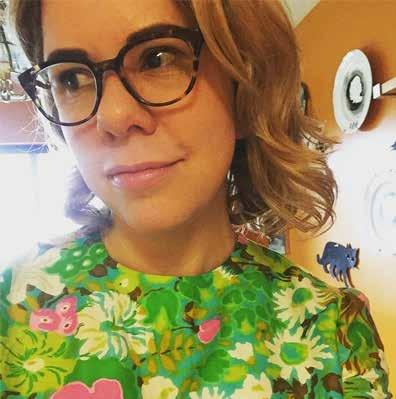
Furnace Record Pressing, a renowned global leader in premium vinyl record manufacturing, has announced the appointment of Ali Miller as Chief Executive Officer, effective March 1.
Miller has served as Chief Operating Officer since 2018 and previously held the role of Vice President. She brings over 20 years of invaluable experience in both music and manufacturing to her new role. Miller’s ascension to CEO makes her the first appointed female CEO of a domestic pressing plant and reflects
Furnace’s long-standing commitment to diversity and empowering female leadership.
Eric Astor, who founded Furnace in 1996, expressed his full confidence in Miller's leadership and noted this transition has been part of the long-term plan at Furnace. "Since the day Ali joined Furnace, I knew she possessed the exceptional talent, dedication, and passion to thrive in this industry," Astor said. "She has been instrumental in shaping Furnace into the respected force it is today. I am confident that with Ali at the helm, Furnace will continue to deliver the highest quality vinyl records and remain a trusted partner to artists and labels for years to come.”
Paul Donahue, lead director at Furnace and Managing Partner of Black Squirrel Partners, echoed Astor's enthusiasm. "Ali's appointment as CEO completes what has been a thoughtful, long-term approach to management succession. We are confident that her vision and expertise will drive continued growth and innovation. Furnace will thrive under Ali’s leadership as well as that of fellow board member and manufacturing leader Mark Reiter. We are excited to support Ali and the entire Furnace team as they embark on this next exciting chapter."
Universal Music Group (UMG), the world leader in music-based entertainment, and DGMC, the emerging state-of-the-art creative facility and global destination, have announced a strategic partnership that will supercharge the Middle East region’s music community.DGMC’s vision is to develop a thriving, sustainable, and lasting music ecosystem in the Middle East. The ‘Music City’ development, which will be based in the UAE, will drive this vision, and serve as the regional hub for both local and international

recording artists and songwriters. DGMC and UMG’s historic partnership will see the companies work side by side to build out the ‘Music City’. This will include cutting-edge recording studios, the development of educational academies, and the creation of a new fullservice label designed to support local and regional artists across every aspect of their career, including recording, touring, branding and merchandising.
The development of this music-related infrastructure, along with UMG’s deep experience in artist development, marketing, promotion as well as its extensive knowledge of operating in emerging music markets, will empower the region’s historic music community and inspire future generations of local artists and songwriters.
At its heart, the UMG-DGMC partnership’s aim is to support and nurture talented artists and songwriters in the region and help them reach their full creative and commercial potential. The development will include three new Capitol Studios recording studios
– these will be the first-ever Capitol Studios outside of the historic Capitol Tower in Hollywood.
The studios will feature a Dolby Atmos mixing room, recording studios, a “green room”, a writer’s room and a rehearsal studio. A range of must-see music experiences for fans are also planned. The label will be a joint venture between UMG and DGMC and will sign and develop local artists, helping them instead to become global ones.
Educational academies will also offer structured curriculum courses as well as special “Master Classes” hosted by top talent in the industry to empower future generations to master both creative and business facets of the industry.
These initiatives will not only contribute to the development of a thriving creative ecosystem in the UAE, but also foster the growth of the music community in the region.
MusiCares has named Jon Bon Jovi as the 2024 MusiCares Person of the Year. The GRAMMY-winning frontman and founding member of American rock band Bon Jovi is the honoree of the 33rd annual Person of the Year benefit gala, which will be held at the Los Angeles Convention Center on Friday, Feb. 2, 2024.
In addition to his extensive musical achievements, Jon Bon Jovi is recognized for his impactful philanthropic work. In 2006, he established the Jon Bon Jovi Soul Foundation, an organization dedicated to disrupting the cycle of hunger, poverty and homelessness. The organization's objective is to recognize and maximize the human potential in those affected by hunger, poverty and homelessness by offering programs that provide food and affordable housing while supporting social services and job training programs. As a health and human service charity, MusiCares is proud to shine a light on Jon Bon Jovi's impactful philanthropy and hopes to raise awareness for these important human rights issues.
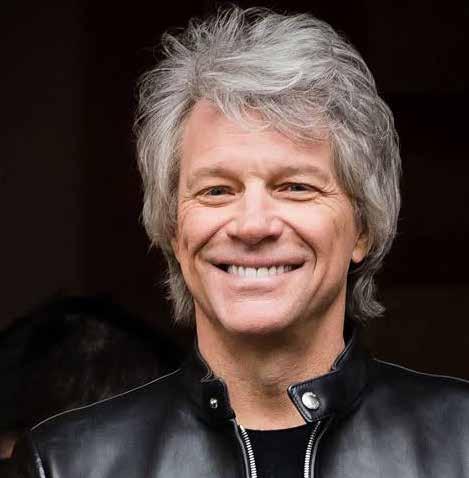

Dead & Company has set a residency at SPHERE in Las Vegas consisting of eighteen shows over six consecutive weeks from May 16 through June 22.
The Sphere residency will feature never-before-seen visual storytelling from Dead & Company, providing fans with the ultimate connection to the music through these innovative and immersive shows. Each weekend's three performances will feature a unique setlist. These shows will utilize Sphere's nextgeneration technologies, with the world's highest resolution LED display that wraps up, over, and around the audience creating a fully immersive visual environment.
The venue also features the world's most advanced concert-grade audio system, Sphere Immersive Sound, powered by HOLOPLOT, which delivers audio with unmatched clarity and precision to every guest

In a dramatic turn of events, TikTok, the globally renowned short-form video app, has commenced the removal of Universal Music Publishing Group (UMPG) content from its platform. This move comes as a result of the failure to secure a new licensing agreement between TikTok and UMPG, one of the music industry's powerhouses.
Simultaneously, Universal Music Group (UMG), the parent company of UMPG, has expressed dissatisfaction with TikTok's use of artificial intelligence and alleged disregard for songwriters' rights. The dispute revolves around the intricacies of licensing agreements, a
critical aspect for platforms like TikTok that heavily rely on user-generated content set to copyrighted music. UMPG, representing an extensive roster of songwriters and artists, has been a cornerstone in shaping the musical landscape.
However, the inability to reach a consensus on licensing terms has prompted TikTok to take decisive action, leading to the removal of UMPG's catalog from the platform.
Adding fuel to the fire, Universal Music Group, the overarching entity encompassing UMPG, has voiced concerns over TikTok's use of artificial intelligence and its perceived lack of respect for the rights of songwriters. The intricacies of these concerns have yet to be fully disclosed, but they shed light on the broader challenges digital platforms face when navigating the complex world of music licensing.
TikTok's innovative use of AI algorithms to curate and recommend content has been central to its success, but it appears this very technology has become a point of contention with Universal Music Group.
The disagreement not only underscores the evolving relationship between technology and the music industry but also raises questions about the role of AI in content creation and curation.
Furthermore, Universal Music Group's emphasis on the protection of songwriters' rights suggests a broader concern within the music industry regarding fair compensation and acknowledgment for creative contributions.
As digital platforms continue to reshape how music is consumed and shared, ensuring equitable arrangements between platforms and music labels becomes increasingly vital. The unfolding clash between TikTok and Universal Music Publishing Group, coupled with Universal Music Group's reservations about AI and songwriter rights, introduces a new in
the ongoing narrative of technology's intersection with the music industry.
The outcome of these disputes could set precedents for future negotiations between digital platforms and music labels, impacting the delicate balance between artistic expression, technological innovation, and the protection of creators' rights.
As the dust settles, the industry watches with bated breath, awaiting resolution and anticipating the potential ramifications for the evolving landscape of music in the digital age.

In a historic achievement, Usher has cemented his legacy alongside the legendary Michael Jackson as the only black men in history to boast both a Diamondcertified album ("Confessions") and a Diamondcertified single ("Yeah!"). This remarkable feat further
solidifies Usher's impact on the music industry and underscores his enduring influence.
Usher's journey to Diamond status began with his critically acclaimed album, a testament to his artistic prowess and widespread appeal. The certification, awarded by the Recording Industry Association of America (RIAA), signifies the sale of over 10 million copies, a rare accomplishment in the music world.
The Diamond single, another jewel in Usher's crown, showcases his ability to produce timeless hits that transcend generations. Achieving Diamond status for a single is no small feat, requiring immense popularity and sustained success. Usher's track, now etched in history, joins the elite list of songs that have achieved this extraordinary milestone.
The significance of Usher joining Michael Jackson in this exclusive club cannot be overstated. Michael Jackson, often hailed as the King of Pop, set unparalleled standards in the industry, making his company a symbol of excellence. Usher, with his distinctive style and musical genius, now shares this rare honor, bridging the gap between generations and leaving an indomitable legacy.
This achievement is not only a personal triumph for Usher but also a testament to the evolving landscape of diversity and inclusion within the music industry. As a black artist, Usher's success highlights the breaking down of barriers and the recognition of talent regardless of racial background.
In the wake of this achievement, Usher's influence on the next generation of artists is undeniable. His journey serves as inspiration for aspiring musicians, emphasizing the power of creativity, perseverance, and the ability to connect with audiences on a profound level.
As Usher and Michael Jackson stand shoulder to shoulder in the history books, this milestone not only marks a personal triumph for Usher but also represents a milestone for the broader landscape of music, where talent knows no bounds, and the impact of artists like Usher transcends generations.
The music world is abuzz as the GRAMMY Museum and Recording Academy announce the revival of the GRAMMY Hall Of Fame on its 50th Anniversary, set to be commemorated with a spectacular inaugural gala and concert.
Hosted on Tuesday, May 21, at the NOVO Theater in Los Angeles, this momentous event will feature the induction of ten iconic recordings, including four albums and six singles, into the esteemed GRAMMY Hall Of Fame.
Established in 1973 to honor recordings of lasting qualitative or historical significance, the GRAMMY Hall Of Fame has become a cornerstone of the music industry.
This year's revival, after a two-year hiatus, showcases the commitment to recognizing recordings that have shaped the industry, with a minimum age requirement of 25 years.
As part of the grand celebration, the GRAMMY Museum’s GRAMMY Hall Of Fame Gala will transform into an annual event, offering a red carpet and VIP reception on the newly unveiled Ray Charles Terrace at the GRAMMY Museum.
The festivities will culminate in a unique concert at the NOVO Theater in Downtown Los Angeles, promising an unforgettable evening for music enthusiasts.
Produced by the dynamic team of Ken Ehrlich, Chantel Sausedo, and Ron Basile, the inaugural gala and concert will be enriched by the musical direction of globally renowned producer and keyboardist Greg Phillinganes.
This historic celebration is poised to redefine the standards of music recognition, offering a night that harmonizes with the legacy of the GRAMMYS.
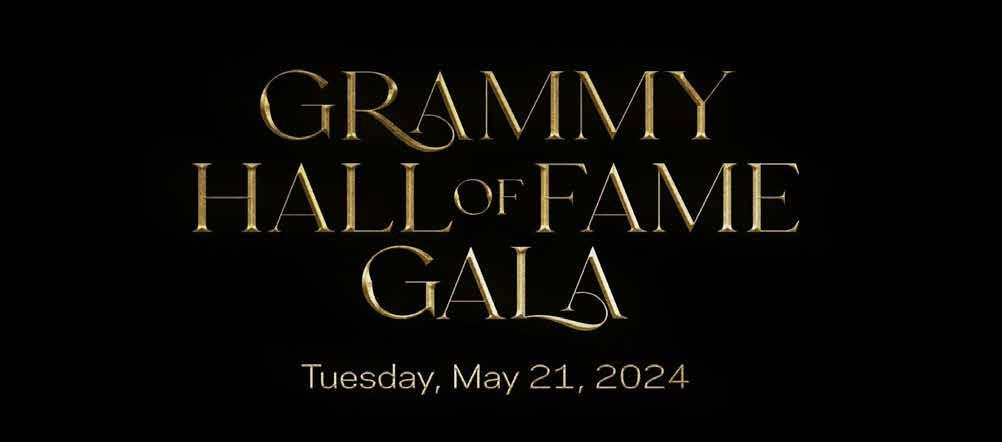
John Mayer, the acclaimed Grammy-winning artist, collaborates with Audemars Piguet, revealing the final edition of the Royal Oak Perpetual Calendar featuring the iconic Calibre 5134 movement.
Encased in a striking 41mm 18-carat white gold case, this limited edition masterpiece showcases precision and elegance, with a captivating deep blue dial highlighting various timekeeping functions.
Mayer describes the dial as a "crystal sky," attributing its unique deep blue hue and faceted texture to an innovative electroforming process.
Limited to just 200 examples and priced at $180,700, this exclusive timepiece sits on an 18-carat white gold bracelet, seamlessly blending luxury and refinement. Beyond being a collectible, it represents a harmonious fusion of high-end watchmaking and music.
Available directly from Audemars Piguet, this collaboration emphasizes the enduring allure of the Royal Oak Perpetual Calendar and John Mayer's influence in the realms of fashion and luxury.
As the final edition featuring the Calibre 5134 movement, it signifies a transition for Audemars Piguet, paying homage to the Royal Oak's legacy while paving the way for future innovations.
Acquiring this timepiece offers more than just a method of marking time; it serves as a perpetual reminder of the beauty resulting from the convergence of artistry and craftsmanship.

CURATED BY

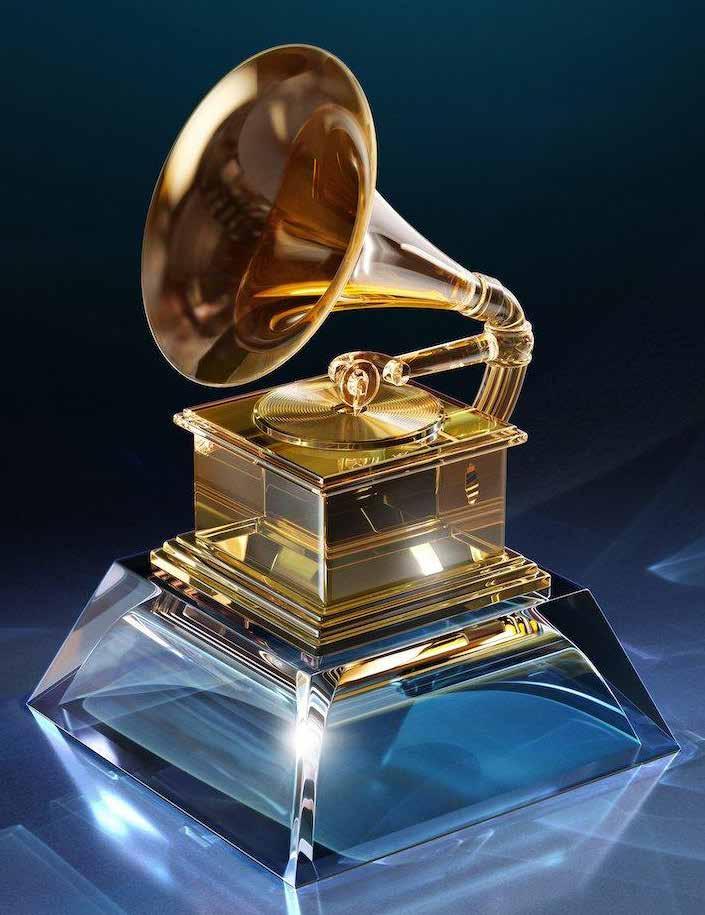
The English record producer, singer, songwriter, multi-instrumentalist and DJ Frederick John Philip Gibson, known professionally as Fred again..and FRED, was nominated for Best New Artist at the 66th Annual Grammy Awards and won Best Dance/Electronic Recording for "Rumble" and Best Dance/ Electronic Album (Actual Life 3 (January 1 – September 9 2022)) .
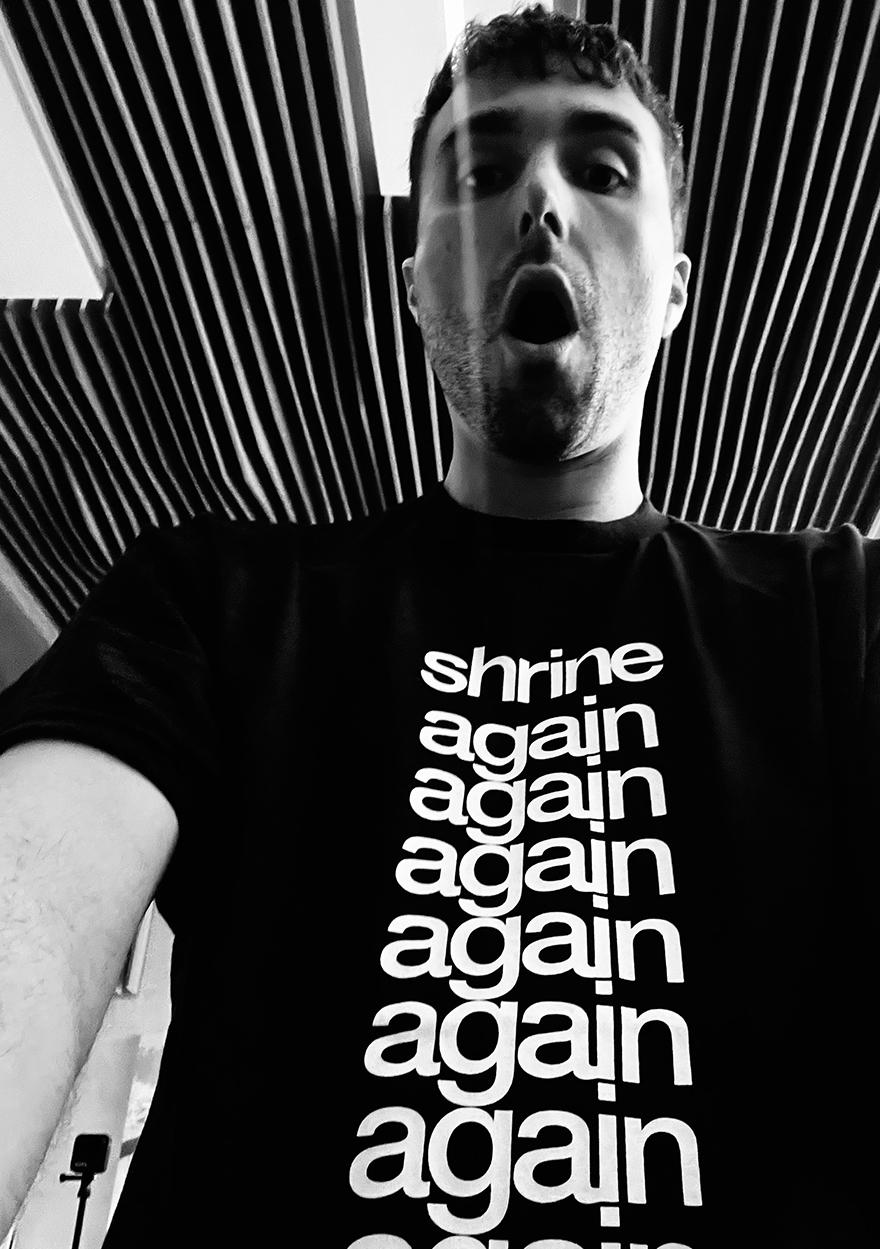

Fred again.. and Flowdan stormed into the limelight with their first-time Grammy triumph, winning Best Dance/Electronic Recording for "Rumble." The collaboration sent aftershocks through the industry, solidifying their positions as trailblazers in the EDM scene.
Fred again.. further asserted dominance in the dance categories by clinching the Best Dance/
Electronic Album award for "Actual Life 3 (January 1 – September 9, 2022)." In 2019, Gibson began Actual Life series, collecting samples from various sources – such as voice memos, clips from social media, and music by other artists –and incorporates them into original tracks.
Gibson released the first of these albums, titled "Actual Life (April 14 - December 17 2020)," in April 2021, which he described as a "collaborative diary" reflecting his life experiences during the COVID-19 pandemic. He released a follow-up, "Actual Life 2 (February 2 - October 15 2021)," later that year in November. "Actual Life 3 (January 1 –September 9, 2022)" is the third studio album of the on-going series and was released on October 28, 2022, through Atlantic Records.
Similar to the previous two releases in the Actual Life series, "Actual Life 3" incorporates samples and audio clips from existing material, such as Instagram videos.
At the Grammy Awards 2024, it won Best Dance/ Electronic Album.
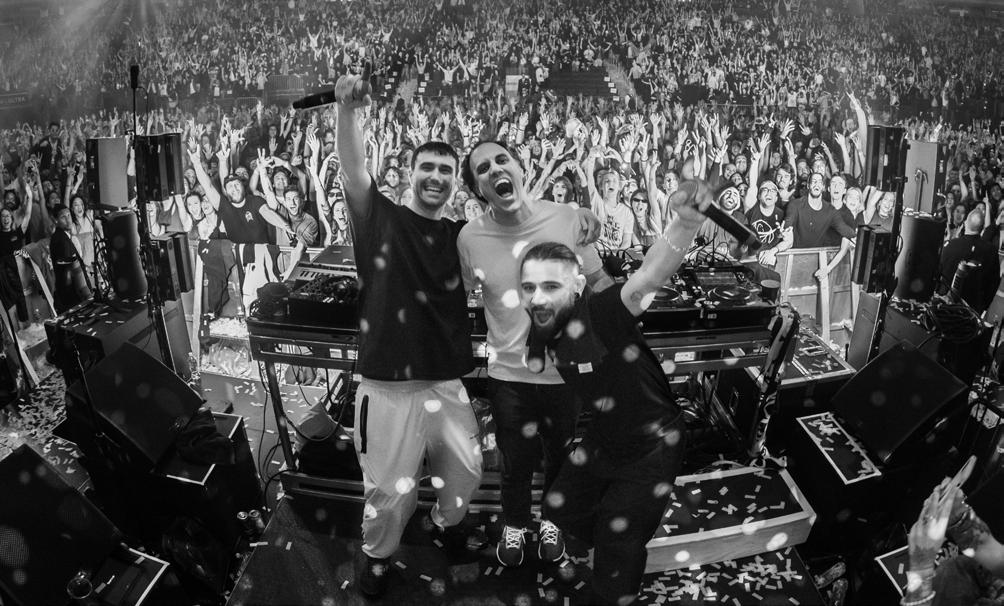
In a resounding recognition of his profound influence on the music industry, Jon Platt, Chairman and CEO of Sony Music Publishing, has been named the honoree for the 2024 GRAMMY Salute to Industry Icons. This prestigious acknowledgment underscores Platt's indisputable impact and unwavering commitment to shaping the landscape of music.
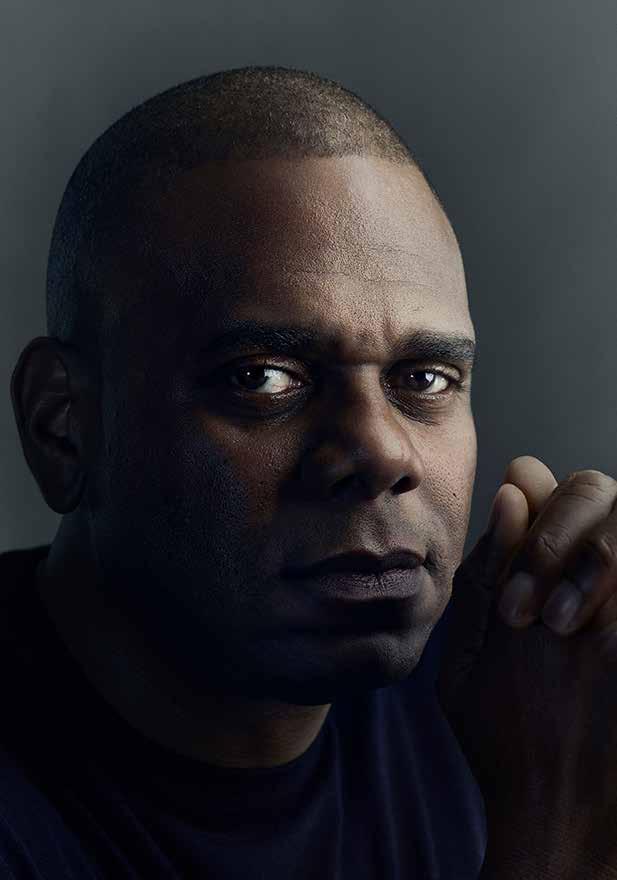
Jon Platt's journey in the music business has been nothing short of extraordinary.
As Chairman and CEO of Sony Music Publishing, he has not only steered the company to new heights but has also played a pivotal role in shaping the careers of countless artists.
His visionary leadership has been a driving force behind Sony Music Publishing's continued success in an ever-evolving industry.
Platt's impact extends beyond the boardroom, as he has been a fervent advocate for artists' rights and has championed diversity and inclusion in the music business.
His strategic acumen, combined with a deep passion for music, has positioned him as a trailblazer in an industry that constantly demands innovation and adaptability.
The 2024 GRAMMY Salute to Industry Icons is a testament to Jon Platt's enduring legacy. It's a celebration not only of his achievements, but also of the transformative power he wields in shaping the very essence of the music we love.
As the industry came together at the PreGRAMMY Gala, the spotlight rightfully shone on a man whose contributions have left an indelible imprint on the harmonious tapestry of the music business.
In honoring Jon Platt, the Recording Academy and Clive Davis did not just recognize the figurehead in the music business, they paid tribute to a maestro whose symphony continues to resonate, influencing the melody of the industry for years to come.
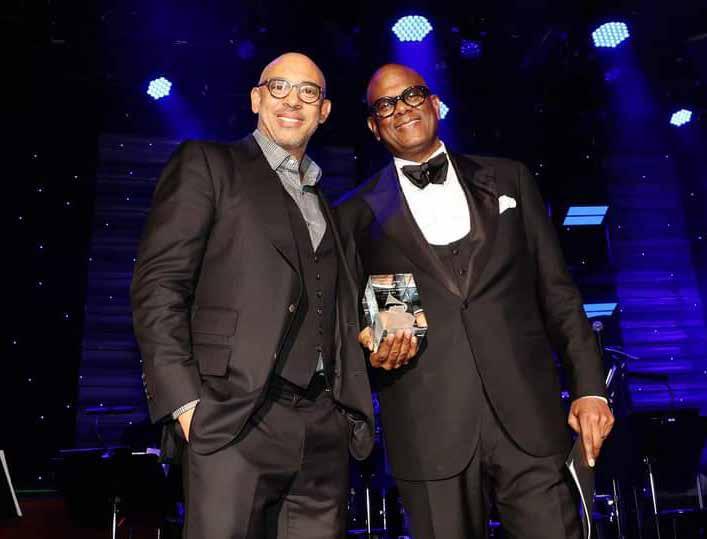
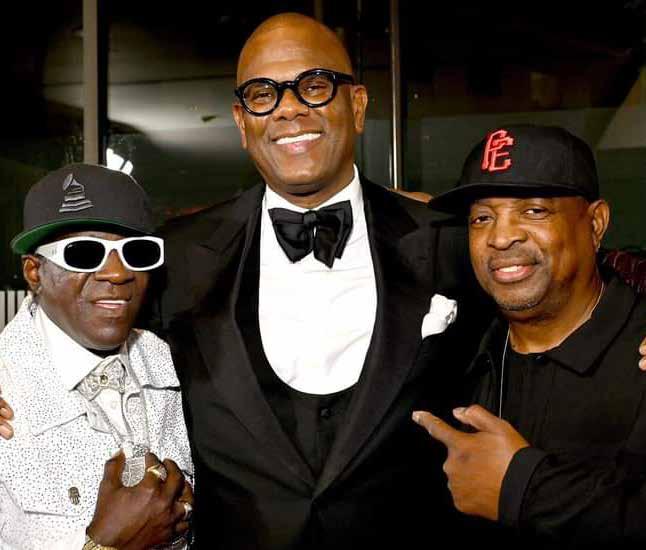
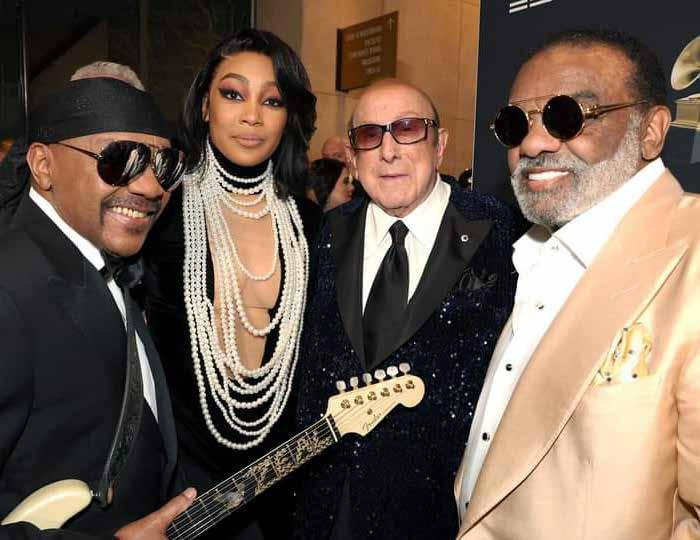
In a stunning display of talent and recognition, Killer Mike emerged as the undisputed star of the 2024 Grammy Awards, clinching victories in three major rap categories. The renowned rapper, known for his impactful lyrics and commanding stage presence, solidified his place in the rap pantheon with wins for Best Rap Album, Best Rap Song, and Best Rap Performance.
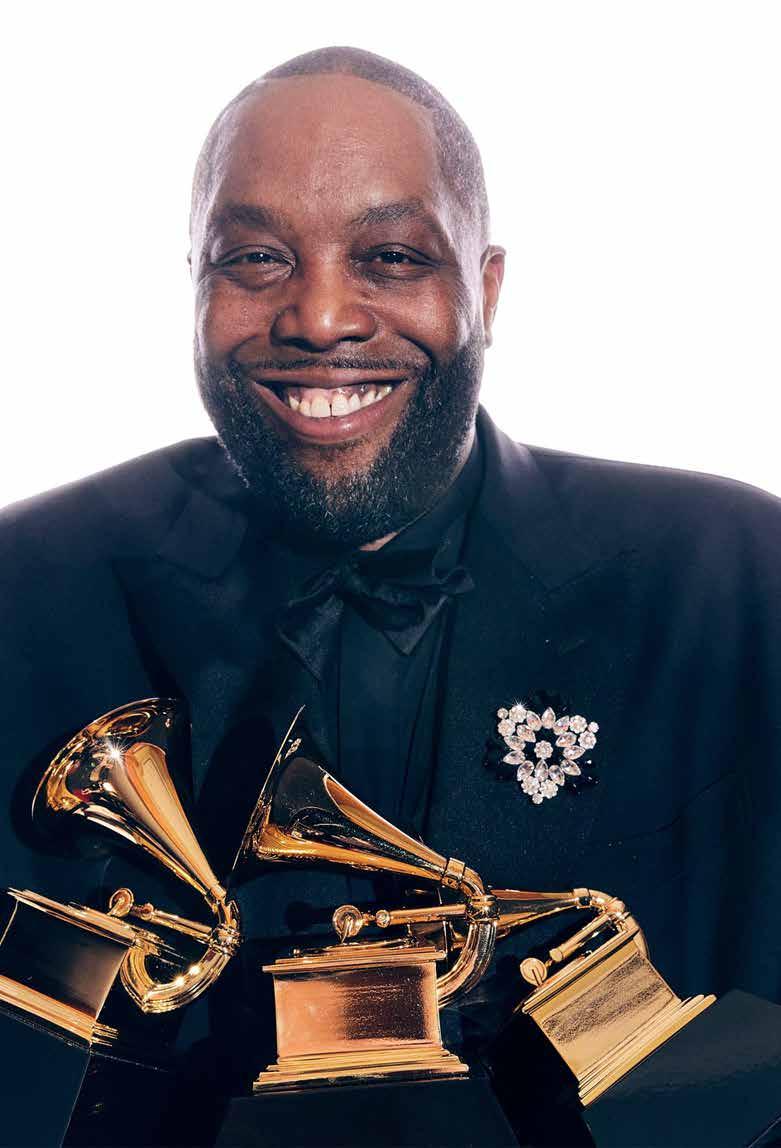
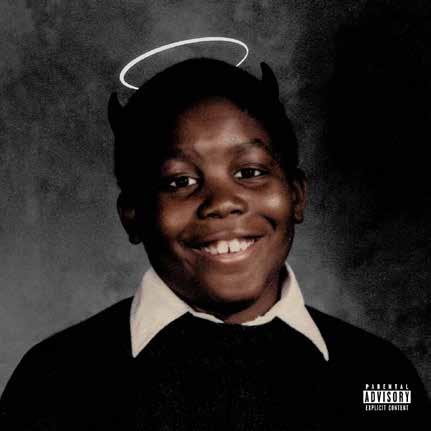
Killer Mike's triumph in the Best Rap Album category was a celebration of his artistic prowess and ability to deliver a cohesive and impactful body of work. The winning album, undoubtedly a magnum opus, showcased Killer Mike's lyrical dexterity, storytelling finesse, and an uncanny ability to capture the zeitgeist. The victory not only serves as recognition for the artist but also highlights the album's cultural significance in the rap landscape. the rap landscape.
The Best Rap Song award further emphasized Killer Mike's mastery of the craft. The winning song stood out not only for its infectious beats and impeccable production but also for the poignant and socially
relevant lyrics that resonated with audiences worldwide. Killer Mike's ability to weave intricate narratives and address pressing issues through his music has undoubtedly solidified his position as a lyrical force to be reckoned with.
The Best Rap Performance win underscored Killer Mike's prowess in delivering an electrifying live experience. Known for his commanding stage presence and unparalleled energy, Killer Mike's live performances have become synonymous with authenticity and raw emotion. This victory serves as a testament to his ability to captivate audiences and leave an indelible mark with each live rendition.
Beyond the Grammy wins, Killer Mike's influence extends far beyond the awards ceremony. A vocal advocate for social justice and equality, Killer Mike has used his platform to address systemic issues, making him a prominent figure not just in the music industry but also in the realm of activism. The triple win at the Grammys only amplifies his impact and highlights the power of music as a tool for social change.
In conclusion, Killer Mike's triumphant night at the 2024 Grammys is a testament to his enduring talent, dedication to his craft, and the profound impact of his music on the cultural landscape. As fans and critics alike celebrate this historic achievement, it's evident that Killer Mike's influence will continue to shape the future of rap music and inspire a new generation of artists.
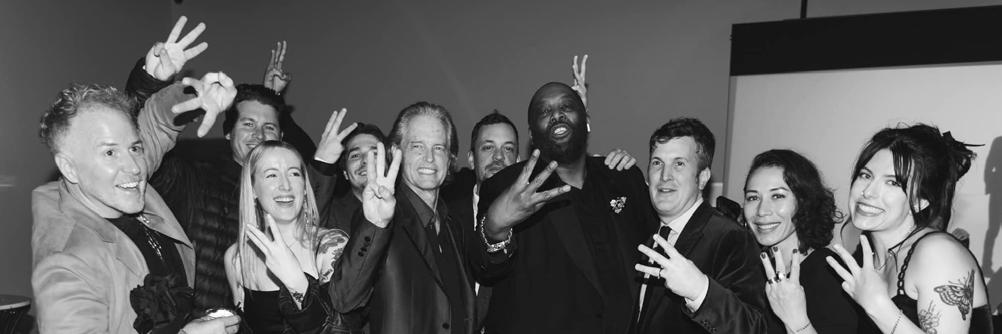
The 2024 Grammy Awards presented a night to remember that brought together two music legends Tracy Chapman and Luke Combs to recreate one of the biggest songs of the last four decades – "Fast Car."

"Fast Car," a timeless classic originally performed by Tracy Chapman, first graced the airwaves in 1988. Its soulful lyrics and emotive melody struck a chord with listeners, making it an anthem that has transcended generations. The song's narrative of hope, dreams, and the struggle for a better life continues to resonate with audiences around the world.

For the 2024 Grammy Awards, organizers orchestrated a performance that unites two musical titans – Tracy Chapman and Luke Combs, each a trailblazer in their own right. While details surrounding the collaboration were kept under wraps, the mere prospect of these icons sharing the stage sparked immense anticipation and speculation within the music industry.
Both artists boast an impressive legacy of musical achievements that have left an indelible mark on the industry. Their influence has transcended genres, and their impact has shaped the sound of contemporary music.
As they joined forces to breathe new life into "Fast Car," fans received a performance that paid homage to the song's original spirit while incorporating the unique styles that have defined each artist's career.
The Grammy Awards have a storied history of hosting iconic performances that stand the test of time.
From unexpected collaborations to show-stopping moments, the Grammy stage has witnessed the magic of artists coming together to create musical memories.
The performance of "Fast Car" was no exception, with the elaborate stage production that accompanied this momentous event.
As the 2024 Grammy Awards drew near, social media platforms were buzzing with speculation and excitement surrounding this once-in-a-lifetime performance. Fans and industry insiders alike were placing bets on how the artists would reinterpret "Fast Car" and what surprises would be in store for the live audience and viewers around the world.
The collaboration between these two icons to perform "Fast Car" at the 2024 Grammy Awards is a testament to the enduring power of music to bring people together.
In a groundbreaking moment at the 2024 Grammy Awards, Nicki Minaj secured her first-ever Grammy win in the category of Best Rap Song for her chart-topping single "Barbie World." The iconic rapper, known for her dynamic performances and groundbreaking contributions to the hip-hop genre, has long been celebrated for her talent and influence in the music industry.

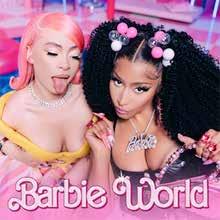
The victory marks a significant milestone in Nicki Minaj's illustrious career, underscoring her impact on the rap scene. 'Barbie World' resonated with fans and critics alike, showcasing Minaj's distinctive style and lyrical prowess. The song's success is a testament to her ability to continually push artistic boundaries and redefine the rap landscape.
As news of her Grammy win reverberated through the music world, fans flooded social media with congratulatory messages using hashtags #GrammyAwards and #GrammyAwards2024. The excitement and support poured in from all corners of the globe, highlighting the global influence of Nicki Minaj and her enduring popularity.
Nicki Minaj's journey to this Grammy win has been a testament to her resilience and dedication to her craft. Over the years, she has consistently demonstrated her versatility, seamlessly navigating between rap, pop, and other genres. This adaptability has not only kept her relevant but has also solidified her status as a trailblazer in the music industry.
The Best Rap Song category has historically been fiercely competitive, making Minaj's triumph all the more significant. 'Barbie World' stood out among its peers, capturing the attention of the Grammy voters and securing a well-deserved win for the rapper.
Nicki Minaj's win at the 2024 Grammy Awards is not only a celebration of her individual success but also a recognition of the evolving landscape of rap music. Her influence extends beyond her musical talent, encompassing her impact on fashion, culture, and female empowerment within the industry.
As we congratulate Nicki Minaj on this historic achievement, it's clear that her legacy in the world of music is far from over. Her first Grammy win as a rapper is a milestone that will be remembered for years to come, solidifying her place as one of the most influential figures in contemporary music.

Paramore, the dynamic rock band that has captured hearts with their unique blend of rock and alternative music, has just clinched two prestigious Grammy Awards. The band took home the coveted Best Rock Album and Best Alternative Music Performance honors at the recently concluded Grammy Awards ceremony.
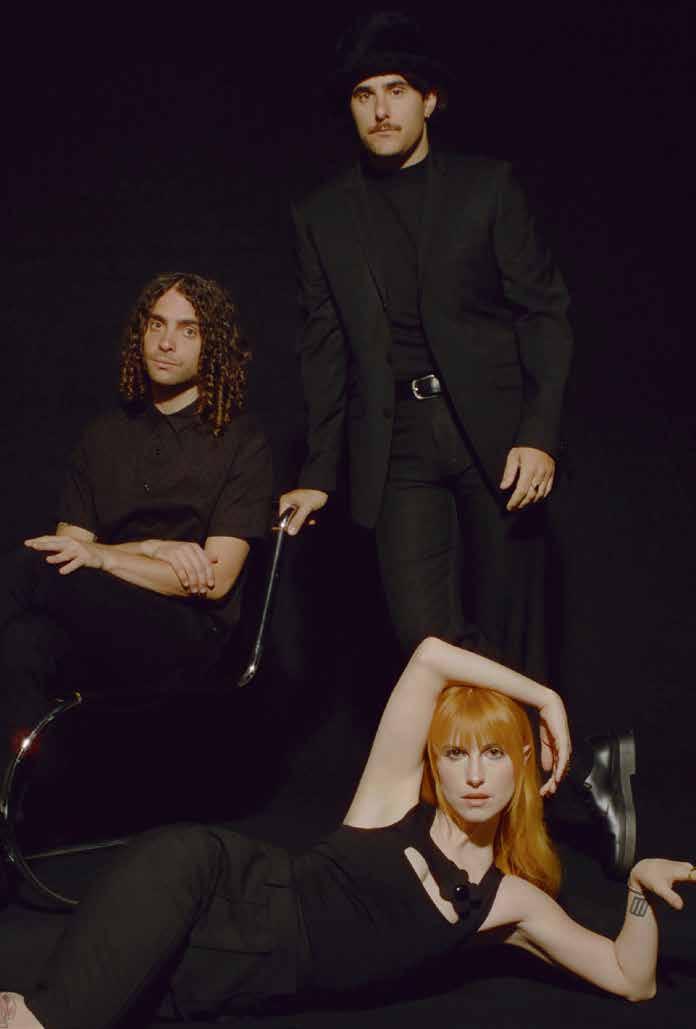
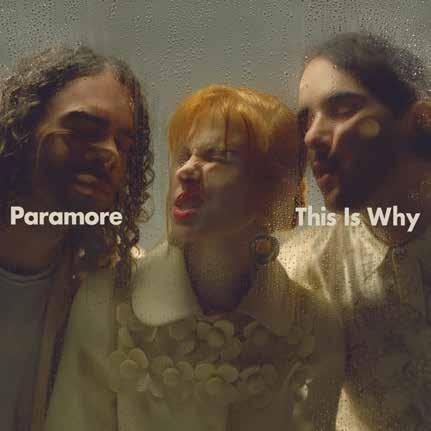
In a night filled with musical brilliance and starstudded performances, Paramore stood out as they were recognized for their exceptional contributions to the rock and alternative music genres. The Best Rock Album category celebrated their latest album, showcasing their prowess in creating powerful and evocative rock compositions.
Paramore's ability to seamlessly navigate the realms of rock and alternative music was further acknowledged with the Best Alternative Music Performance award. This recognition solidifies their status as trailblazers in the music industry, pushing boundaries and
redefining the sound of contemporary rock. Hayley Williams, the lead vocalist, expressed her gratitude and excitement on behalf of the band during their acceptance speeches. "This means the world to us. We pour our hearts and souls into our music, and to have it recognized in this way is truly humbling," she exclaimed.
The Grammy wins come as a testament to Paramore's artistic evolution over the years. From their early days with energetic punk-rock anthems to the more recent exploration of alternative sounds, the band has consistently reinvented themselves while staying true to their roots. Fans have been on a journey with Paramore, and these Grammy victories mark yet another milestone in their remarkable career.
The Grammy Awards have always been a barometer for excellence in the music industry, and Paramore's wins underscore their impact and influence in the rock and alternative music scene. As fans eagerly anticipate what's next for Paramore, one thing is certain – the band's Grammy triumphs will serve as inspiration for aspiring musicians and a source of pride for their devoted fan base.
Paramore's double victory at the Grammy Awards is not just a celebration of their past achievements but also a promising sign of the exciting musical journey that lies ahead for this phenomenal rock band.

Theron Thomas, a powerhouse in the music industry, secured a monumental victory at the 2024 Grammy Awards, taking home the prestigious Songwriter of the Year accolade. This win marks a crowning achievement in a career characterized by innovation, collaboration, and an unwavering commitment to the art of songcraft.
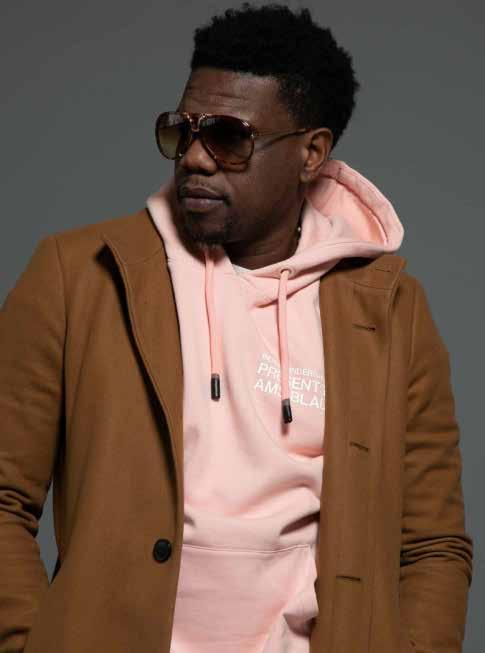
Known for his dynamic contributions to the music landscape, Theron Thomas has been a driving force behind numerous chart-topping hits and has left an indelible mark on the industry. As a key figure in the Home Team, Thomas has consistently demonstrated an unparalleled ability to craft compelling lyrics that resonate with audiences across genres.
Throughout his career, Thomas has collaborated with some of the biggest names in the music business, seamlessly blending his lyrical prowess with diverse musical styles. His ability to adapt and evolve has not only solidified his position as a sought-after songwriter but has also contributed to the success of countless artists and projects.
The Songwriter of the Year award at the Grammy Awards is a testament to Thomas's exceptional talent and the impact of his work on the global music stage. This recognition goes beyond the charts and sales, acknowledging the depth and artistry he brings to the songwriting process.
In his acceptance speech, Theron Thomas expressed gratitude to his collaborators, acknowledging the importance of teamwork in creating memorable music. He also emphasized the significance of being recognized by his peers, reinforcing the sense of community within the music industry.
As fans and fellow musicians celebrate this welldeserved achievement, it's evident that Theron Thomas's influence will continue to shape the future of songwriting. His dedication to the craft and ability to connect with listeners on a profound level make him a standout talent in an ever-evolving musical landscape.
The 2024 Grammy Awards will be remembered as the night Theron Thomas, representing the Home Team, stood in the spotlight, not just as a winner but as a symbol of the creativity and passion that define the essence of outstanding songwriting in the contemporary music scene.

In the harmonious corridors of education, Annie Ray's recent honor with the Music Educator Award has struck a chord that resonates far beyond Annandale High School. Presented by the Recording Academy and Grammy Museum, this prestigious accolade not only acknowledges her significant contributions to music education but also applauds her unwavering commitment to inclusivity.
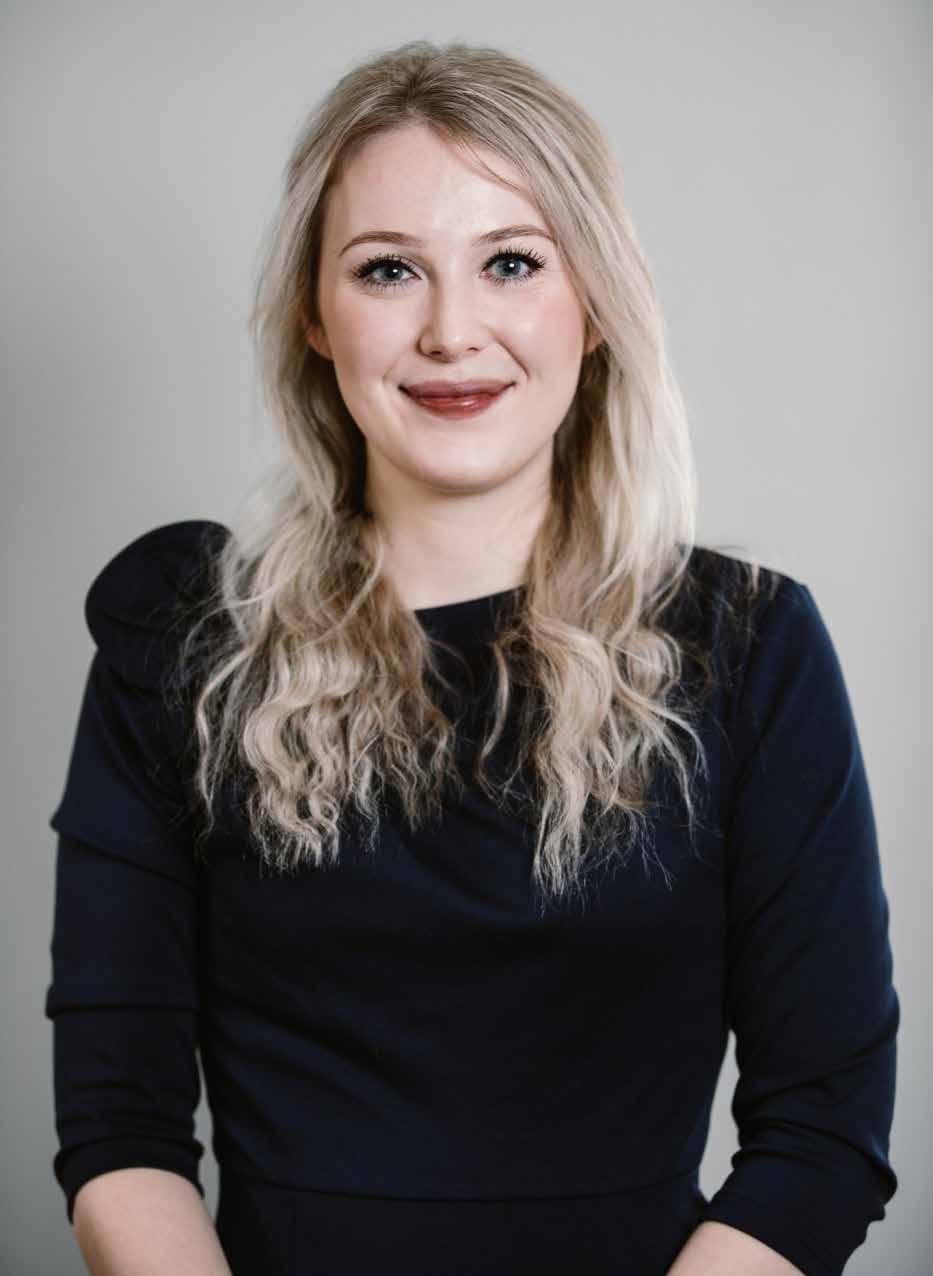
Annie Ray, serving as the performing arts department chair and orchestra director at Annandale High School in Fairfax County, Virginia, stands out for her exceptional efforts in making music accessible to all students, particularly those with disabilities.
Her innovative approaches have not only elevated the musical experience but have also broken down barriers, ensuring that the transformative power of music reaches every student, regardless of ability.
The inspiring journey of Annie Ray, showcases her initiatives that have transformed the music education landscape. Her role as the orchestra director and her
leadership as the performing arts department chair at Annandale High School, Ray's dedication has woven a melodic tapestry resonating with diversity and inclusion.
The innovative programs and methodologies Annie Ray has implemented, fostering an environment where every student can find their rhythm, nurturing, and a sense of belonging and self-expression is evident of the well-deserved Music Educator Award exemplified by her dedication and continues to orchestrate positive change through the universal language of music.
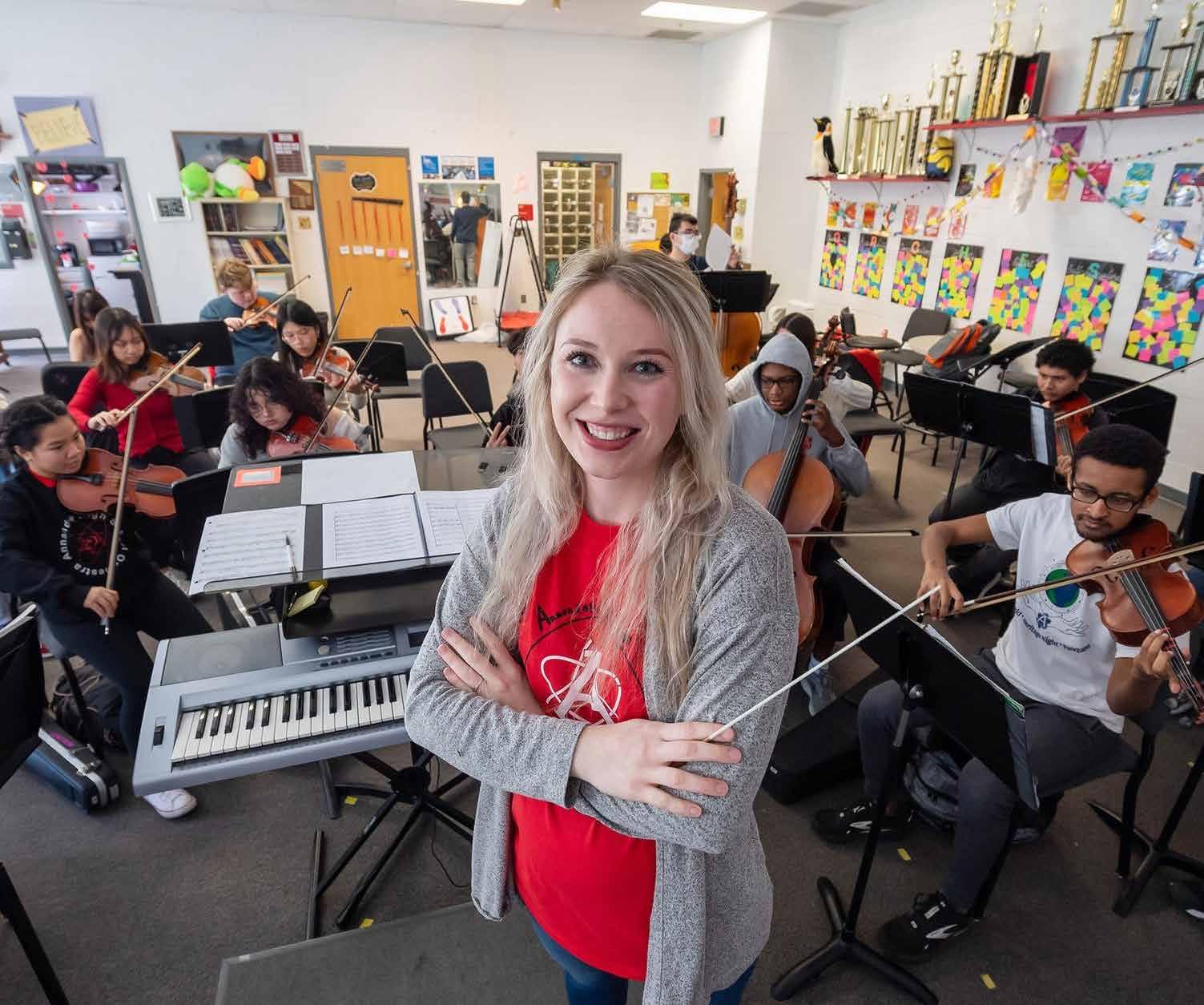
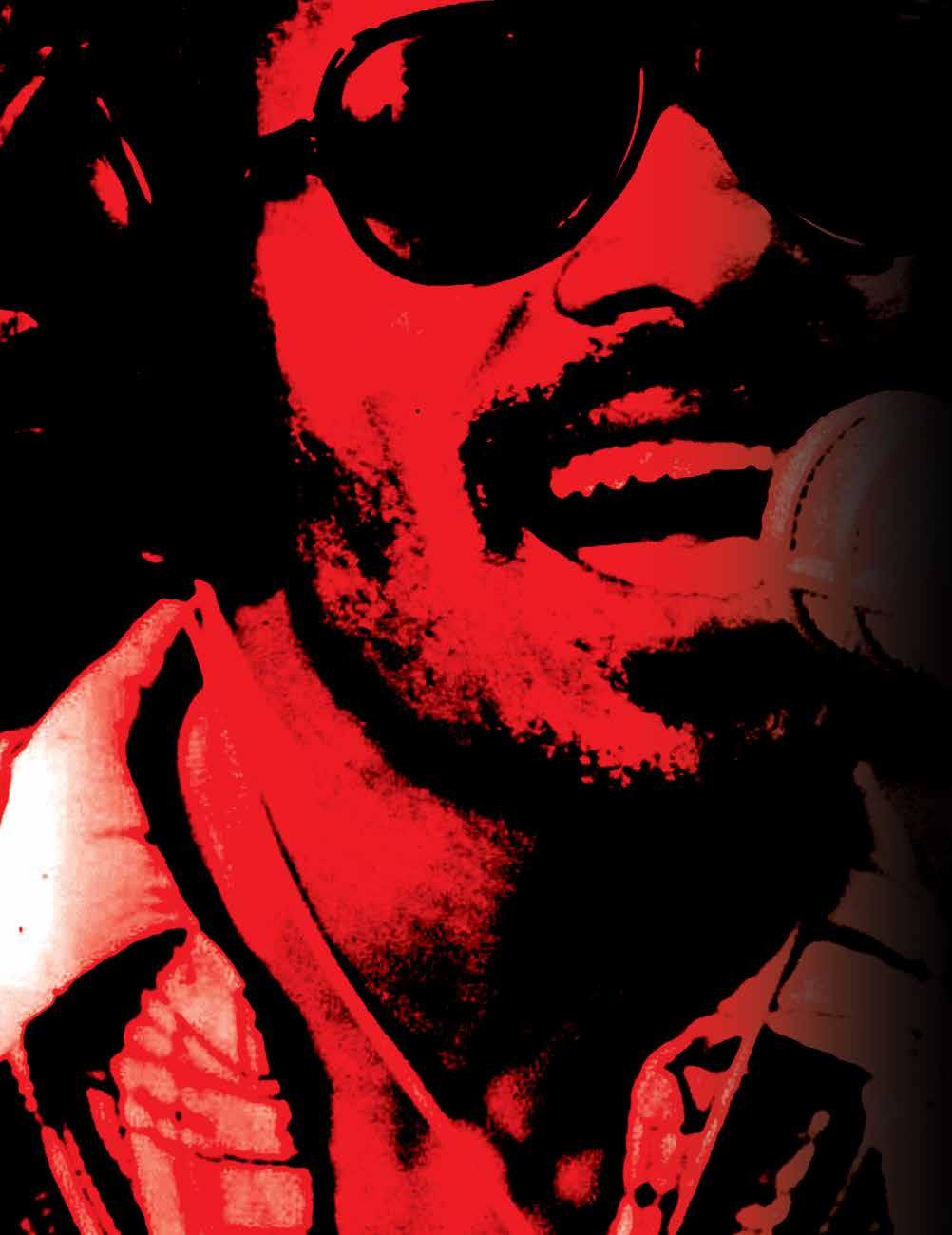

BY JOHN MURPH
At the 16th annual Grammy Awards celebration, he took home four trophies, including one for “Album of the Year” for his 1973 LP, Innervisions (Tamla). Five months later after that March broadcast celebration, he released Fulfillingness' First Finale, which, like its predecessor, granted Wonder another “Album of the Year” Grammy win.
What was amazing about some of the ancillary wins surrounding Wonder’s back-to-back “Album of the Year” Grammy awards is that some of them were related to other albums. At the 16th annual Grammy Awards, he won “Best R&B Vocal Male Performance” for “Superstition” and “Best Pop Vocal Male Performance” for “You Are The Sunshine of My Life.” Both of those tunes came from his 1972 LP, Talking Book. And while Wonder picked up three other Grammys when Fulfillingness' First Finale won “Album of the Year,” one of those victories – “Living For the City” – came from Innervisions.
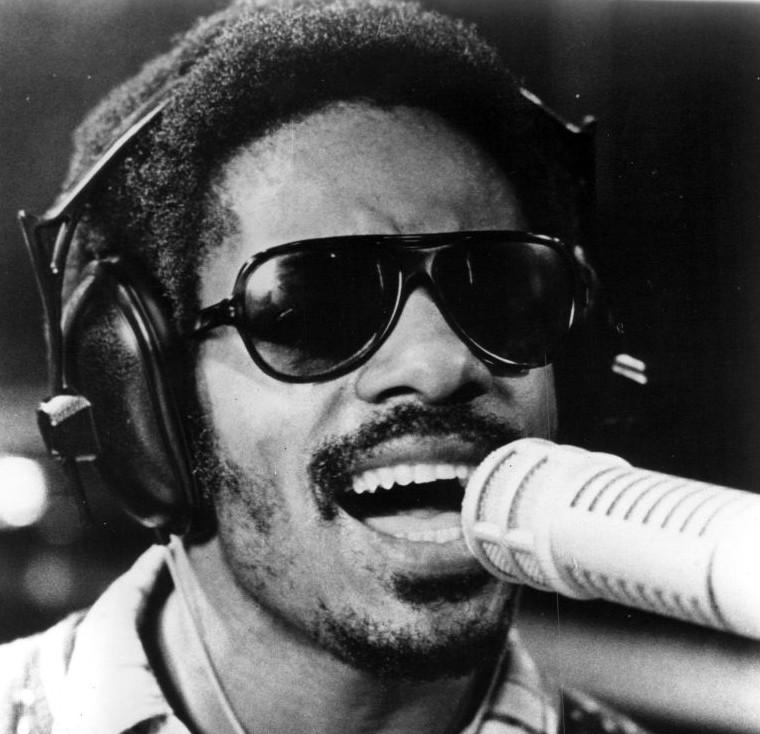
All of these and more overlapping accomplishments were indicative of what many considered Wonder’s classic period, often hailed as “The Greatest Creative Run in the History of Popular Music.” Most people think of this heroic cycle as beginning with his 1972 LP, Music of My Mind and concluding with 1976’s extravagant Songs in the Key of Life.
A year before Music of My Mind came about, a then 21-year-old Wonder allowed his recording with Motown to expire. Inspired in part by fellow Motown/Tamla singer, Marvin Gaye, who strong-armed Motown for artistic control in order to release his 1971 masterpiece, What’s Going On, Wonder used some of the same tactics in renegotiating a three-year contract with
Motown contract that included artistic control, an increase retail sale royalty rate from 2 to 14 percent, songwriting publishing rights, and an advance of more than $900,000.
Many diehard Wonder fans, though argue that this “classic” phase kicked-off with 1971’s foreshadowing Where I’m Coming From, on which he co-wrote all the songs with his then wife and artistic partner, Syreeta Wright. With its flights of fancy arrangementwise, which at times, approached Beatlesque, Where I’m Coming From became Wonder’s new boilerplate for albums that rotated around amorous themes and social commentary.
Hard-core fans also contend that Wonder’s 1979 experimental, mostly instrumental soundtrack, Journey Through ‘The Secret Life of Plants’ and 1980’s back-to-form, Hotter Than July should also be inducted into Wonder’s classic period.
Acreative secret weapon during this Wonder’s classic period was his collaboration with Malcolm Cecil and Robert Margouleff. In addition to being superb musicians, record producers and sound engineers, Cecil and Margouleff were sonic seekers. Margouleff was a friend of synthesizer pioneer, Robert Moog. This led to Margouleff buying a Moog Series IIIc. Soon after, Margouleff befriended bassist Cecil, whom he taught how to play synthesizers. This partnership led to them creating the TONTO (The Original New Timbral Orchestra), a massive multi-timbral polyphonic analog synthesizer that occupied an entire room and looked like something from a Doctor Who episode.
Known as the largest synthesizer in the world, the TONTO contained modules from Oberheim, Moog, ARP String Ensemble, the EMS, and others. Cecil and Margouleff even formalized an ensemble, the TONTO’s Expanding Head Band, and released its critically acclaimed debut, Zero Time in 1971.
While in contractual limbo with Motown, Wonder moved to New York and heard Zero Time. He was entranced by the album’s revolutionary orchestral feat. In a 2010 BBC interview, Cecil talked about Wonder’s frustrations of having his songs being arranged by Motown staff and being left out of the say-so of how his music actually sounded. The advent of the TONTO became a liberator for Wonder.
"Stevie was apparently quite taken by the idea that this was a
keyboard instrument that he could possibly play that made all of these sounds,” Cecil said in the BBC interview. “He was tired of having to play his songs to an arranger who would then go away and write the arrangement, record the track with the band, call Stevie in after it was recorded, tell him where he had to sing, what he had to sing, and then send him away again while they did the mix. And Stevie said it sounded nothing like what the song sounded like in his head.”
After Wonder contacted Cecil and Margouleff, the three of them recorded 17 songs during Memorial Day weekend in 1971. Some of those songs became the aptly titled Music of My Mind, on which Wonder played all the synthesizer parts on the TONTO.
The TONTO jettisoned Music of My Mind’s sonic blueprint galaxies away from Motown’s Young Sound of America template, which characterized Wonder’s output throughout the ’60s. With the TONTO, Wonder created synth textures that were at once celestial and aquatic. And when applied to Wonder’s penchant for both hook-laden soul-pop and wistful lyrics, Music of My Mind seduced listeners into an intriguing sonic realm, uniquely his own.
Wonder’s albums are seldom about just one thing. Instead his albums often touch upon multiple themes, most of which are affairs of the heart, social justice, and the pure joy of music making. On Music of My Mind, the euphoric highs and devastating lows associated with romantic love occupy much of the album. But its closer, “Evil” a ruminative ballad addressing the ills of world, illustrated his burgeoning prowess as a social commentator.

"Stevie was apparently quite taken by the idea that this was a keyboard instrument that he could possibly play that made all of these sounds. He was tired of having to play his songs to an arranger who would then go away and write the arrangement, record the track with the band, call Stevie in after it was recorded, tell him where he had to sing, what he had to sing, and then send him away again while they did the mix. And Stevie said it sounded nothing like what the song sounded like in his head.”
—Malcolm Cecil
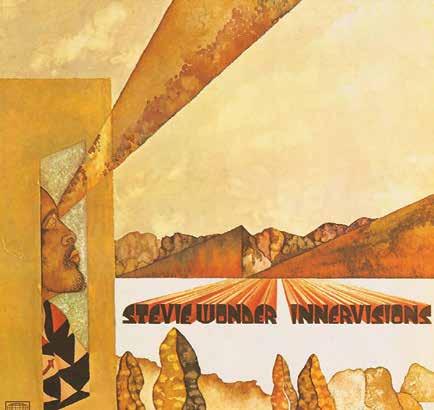
On Innervisions, however, Wonder upped the ante on socio-political commentary significantly. Not only was it noticeably funkier than its predecessor, Talking Book, it would be his most socio-political album to date.
The album kicked off with “Too High” a cautionary tale about drug abuse that bounces to a hypnotic Moog bass line. After the dreamy idealistic “Visions,” Wonder offers one of R&B’s greatest cautionary tales, “Living For the City.”
Clocking at nearly eight minutes, the lyrics on “Living For the City” narrates the downside of the Great Migration for many Black Americans. The drama that Wonder presents of a young man from Mississippi moving to New York only to unwittingly get caught up in the U.S. criminal system is so vivid and picturesque that it deserves its own cinematic treatment.
Other hard-hitting socio-political tunes on Innervisions are the album’s closer, “He’s Misstra Know-It-All” and the super-funky, “Jesus Children of America,” on which he addresses Chrisitan religious hypocrisy.
Wonder countered those dark sentiments with the rousing “Higher Ground,” a quasi-socio-political anthem dealing with reincarnation, the romantic groover, “Golden Lady,” the misty ballad, “All In Love Is Fair,” and the frothy Latin-soul classic, “Don’t You Worry ‘Bout a Thing,” which amounted to the album’s
“The accident opened up my ears to many things around me. Naturally, life is just more important to me now, and what I do with my life.”
—Stevie Wonder
brightest moment. During the year of Innervisions’ release, Motown/Tamla issued two singles – “Higher Ground” and “Living For the City” – both of which skyrocketed to No. 1 on Billboard’s “Best Selling Soul Singles.”
The following year, the album’s third single, “Don’t You Worry ‘Bout A Thing” was released; it reached No. 2 on Billboard’s “Best Selling Soul Singles.”
Sadly, three days after Innervisions was released in early August 1973, Wonder was in a car crash near Durham, North Carolina. He was asleep in the front passenger seat when his friend was driving behind a truck loading logs. When the truck suddenly jammed on its brakes, the two vehicles collided. Wonder suffered a head concussion and was in a coma for 10 days.
During recovery, Wonder lost his sense of smell (he regained it); more troubling though, he thought that he had lost his ability to play music. For sure, he recovered his musical brilliance and agility around multiple instruments. More significantly, the near-fatal accident altered his outlook on life.
When Wonder spoke about the accident, he likened it to something that was preordained and divine. “The accident opened up my ears to many things around me,” Wonder told New York Times reporter, John Rockwell in 1974. “Naturally, life is just more important to me now, and what I do with my life.”
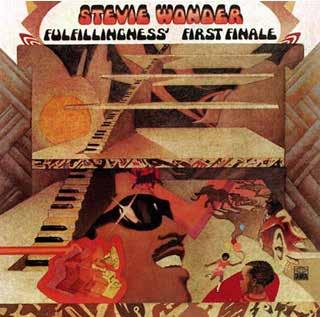
Some people can assume that Wonder’s new outlook on life was masterly represented on Innervisions’ follow-up LP, Fulfillingness' First Finale. Bob Gleason’s melancholy illustrations for the album’s gatefold layout, suggest Wonder reflecting on his life with depictions of him being a child star, traveling on the Motown Revue bus; his awareness of sociopolitical heroes such as Dr. Martin Luther King and U.S. President Robert Kennedy; his ascension to becoming a worldwide superstar via gold LPs; and his increase Pan-Africanism stance. More telling, is the vertical keyboard, alluding to the staircase to heaven.
Much of Fulfillingness' First Finale however was written before the car accident. Nevertheless, when listened to back-to-back with Innervisions, the music is noticeably less rambunctious and more ethereal, particularly “Heaven Is 10 Zillion Light Years Away” and “They Won’t Go When I Go.”
The diaphanous arrangements of those aforementioned songs, however, were ingenious Trojan horses, concealing, respectively, some of Wonder’s more pointed condemnation against organized religion suggesting that people wait to get to heaven for social justice and philosophical musing on the afterlife.
Wonder continued his critique of President Nixon on the snarky first single, “You Haven’t Done Nothin’,” which featured background singing from the Jackson 5, who was extending Motown’s “Young Sound of America” ethos into the ’70s.
And while the album opened with the optimistic “Smile Please,” its subdued tenor suggested a bright sunshine after a long, dark slumber. The vibes on the album picked up significantly on its second single, “Boogie On Reggae Woman” with its slippery Moog bassline, barrelhouse blues piano lines, spiky harmonica solo, and percolating drumming (all performed by Wonder); it’s one of Fulfillingness' First Finale’s cheerier moments as well as the Brazilian samba escapade of “Birds of Beauty,” which sounds like the logical successor to Innervisions’ “Don’t You Worry ‘Bout a Thing.” Rounding out the album were the forlorn ballad, “Too Shy to Say,” the aching break-up song, “It Ain’t No Use,” the sensual “Creepin’,” and the misty-eyed turned exuberant tune “Please Don’t Go.”
After Wonder’s back-to-back Grammy wins for “Album of Year,” he considered quitting music and moving to Ghana. Fulfillingness' First Finale also marked the end of his collaboration with Cecil and Margouleff. Disputes over royalties and credits between Wonder and the two individuals who introduced him to the TONTO severed their creative partnership.
Wonder reconsidered quitting music and relocating to Africa and negotiated another hefty contract with Motown in August 1975 –this time a $37 million deal over seven years with him continuing having full artistic control.
Perhaps, his greatest victory lap during his classic period occurred the following year with the release of the grandiloquent Songs in the Key of Life, a double LP that also came with a seveninch EP. Boasting No. 1 Billboard singles, “I Wish” and “Sir Duke” along with many deep cut favorites such as “As,” “Knock Me Off My Feet,” “Pastime Paradise,” and “If It’s Magic,” Songs in the Key of Life remains a pinnacle for ’70s soul music.
And like it’s two predecessors — Innervisions and Fulfillingness' First Finale – it won “Album of the Year” at the Grammys.
John Murph
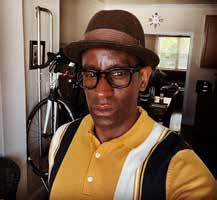
John Murph is an awardwinning journalist and DJ. He’s written for Down Beat, TIDAL Music, NPR Music, The Root, Washington Post, JazzTimes, The Atlantic, Smithsonian Magazine, and Washington Lawyer magazine.
Rahsaan "Cus" Stephens stands as a revered figure within the dynamic realm of music production, where his mastery of sound engineering has propelled him to the forefront of the industry. With every beat, melody, and lyric, Stephens assumes the role of an unseen architect, meticulously crafting sonic landscapes that breathe life into artists' visions.
Embarking on his illustrious journey in the late '90s, Stephens swiftly ascended the ranks, earning acclaim for his technical prowess and versatility across various musical genres. Collaborating with icons such as Notorious B.I.G., Rakim, and Ice Cube, he showcased an innate ability to translate artistic visions into sonic marvels, garnering admiration from peers and industry insiders alike.
A defining moment in Stephens' career came with his pivotal role in shaping Big Pun's seminal album, "Capital Punishment." His meticulous engineering not only contributed to the album's Double Platinum status but also earned him a coveted Grammy nomination,
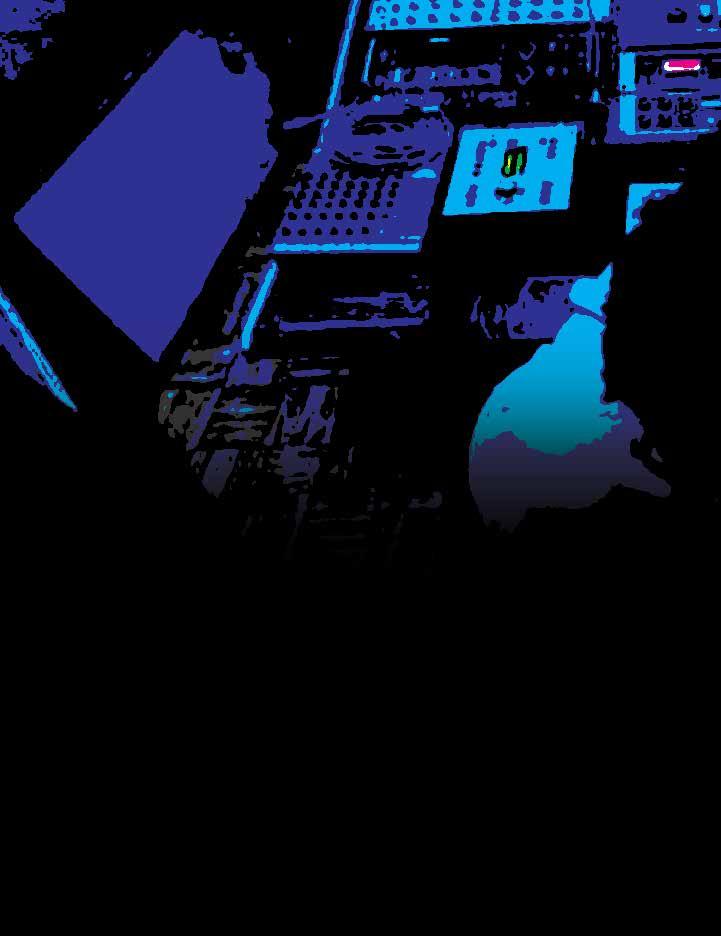
solidifying his reputation as a master craftsman of sound. Continuing his streak of excellence, Stephens lent his expertise to Grammy-nominated projects alongside acclaimed artists like Chrisette Michele and Fantasia. His collaboration on albums such as "Milestone" and "Out Of Control" underscored his innate ability to elevate the artistic vision of musicians, earning widespread acclaim and further cementing his legacy in the industry.
Moreover, Stephens' influence extends beyond the confines of the studio, as he has seamlessly transitioned into the realm of live performances. Serving as the front-of-house engineer for tours headlined by luminaries like Chrisette Michele, Vivian Green, and R. Kelly, he has earned a reputation for delivering flawless sound quality that captivates audiences worldwide.
Rahsaan "Cus" Stephens is an influential figure in the realm of sound engineering and music production. His dedication, talent, and passion have not only earned him
multiple Grammy nominations but have also contributed significantly to shaping the sound of contemporary music. This exclusive feature in Beatselector Magazine promises to delve deeper into his life and career, shedding light on his groundbreaking work and enduring legacy.
So, let's talk about Rahsaan "Cus" Stephens –he's like the behind-the-scenes magician in the music world. He's got this amazing knack for sound engineering that has really put him in the spotlight. From the late '90s, he's been climbing up the ladder, impressing everyone with his skills across different music styles.
Think about it, he's worked with heavyweights like Notorious B.I.G., Rakim, and Ice Cube –that's some serious street cred right there. But his big moment came when he played a crucial role in shaping Big Pun's "Capital Punishment" album. It went double platinum and even got him a Grammy nom – talk about leaving your mark!
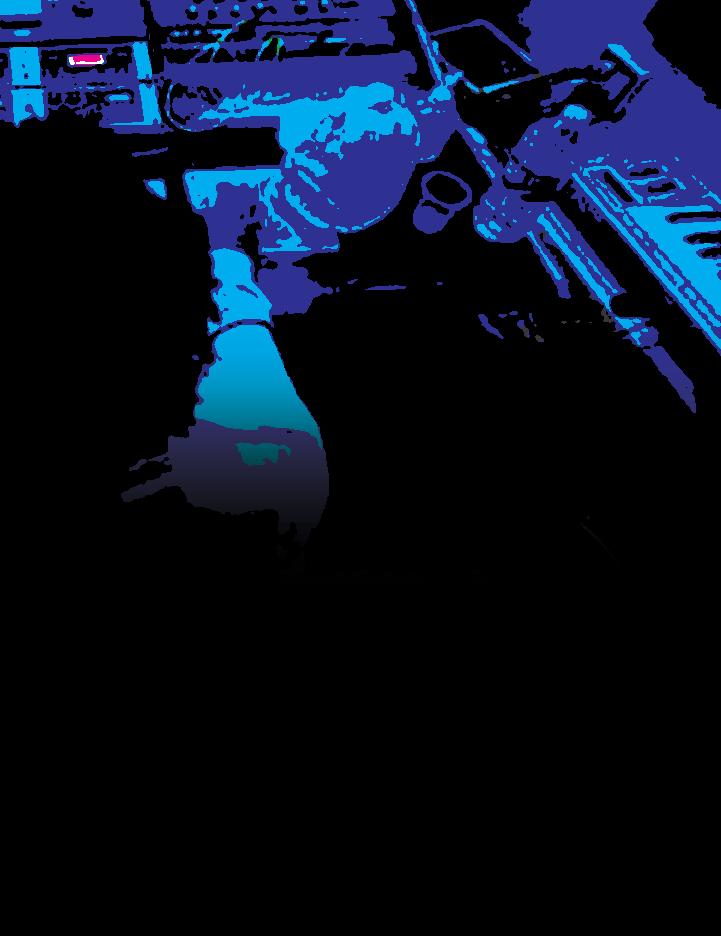
And he's not slowing down either. He's been part of Grammy-nominated projects with stars like Chrisette Michele and Fantasia. His touch on albums like "Milestone" and "Out Of Control" has just added more fuel to his already blazing reputation.
But get this, he's not just a studio guy. Nope, he's also killing it on the live scene. He's been the go-to sound engineer for tours featuring names like Chrisette Michele, Vivian Green, and even R. Kelly. People rave about the quality of sound he brings to the stage – it's like he's got some kind of magic touch.
Rahsaan "Cus" Stephens is one of those unsung heroes in the music biz. His talent, passion, and hard work have not only got him Grammy nods but have also shaped the sound of today's music scene. And this exclusive feature in Beatselector Magazine is going to spill even more beans on his amazing journey.
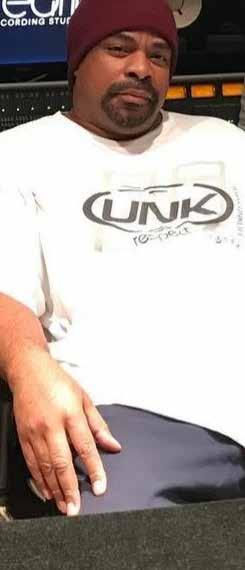
BSM: How did you start working with artists like Notorious B.I.G., Rakim, and Ice Cube in music production?
RCS: Concerning BIG, Rakim, and Ice Cube, I was plugged into these particular artists through producer DJ Clark Kent. I started engineering in '95 and ran into Clark a few times as an assistant engineer before stumbling upon him in '97. We spoke in a session, and he distinctly said, "I'ma give you a shot." From then on, I became his personal engineer. So, anything he produced, I more than likely engineered it.
BSM: What was it like getting a Grammy nomination for Big Pun's "Capital Punishment" album? And how was it working with Big pun ?
RCS: I was connected to Big Pun through a producer named Domingo. At that moment, I was mixing everything he did. Through a mixup, there was another engineer booked to mix that session. I alerted Domingo, and he called the office at Unique Recording and switched it over to me. As far as the Grammy nod, I was elated. Truly in a grateful state, especially upon hearing that the album sold well enough for a plaque to hang on the wall.
Sidebar: As you see, getting work back then was contingent upon which producer you were connected to. The buck stopped with them due to the power they had to decide who they worked with.
BSM: What did you do on Chrisette Michele's albums "Milestone" and "Out Of Control," and how did it impact your career?
RCS: As far as Chrisette's last two albums, I mixed them both. Having a relationship with her management is what brought me to her. For "Milestone," I was in the room with her exec prod and producer during that process. We were out in Miami at Circle House. For "Out of Control," I had full control. I was mixing by myself in NY overnight. Each night I'd show up at the studio
about 10 p.m. and mix until like 12 noon the next day. This went on for several days.
BSM: Tell me about your role as a sound engineer on Fantasia's Grammynominated album and working with her in the studio.
RCS: Concerning Fantasia, I was with producer Kwame. We actually didn't "fully" mix that song. We were sent the vocal session and added the music as just a 2-track mix. The purpose was to see if we could get the placement on the album. Upon submitting, they loved it. We were expecting further instructions so we may go ahead and mix it. J Records' response was that they liked it exactly how it was. Not "mixed," and just a 2-track music mix. A Grammy nod for that was nice since I am now recognized in the R&B world.
BSM: How do you approach sound engineering differently for studio albums versus live performances?
RCS: The approach for studios has similarities to live performances, but a barrage of differences. In the studio, you're able to take your time and can experiment. Live shows are similar to recording a song straight to a plate like the 1940s... you get one shot! The knowledge of leveling with different dynamics such as compression is one in the same, yet the EQing is a different kind of monster.
Not too much boosting of EQ is involved in a live show. You're mainly ringing out live mic channels by tucking most frequencies to escape any sort of feedback, whether dealing with the monitors on stage or the front of house speakers for the audience.
BSM: How do you approach sound engineering differently for studio albums versus live performances?
RCS: The approach for studios has similarities to live performances, but a barrage of differences. In the studio, you're able to take your time and can experiment. Live shows
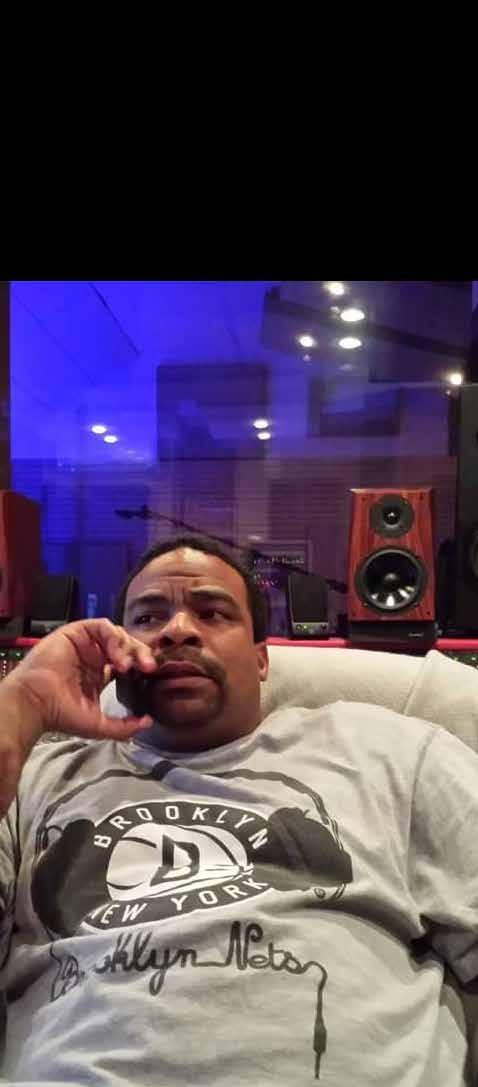
"AS YOU SEE, GETTING WORK BACK THEN WAS CONTINGENT UPON WHICH PRODUCER YOU WERE CONNECTED TO. THE BUCK STOPPED WITH THEM DUE TO THE POWER THEY HAD TO DECIDE WHO THEY WORKED WITH." "CUS"
are similar to recording a song straight to a plate like the 1940s... you get one shot! The knowledge of leveling with different dynamics such as compression is one in the same, yet the EQing is a different kind of monster.
Not too much boosting of EQ is involved in a live show. You're mainly ringing out live mic channels by tucking most frequencies to escape any sort of feedback, whether dealing with the monitors on stage or the front of house speakers for the audience.
BSM: What challenges have you faced as a sound engineer, and how did you overcome them?
RCS: There are daily challenges. Sometimes you can be in a situation where you don't have everything you need, like recording drums and there aren't enough mics or mic preamps. You don't know what room you can be placed in. The capabilities of a place can fall short of what's necessary. A speaker can be blown.
Cables can be full of static. Inputs and outputs on a machine may be out. ETCETERA... but, you endure. You just do your best. You need 8 cables and only have 4 good ones? Do everything twice to compensate for those 4 that aren't working. Just get it done no matter the hassle you face.
BSM: Share any memorable moments from collaborating with Fantasia, Chrisette Michele, or other artists.
RCS: I have no memories with Fantasia because she and I never met (although I wish we had. I'm sure it would've been a delight). But Chrisette... she was a treat. I've recorded Chrisette and have done an entire live tour with her. Phenomenal. By far the greatest voice I've worked with. Goosebumps. And I have worked with Martha Wash, so that says something.
Chrisette remade "Hello" by Adele. She has background vocals that are layered in groups of 4 for each voice. A main note... a mid, a high, a low. So, maybe 16 stacks of vocals for each background part. Upon completion, she asked
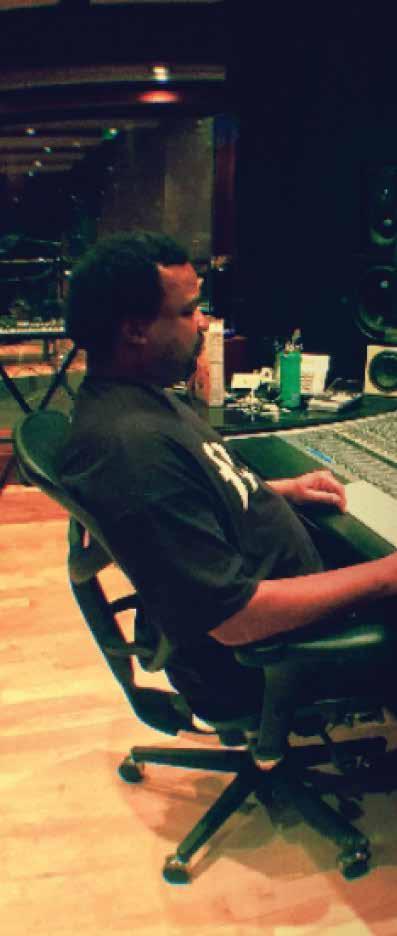
remove the music and put it out acapella. Just a lushness of her voice providing the instrumental which she actually sounded like. I once turned to her manager while she was in the middle of recording and whispered, "She can't be human."
BSM: What makes your approach to sound engineering unique, and how do you ensure excellence in your work?
RCS: What may make my approach unique is I try to serve the room I am working in the same energy it gives. If in a new environment, I play a song that I mixed that

I know sounds good. This way, I can walk around the room and figure out the sweet spots.
When receiving files from a newcomer of a song to mix, I immediately set the song up and route the tracks to how I operate. Most engineers work in a different manner. I take what's given and set it up to where it'll suit me so I can start fresh, in a way. This way, I can give my best performance on my own terms.
BSM: How do you balance an artist's style with your creative input during production?
RCS: Well... most artists have their own method of how they record. Adjusting to their styles is key to get them to create at the maximum level, almost like me accommodating someone to feel at home. Since I haven't worked with everyone, I definitely do not know how many operate.
Complementing them on the fly where I am clueless as to how they are used to creating is vital. Then, you have to deal with their behaviors as well as their creative juices. It can become a struggle when not on the same page. But, that's one of the things you gotta acquire which is not in the engineer's handbook.
BSM: What are your future career aspirations in music production, and any exciting projects on the horizon?
RCS: Future career aspirations include a couple of things. I've mentored many throughout my career so teaching may be the natural order of things. Possibly overseeing products of labels to ensure the quality is on par. As far as projects coming... I got some mixes by an artist named Immaculate.
A dope duo with heavy bars. An emcee named Kumbaya on Def Jam. She's amazing. A few albums in the cut with Frank Lucas Jr. Great music. An eclectic, alternative artist with Marcus Giavanni. A Kwame project. A Greg Nice project. As usual, some cool pop stuff. Too many artists to name with the inclusion of R&B too.

co-founder, and partner at 6xentertainment, plays a pivotal role in the intricate realm of entertainment. His substantial contributions in bi-coastal management, branding, and licensing underscore the importance of shared expertise and strategic collaboration in navigating industry complexities. Alongside partner C. Von Parchman, Marty Arnold shapes culture and cultivates trends across film, television, music, sports, and more. Together with their dynamic team, they seamlessly integrate music into various mediums, crafting compelling narratives for global audiences.
By Shon Murdock
Photography Courtesy of Marty Arnold
Music licensing, a vital component in the realm of entertainment, encompasses a legal framework that bestows permission upon individuals or entities to utilize specific copyrighted music for diverse purposes. These purposes span the gamut of visual media, including but not limited to movies, commercials, television shows, internet videos, and more. The crux of this licensing arrangement lies in safeguarding the rights of the original creators, ensuring due respect for their intellectual property, and providing appropriate compensation for the utilization of their artistic work. Within the intricate tapestry of entertainment, music functions as a dynamic storytelling tool, amplifying the emotional resonance of visual content. Whether orchestrating a poignant scene in a cinematic masterpiece, crafting a catchy jingle for a commercial, or contributing to the evocative soundtrack of a television show, music assumes a pivotal role in shaping and enhancing the audience's overall experience.
What sets 6xentertainment apart is its unwavering commitment to the art of licensing. With a staggering accomplishment of placing over 30 musical compositions to film and television in the last year alone, the company has proven that licensing is
not just a side venture but a cornerstone of its success. Marty Arnold proudly emphasizes, echoing his partner's sentiment, "Licensing is the new record label." This strategic shift positions 6xentertainment as a trailblazer, recognizing the immense exposure and opportunities licensing provides for both emerging and established artists.
A SYMPHONY OF SUCCESS IN VISUAL MEDIA: The impact of 6xentertainment's licensing prowess reverberates across a myriad of platforms. From popular shows like "LA’s Finest" and "All American" to the global stage of "Miss Universe" and the thought-provoking "Black AF," the company's musical compositions have seamlessly integrated into the visual storytelling landscape. Notably, 6xentertainment's reach extends even to the glamorous world of Rihanna's Fenty line commercials, solidifying its position as a go-to source for impactful and trendsetting music.
PAST WORK WITH LAFACE RECORDS: One of the crowning achievements in Marty Arnold's illustrious career is the gold plaque he received for his work on LaFace Records. This distinction underscores his dedication and undeniable talent in the field of music production. Notably, Marty Arnold's collaboration with Usher on LaFace
Records adds a golden touch to his extensive discography, showcasing his role as an expert in the nuanced world of music licensing.
THE UNSEEN EFFORT BEHIND THE SCENES: As Marty Arnold aptly notes, people often focus on the finished product without realizing the meticulous work behind the scenes. The journey from aspiring artists to established names in the industry is far from easy. 6xentertainment attributes its success not just to talent but also to the mastery of relationships – a key ingredient in the recipe for enduring success.
LOOKING TO THE FUTURE: Marty Arnold, a veteran in the entertainment industry, brings a wealth of experience to 6xentertainment, propelling the company forward as a key player in music licensing innovation. Beyond their current achievements, the company is poised to embark on new ventures, collaborations, and breakthroughs that will leave a lasting impact on the cultural landscape for years to come.
In the orchestration of entertainment, Marty Arnold and 6xentertainment hold a pivotal position, fusing creativity, business expertise, and strategic foresight to shape a lasting legacy in the realm of music licensing.
Can you share the story of how 6x Entertainment came to be and what inspired you and C. Von Parchman to start the company?
MA: C. Von, an esteemed and accomplished musician, developed a keen interest in the music industry, particularly in management, leading to the establishment of 6x Entertainment in 2001. Our paths crossed in 2015 through a mutual acquaintance, Peter Verdun. At the time, I operated my own company, Escro Entertainment and Sports Management. In 2018, recognizing synergies between our businesses, we decided to merge our companies.
Managing talent in various entertainment sectors is no small feat. How do you and your partner navigate the diverse landscape of film, television, music, and sports?
MA: Navigating the diverse landscape of film, television, music, and sports requires a combination of expertise, collaboration, and adaptability. C. Von and I leverage our respective strengths and experiences to effectively manage talent across these sectors.
My extensive background in sports provides insight into the unique demands and dynamics of the sports industry. Because of the strong relationships with athletes, teams, and sports organizations, facilitating partnerships and endorsements allows us to elevate our clients' profiles and expand their reach beyond traditional entertainment channels. When it comes to, sync licensing, C. Von draws from his deep understanding of music and its applications in visual media. He stays updated on industry trends, licensing regulations, and emerging opportunities, allowing us to identify suitable placements for our clients' music in film, television, and advertisements. As a company, our main goal is to maximize exposure and revenue for our artists while ensuring their creative vision is respected.
Together, C. Von and I collaborate closely, combining our expertise to explore synergies between different sectors. We identify opportunities for cross-promotion, such as integrating music into sports events or leveraging sports personalities in film and television projects. Our shared passion for music and entertainment drives us to constantly seek innovative ways to showcase our talent and enhance their visibility across diverse platforms.
With a bi-coastal presence in Los Angeles and Atlanta, how does your company leverage the unique opportunities each location offers in the entertainment industry?
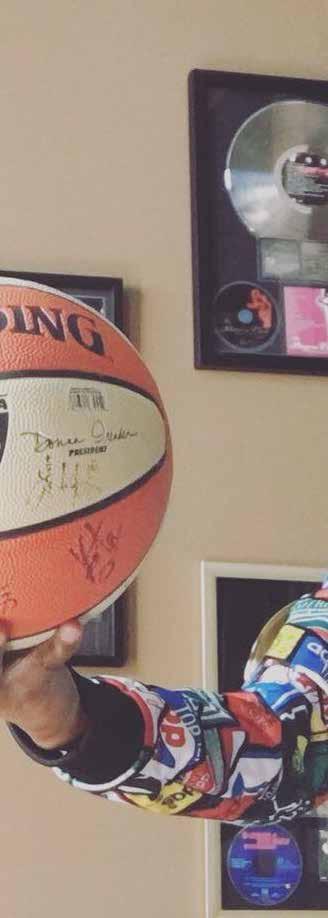
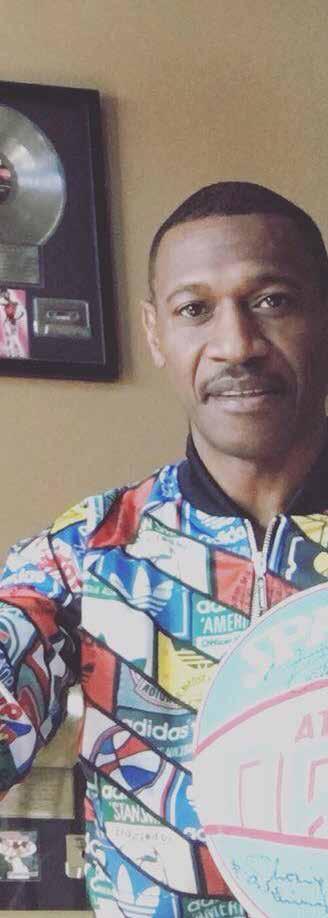
MA: As our company operates with team members in both Los Angeles and Atlanta, we strategically leverage the unique opportunities presented by each location within the entertainment industry.
In Los Angeles, known as the entertainment capital of the world, we benefit from proximity to major film studios, record labels, production companies, and a vast network of industry professionals. This allows us to access top-tier talent, collaborate with established industry players, and stay at the forefront of trends and developments in film, television, and music.
Meanwhile, Atlanta has emerged as a thriving hub for entertainment, particularly in music, film, and television production. With a growing number of film studios, sound stages, and a vibrant music scene, Atlanta offers a wealth of opportunities for collaboration, talent discovery, and production. Additionally, the city's tax incentives for film and television production attract a diverse range of projects, making it an attractive destination for filmmakers and artists alike.
By maintaining a bi-coastal presence, we are able to tap into the strengths of both Los Angeles and Atlanta, effectively expanding our reach and maximizing opportunities for our clients. Whether it's securing placements for our artists in Hollywood productions or facilitating partnerships with rising stars in Atlanta's music scene, our dual-location strategy allows us to offer comprehensive representation and access to a wide range of opportunities within the entertainment industry.
Your focus on licensing has proven successful with over 30 musical compositions placed in prominent shows and commercials. What led to the decision to prioritize licensing, and how do you see its role evolving in the industry?
MA: Our decision to prioritize licensing stemmed from C. Von recognizing the immense potential it held for our artists and their music. With the ever-expanding landscape of film, By strategically placing our artists' compositions in prominent shows and commercials, we not only enhance their visibility but also create opportunities for them to connect with new audiences and build their fan base. Moreover, licensing provides a steady stream of income for our artists, allowing them to focus on their craft and pursue their creative endeavors.
Looking ahead, we see licensing playing an increasingly vital role in the industry. As streaming platforms continue to proliferate and content consumption habits evolve, there is a growing demand for high-quality music to accompany visual media. This presents an exciting opportunity for artists and
rights holders to capitalize on, as the need for fresh, diverse, and engaging music remains constant.
Additionally, advancements in technology and data analytics are enabling more targeted and personalized licensing opportunities, further expanding the reach and impact of music in media. With the rise of digital platforms and the democratization of content creation, there is greater potential for artists to secure placements in a variety of formats and channels.
Overall, we believe that licensing will continue to be a cornerstone of the music industry, providing a symbiotic relationship between artists, content creators, and audiences. As we embrace innovation and adapt to evolving trends, we remain committed to maximizing the potential of licensing for our artists and fostering mutually beneficial partnerships within the industry.
C. Von Parchman emphasizes that "Licensing is the new record label." Can you explain?
MA: C. Von refers to music sync licensing as the new record label because it offers artists a modern and alternative path to success in the music industry.
Music sync licensing, which involves placing music in various media such as films, TV shows, commercials, and video games, has emerged as a powerful avenue for artists to gain exposure, generate revenue, and connect with audiences. Similar to how traditional record labels facilitated the distribution and promotion of music, whereas music sync licensing now provides artists with opportunities to showcase their work to a broader audience through visual media.
Additionally, music sync licensing offers artists more control and flexibility over their careers. Instead of relying solely on record labels to determine their fate, artists can proactively pursue licensing opportunities, negotiate deals, and maintain ownership of their music rights. This level of independence empowers artists to make strategic decisions that align with their artistic vision and career goals.
Furthermore, music sync licensing has become increasingly lucrative for artists, especially independent and emerging talents. With the rise of streaming platforms, digital advertising, and online content creation, there is a growing demand for high-quality music to enhance visual storytelling. As a result, artists can earn substantial royalties and licensing fees from successful placements, potentially surpassing the revenue they would receive from traditional record label deals.

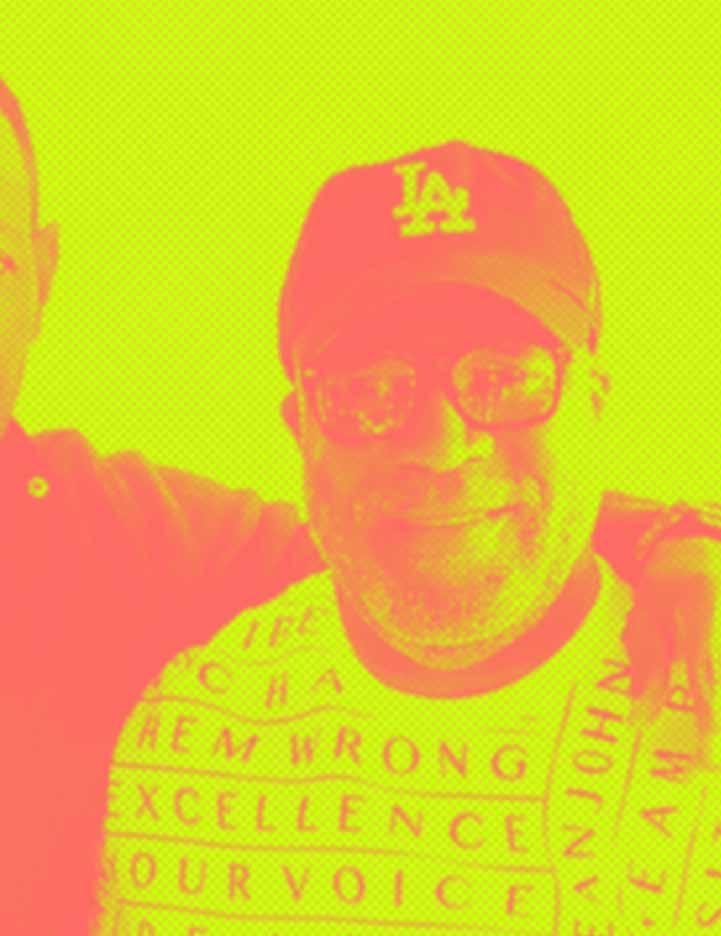
"Whether it's securing placements for our artists in Hollywood productions or facilitating partnerships with rising stars in Atlanta's music scene, our duallocation strategy allows us to offer comprehensive representation and access to a wide range of opportunities within the entertainment industry.
"—Marty ARnold

Enter the realm of music, where every beat, every lyric, every note, tells a story—a story of passion, perseverance, and profound creativity. In this exclusive feature, we delve into the captivating life of producer Shalom "J Storm" Miller.
Born from a lineage of musical genius, Shalom's journey into the world of music was not merely a choice but destiny. From the streets of Plainfield, New Jersey, to recording studios, his narrative unfolds as each chapter resonates with the echoes of his musical heritage.
Under the mentorship of Rashad Muhammad and the Soul Diggaz production team, Shalom honed his craft, drawing inspiration from a diverse array of genres and influences, weaving together elements of gospel harmonies, gritty hip-hop lyricism, and melodic R&B.

Shalom's ability to stay grounded and embrace collaboration is what truly sets him apart. In an industry often affected by selfdriven agendas, he prefers to foster an environment where creativity flourishes and artistic collaboration thrives. But beyond the accolades and achievements lies a deeper commitment—a commitment to mentorship, education, and the empowerment of future generations. Through initiatives like Power Move Education & Development Group, Shalom seeks to share wisdom from years of experience, nurturing the next wave of music innovators and industry leaders. His commitment to excellence, fueled by his belief in the power of music, resonates through strategic partnerships and educational initiatives.
In the words of Michelangelo, "to confide in one's self, and become something of worth and value is the best and safest course." Through his dedication to his craft, Shalom embodies this sentiment, creating a musical legacy that will last throughout time.
In the dynamic landscape of the music industry, Shalom Miller shines as a symbol of creativity, passion and innovation whose contributions will continue to inspire forever.
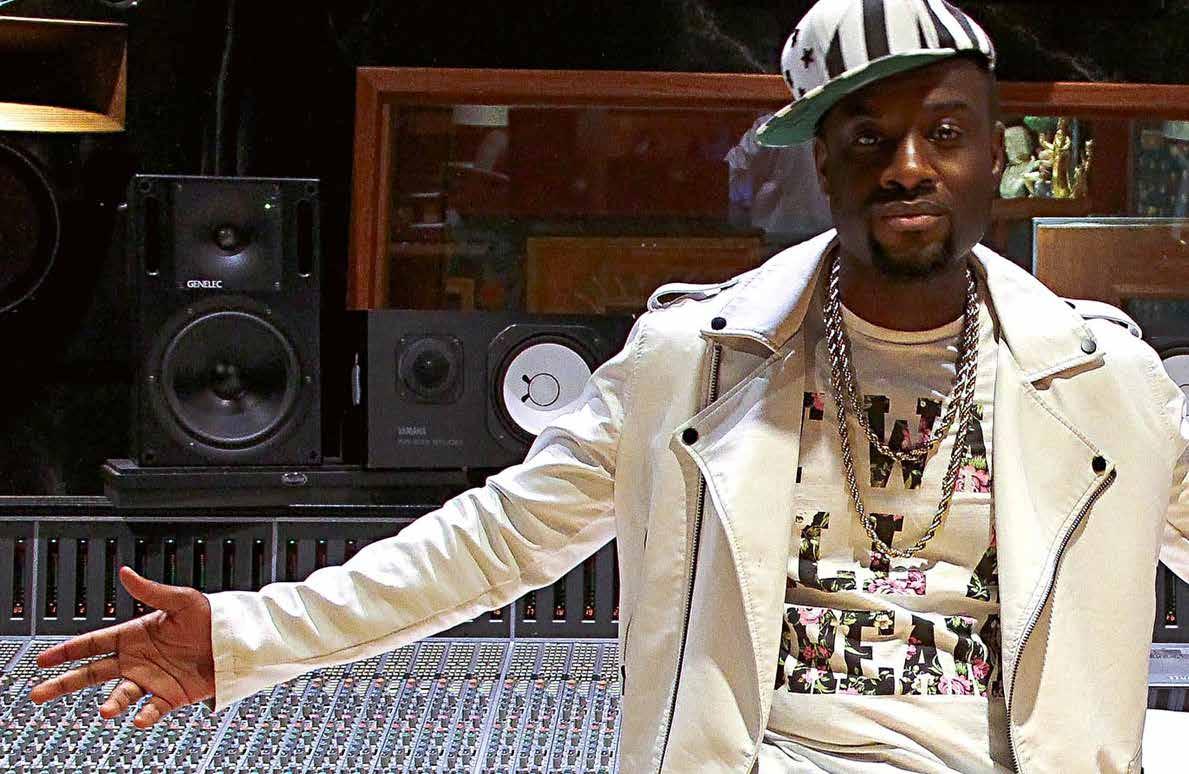
BSM: What inspired you to pursue a career in music?
SM: "I come from a musical family, and I don't just mean the immediate. Pretty much the majority of my family possesses a high level of musical talent. When I think back on it, I don't think there was a particular moment when I consciously made the decision to pursue a career in music. I think the culmination of my upbringing and series of events just led to it. I looked up one day, and I was getting paid to do something I had pretty much done since I was a baby. There were obviously some moments that I had to take more seriously than others, but overall I can genuinely say it's something that I've always done."
BSM: Can you tell us about your journey in the music industry and how you got started?
SM: "My journey into the music industry started almost immediately after I graduated high school. Me and my music partner at the time had been participating in a youth program in Plainfield, New
Jersey, called Y.E.A. Youth Entertainment Academy. It was a faith-based program funded by the George W. Bush administration where they encouraged music education and had a fully functioning studio with a Triton keyboard.
Every day after school, we would go there to make beats. Some days we would actually cut school and either catch the bus and hang out at the Guitar Center on Route 22. We would take hard disks with us and make beats on their demo keyboards until one day they caught on to what we were doing and told us we couldn't do that anymore; however, one of the managers was smart enough to see the potential and noticed how we were attracting attention.
He allowed us to come, and he would make sales off the attention we were getting. In exchange, he gave us some free memory cards for the Yamaha motif, which we fell in love with. One of the mentors at Y.E.A. took one of my Beat tapes to a colleague of his. This was a pivotal moment in my career because his colleague, Kenny Williams III (Akil), owned an independent record label
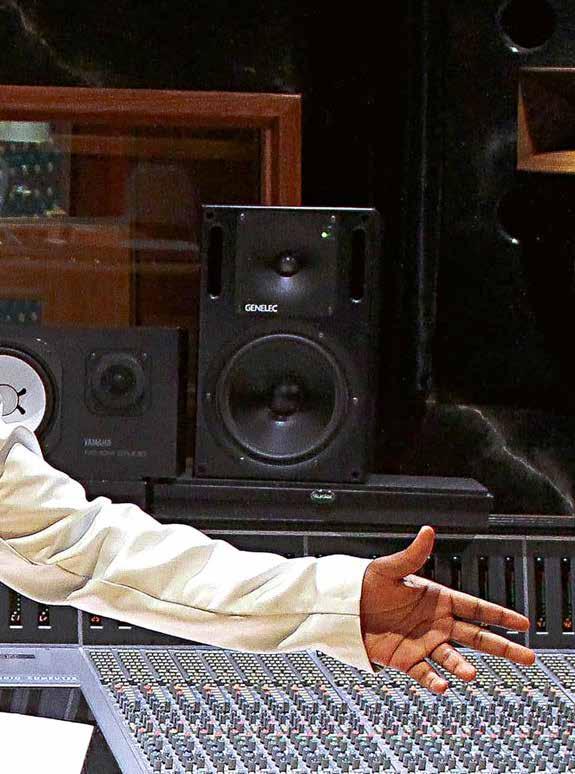
called First Line Entertainment, and after hearing the beat tape he purchased one of the beats.It was my first beat sale for $100.00. I still have that first contract as a memento.
I ended up becoming the main in-house producer for the record label. Working with First Line really introduced me to producing artists, especially in hip-hop. We primarily worked at 4th-quarter studios in East Orange, New Jersey, with the owner Rashad Muhammad who was our head engineer. Rashad had credits ranging from Kool and the Gang to the Fugees and Lauryn Hill, and was very wellconnected in the music industry; he saw a lot of potential in me as a producer and took me under his wing.
One day, Rashad told me he needed me to come to the studio to work on a project. When I got there, he told me he was having someone come to the studio who was working on some big projects. The guest turned out to be a producer from the production team called Soul Diggaz who had just signed a production deal with Missy Elliott. He was having some issues with a session and brought it
to Rashad to work out the mix. After he dropped off the session and left, Rashad had me arrange and organize the session.
After playing one of the vocals in the session, my mind was blown. It contained vocals from rappers Free and MC Lyte, but the highlight was when I heard the vocals from a young Beyoncé, and to top it off, Missy Elliott. It was the title song from the movie “The Fighting Temptations”. It had always been my dream to work with Missy and Timbaland, and my sound was very much crafted by mimicking them. It was like an early Christmas present to be able to work on that session.
When the producer came back, Rashad had me play some of my beats in the background to catch his attention, and it worked. After being impressed by my tracks, specifically my drum production, he invited me to come to their studio and work on some tracks with them. I began to go to that studio pretty frequently to collaborate until one day he told me that he and his partner were interested in having me join the team officially.
After some deliberation, me and my partner accepted the offer and officially joined The Goldmind Inc. family. That was pretty much the beginning of my career in the music industry and opened a floodgate of opportunities for me.
BSM: How do you navigate the balance between artistic expression and commercial success in your music?
SM: "One of the things that my mentor Rashad would tell me is “J, you have to learn how to do enough of what you have to do, so you can do what you want to do”. I take that mindset into every endeavor, which is one of the reasons why I've become obsessive about efficiency and organization.
Some days I feel creative and I just want to get right to working on music, but with as many hats as I wear, I have to manage my impulses and emotions and prioritize. Sometimes I'm working on projects that I'm not necessarily in love with, especially when you're working in the sync and licensing world, and these projects can create a good source of income.

However, they don't always lend themselves to creative expression and musical experimentation. Sometimes they just need something to make people want to buy arthritis medicine or headphones, or whatever. But that's where being a professional musician comes in. And then at some point, you just gotta let yourself have it, and go into your zone for the day."
BSM: Can you share some insights into your collaborative process with other artists?
SM: "I'm very confident in my ability to lead a project. One of the biggest killers of the creative and collaborative process is ego so I leave mine at the door. Ego was nothing but a defense mechanism so most times when I let mine down, it helps others feel more comfortable and at ease and allows them to be their true selves which is where the magic of the collaborative process lies.
I've done enough in my career to garner respect without having to reinforce my position with ego. At the end of the day music is my playground and I get to be a kid there. I don't let anyone ruin that for me. There have been times when I cut a session short or just opt out of working with an artist altogether because after one meeting I can already tell that their ego is going to ruin that experience. If I absolutely have to work with people with bad attitudes, I have ways to circulate that energy around the room. But those are my inside secrets, LOL."
BSM: Would you start a record label one day?
SM: "Well I did! After my contract ended with Missy Elliott, I partnered with the same person who I pretty much started with, Kenny Williams, and started my own record label called Flame On Entertainment. It was an interesting experience. We had some good successes including an imprint deal with Universal Music Group and some good failures as well.
Ultimately, with the impact of the 2008 recession, it became too much of a lift to continue to invest in the company so we dissolved it. I would not start a record label again under that same model because today there are so many other options and partnership opportunities that exist, and it just doesn't make sense, at least to me, to take on the weight of running a full record label."
BSM: Growing up, what artist or what type of music inspired you the most?
SM: "Different genres and artists inspired me in different ways, which is why my musical skill set is so diverse. For instance, one of the things artists value about working with me the most is my vocal production and background arrangements, which I get from gospel music. My father was the music director at our home church, and my mother was and still is an amazing singer, so I was at every choir rehearsal and learned vocal exercises and how to arrange tenor, soprano, and alto vocals to create very unique harmonies.
When it comes to my music production style, there are so many great producers who have influenced me, from Pete Rock, Teddy Riley, Ski Beatz, Raphael Saadiq, Timbaland, to The Neptunes, and many others. I was always more fond of very lyrical rappers and pulled influences from rappers like Big Pun, Jay Z, Notorious B.I.G, Nas, Eminem, and others."
BSM: How was it working with Beyoncé? Can you share any memorable moments or experiences, and what did you actually do on her project?
SM: "Through my affiliation with Soul Diggaz, I had already gotten the chance to be a part of several projects with Beyoncé, including the Fighting Temptations, Dangerously in Love, and Beyoncé Live at Wembley albums, before I actually got to meet her in person. We were working heavily on the upcoming Destiny Fulfilled album, and on one particular occasion, we went to Sony Music Studios in NYC to play some of the songs we had for Destiny’s Child.
Upon first impression, they were not like what I expected. For one, it was Kelly and Michelle who were the more outspoken ones, and surprisingly Beyoncé was very quiet and reserved. After introductions, I sat in the back of the studio while they listened to the tracks and songs. It was a huge boost of confidence when they would perk up when a track I produced came on, and K-Mack (one of the Soul Diggaz producers) would point at me, letting them know that was my work. That first meet was quick but impactful.
We got a placement on the Destiny Fulfilled album Deluxe version, and I saw her again at a few events and parties. One time in particular was at a party Jay-Z had at the 40/40 club, but I did not get to work with her as in-depth as I would have liked, with me being a vocalists producer."
BSM: How was it working with Missy Elliott? Can you share any memorable moments or experiences, and what did you actually do on her project?
SM: "Working with Missy was definitely a highlight in my career. Her pace is incredible, so I definitely had to learn how to work at my highest level very quickly. She consumes tracks like you wouldn't believe, so sometimes when we would go to her house to work on projects, we would already have a couple of beat CDs loaded, and we would act like we just cooked it up right there on the spot.
I think she liked to put that kind of pressure on us. I remember one time we were working at her home studio, and had given her a CD with like 20 beats right out of the gate. About an hour later, she came downstairs and was like, “y'all got some more Beats?” We gave her another CD with like another 20, and she was like, “y'all didn't just make all these damn beats stop lying.”
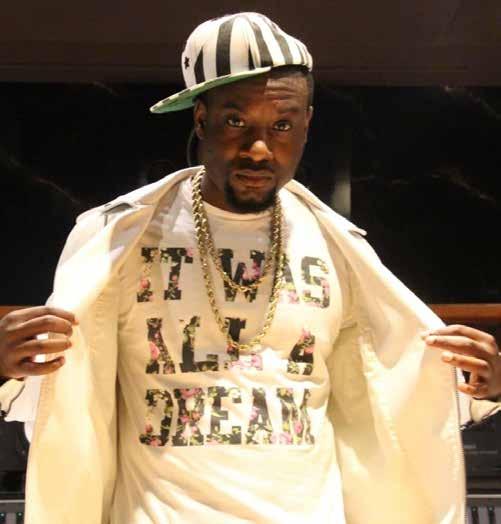
thrives on something fresh and new and different, and I think she needs and feels that energy from the beat she works on when it's fresh out of the oven. A lot of the stuff I worked on with Missy was unreleased or released in other territories.
When we started working on the Cookbook album, by the end of it all, rumor has it that she recorded around 80 songs for the project. I had solely produced at least 10 to 15 records with her, not including the ones I collaborated on. When it was all said and done, the intro skit to the song “Joy” that I co-wrote and mixed was the only one that made the project, although I had done auxiliary production on some of the other songs. It wasn't a total loss because some of the other tracks ended up on other projects."
BSM: How was it working with Gwen Stefani? Can you share any memorable moments or experiences, and what did you actually do on her project?
SM: "Working on the Gwen Stefani album was a lot of fun. This was a project that came through Missy. She reached out and said she needed a remix for a Gwen Stefani single that was about to come out. It was the single “Luxurious,” and apparently the label wanted to release different versions soon after the initial single drop, and had commissioned Missy to feature.
As soon as I got the vocals, I headed over to my partner so we could get started. We worked for hours before we came up with something that we thought was worthy of this collaboration. By the end of the night, we ended up actually making two versions and sent them in. If I'm not mistaken, that same night Missy hit back, and her words were, “Now this is how you make a damn hit!” She wrote and recorded rap verses to both versions because she couldn't decide which one she liked more.
She decided to go with the first version and stripped it down so much it broke my heart. But that's just the producer in me loving every sound. I personally liked the second version best. Interscope ended up releasing it on an international version of the album but decided not to release it in the US, apparently because too many remixes had already been released. As far as I know to
this day, it is the only collaboration between Missy and Gwen Stefani."
BSM: What do you consider to be your most significant musical achievements or milestones so far?
SM: "Obviously, it's nice to be awarded for the work I've done, and I definitely am proud to have those accomplishments under my belt. However, when I really think about it, the most significant achievement for me is when I think about the fact that everything I have achieved started from my desire, will, and ambition to do so. For me, that is the most encouraging achievement.
It lets me know that no matter what my goal is, all I have to do is place it firmly in my mind, believe it without doubt, put one foot in front of the other, and it will come into reality. Me and my partner, Matthew Major, used to walk to the Youth Entertainment Academy from school, and on the way, all we would talk about was how one day we would be working with Missy and Timbaland until one day we were in her home studio and the realization that it actually was real hit me, and from that moment, I understood the power of bringing my thoughts into reality."
BSM: How do you stay creatively inspired and motivated throughout your career?
SM: "I believe the gift I've been given is not something I actually have a choice to be connected with. When I think hard about it, it's possible that the gift is actually the thing itself that pulls me out of being uninspired and unmotivated. At my lowest moments and at the toughest points of my life, I remember that the thing that always brought me out of it and made me feel better was making music. I'm grateful now that I have two beautiful children who lend their love and energy to me, and that of course contributes to my inspiration and motivation. But for the most part, I just thank God for the gift I've been given, and I try my best to be responsible with it."
BSM: What advice would you give to aspiring musicians looking to make it in the industry?
The artist Michelangelo has a famous quote that goes: “The promises of this world are, for the most part, vain phantoms; and to confide in one's self, and become something of worth and value is the best and safest course." I would say take that for what it's worth to you, but for me, this sums up everything that I needed to know when I was 19 years old entering into the music industry."
BSM: What are some challenges you've faced in your career, and how have you overcome them?
SM: "He who knows not and doesn't know is a fool . . . shun him. He who knows not and knows: He is simple . . . teach him. He who knows and knows not: He is asleep . . . wake him. He who knows and knows: He is wise . . . follow him." Early on in my career, I made a lot of childish mistakes that I don't necessarily regret but looking back could have been avoided with more wisdom, guidance, and a lot more patience.
The biggest challenges that I faced then are the same ones that I continue to face today, and simply put, they are the challenges that come with transitioning. I've gone from a 15-year-old aspiring rapper to a songwriter, to a music producer, to a record label owner, to a family man, to a student, to a corporate working man, to a manager, to a teacher, and now I've taken on the role of a director of my nonprofit organization.
I'm still making mistakes. I don't think I've overcome anything except the previous thing, which I only overcame because I went through it. I like Ray Dalio a lot, and I study his business concepts, which he refers to as “principles,” and one of his principles is to make a lot of mistakes. You can't avoid new mistakes because you don't know what you don't know, but you can avoid making the same ones by learning from the previous experiences.
If you're fortunate enough to find good mentors and wise enough to listen to their counsel, that is the cheat code. I think I'm just fortunate enough to have had a bit of both. I had great mentors and Big Brother figures, and I lived a lot of life up to this point, so I have a lot of experiences that taught me. So although I'm sure I have a lot more mistakes to make, I've gotten good at avoiding the ones
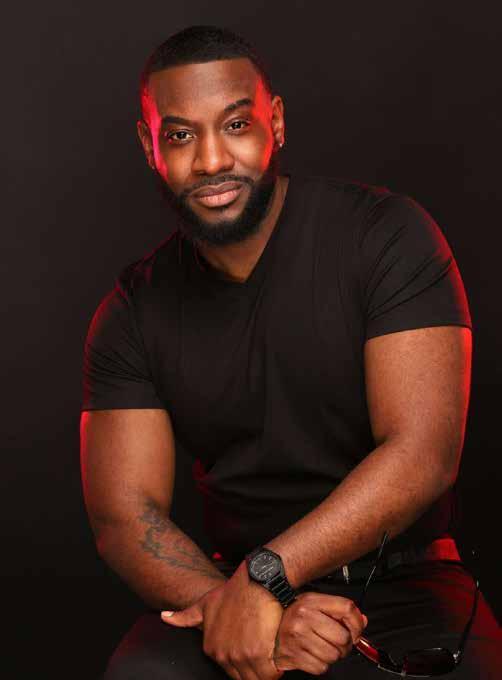
I've already made… for the most part."
BSM: How do you see the future of music evolving, and what role do you hope to play in it?
SM: "As I mentioned previously, I believe the key to success is mentorship. Jay-Z spoke about this in an interview he did with Kevin Hart where he talked about his mentorship of Kanye West and Rihanna and how it helped them achieve their goals and success earlier than he did.
Even though I still feel like I have a lot to learn as technology and business models evolve, I believe coupling what I learn now with what I've already learned can prove to be invaluable to those who wish to follow in mine and my colleagues' footsteps, which is why I've partnered with some organizations to form a team to create my nonprofit organization, Power Move Education & Development Group.
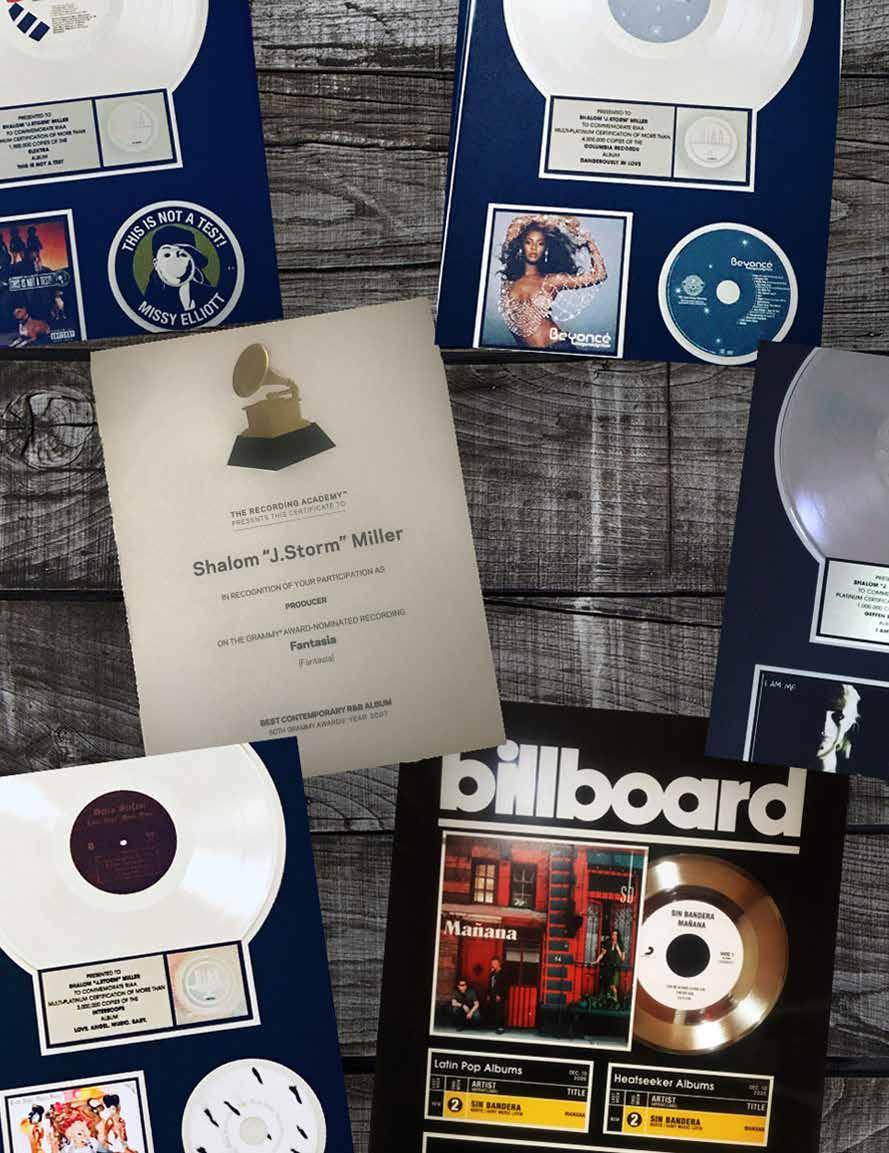
This branch of our organization focuses on education, mentorship, and development in the music industry, preparing the next generation of music industry hopefuls and shaping them for success."
BSM: Can you tell us about any upcoming projects or collaborations you're excited about?
SM: "Yeah, man, it's really been a roller coaster so far this year in a lot of ways, but it's brought some great opportunities to collaborate, which is my favorite part about this business.
One of the artists I've been working with is a phenomenal up-and-coming pop and R&B artist, Georgia Starnes, who just released a really amazing R&B dance record that's quickly picking up heat.
I've been working with the super talented 2' Live Bre. We just shot the video for a song that we're going to release next month called “2 The Head”. That song is going to go crazy!
I just got back from Memphis working with up-andcoming R&B sensation Carey Washington. She's signed to NLE Choppa’s record label, and we've been working on some really big R&B records that take the sound back to when R&B was strong and just really fun and felt good, but at the same time, we're adding something new. Trust me when I tell you this girl can SANG.
I'm also currently working on some international projects with Sony Music Group, as well as collaborations with Drumma Boy and who knows what else will come up lol.
In addition to music endeavors, I've been working in the music education sector with different companies, schools, and institutions such as BMI, SESAC, Berklee College of Music. I'm also a music educator ambassador with the MLC (Music Licensing Collective). Tomorrow, I'm honored to participate as a panelist for the 1st National HBCU commercial music conference at Tennessee State University, helping to celebrate the 25th anniversary of
the school’s commercial music program.
BSM: How do you think your cultural background influences your music and collaborations?
SM: "My music definitely has strong East Coast cultural influences, and my upbringing in gospel adds a lot of musicality that comes through in my music. But also, working with such a diverse spectrum of artists has given my sound a more pop edge. My collaborators like the fact that my sound is very hard-hitting yet still melodious, and at the same time, very commercial."
BSM: What legacy do you hope to leave behind in the music industry?
SN: "My desire is to contribute positively to the music industry and educate future generations. I want to inspire positive rebellion. I want creatives to feel confident in knowing that they don't have to dress, sound, or act like the majority just because it's trending. I'm not antitechnology or anti-algorithm, but I am somewhat of a non-conformist when it comes to sacrificing value. I believe that everyone has something unique to offer the culture, especially when it comes to music, and I want the Next Generation of producers and artists to feel like it's cool to tell their own unique story and express their ideas and vibes."
BSM: If you could collaborate with any artist, living or deceased, who would it be and why?
SM: "Man, this is a tough one because I already got the chance to work with B.I.G. posthumously on the Biggie Duets album. I mean, obviously, the go-to would be the King of Pop Michael Jackson, but that's too easy. I think Rick Ross and I would come up with something crazy. He has a great ear for music, and his beat selection is impeccable. At the end of the day, I want to work with anyone who is talented and wants to work with me. I love exchanging energy and ideas, and as long as I get to do that, I'm happy. I'm still having so much fun with this."
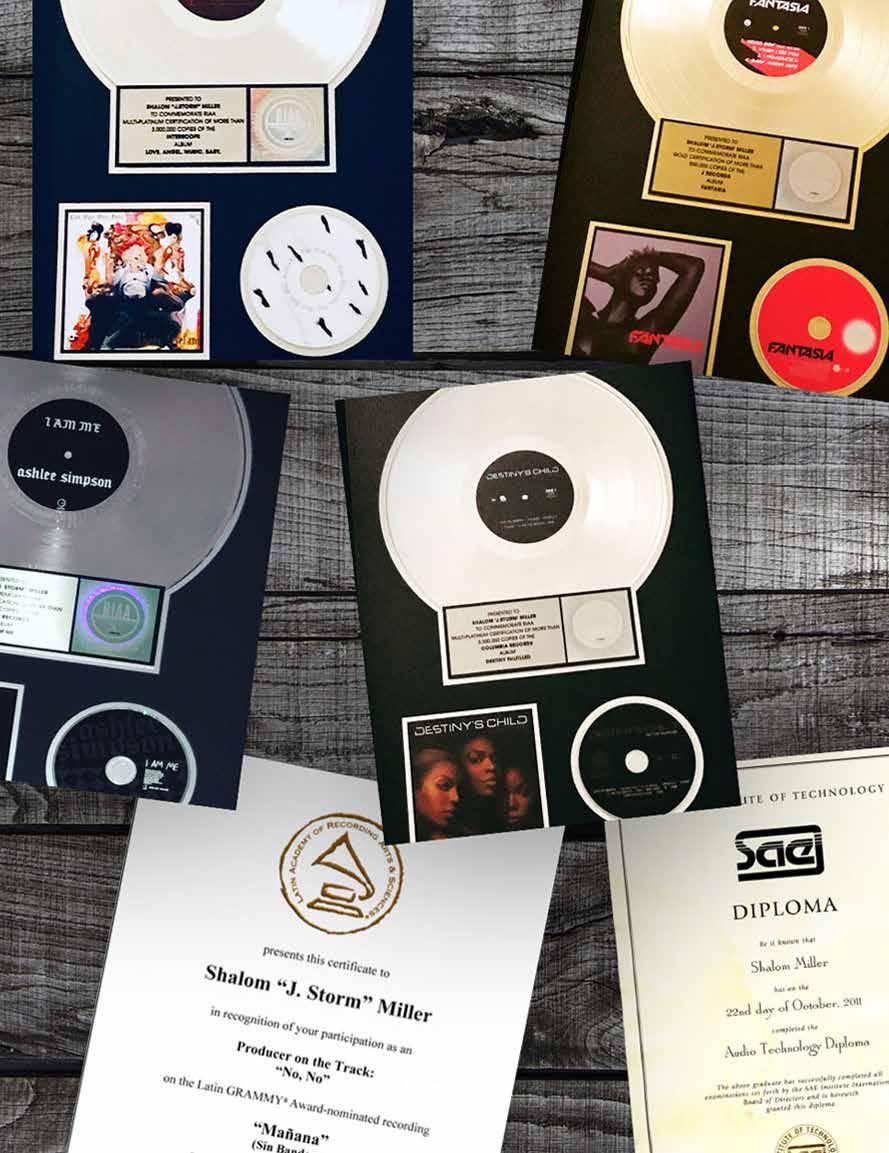

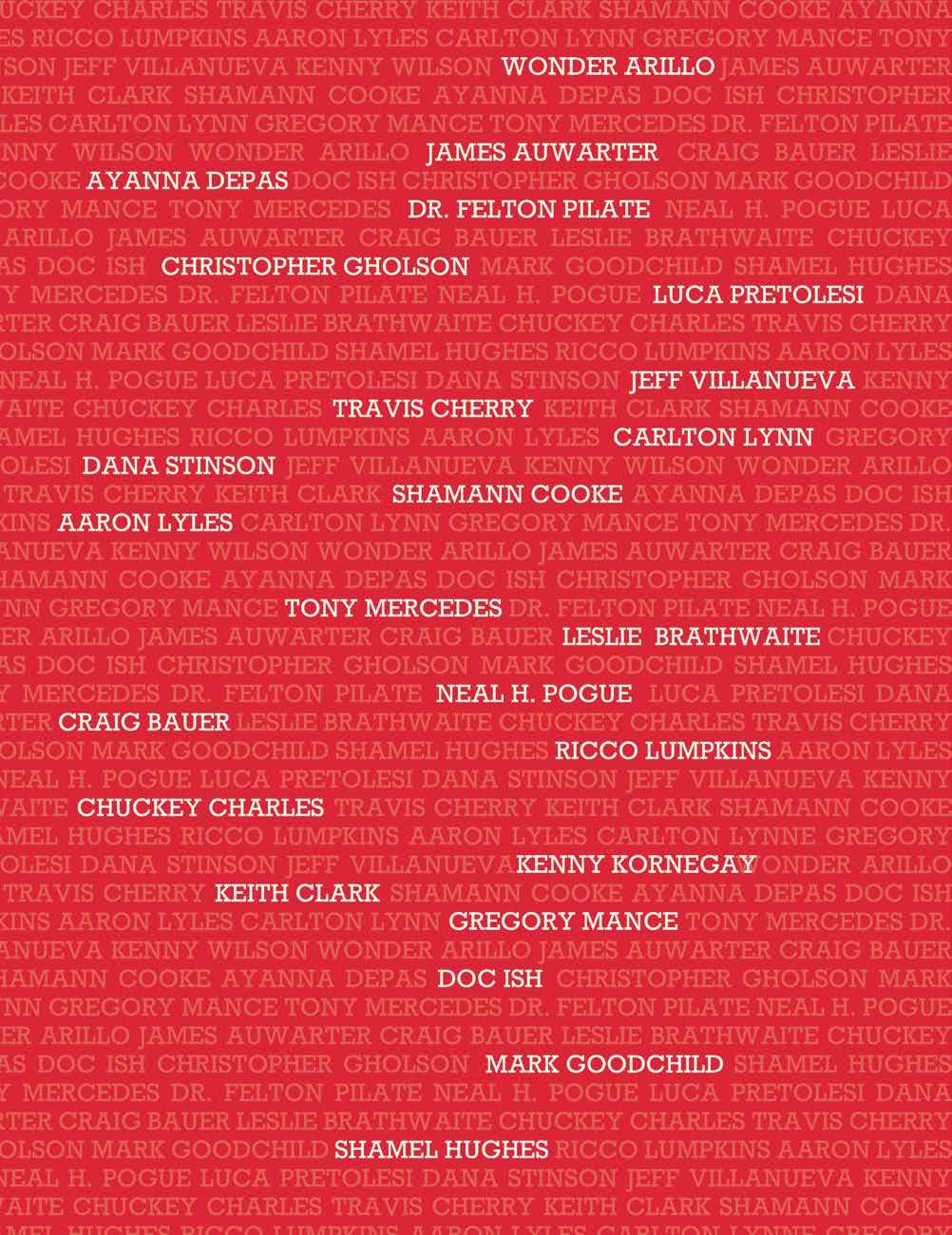

GRAMMY AWARD WINNING PRODUCER
Wonder Arillo is a Grammy and ASCAP award winning music producer. Ariilo has produced multiplatinum hits for Drake, Lil Wayne, 2 Chainz, Fall Out Boy, and T.I.–which he earned a Grammy for his work on the single “What You Know.” Additionally, Wonder has high caliber production credits include: "Feelin' You" (2 Chainz featuring Drake & Lil Wayne), "I Do It" (with D. Rich), "Betta Knock" (Playaz Circle featuring Ludacris), "Penitentiary Chances" Remix (YOUNG TURK). Arillo also plays multiple instruments and engineers as well and well known for making hits straight in the studio and from scratch. His concepts, writing and working relationships with artists bring out their best performance, spotlighting his skills as a producer and elevating him as one of Hip-hop's brightest young producers and hit makers.

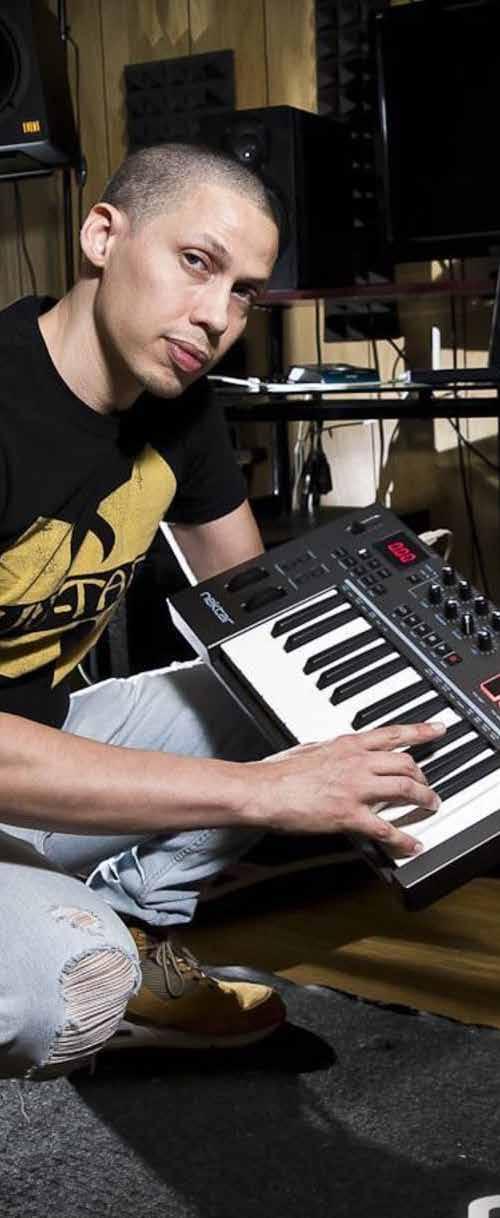
BSM: Where are you originally from?
WA: "I was born and raised in Atlanta, but my family came here from Mexico."
How did you get your start in producing?
WA: "I first started producing songs in college (Georgia State University). My roommate, Aaron Byrd, was a songwriter and we would write songs together and make arrangements on a 4-track cassette recorder, acoustic guitars, and an Alesis keyboard that I played live. I had no clue about sampling, MIDI, computers, or drum machines."
BSM: What studios are you currently working out of or do you have your own?
WA: "I do most of my work at my home studio but I also work out of Black Hole Studios when it's time to record vocals."
BSM: Do you engineer also? How important is a good mix to a hit record?
WA: "I started my professional career as an engineer. A good mix is extremely important, I can't think of a single hit song off the top of my head with a bad mix. I always compare the elements of a song to ingredients in food - even if you have the world's best ingredients, they will still taste horrible if you combine them in the wrong proportions. Having your good ingredients cooked well, and blended perfectly will make the dish delicious. Same thing with music."
BSM: How many Grammys have you received and for what songs?
WA: "Just one, for T.I. "What You Know."
BSM: How did you feel when you won your first Grammy?
WA: "It was surreal. I felt grateful and happy. It was a little misleading for me. That was my first big placement and I thought all of my songs would be that big but of course they weren't."
BSM: How was it working on the T.I album and what did you actually do?
WA: "When I made the foundation for that beat I had no idea it would go to T.I. I actually did the majority of it at my grandparents house in Mexico where I was visiting for Christmas. I was working as DJ Toomp's engineer at the time so it was in the back of my mind somewhere, but I had no idea it would be that big. The beat almost went to several other artists first : Jeezy had it but got a bad case of laryngitis, Benzino and Baby(Birdman) had it at one point(their version made it toHipHopDx), and 8ball and MJG also recorded to it.
It finally ended up with T.I., but I didn't make it to that session. Kind of a funny story: I was teaching DJ Toomp how to use Reason at the time and he would often call late at night needing technical support. I was asleep and my phone rang at around 4 am, when I saw Toomp's name pop up, I hit ignore,thinking it was a simple Reason question, and went back to sleep. My mistake. The next day I found out he was calling to tell me he was in the studio with T.I. recording 'What You Know.' The rest is history."
BSM: What records did you work on with Drake?
WA: "I co-produced a song called 'I Do It' by 2 Chainz featuring Drake and Lil Wayne. The beat was originally produced by
WA: "One of the songs we did was 'I Do It' from the previous question, and his part was already recorded when I got involved. But before that I had done another song featuring Lil Wayne, called 'Big Dawg' by Playaz Circle. 2 Chainz (known as Tity Boi at that time) was doing a lot of touring with Lil Wayne and Young Money. I was engineering and producing for Playaz Circle at Disturbing Tha Peace's studio in the back of their offices in Atlanta. Tity Boi took the beat with him on the road and played it for Wayne who sang the hook and played electric guitar on the track! I didn't actually see him in person until we shot the video."
BSM: How important is networking and building relationships in the music business ?
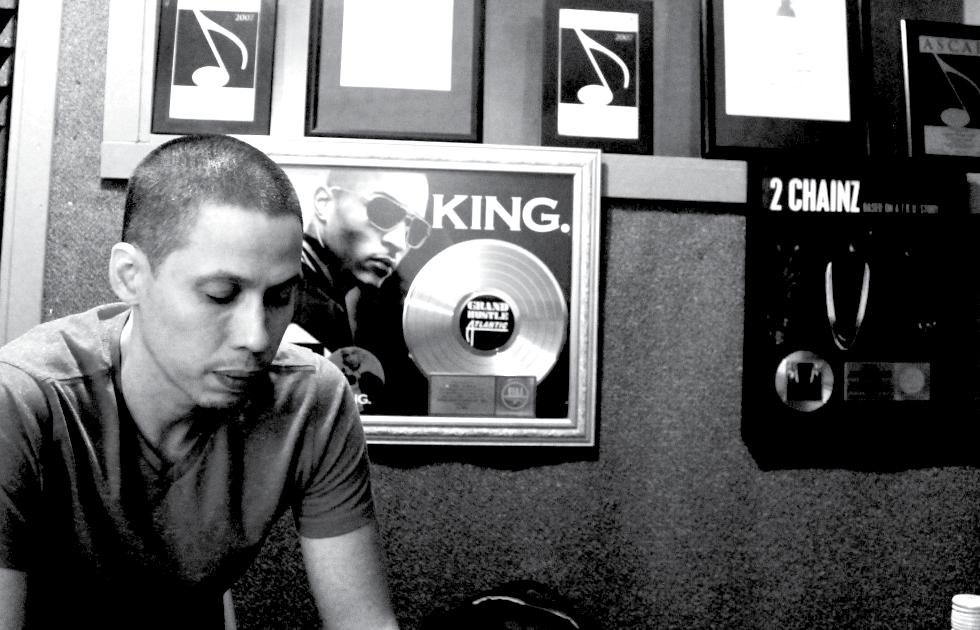
D Rich with some sample elements added by Diplo. When Def Jam couldn't clear the sample, 2 Chainz called me to replace it with original music that still fit in with the beat. (This was something I had done for him previously when he was in Playaz Circle on a song called 'Turbulence' produced by Big Hurt.) It was getting close to time to turn in the album and he needed it done the next day. I took the session on my hard drive back to my studio and made 2 different versions for 2 chainz to choose from. He picked the first one, which you can hear on the song now. That song was on two different 2 Chainz releases as well as a BeatsByDre commercial."
BSM: How was it working on the project with Lil Wayne ?
WA: "I used to want to believe that only the quality of your music matters. But I was lying to myself. People perceive your music differently when they know you, like you, and/or trust you. In other words, knowing someone can make your beats sound better to them, or at least make them more receptive and open to listening. Also, knowing the artist's tastes and what mood or vibe they are in is extremely important. Once you've shown someone what you can do, they will continue to call on you to do that same type of thing. Plus, artists hang out with other artists so there will be a snowball effect the more you hang around."
BSM: What do you look for when it comes to working with new artists?
WA: "I think the answer to that question has changed somewhat over the years as I mature and as the musical landscape changes. I think 'sound-alike artists' are a huge problem these days. So I really like finding artists that don't sound like anyone else. Also, I'm really fucking sick of so many of my rapper peers losing their lives over senseless violence. I used to believe 'oh it's just lyrics, it's just entertainment,' but I find myself steering away from overly violent or negative artists. I see the connection between the lyrics and the lifestyle too clearly to pretend anymore. So I look for artists who talk about other things besides just shooting and killing. I also love great melodies, so I've been working with a lot more singers and songwriters lately."
BSM: What is the secret to longevity for a producer in the music industry?
WA: "The secret to longevity is don't pigeonhole yourself into one idea of what a producer has to be. Making rap beats for artists on labels is being a producer, but it's only one way to be a producer. You could help songwriters arrange their songs. Create instrumentals for all kinds of visual media, be an educator, social media influencer, lease beats, and I'm sure more opportunities are being created every day. Follow what you're interested in AND what you're good at. And understand that your interests and strengths may change and that's ok too."
BSM Can you name some of the other artist that you've worked with?
WA: "Ludacris, Killer Mike, Fallout Boy, Jeezy, Raekwon from Wu Tang, Monica, Rittz, and Rich Homie Quan."
BSM: What was your most memorable recording session?
WA: "One day when I was working at Street Execs studio, I got to assist with a session with Kanye West and Mike Dean. Honorable C Note also came in and contributed to that session."
BSM: Has streaming changed the business model for the producer as much as it has for the artist? If so how?
WA: "Of course. It's interesting because now there are a lot more independent artists on the same playing field as the majors. People don't always have as big of a budget for upfront advances But that leaves a lot more room to negotiate for more points and percentages on the backend. If you choose the artists you work with carefully, and think of the beat as an investment in someone you believe in, you can still potentially make a lot of money."
BSM: What is your preferred gear and software in the studio when cranking out hits?
WA: "I like to switch my setup up a lot because I don't like getting used to a certain work flow, it kills creativity. I like to feel like a beginner because that's where the happy
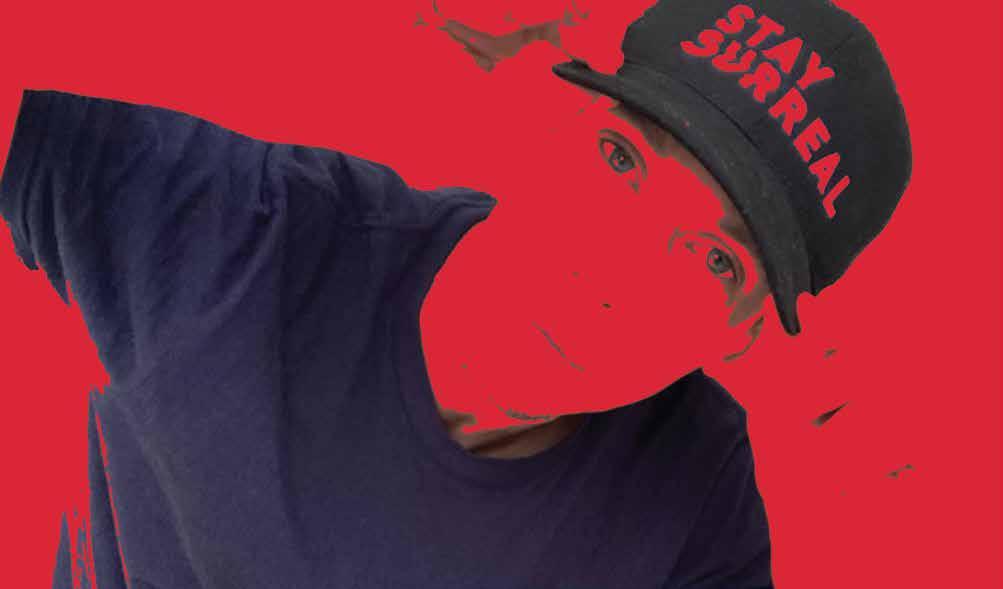
accidents come from. I've gone from Logic and Acid on a PC (way back in the day), to Reason, to an MPC 60II with ASR10, Maschine, back to Logic on a Mac for many years, and now I'm running FL on a PC."
BSM: Would you ever start your own record label?
WA: "I have tried signing artists in the past and it was a negative experience for me. Maybe with the right artist with the right work ethic, but I have no desire right now. Seems like more work than fun. But with that being said, I do release my own music from time to time, sometimes instrumental, sometimes featuring an artist. It's so easy and cheap nowadays with all the digital distributors. Right now the focus is more on making music available to pitch for sync licensing than trying to market and promote a superstar artist."
BSM: Is there anyone or any other genre of music you haven't worked with already that you would like to work with?
WA: "I would love to work with Andre 3000, the greatest rapper of all time and one of my inspirations to do what I do. On the other end of the spectrum I would love to produce a song for Gucci Mane, another favorite who I have engineered for on a few occasions, but haven't gotten a chance to produce for yet. On the R&B side, I really like SZA's voice and writing, I would love to work with her. Other genres, I have been listening to a lot of Afrobeats
and working on my skills there. Tems, Ayra Starr, Davido, Burna Boy, I would love to work with any of them. Also the drumming in Indian music is insane and like no other music! I would love to collab with some Indian artists, maybe for a Bollywood soundtrack, those songs are epic. Which brings me to another big goal, I really want to score movies."
BSM: Do you have any new projects you would like to tell us about?
WA: "Not specifically. But I will mention an indie singer/ writer/producer that I've been working a lot with over the last few years who doesn't get the attention or recognition she deserves. Her name is A'justice and she is just plain dope, super soulful, has a super smooth unique voice and even though she considers herself a singer, she can actually rap better than a lot of rappers. You can find her on streaming services, if you want to hear some of my favorite songs I produced for her, they are called: 'Thug Love,' 'Airplane Mode,' 'Foggy Haze,' and 'Holiday Love.'"
BSM: Any advice for up and coming producers trying to make their mark in the business?
WA: "Make the music that YOU like. You will eventually get good enough at it that you will attract others who like the same things. If you don't love the music you're making then you won't believe in it, you won't go hard for it, and you won't keep pushing when things get difficult."

" WHEN I MADE THE FOUNDATION FOR THAT BEAT, I HAD NO IDEA IT WOULD GO TO T.I. I ACTUALLY DID THE MAJORITY OF IT AT MY GRANDPARENTS HOUSE IN MEXICO WHERE I WAS VISITING FOR CHRISTMAS. " — wonder arillo

ames Auwater is a Grammy Award winning sound engineer who started out as a musician, first on the trumpet and then as a rock guitarist/front man. While attending Stivers High School For the Arts in Dayton, Ohio, interning at ReFraze Recording Studio and finally graduating with a 96.31% GPA, and a degree in Recording Arts from Full Sail University (in Florida), Auwater’s career path was clearly in sight. Returning to the Midwest, and initially taken under the wing of Craig Bauer (owner of Hinge Studios), James began to make a name for himself in Chicago and quickly rose through the ranks. James is known for his diversity and working within practically every genre of music over the years. His ears are highly sought after by leading acts in the Rock, Jazz, Classical, Gospel, and Hip-hop communities, among others. A few of these notable clients have been: Kanye West, Yo-Yo
Ma, Kirk Franklin, Kurt Elling, Adam Levine, Tom Higgenson (Plain White Tees), Lupe Fiasco, Hezekiah Walker, Rihanna, John Legend, Rodrigo Y Gabriela, Saba, and Mavis Staples.
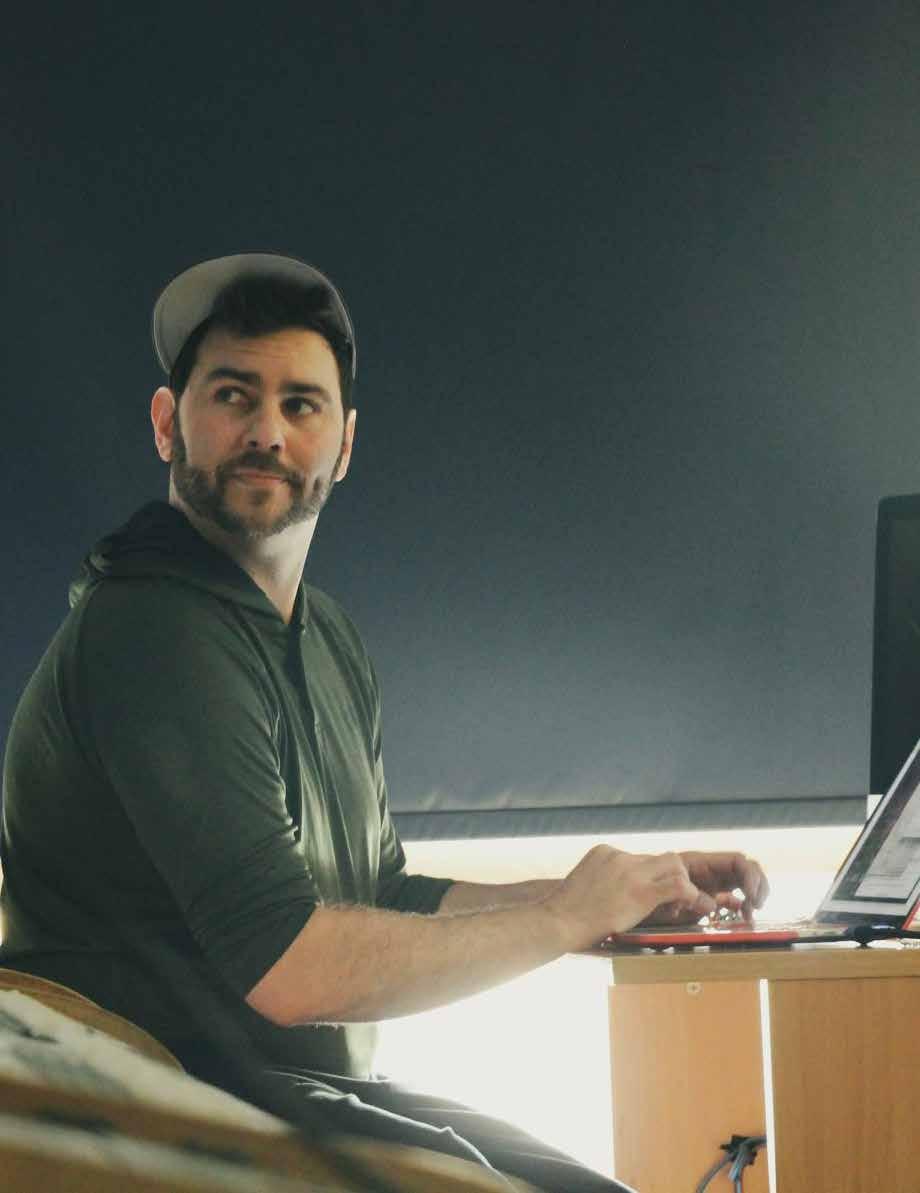

BSM: Congratulations on your success, how does it feel to have so many Grammy nominations?
JA: “Well, I like to clarify: I’ve been credited on 31 Grammy nominations. NARAS hasn’t actually nominated me 31 times (not sure anyone has ever been nominated that many times, haha). I do have 31 Grammy certificates though, and out of the 31, I garnered one (1) actual Grammy statue. 1 for 31, haha. And I still feel lucky, honored, and humbled to have been recognized for all the hard work.”
BSM: Did you go to school for audio engineering and if so where did you go?
JA: “Yes, I graduated from Full Sail University in 2003.”
BSM: What piece of gear or software is a must have in the studio when mixing a record?
JA: “A good listening environment is crucial. That’s made up from a combination of the D/A converters, monitor controller (a lot of people forget about this or undervalue this part of the signal chain), speakers, and room acoustics. Beyond that, I’m definitely most comfortable in Pro Tools for my DAW. I have some go-to plugins, sure, but I think the only one that isn’t really interchangeable would be Melodyne. I’m always using a variety of tape emulation/ saturation plugins to help create a “feel.” The ones I love and use a lot are Softube’s Tape, Slate’s VTM, UAD’s Ampex, and UAD’s Studer.”
BSM: Is a good pair of headphones important while in the studio?
JA: “Yes and no. It’s certainly nice to have a good pair of headphones as an additional tool, but for tracking purposes, any decent pair will do really. And while mixing or mastering, the speakers (and the room’s acoustics) are more important than headphones. If you have a good pair of headphones, they can definitely be useful as an additional reference point. All that being said, I do get a ton of use out of my beyerdynamic DT 990 Pro headphones.”
BSM: How important is it for a song to have a good mix? Can you explain?
JA: “It’s very important. However, I do not want to overstate its importance either. What’s most important is the songwriting itself...the talent of the artists/musicians... their performance and delivery...the song’s arrangement and production...etc. Then, once all of that is in place, subpar engineering can mess up the whole thing (or at least not allow it to reach its full potential). The whole process is a team sport, and I think it’s important to realize this. If one person,in any role, isn’t pulling their own weight, it negatively affects the entire song. A great mix can elevate an already good song, certainly...conversely, a really bad mix (or master) can kill a song.”
BSM: How was it working on the Kanye project? And what exactly did you do?
JA: “I worked with him off and on for several years back when he was still coming through Chicago a lot. Sometimes I was recording, sometimes I was assisting, sometimes I was mixing, sometimes all of the above in the same day. Overall I owe a lot to Kanye, as the recognition I received from working with him really made my career. They were always hectic times, but undoubtedly worth it in the end.”
BSM: What’s the difference between mixing and mastering?
JA: “Lupe’s ‘Food and Liquor’ is still to this day my all time favorite album that I’ve been a part of. It’s just so classic. Greg Magors had been his primary recording engineer for years, but I stepped in to play a pretty big role too. I recorded ‘Daydreamin’, which went on to win him a Grammy as well (in hindsight, somehow that’s been his only win, even though he’s been nominated 12 times). I also did a good bit of work on ‘The Cool.’ I tracked parts of ‘Superstar’ off that album, recorded a bunch of other random bits, and of course helped mix the majority of tracks on both of these albums. This was done at Hinge Studios, with Craig Bauer at the helm.”
BSM: Do you have your own label? Do you plan on starting your own label some day?
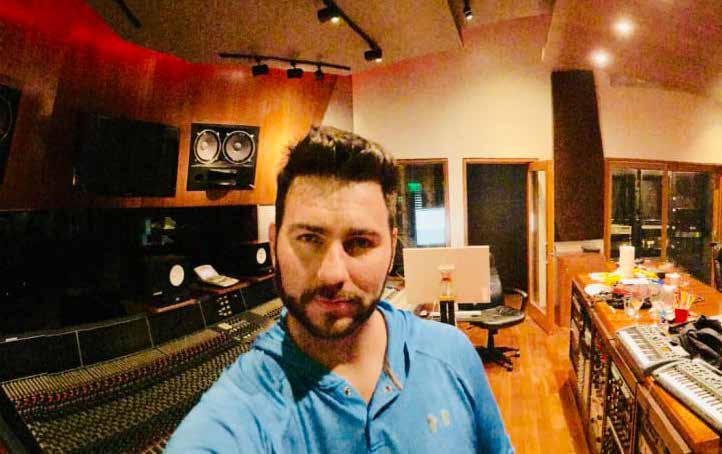
JA: “Mixing means taking all of the individual elements, and committing them to fit within the Left speaker and the Right speaker (unless, of course, you’re mixing in surround or other format beyond stereo). In the mix, you use leveling, panning, eq, and effects to complete the vision of the song. You can certainly be creative in this phaseof the process (think automation/delay throws, reverb swells, filter sweeps, etc etc). In mastering, you take that final stereo mix file and you sweeten it and perfect it and ensure that it will translate to all playback systems as best as possible.”
BSM: How was it working on the Lupe project and what did you do?
JA: “I do not have my own label, no. I may someday, but it’s honestly not something I’ve given a lot of thought to yet. Maybe I should think more about this! haha.”
BSM: How important is maintaining good relationships in the industry?
JA: “It is of the utmost importance. “It’s not what you know, it’s who you know” right?? Equally as important is knowing: ‘it’s not what you’re worth, it’s what you can negotiate.’ However, even if you’re great with people, and can talk the talk, at some point you’ll have to prove that you can walk the walk. Don’t over-hype your skills and get exposed that’s a sure way to destroy any good professional relationship.”
BSM: Who were your musical influences growing up?
JA: “I appreciate and enjoy just about all music, and have found success working in nearly every genre. I grew up on a lot of rock and reggae, but eventually gained an equal love for hip hop. Jazz and classical have a truly great time and place for me. R&B, folk, electronic, they’re all so unique, and I love variety. I even have a soft spot guilty pleasure for a lot of pop songs. Specifically though, growing up, some of the albums that I listened to the most were from artists/bands like: Nirvana, Pearl Jam, Radiohead, Bob Marley, Sublime, 2Pac, Rage Against the Machine, Tool, Mos Def, Sigur Rós, Blue Karma, etc, etc.”
BSM: How was your experience working with Rihanna and what did you do exactly?
JA: “Well, I only very briefly got to work with Rihanna while she was passing through on tour. She’s very professional, and her and her producers are all extremely talented. Although multiple songs were worked on, only 1 made the album in the end. I played my small engineering role, and enjoyed the vibe. To this day, it was the easiest platinum record that I’ve earned, haha. But, given how grueling it was to complete other notable projects, this was a nice change of pace in deed!”
BSM: Do you work alongside the producer of the
song/ track when doing a mix?
JA: “Sometimes I do, sometimes it isn’t really necessary. It generally boils down to logistics, like if we’re in the same city or not. Especially with streaming abilities directly from within the DAW now via AudioMovers, it makes real-time mix adjustments so easy to do together remotely, when necessary.”
BSM: Do you have any ventures outside of music that you would like to tell us about?
JA: “I’m a full time single father to my beautiful 12 year old daughter, Miela Marley Auwarter. This keeps me quite busy.”
BSM: What’s the big difference between analog and digital mixes?
JA: “I personally think that with good analog gear, I can often achieve the desired sound quicker. However, to then document the gear settings and to then inevitably have to recall the gear settings for mix tweaks at a later time, the overall process is actually slower than staying in the box (digital). Also, analog gear is quite expensive, both to purchase and to upkeep, and in general is much more susceptible to unexpectedly causing issues. I love analog gear. I’ll record through every bit of analog gear that’s at my disposal at the time, absolutely, but for me it just does not
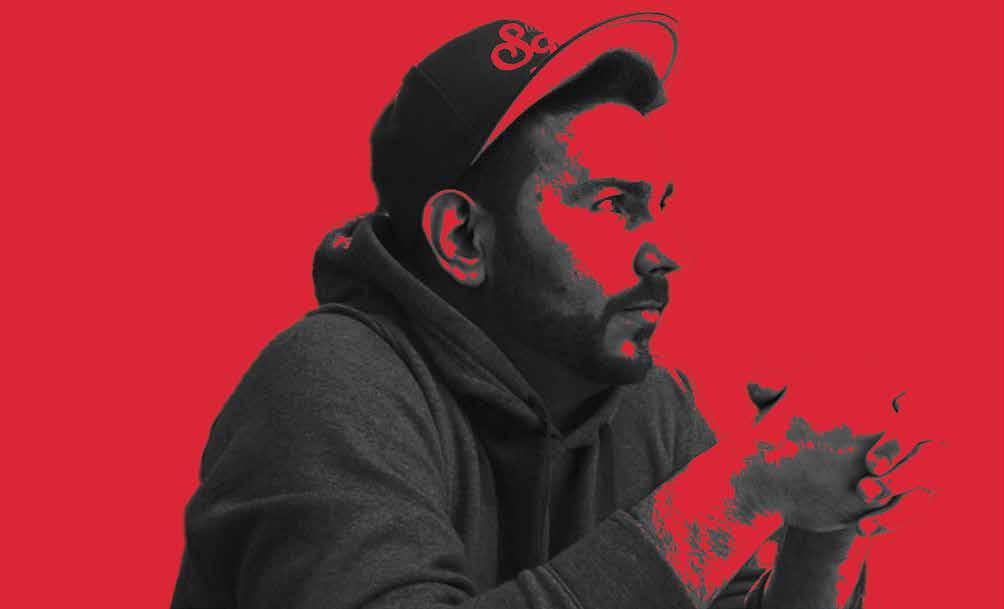
make sense to mix that way any more. Sonically, when a mix is done by a pro, the end listener will never know (or care) whether it was done analog or digital. It’s just a preference, not ‘right’ or ‘wrong’ – but analog mixing is not part of my workflow any more.”
BSM: What studios are you currently working out of?
JA: “I do the bulk of my work out of my own studio, Coda Room Audio (www.codaroomaudio.com).”
BSM: Has the introduction of streaming changed the business model for the engineer? Can you explain?
JA: “From the perspective of the artists and labels, streaming has absolutely changed their business model. And from that, by default, it’s trickled down and affected studios and engineers as well. We’re all in much more of a singles-driven industry, instead of full albums. Also, the turnaround time on a project can be much quicker without having to wait on physical pressings. Sometimes that’s a very cool and useful thing, other times though it can result in a rushed sounding final product. Beyond business, for engineers I think it’s also a lot about logistics and technical standards too. Specifically, I think the mastering engineer needs to be aware of the different LUFS (loudness) standards. Hypothetically, with streaming, it’s ended The Loudness Wars...however, in practicality, for better or worse, that’s not been case.”
BSM: Any advice for up-and-coming engineers mixing at home?
JA: “99% of the time, do not put a limiter on the stereo bus while mixing! That is part of the mastering process. Mix while you’re in the mixing phase, and master while you’re in the mastering phase. Just cause it’s louder at the moment, does not mean it actually sounds better. Hear me now, believe me eventually. Invest in acoustic treatment for your room first before buying expensive monitors. If you have unideal room acoustics, have playback volumes low-ish (the sound waves will excite the room less at low volumes, making what you’re hearing in the sweet spot between the speakers much more accurate).
Gear lust is real. We’re all guilty of it. But don’t make excuses about mixing results due to lack of gear. Yes, some gear makes things easier or quicker perhaps, but there’s almost always a solid workaround to still get the sound you’re after.
If you need a tool that is truly necessary (a la Melodyne for polyphonic tuning, etc), then pay for it and move on. When there is budget, definitely let an outside professional master your mix for you. So many reasons for this. Patience. This is an art form that takes time and passion, but eventually I think things just start to click. Stay humble. Stay hungry. There is always someone better than you. I’m still learning every day.”

IT’S NOT WHAT YOU KNOW, IT’S WHO YOU KNOW, RIGHT?? EQUALLY AS IMPORTANT IS KNOWING: IT’S NOT WHAT YOU’RE WORTH, IT’S WHAT YOU CAN NEGOTIATE. HOWEVER, EVEN IF YOU’RE GREAT WITH PEOPLE, AND CAN TALK THE TALK, AT SOME POINT YOU’LL HAVE TO PROVE THAT YOU CAN WALK THE WALK. DON’T OVER- HYPE YOUR SKILLS AND GET EXPOSED—THAT’S A SURE WAY TO DESTROY ANY GOOD PROFESSIONAL RELATIONSHIP.
— JAMES AUWARTER

MULTI-GRAMMY AWARD WINNING SOUND ENGINEER
raig Bauer is an American Grammy Award winning mixing engineer and record producer. He has been nominated for two Album of the Year Grammy Awards for his work on Kanye West's multi-platinum album "Late Registration" and double platinum follow-up album, "Graduation." He won a Grammy Award in 2008 for mixing The Clark Sisters' 2007 album, "Live: One Last Time." In 2012, he mixed Ed Sheeran's live performances at HINGE studios as part of The Warner Sound "The Live Room" series. Craig has worked with high-profile artists across multiple genres, including; pop, singer-songwriter, electronica, rock, country, jazz, hip-hop, gospel and R&B. His clients include: Kanye West, Lupe Fiasco, Justin Timberlake, Ed Sheeran, the Clark Sisters, Janet Jackson, Rihanna, Common, Jennifer Hudson, Lil' Kim, Wu-Tang Clan, Da Brat, Brian Culbertson, Richard Marx, 98°, Yolanda Adams, Steve Cole, Dave Koz, Styx, Donald Lawrence, Destiny's Child, Public Enemy, Hezekiah Walker, the Silhouet, and the Smashing Pumpkins.
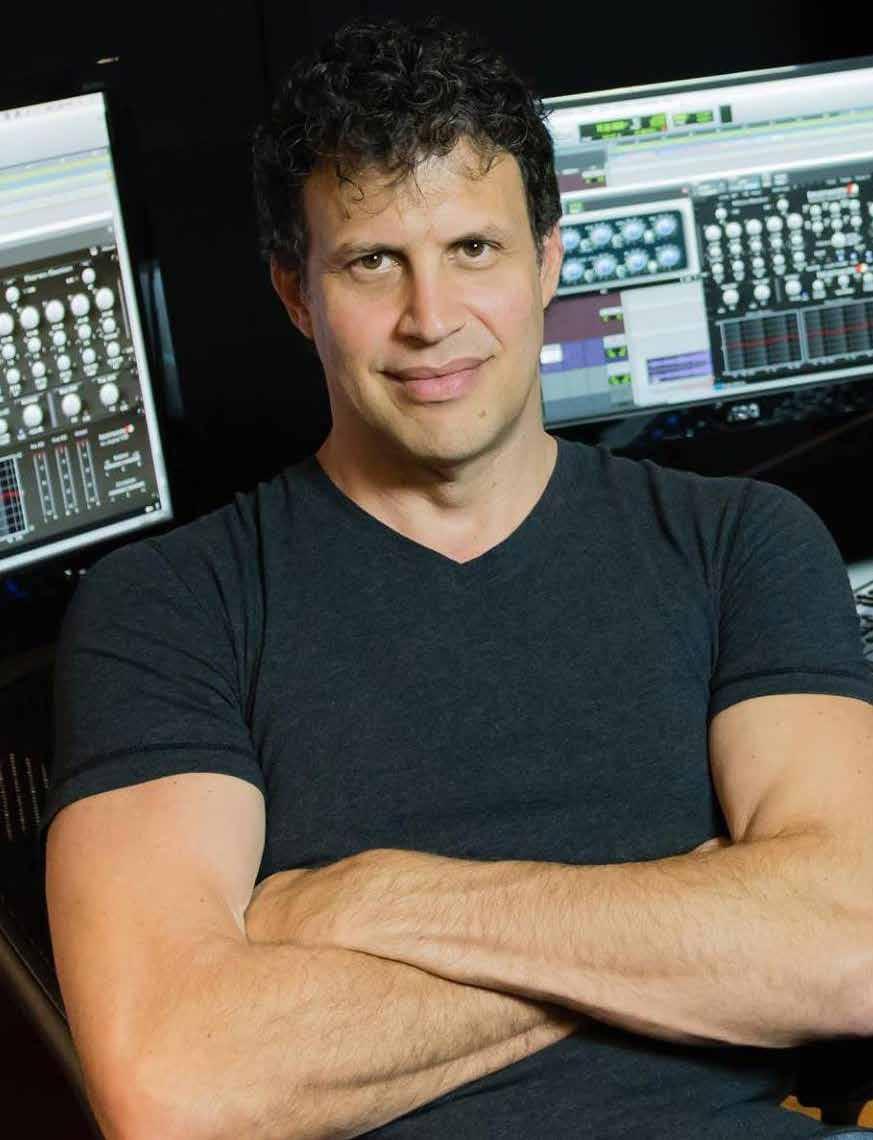
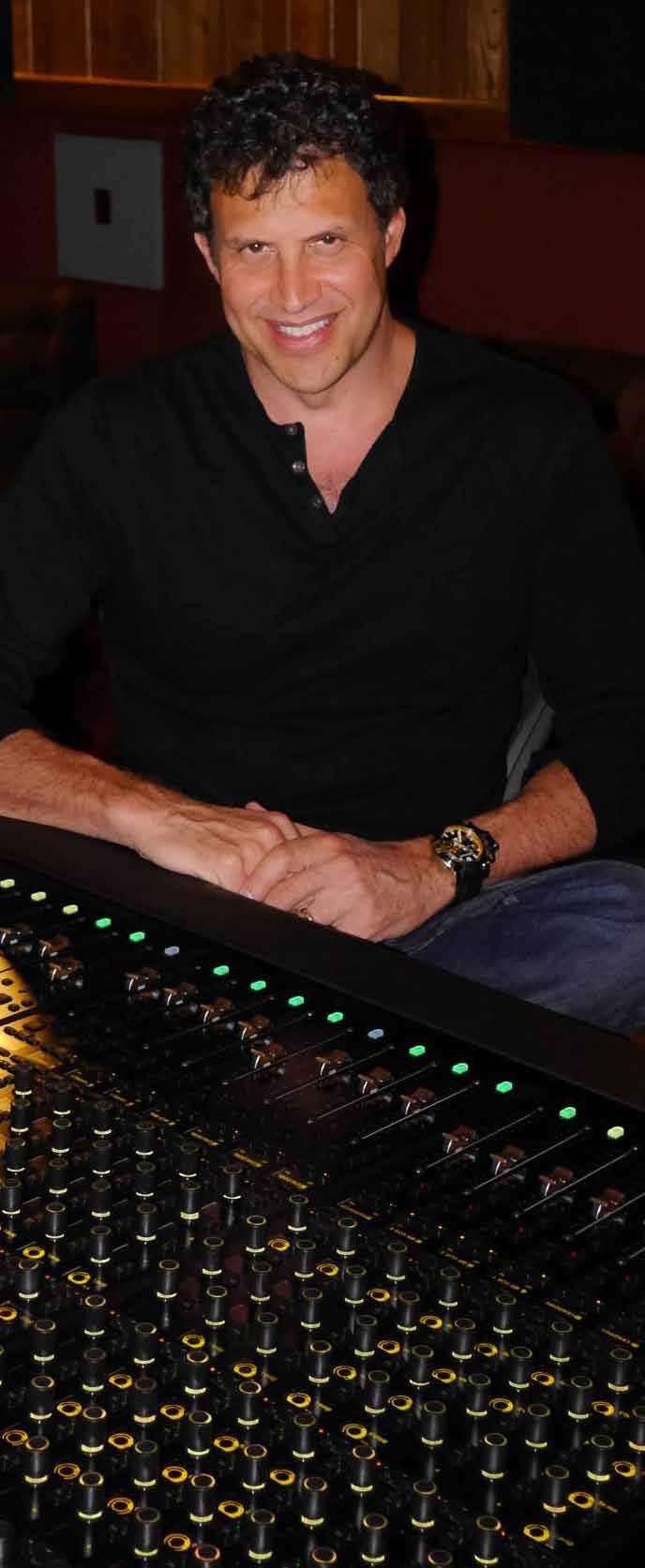
BSM: Tell us about your first experience in a recording studio.
CB: "I walked in to a studio in Cleveland, Ohio dragging in a Fender Rhodes and they stuck two Neumann 87s in front of us and asked us to do a short cover. I'm trying to remember what the song is... I remember having reverb in my headphones and it was over that second. In a studio playing something live, hearing your voice in a microphone, literally that my faith was written in that first 30 seconds. And then the only thing I ever thought about from that moment on was how do I do this. How do I do this? I came from a very middle class family and from that moment I started bugging my father about buying some recording equipment and the only thing that was available to you know amateurs with little four tracks I bought this Four Track Channel and my father made a deal with me that if I went and got a job, and paid it back, that I could buy this thing. I still have the invoices all of $2,000 worth of stuff and I ended up getting a job washing dishes at a country club and it took forever to pay it back and I spent every waking minute sitting there with that four track, recording other people's stuff, not even my own. That's what started it off.
BSM: What is the most exciting project you have worked on?
CB: "One of my very first clients was Kanye West and then from there the rest is as we say. History, well it's probably the most notable I spent 15 years with him, pretty much day in and day off for 15 years. I obviously I can't go anywhere and mention anyone who knows anything about music and not be familiar with the work that I do with Kanye, that's just not possible. I have two Album of the Year nominations with him. I've spent a whole lot of time with him before anyone ever knew who he was. And then there's, you know, growing up in the '80s and late 70s. The '80s music that I listened to, and then working with some of those artists, you can't understand how those things could possibly happen and they have many, many times. I still sit there when I allow myself to think I did this and I've worked with my heroes and it's just a phenomenal feeling when you let yourself do it. I grew up a huge Styx fan and in the seventh grade, my junior high school won a contest in have Styx play at my junior high school by collecting Wrigley gum wrappers. The day of the concert they didn't show up because Tommy Shaw was ill. Nearly 20 years to the day the phone rings and when I'm in my office in Chicago and it's Dennis DeYoung and I thought someone's pranking me, and he's like when we're working on a new record we want to book your studio, and I'm like how does this happen? I was so intimidated. They came in and they spent the day and I don't think I said two words to anybody in the band the entire day. And then are you busy tomorrow and I'm like not anymore. One day turned into two, two turned into five, five turned in to two weeks...I was wildly intimidated the entire time and finally at the end of that run, Dennis DeYoung was sitting next to me and I
said I got to ask you a question. In 1977 my junior high school won a contest for you guys to play at the school, and he's looking, oh-! you talking about the Wrigley gum wrapper contest? And to this day I've worked on every single thing he has ever done. So it is awesome to know the personal things that you're tied to. Obviously the top of my list I've worked with also includes Michael McDonald, which was mind-blowing, just mindblowing."
BSM: Tell us about the Grammy winning gospel project with the Clark Sisters
CB: "The producer of that record is guy named Donald Lawrence. Donald is an institution in the gospel community. He's one of
and when that one was nominated and won. I remember as a kid sitting on my parents bed every year the Grammys came around, we didn't have a family room, we'd hang out out in my parents bedroom and sit down and watch TV. I never missed the Grammys and it was always this insane dream I had. And then one day you're nominated for Grammy and then one day you win one! It might be somewhat interesting to people who care about this stuff that these things pick you more than you pick them, from a musical standpoint."
BSM: How do you keep up with the latest trends and techniques in music production and mixing?
CB: "That's a good question and an interesting one. For guys
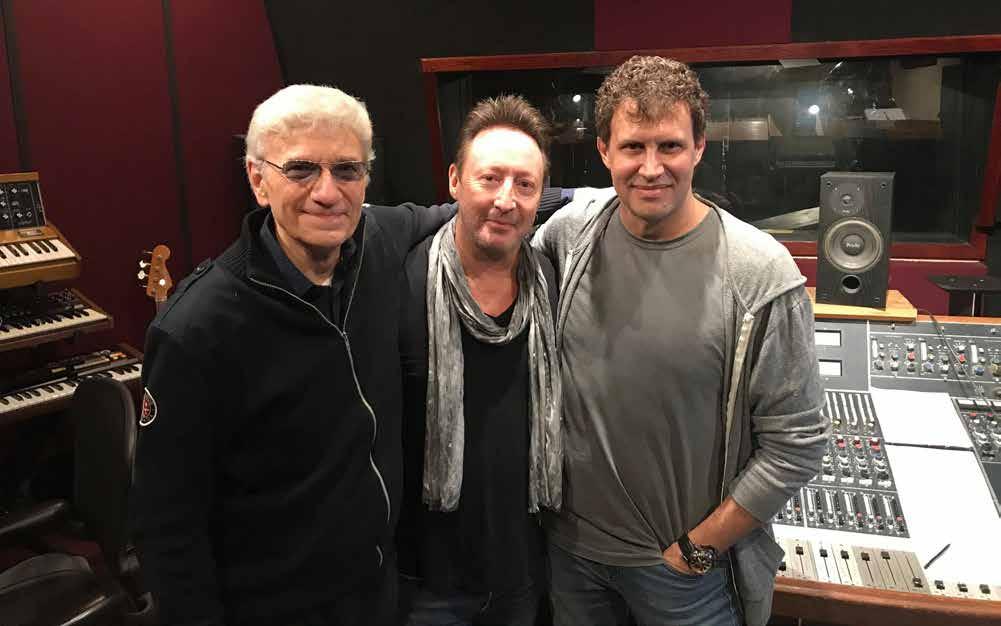
those client's that came to us and started working on records even with his own group, which I think everyone of those that we worked on together, were nominated for Grammys. He's very close with The Clark Sisters, so it's just a natural progression of working on that record. We did a bunch of the tracking for the vocals and various band stuff. I don't know that there's anything different about what I did on that gospel project to compared to another gospel project. Donald's the kind of guy, a producer who knows exactly what he wants all of the time, but it came down to having done so many records with him that I knew inherently what he wanted from the gospel records. I've done so many with him, having a legendary group like that, or a singer like Karen Clark was another one of those amazing things. I think every record that we worked on together was nominated for a Grammy
like us that are busy all the time, there's absolutely no time to listen to the radio, so I think every mixer has a have a sound so to speak and clients generally gravitate towards the sound that they like. All of my clients know what I do, they know that they're going to get a footprint of what it is that I bring to the table, and that's why they keep coming. So as far as keeping track of current trends, it's not something I spend a whole lot of time worrying about."
BSM: Talk about how inspirational words can affect a performer in the studio?
CB: "So, I haven't done any tracking in the last 10 years, but if I goback to that time, when I still was actually recording stuff,
patience is obviously key when dealing with an artist. You're not going to rush them and tell them when they're done. You're going to give them the freedom to spend as much time as they feel they need and to be a cheerleader for them. It's difficult to criticize someone who's pouring their heart and soul into something and make them feel like they're rushed or make them feel like they haven't done a great job. So giving them emotional space to do whatever it is they do, and being a cheerleader to make sure that they feel comfortable and confident, and letting them know when something comes out amazing. It can really go a long way in building someone's confidence by saying 'Oh my God that was awesome, that sounded amazing.'"
BSM: Name a key lesson or insight you have learned throughout your career.
CB: "In this game, it's so much about personalities. Whenever you're dealing with any kind of artist, everyone's in a an emotionally unstable place, simply because you have to show your work to other people around you. And in this world, you have to do it in front of other people which can be intimidating.
BSM: Describe your sound.
CB: "Technically speaking lots of openness and space, dynamics and I'm kind of unknown for making things very shiny. My general aesthetic is pristine, polished and clean. I don't get calls to do anything Grunge. That's just not my aesthetic."
BSM: In your opinion, has the industry changed for the better or for the worse?
CB: "I think working with other people, which is the problem with the music industry. In general, the production and mixing world, has so many producers and artists that are now with the mindset that they can do everything themselves. So they're in a world of their own without any outside involvement from other people. Technology has made it possible to make records by yourself. The younger generation aren't experiencing what their peers or what their idols did. I think what I'm trying to say are people that wish they could work with, they don't have those opportunities to define, so to find every single opportunity to work with other people instead of locking yourself in a room.

"here'sthe thing... I have 33 Grammy plaques on the wall outside of this door. I don't mean for this to sound... I don't know how to express this other than every time I walk out the door of this control room and I see that wall I get to say to myself, I did it!
—
craig bauer
Work with other people, that's where learning happens. And do not rely on Social Media for your sole window for learning how do this. Learning with people that know what they are doing is the best source for good information."
BSM: How has technology changed your work flow and how you work with others?
CB: "People aren't in the room anymore because the internet has provided this ability to receive files and to send files. Having somebody sitting next to you while you're doing mixed tweaks, you know I still do mixes by myself. I still send them to clients and that's been that way for a very very long time. But the the number of times that I have clients actually in the room with me, it's a very, very different experience than discussing something over an email or text messages, or even over in a zoom. It's not the same experience unfortunately, so I really enjoy having people sit in the room with me and get to the final stage once I have a first pass of something."
BSM: What exciting projects are you working on?
CB: "I have a client that I have been working with for 30 years who is developing a massively huge project that could contain a musical, a movie, video gaming, and digital comic books. I can't talk about what the subject matter is right now, but I can say that it's at the 15 yard line, might even be at the 10 yard line. Of course the 10 yards are always the most difficult. So that's exciting. Also, I'm actually for the second time in 30 years, second time ever, I've produced a piece of music for myself and the same client that I just spoke about who's producing that the massively huge project. He's an unbelievable singer and a very good friend of mine. I've enlisted the help of a incredible producer by the name of Anthony Resta who is also a programmer and has a musical mind like no one else I've ever worked with. I brought him in to co-produce this project. I've also brought some of the world's most brilliant musicians such as Michael Thompson, a guitar player who has more hit records than you could possibly ever name, keyboard player and a B3 player by the name of Ricky Peterson, who's out with the touring with Billy Joel and Stevie Nicks right now. I like to work with the best of the best of the best because it makes my job easier, but I'm having an absolute blast working on this thing."
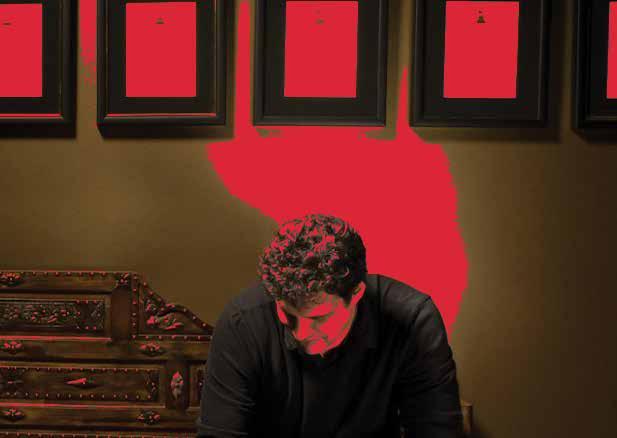

MULTI-GRAMMY AWARD WINNING SOUND ENGINEER
eslie Brathwaite grew up in a rich musical culture in St. Thomas, U.S. Virgin Islands. Brathwaite’s fascination with the industry began at a young age and led him to Full Sail University. Upon graduating and earning his degree from Full Sail’s Recording Arts program, he relocated to Atlanta, Georgia. It was there that he started his career full-fledge by assisting producer Dallas Austin, earning credits on albums including Boyz II Men’s “II” and Outkast’s “Southernplayalisticadillacmuzik.” From there, opportunities poured in and Leslie established himself as a "go-to" mixing engineer and producer working with A-list artists that include: Jay-Z, Madonna, T.I. and more. Leslie’s impressive list of Grammy awards include TLC’s “Fanmail” (Best Rap Album), Brandy and Monica’s single, “The Boy is Mine” (Best R&B Performance by a Duo or Group), Outkast’s “Stankonia” (Best Rap Album), Pharrell Williams’“G I R L” (Best Urban Contemporary Album) and “Happy” (Best Pop Solo Performance).
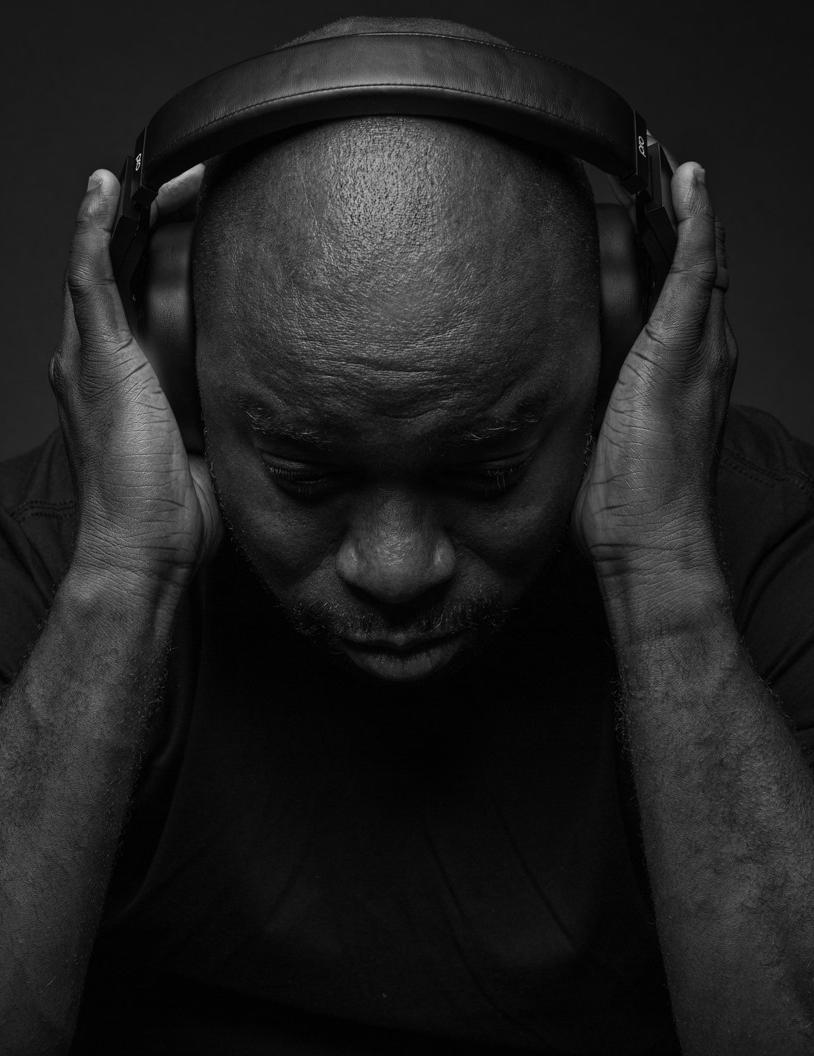
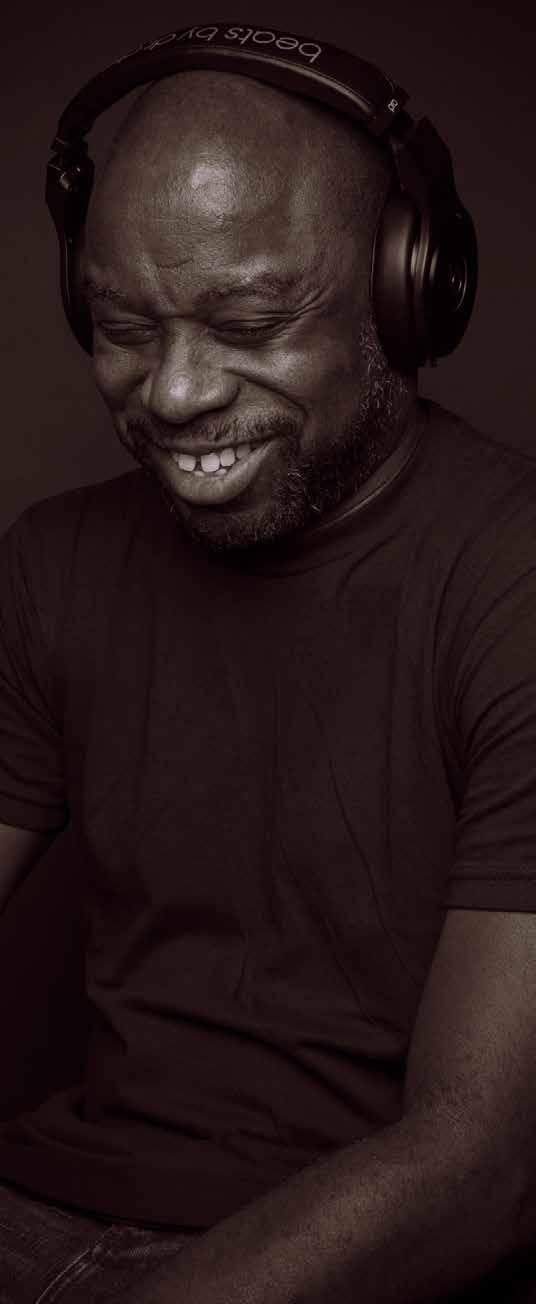
BSM: What actually did you do on the Cardi B. project?
LB: “I did the mix on ‘WAP’ and ‘MONEY’ It was a pleasure doing it and the project is a great success.”
BSM: How long does it take you to perfect the perfect mix?
LB: “Sometimes a mix can take day, sometimes it can take a few minutes.”
BSM: Any advice to young engineers trying to perfect the perfect mix?
LB: “Use other music as reference material on how you want your mix to sound.”
BSM: Being part of some of the greatest records ever, what was the most successful in your opinion?
LB: “I received a lot of notoriety from ‘So Fresh And So Clean’ by Outcast, but Pharrell Williams’ ‘Happy’ was my biggest success.”
BSM: What do you think about Auto-Tune?
LB: “I like it .... It’s pretty cool. I also know the guys over there at Antares Audio and they’re really good people.”
BSM: What producers have had the most impact on developing Atlanta’s music scene?
LB: “Dallas Austin, Jermaine Dupree, Jazzy Pha, Rock City, DJ Drama, DJ Don Cannon, Organized Noize, Justice League, DJ Toomp, Zaythoven and Drumma Boy.”
BSM: Who gave you your first chance in the business?
LB: “Dallas Austin. I was an intern at D.A.R.P Studios that actually was around the time I met Shon Murdock.”
BSM: Any plans to start a label of your own someday?
LB: “No, not at all ... Too much politics.”
BSM: What is the biggest change in the industry since you’ve started?
LB: “The introduction of streaming and how people consume music has really changed the game.”
BSM: How many hours do you spend in the lab a week?
LB: “Not as much lately due to social distancing, so, I do a lot of work from home.”


huckey Charles was born on December 18, 1970 in Chicago, Illinois. He first became interested in music at a very young age beginning with the guitar at 6 and gradually moving on to the piano at the young age of 9. After graduating from high school and attending a brief stint in college majoring in music theory, Charles started to focus on larger aspirations of the music business and industry becoming a diverse, multi-award nominated film composer, songwriter and top-charting record producer. He has produced, written and worked with Grammy winning artists and producers from Sean Garrett, Usher Raymond and Dallas Austin to writer/producer Jerry Ragavoy (The Rolling Stones, Janis Joplin, etc...). He has also produced the soulful sounds of Hidden Beach recording artist Kindred the Family, the Pop and R&B sounds of Capitol Records group Vega, Rap artist Loon and “This Is How We Do It” crooner Montell Jordan, to name a few.
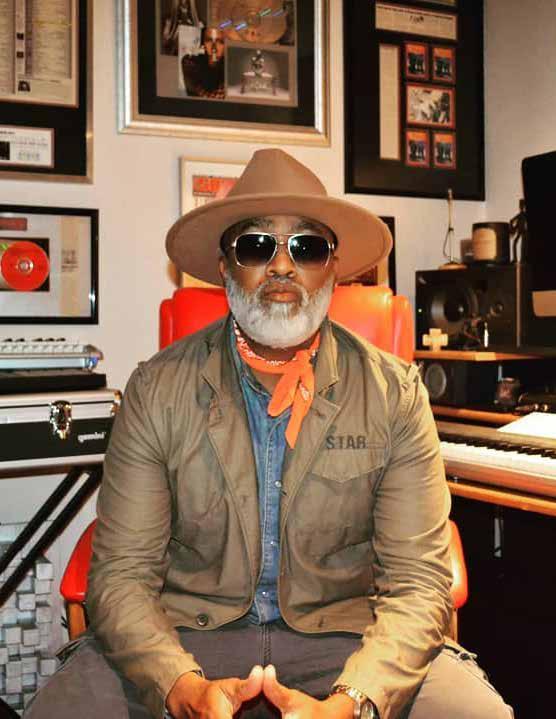
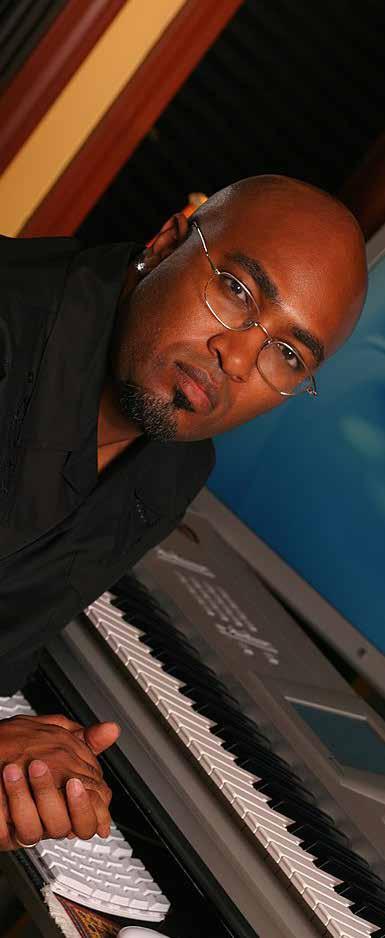
BSM: Who were your musical influences coming up in the game?
CC: “Prince and Earth, Wind & Fire.”
BSM: Do you think product endorsements and sponsorships are important in the industry today?
CC: “Absolutely! Anything that will heighten the level of your brand is incredible exposure.”
BSM: How did it feel to work with Beyoncé? What actually did you do?
CC: “My former production team, I was signed to Redzone Entertainment, did an amazing job on a number of her hit records. It was good to be part of a team that delivered some of her most memorable hits.”
BSM: Do you think streaming has changed the game? Can you Explain?
CC: “Most definitely it has! The mere fact of having the capability of touching such a broad spectrum of fans and listeners, has been a game changer for the industry.”
BSM: Do you think traditional R&B will make a comeback?
CC: “In my opinion, the true essence of R&B is forever gone. Even though there are incredible records that find their way on a project, it never sees the light of day in receiving the attention it so deserves, in regards to cracking the top 40, let alone the top 10.”
BSM: How do you feel about singers using AutoTune?
CC: “I’ll just say, it has it’s place.”
BSM: What is your most successful work to date in your opinion?
CC: “Entering the industry as a music producer, I’ve always challenged myself to dig deeper into the multiple levels of my abilities. So when opportunity arises, I go for it! Whether it’s becoming an A&R for a major record label, stepping out to manage the career of Montell Jordan while out on world tours, or composing and scoring award winning movies and films. I said that to say, I can never pick just that one special or most successful moment. They’re all a blessing in my journey.”
BSM: What advice do you have for an up-andcoming writer and producer in the music business?
CC: “Stay focused and learn the business of music as much as learning your craft.”
BSM: What is your favorite piece of studio
equipment for banging out hits?
CC: “Logic Pro X is my go to when I’m creating.”
BSM: Do you have a favorite studio you work out of or do you have your own?
CC: “When I had my home built, I had an addition added just for my studio. When having long sessions, guests can wind down by hitting the exercise room or playing arcades and foosball in the game room. Being relaxed in your creative environment is always key.”
BSM: Are you involved with any entrepreneurial endeavors outside of music?
CC: “I have a few in the works, keep your eyes open.”
BSM: If you could work with anybody that you haven’t already who would it be?
CC: “I’m a true R&B dude, so, I’d have to say Kem. I’ve always admired his body of work since day one. But then there’s Ella Mae and Snoh Aalegra. Those two, wow!!! True talent.”
BSM: How did it feel to work on the Janet Jackson project ? And what actually did you do?
CC: “That’s a long story.”
BSM: How did it feel to work on the Usher project? And what actually did you do?
CC: “I’ve been knowing Usher since he was 16 and have seen his amazing progression over the years. To see him at such iconic stature is certainly no surprise, he’s always had that ‘It factor.’ When Usher had U.S. Records in motion, Usher, myself and Tricky Stewart would have these writing sessions and come up with
some amazing records! But as it goes, some of the best records go unheard. Who knows, maybe someday ‘Usher the Vaults.’ Lol.”
BSM: How did your love for orchestral and classical music develop?
CC: “That was during my middle school years. I would help score the musical performance pieces for the orchestra with my orchestra teacher and found a true love for it.”
BSM: What’s more important today great music or social media following?
CC: “Without a doubt GREAT MUSIC!!!”
BSM: Do you have any projects that you would like to tell us about?
CC: “I’ve transitioned into the world of film scoring and composing, so definitely be on the lookout for my body of work to be floating across the silver screen.”
BSM: Do you think the fashion industry and the sneaker culture is influenced by the music industry?
CC: “Absolutely! It always has been. Fashion and Music is like Peanut Butter and Jelly.”
BSM: What’s the difference between a beat maker and a producer if any?
CC: “Whew.... This is a day long topic, but I’ll sum it up like this. Just because you dissect a frog does not make you a doctor! See, in becoming a music producer, there are levels to that title. So I encourage every beat maker to aspire to become the highest level of what your craft and profession is. I’ll stop there, like I said this is a whole topic within itself. Thanks for allowing me to express my thoughts with you, BSM.”

WHEN USHER HAD U.S. RECORDS IN MOTION, USHER, MYSELF AND TRICKY STEWART WOULD HAVE THESE WRITING SESSIONS AND COME UP WITH SOME AMAZING RECORDS! BUT AS IT GOES, SOME OF THE BEST RECORDS GO UNHEARD. WHO KNOWS, MAYBE SOMEDAY ‘USHER THE VAULTS.’ LOL.
CHARLES

ravis Cherry is a multi Grammy nominated American music producer, musician and songwriter. He has worked with artists such as Bone Thugs-n-Harmony, Keith Sweat, Jennifer Lopez and J. Holiday. His contributions can be heard on the Gold-certified album “Back of My Lac” by J. Holiday and on Jennifer Lopez’s 2007 album “Brave.” He also appeared on Episode 3 of the first season of BET’s TV show Keyshia Cole: The Way It Is. Travis also gives his time mentoring youth, working with Twin Sports TV and their Stop The Bullying Campaign. One highlight of the interview is Travis discussing a project with J. Holiday. Hint, hint, sounds like quite the party! Travis also gives us his opinions on the consequences of “bad production” techniques, Beatmakers versus Producers, and the importance of corporate sponsorships, product endorsements and business relationships in today’s music industry.
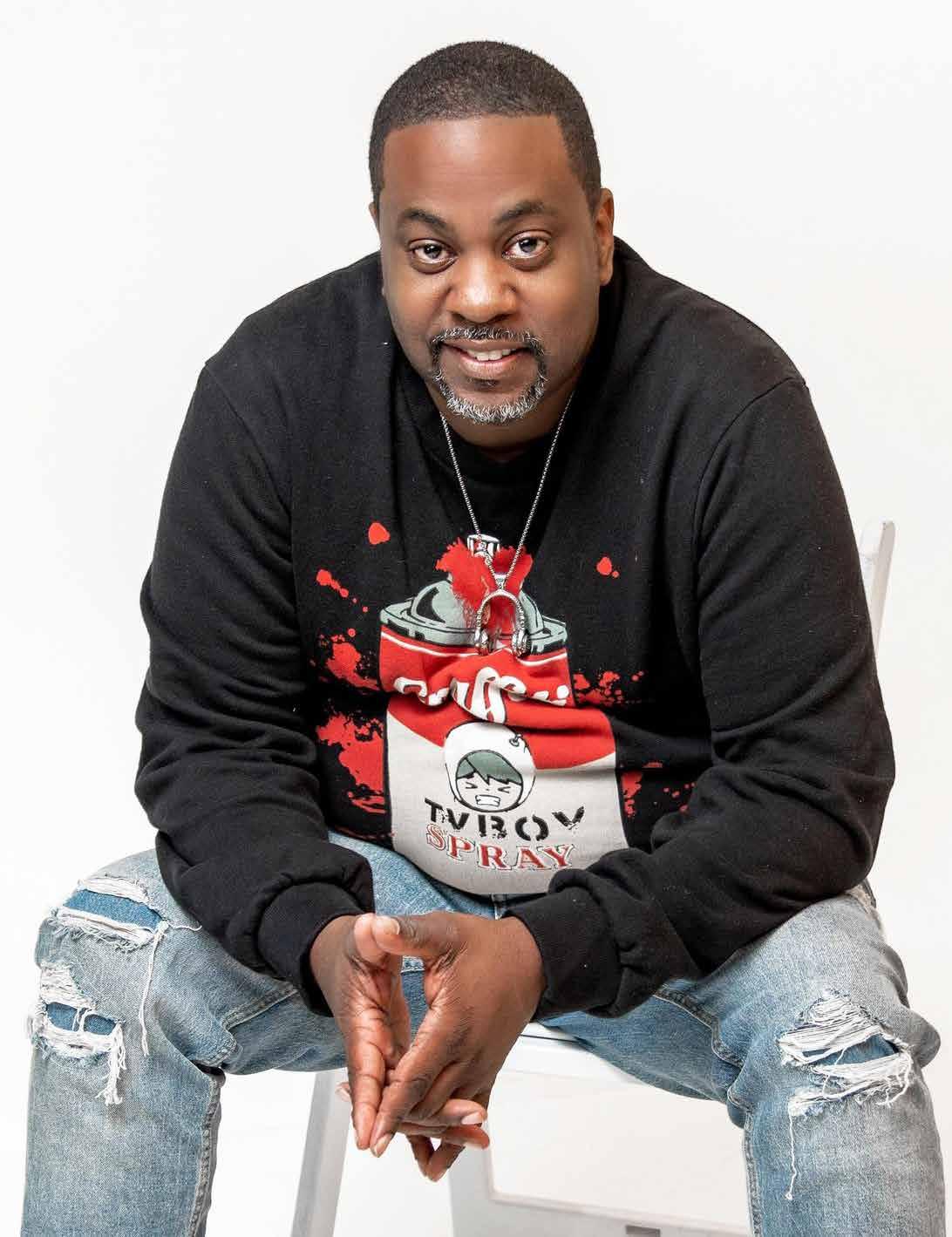
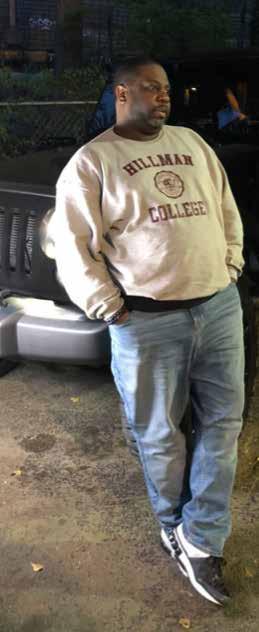
BSM: How was it working on the Jennifer Lopez project? And what actually did you do?
TC: “It was an amazing opportunity. I wouldn’t change it for the world. I chopped the sample and made the sequence that is the basis of the song. Adam from The Platinum Brothers played the bass line, and Mike did the drums, along with bringing in a live drummer to do drum fills. But all the sample chops and stabs were me.”
BSM: Do you think radio is still important in today’s market?
TC: “Not as much. People are discovering music in many more places, and they aren’t limited to the old guard stopping them from being heard.”
BSM: Do you plan on starting your own label some day?
TC: “I’ve been more of a production house the entire time. The Purple Room has been the brand that we have built around the studio. I think it will expand because of the artists we are working with.”
BSM: Any entrepreneurial endeavors outside of music and entertainment that you would like to tell us about?
TC: “Mostly giving my time to Twin Sports TV and their Stop The Bullying campaign. I love going to schools and influencing young minds.”
BSM: Can bad production kill a great song? Can you explain?
TC: “Most definitely. I've seen songs that were over-produced and lacking feeling many times. Thankfully, I got some great advice from No ID early on and he stopped me from trying to use so many sounds in my beats. It really opened the door for me.”
BSM: What would you say was your most successful project/work to date?
TC: “I would say a combination between Raheem Devaughn ‘Love Sex Passion’ album, because he took a chance on my sound and we had a top 20 R&B record on the radio, and Demetria McKinney “Officially Yours” because it was my first full project that I was E.P. and Producer on. It was the best experience seeing how people responded and learning how to work with a label on all aspects of a project.”
BSM: How important are great relationships in navigating the industry today?
TC: “Super important. You gotta network and shake hands to get in certain doors. Also having great relationships with artists gets you more placements.”
BSM: What would be your dream musical collaboration?
TC: “Who wouldn’t want to work with the B one time?”
BSM: What’s your favorite piece of gear or software while in the studio banging out hits?
TC: “I can’t live without MAschine, and KONTAKT. I create a lot of sound kits in KONTAKT and I’m getting ready to upload some.”
BSM: Are sponsorships, brand partnerships and product endorsements important to an artist in the music business today?
TC: “I’d say it helps with PR. Anything that can make you seem larger than life helps get attention, but I don’t think people buy into it and your music at the same time. Now people care about hype and social media presence.”
BSM: What’s more important to an artist social media following or great music?
TC: “Probably social media...unless you are a real performer. If you are able to rock stages, then that music better be tight. If you are a fly by night social media rapper, then having great content keeps them looking your away. There’s a lot of ‘stars’ with one great song.
BSM: Who were your musical influences growing up?
TC: “Teddy Riley, Babyface, a lot of the older producers (Isaac Hayes, TSOP. Basically anyone who was in my Mom’s vinyl collection.”
BSM: How was it working on the J. Holiday project? And what did you do exactly?
TC: “It was like a 12 month party! We had a crazy time recording and drinking and we never felt like we were making an album.
"Plus we were working on K. Michelle at the time, so she was around and she made it fun too. I produced ‘Come Here’ and also ‘When You Get Home.’ I also co-produced the remix to ‘BED’ with Trina and Ja Rule.”
BSM: What do you think about artist using auto-tune?
TC: “It was cool until it became a crutch for laziness and no talent. I like how some artists use it as instrument, hate how singers use it with no style.”
BSM: Is there a difference between a beat maker and a producer? Can you explain?
TC: “HUGE DIFFERENCE! Beatmakers can sit home and make 200 beats day. A great producer spends their time from start to finish crafting a project and developing great talent. Really pushing the artist to be great.”
BSM: Any advice for up-and-coming producers?
TC: “Craft your sound. Don’t be in a rush to make it. It’s a career.”
BSM: Do you have any up-and-coming artist that you would like to tell us about?
TC: “Right now, NIya Rasberry (@niyarasberry) and Lyr-x. (@ thisislyrx)”
BSM: Do you think the traditional R&B sound will ever make a comeback?
TC: “To quote Case...It didn’t go anywhere, It’s just harder to find now. Just like Love.”
BSM: How important are a good set of headphones while in the studio or during production?
TC: “Super important. I love my Avantones.”

IT WAS LIKE A 12 MONTH PARTY! WE HAD A CRAZY TIME RECORDING AND DRINKING AND WE NEVER FELT LIKE WE WERE MAKING AN ALBUM. PLUS WE WERE WORKING ON K. MICHELLE AT THE TIME, SO SHE WAS AROUND AND SHE MADE IT FUN TOO. I PRODUCED ‘COME HERE’ AND ALSO ‘WHEN YOU GET HOME.’ I ALSO CO PRODUCED THE REMIX TO ‘BED’ WITH TRINA AND JA RULE. TRAVIS CHERRY

GRAMMY AWARD WINNING PRODUCER
eith ’Clizark’ Clark is an American music producer who has worked with artists including Snoop Dogg and Tha Eastsidaz, Paid tha Cost to Be da Boss, Da Game Is to Be Sold, Not to Be Told, among others. Clizark coined the name “Clizark” from his love of Mozart and began utilizing his name later on in his career. He’s the recipient of a Diamond Certification from the Recording Industry Association of America. Keith’s musical talents go beyond producing. He’s also an acclaimed engineer, composer and writer. His career began in the early 1980’s as a DJ with the group Beat Control. Between the ages of 17-20, Keith and his Beat Control Crew began working for Rory Kiffman at the first Hip-hop radiio station in Los Angeles, 1580 K-Day. In 1991 Clizark received label placement with Capitol Records for “You Ain’t All That” by the group 3D, which landed on Billboard’s Top Ten Dance Spot.
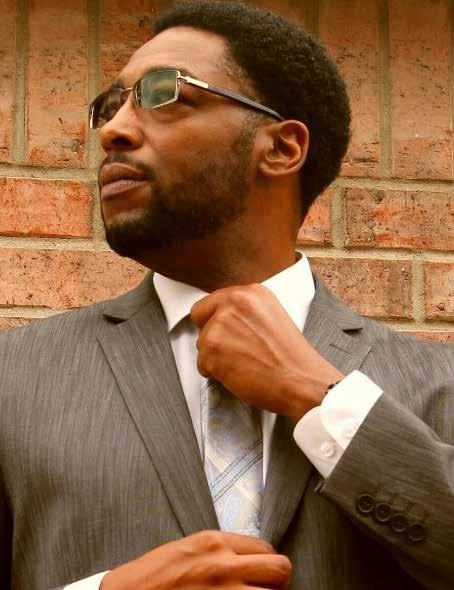

BSM: How was it working with Snoop? And what records did you do?
KC: “Snoop is really cool. I’m a little older, so we hung with a different crowd, but we used to cross paths a lot at VIP Records and at the studio. I did ‘I’ll See You When I Get There’ and ‘Go Away’ off the ‘Last Meal’ album. Also ‘Fuck What They Say’ off ‘The Worst That Can Happen’ soundtrack, plus a track called ‘Dont Do It’ featuring Nate Dog.
BSM: How has the West Coast Hip-hop scene changed?
KC: “It didn’t change, it just evolved. We had our own culture from the east. The big difference was there was no sampling in west coast production at the time, although we were influenced by the east coast, we went our own path and then Dre merged the sounds east and west in his productions, so you know things just evolved.”
BSM: What is your favorite piece of studio gear and production software?
KC: "MPC anything I have the MPC 4000 right now I love it Def Jeff introduced me to it but also definitely Pro Tools 12 and I use a lot of bass plugins by Trilian and definitely Drum Lords."
BSM: Can you tell us about Team Mashn?
KC: “I started the company in 1999 to expand my portfolio and we have Mashn Films, a consulting firm and a production company.”
BSM: Can a bad mix kill a great record?
KC: “No. A great record is a great record. I’ve heard demos with better songs on albums because it’s just a great song.”
BSM: What would you say was your most successful record/project to date?
KC: “Snoop Dog ‘The Last Meal’ because of the caliber of producers I was amongst, like Timbaland, Dr. Dre, Battle Cat, etc...”
BSM: How important is a great pair of headphones to pre-production and mixing?
KC: “All Producers and Engineers need to invest in a great pair of headphones, it’s very important.”
BSM: Where are you originally from?
KC: “Greenville, Mississippi and then at 4 years old I moved to Long Beach, California with my parents.”
BSM: Who was the most memorable person you’ve worked with in the studio?
BSM: Where are you originally from?
KC: “Greenville, Mississippi and then at 4 years old I moved to Long Beach, California with my parents.”
BSM: Who was the most memorable person you’ve worked with in the studio?
KC: “B-Legit from the Bay. He was so lively and upbeat, just a funny person. Kurupt and Foxy Brown were in that session which Foxy Brown came to the studio and wrote an entire verse for Kurupt that he recorded that day!”
BSM: Who would be your dream collaboration?
KC: “A project with Tray Dee, Bumpy Knuckles and Scarface.”
BSM: Has the game changed for the producer in today’s market? Can you explain?
KC: “Yes. Producers are out there selling Beats for .99 cents. The producer industry is diluted right now and it’s set up for hobbyists. The industry is so saturated right now and technology has messed it up to where you don’t even need to understand your craft or understand music. You don’t even have to pay for the software anymore or pay your dues.”
BSM: Who were your musical influences growing up?
KC: “James Brown, George Clinton, Larry Smith—he was a producer for Whodini, Run- DMC and Mantronix . Also Marley Marl was the first person I heard incorporate 808 which was very influential on me. Then Teddy Riley and Dr.Dre. I wish I was a fly on the wall in those sessions Lol."
BSM: Do you feel The G Funk Sound/ real Hip-hop has a place in the market today?
KC: “Yes, absolutely. Matter of fact, Warren G is still touring and doing shows. Might I also mention there’s a lot of new artists bringing the G-funk sound back right now on the west coast.”
BSM: Do you think radio is still important in today’s market?
KC: “Partly, but not as much. People consume music the way they want nowadays. Like streaming services, YouTube playlists, etc... So, not as much as it used to be.”
BSM: Do you have any Ventures outside of music that you would like to tell us about?
KC: “We have the patent on our new motorcycle helmets equipped with LED lights and we’re currently looking for licensing deals.”
BSM: Any advice for up-and-coming producers?
KC: “Be consistent. Consistency is the key. They also can book a consultation with me and I can get them some great info and help them navigate their careers.”
BSM: Do you have any up-and-coming projects that you would like to tell us about?
KC: “We’re currently working on ‘Operation Green Day’ the movie.”
BSM: How was it working with Dr Dre? And what did you do exactly?
KC: “I worked on the Snoop Dog ‘Last Meal’ album for No Limit Records. I did the ‘Go Away’ track. Dr. Dre did the mix and actually allowed me to sit in and took my input which was a great moment for me.
BSM: Do you think mixtapes are good or bad for the market?
KC: “Very bad. The market is too saturated with mixtapes for them to have any type of impact.”

THE PRODUCER INDUSTRY IS DILUTED RIGHT NOW AND IT’S SET UP FOR HOBBYISTS. THE INDUSTRY IS SO SATURATED RIGHT NOW AND TECHNOLOGY HAS MESSED IT UP TO WHERE YOU DON’T EVEN NEED TO UNDERSTAND YOUR CRAFT OR UNDERSTAND MUSIC. YOU DON’T EVEN HAVE TO PAY FOR THE SOFTWARE ANYMORE OR PAY YOUR DUES.
KEITH 'CLIZARK' CLARK

hamann Cooke also known professionally as Beat Billionaire, is an American record producer. Moving to New York from Richmond, Virginia proved to be the place of opportunity by which Cooke quickly established solid relationships and projects with an impressive list of artists including: Method Man, Redman, Das Efx, K-Solo, and many, many more. Parrish Smith of EPMD fame, introduced Cooke to T.I.’s Grand Hustle leading to work with T.I., Young Dro, Yung LA, Gucci Mane, and more. Cooke then moved on to sign with Rick Ross’ Maybach Music Group and has produced hit records for the entire MMG roster. He is best known for producing Rick Ross’ 2010 hit “John Doe,” Wale’s hit single “Bag of Money” and the hit single from the 2016 Motion Picture Suicide Squad, “Purple Lamborghini.” “Purple Lamborghini” also came with a 2016 Grammy® nomination for Beat Billionaire.
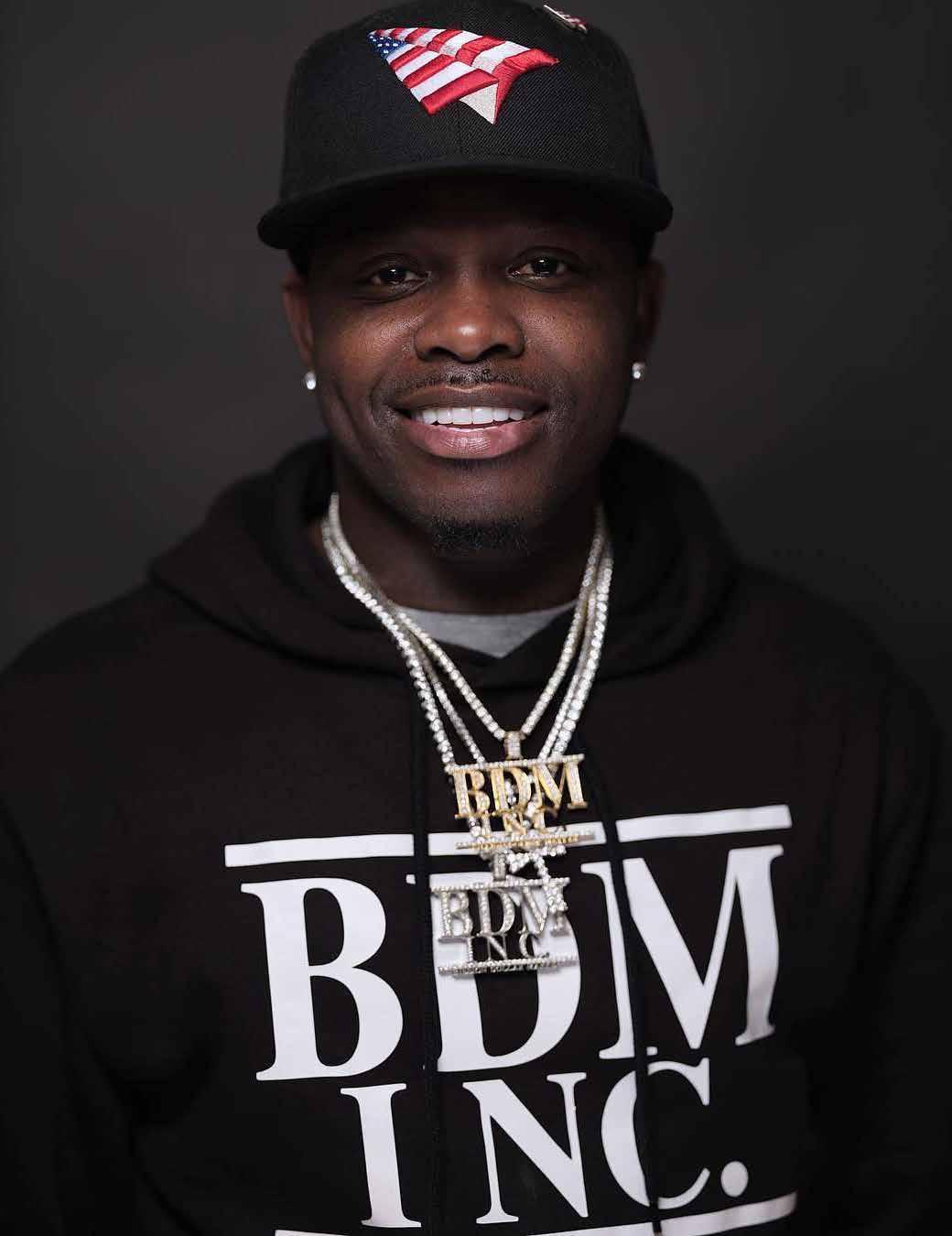
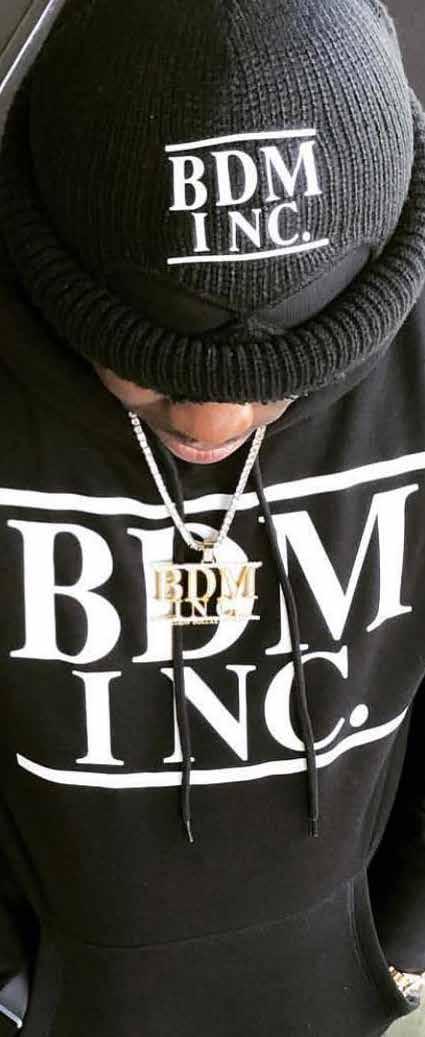
BSM: How was it working with Rick Ross and Maybach Music? And what records did you do?
SC: “Rick Ross’ 2010 hit ‘John Doe’ and more recently the hit single from the motion picture Suicide Squad ‘Purple Lamborghini’ which reached number 33 on the charts, number 6 on the hot dance/electronic chart, number 7 on the rap charts and top 100 worldwide. This hit also came with a Grammy nomination.”
BSM: Do you think mixtapes are good or bad for the market?
SC: “Good for the label but bad for the artist. Artists are producing albums that are getting label mixtapes and the label doesn’t even have to pay the producer.”
BSM: Can you tell us about your Grammy nominations and how did it feel?
SC: “Man!, I zoned out. I didn’t really feel anything, it was a very surreal feeling...”Lol.
BSM: Can you tell us the difference between a beat maker and a producer?
SC: “I don’t really think there’s any difference. It’s just a progression of Music. Some people do things differently when they are working on the drum machine, just like playing keys.”
BSM: Can a bad mix kill a great record? Can you explain?
SC: “Nope. I don’t think so. We listen to the bad mixes all the time on the radio and they’re hit records.”
BSM: What would you say was your most successful project to date?
SC: “‘Suicide Squad’ Grammy nomination. To be part of DC Comics is incredible to me.”
BSM: Who would be your dream collaboration?
SC: “Jay-Z . I want to be able to sit in the studio with him.”
BSM: What is your favorite piece of gear or recording software while in the studio banging out hits?
SC: “FL Studio and Pro Tools mostly.”
BSM: How important is a good pair of headphones in the studio when working on production and mixing?
SC: “Very important. I like using the Beats by Dre right now. They translate the mix very well, and you can hear everything. They’re incredible.”
BSM: Is sponsorship and product endorsement important to an artist in the business today?
SC: “It’s everything. It gives the artist ‘that look’ that they need to compete in the market.”
BSM: What’s more important to an artist success, social media following or great music?
SC: “Both. They go hand and hand.”
BSM: Who were your musical influences growing up?
SC: “Just the whole Virginia music scene. Brother Pharrell, Timbaland, Teddy Riley and Pusha T.”
BSM: Do you plan on starting your own label one day?
SC: “Yes.”
BSM: Do you think radio is still important in today’s market?
SC: “Not really. People are consuming the music the way they want now, with their own playlist, things like that.”
BSM: How was it working on the Boosie Badazz project? And what did you do exactly?
SC: “I did the song ‘Mr. Miyagi.’ Boosie is a really cool cat. I think that was the first song he did when he came home.”
BSM: Old school Puma sneaker brand has re-emerged in the market. What do you think about their success and visibility?
SC: ”They have always been a classic brand. Classics never die. My guy Emory is over there making moves at Puma.”
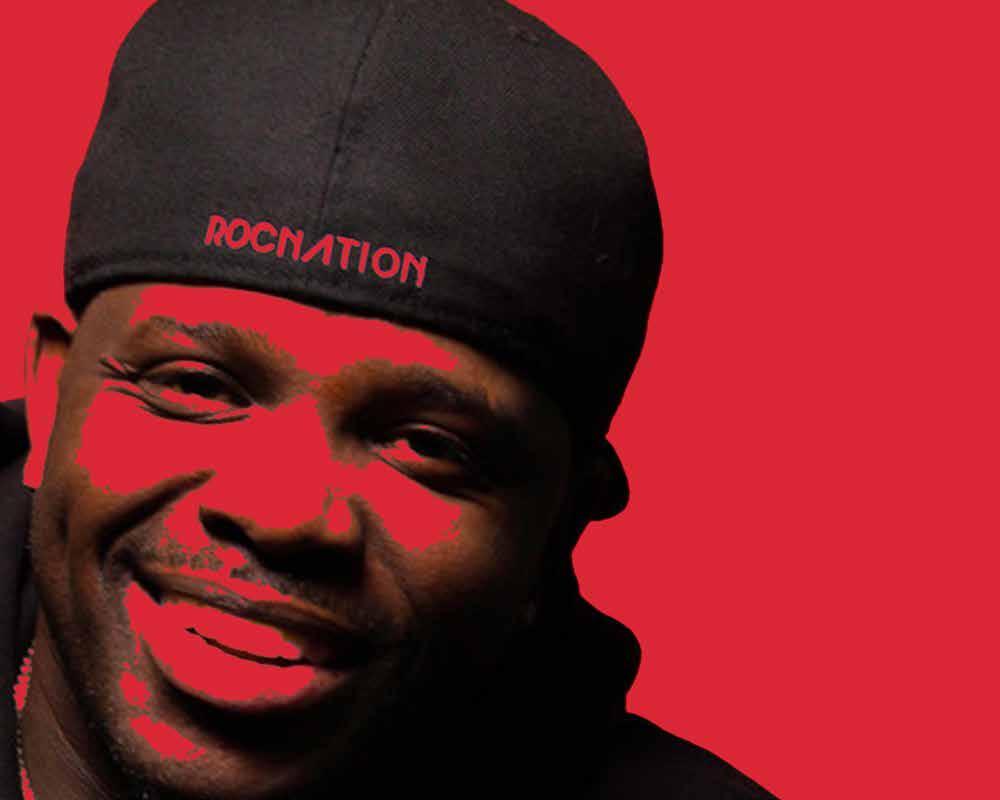
VERY IMPORTANT. I LIKE USING THE BEATS BY DRE RIGHT NOW, THEY TRANSLATE THE MIX VERY WELL, BUT YOU CAN HEAR EVERYTHING, THEY’RE INCREDIBLE.
"
SHAMANN 'BEAT BILLIONAIRECOOKE
[on the importance of using a good pair headphones while producing and mixing]

yanna ‘Yanni’ Depas is a Grammy® Award Winning Recording and Mixing Engineer residing in New York City. She has worked with artists including A$AP Ferg, Mary J. Blige, H.E.R., Tiara Thomas, Dave East and many others. Upon graduating from the Institute of Audio Research, Yanni quickly realized that the best way to continue her education was achieving real-time, hands on experience. Landing internships at iconic studios such as NYC’s Quad Studios paved the way to recording and mixing projects with some of the music world’s most famous musicians and performers. In a short 8 years, she has established herself as one New York’s more in-demand freelance audio engineers. GRAMMY AWARD WINNING SOUND ENGINEER
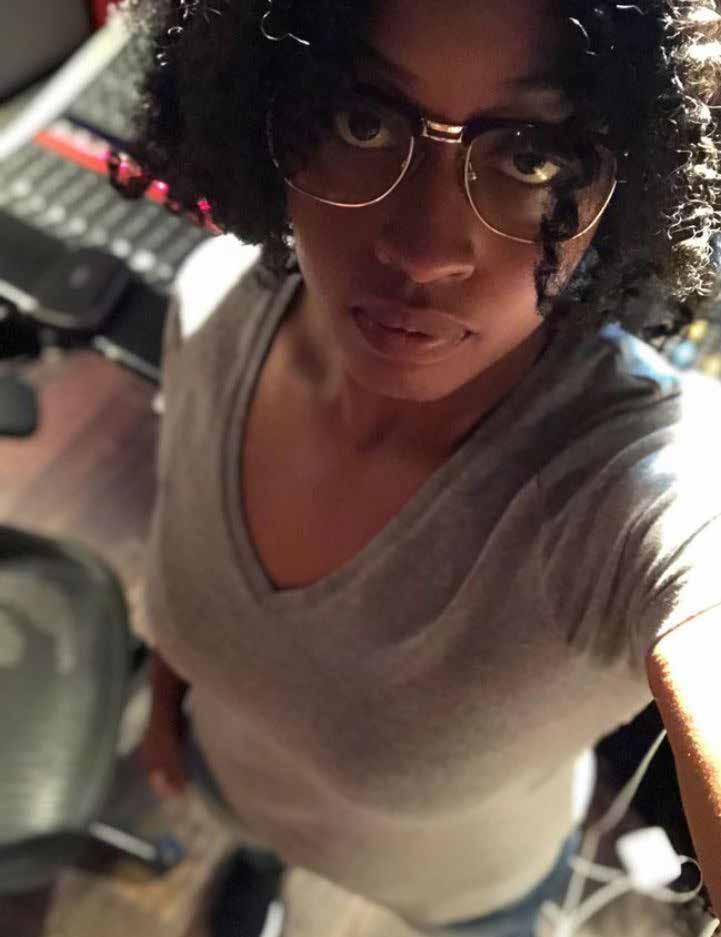
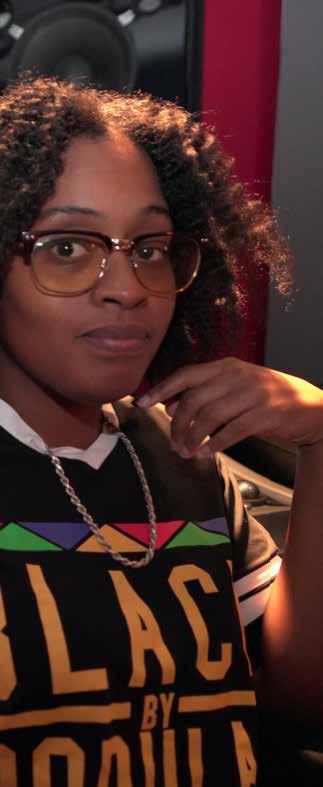
BSM: What entrepreneurial endeavors outside of music are you involved with?
AD: “Most of my entrepreneurial endeavors involve music in some way shape or form. Over the last few years I’ve found myself putting on and/or participating in events. I founded an annual event called “Clash of the Beatmakers”—a tournament style beat battle that consists of 16 music producers competing for a $1000 cash prize. It also highlights local artists, comedians and DJs’ from my neighborhood. I’m happy to say we’re approaching our 6th year. Outside of music, I am interested in exploring real estate ventures.”
BSM: How does it feel to win a Grammy and what was it for?
AD: “I won a Grammy for working on H.E.R.’s self-titled project. It’s a little surreal to be honest. Before deciding to pursue a career in music I wrote out a list of goals and milestones I wanted to reach within a decade, a Grammy was on that list. I am grateful that I can say I won a Grammy in the 9th year of my journey.”
BSM: How did it feel to work on the K. Michelle project? And what actually did you do?
AD: “It was pretty cool. It was the first commercial release project where I got to see my name in the credits. I was working as an assistant engineer at the time for K. Michelle’s management company’s studio and really appreciated the opportunity to see an album come together from start to finish.”
BSM: With streaming introduced to the business is being an engineer still lucrative?
AD: “I think, because of streaming, artists now feel pressured to consistently put out music (singles, EPs, albums, etc.) to stay relevant. This pressure can create more work for the recording, mixing or mastering engineer.”
BSM: Do you think traditional R&B will make a comeback or is it gone forever?
AD: “I think R&B much like Hip Hop and Rock has evolved so much over the years and it will continue to do so. 40s and 50s R&B sounds different from 60s and 70s R&B and that sounds different from the 80s and 90s... but at its core, it’s still rhythm and blues and you hear influences of all those eras in R&B music today.”
BSM: How do you feel about artists using AutoTune?
AD: “I’m cool with it. Most of the artist I work with use it more so for the sound or texture it gives, rather than for the sole purpose of pitch correction. Nonetheless it’s a tool and If necessary, you use it.”
BSM: What is your most successful work to date in your opinion?
AD: “My best work to date would have to be myself. We’re all constantly under construction and I not only try to be the best version of myself, but I’m always working on my craft as well.”
BSM: Do you plan to start a record label one day?
AD: “Yeah, I can see that happening. When I first started my musical journey it was something I had planned to do later in my career, but I see it coming to fruition sooner than anticipated.”
BSM: Who were your musical influences coming up in the game?
AD: “Another tough one. There are so many people that have inspired me along the way and for various reasons. Some of these people are not even in the music industry, but if I had to pick one person I gravitated towards growing up it would have to be Kanye West. ‘College Dropout’ was the first CD I ever bought and I always root for the underdog. With Kanye, you could see he was passionate and wasn’t going to stop until he proved his point.”
BSM: If you could work with anybody that you haven’t already, who would it be?

BSM: What is your favorite piece of studio equipment for banging out hits?
AD: “Hmm...that’s a tough one. There’s so many things, lol. I’m going to say monitors. A good set of monitors or lack there of can really make or break a mix.”
BSM: Do you have a favorite studio you work out of or do you have your own?
AD: “I do not own a studio at this point in my life but I’m currently on staff as one of the head engineers at The Donut Shop. It’s a cool intimate studio in Brooklyn where I work alongside the talented Grammy®award-winning engineer, Max Morin.”
AD: “Hmm... I’m not really sure. I love working with anyone who is passionate, talented, unpretentious and great at his or her craft. I find it inspiring and feed off that type of energy. So, if could work with anyone it would be a person like that.”
BSM: Do you think the game has changed since you first started? Can you explain?
AD: “Oh, yes, definitely. I started a little bit before music streaming services got popular. That wasn’t too long ago but it changed the industry dramatically in my opinion. It affected how music is made and how the creators are now being compensated. The act of purchasing music has lowered significantly.”
BSM: What advice do you have for an up-and-coming engineer in the industry?
AD: “If you’re passionate about it, go for it. Don’t let anybody deter you, everyone’s journey is different. Persistence is key. Study your craft, always be open to learning and ‘TRUST YOUR EARS.’”
BSM: How did it feel to work on the Mary J. Blige project? And what actually did you do?
AD: “I only got to work on that project as an assistant, but regardless, it was pretty freaking cool. I grew up listening to Mary so my inner child was jumping for joy. Back then I never dreamed of that becoming a reality and when it did I didn’t realize how much I needed that whole experience.”
BSM: What’s more important to being a great engineer, instinct or education?
AD: “I feel both are needed to a certain degree. I know some pretty dope self-taught engineers. Trial and error and hands on learning is the best form of education in my opinion.
I imagine they would be light-years better had they been properly mentored. With all the resources available online now, you can always learn the technical side of things. You can’t teach instinct and you can’t teach people how to channel the emotion of a song, they have to be able to feel it on their own. This is super important when mixing a record.”
BSM: Can a bad mix kill a hit record?
AD: “Good question. I believe it can definitely hurt it. The mixer creates the energy and contributes to how people will experiences the record... how it makes people feel. But in the same vein, I’m sure at some point, we’ve all heard a poorly mixed record reach Billboard’s Hot 100.”
BSM: Is getting a record mastered still important?
AD: “Yes. Mastering is an art in and of itself. The mastering engineer brings balance, cohesiveness and enhancements to the final mix. Aside from making your record louder (which is what most people only believe they do), mastering also makes a song translate well across all systems, mediums and media formats.”
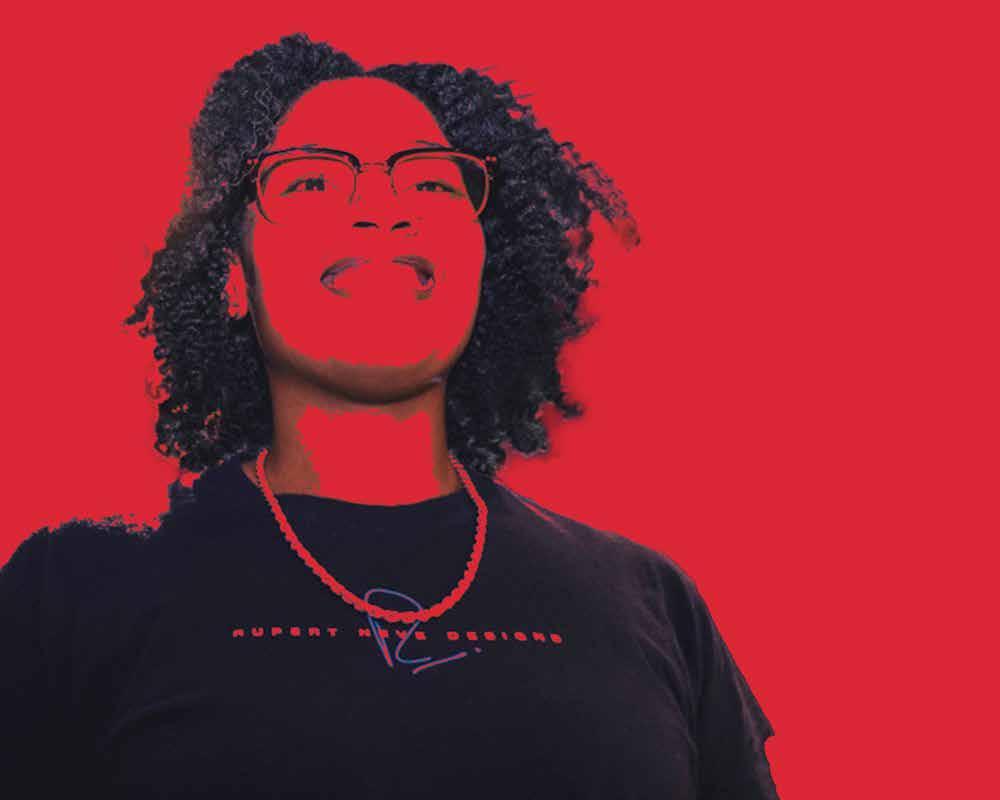
"I THINK BECAUSE OF STREAMING, ARTISTS NOW FEEL PRESSURED TO CONSISTENTLY PUT OUT MUSIC (SINGLES, EPs, ALBUMS, ETC.) TO STAY RELEVANT. THIS PRESSURE CAN CREATE MORE WORK FOR THE RECORDING, MIXING OR MASTERING ENGINEER. AYANNA DEPAS
First EP coming summer 2024
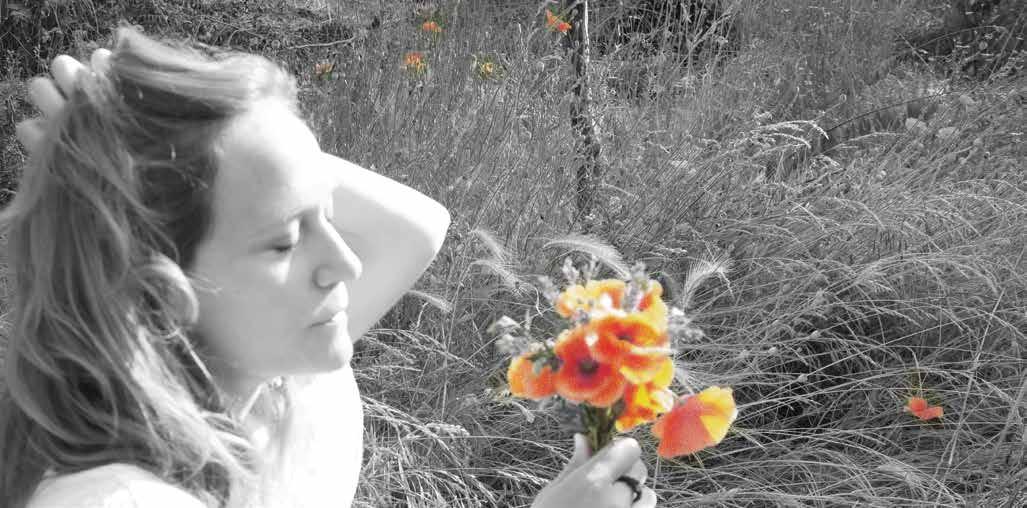

listen here!
This talented independent artist surrounds us with classic melodies that reach optimal levels of vulnerability, conveying melancholy through her expressive voice.
The song’s emotional lyrics and lo-fi tone create a unique listening experience, with an engaging theme supported by impeccable mixing and mastering.
Francisco Ruiz, Canciones para dormir, Argentina
Inyha’s song “Jardin du passé” Reminds us of a Serge Gainsbourg composition.
Juan Carlos Mataix, Toxicosmos, Plaza Radio, Spain
I think the most difficult thing is to accompany moments of meditation, but when I listen to Inyha, it takes me (and elevates Me) to that place.
Lau Cardigonde, Limon y Sal Music Magazine, Argentina




OC ISH is a Grammy Award Winning, multi-platinum hit-maker who is most notable for co-producing, alongside Dr. Dre, Eminem's 2009 comeback single "We Made You." Doc Ish has production credits on dozens of projects including with artists such as Joe Budden, Billy Danze of M.O.P, Sean Price, Chris Webby, Max B, KRS-One, Kool G Rap, Ransom, Talib Kweli, Sammy Adams, Yung Crusha, ChrispyD, Inspectah Deck, KXnG Crooked, Uncle Murda, and Kendra Morris, among many others. In this interview, the Grammy winning producer talks about his early beginnings breaking in to the industry, working with Eminem, hardware, and his view on sampling as an art form.
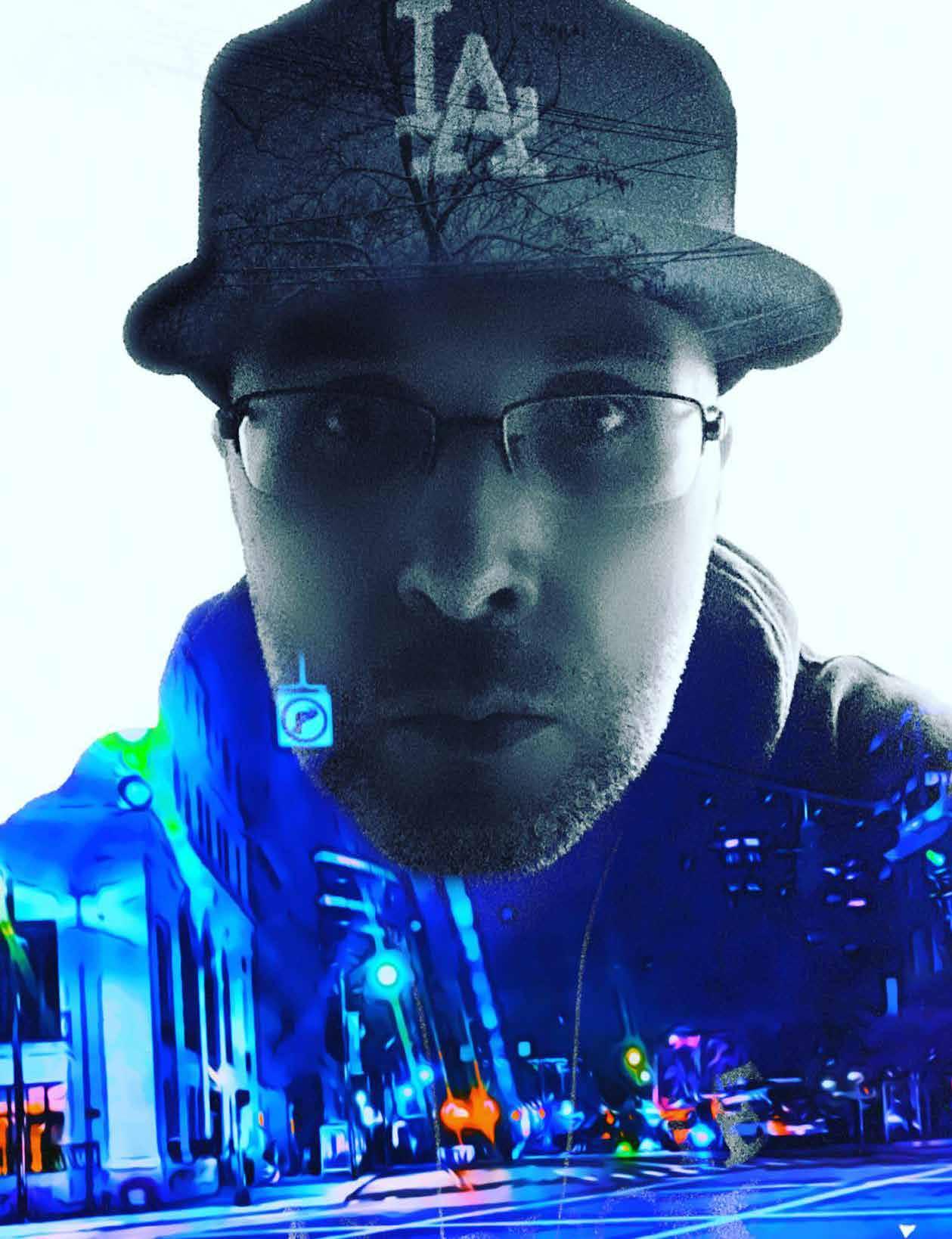

BSM: Where are you originally from?
Doc Ish: "I'm originally from all over really but my Mom's side of the family is from Hartford, CT. I moved back and forth to Hartford so much and lived here consistently for the past 22 years, plus all the love I get from the city, I refer to Hartford, CT. as the piece of me that makes me."
BSM: Your resume is very impressive! How did you start producing Hip-hop music ?
Doc Ish: "I was a DJ during middle school and after watching the movie 'Juice'- started doing High School & College parties. Then, when I moved back to Hartford, I was at the crib of Classifieda producer ahead of his time from the group S.U.P. I remember watching him making these incredibly sick ass beats on an ASR-10 and I was like 'I want that.' So I went to LaSalles Music store on Main Street and bought one."
BSM: What studios are you currently working out of or do you have your own?
Doc Ish: "I work out of my own studio, InYaHead, and have done so for years now. But I’ve also worked at DND Studios, Quad Studios, Benny Chang, Sony, Dan the Man Studios, Planet of Sound, and Tapeworks Inc."
BSM: How do you feel about sampling do you still use the technique?
Doc Ish: "Sampling is the art of Hip-hop that I will always love. The way to take another persons body of work, pitch it, chop it, and flip it into your own piece is always dope to me. For years, plugins and Tritons and synthesizers couldn’t really capture the violins that came out of Abbey Roads Studios or the real live brass instrumentation sound and feel. I think nowadays they (Plug-in software designers) have figured out how to really truly almost make it sound like real live instruments. That being said, I try not to sample as much as I use to, do to sample clearancing. But I still do, all the time."
BSM: How many Grammys have you received and for what projects ?
Doc Ish: "I won my first Grammy for producing 'We Made You' for Eminem on his Relapse album. His album won Best Rap Album."
BSM: How did you feel when you won your first Grammy?
Doc Ish: "I had mixed emotions. I was extremely happy and proud of myself, especially after all I had gone through in life and working my ass off beginning at ten years old, to get to where I was. However, a lot of bad things were happening all around me, so it was hard to enjoy when people are struggling, dying and going to prison all around me."
BSM: Do you think real Hip-hop is a lost art, or is it still very much alive ?
Doc Ish: "I think real Hip-hop is very much still alive and I feel it’s coming back around like trend. The Music industry is at very dope state right now, Hip-hop is older now, 50 years on, so the industry can’t control the age barrier for an artist to come out. And you don’t need a record deal to put out great music. The days of bad A&Rs not letting you pass, you do not need them anymore. You can work hard and do it independently."
BSM: What major changes has the music business undergone since you began?
BSM: How important is networking and building relationships in the music business?
Doc Ish: "The music industry is not based on talent, it’s based on relationships. Networking and building relationships is the key in the music business."
BSM: Who are your top 5 dead or alive emcees in the game?
Doc Ish: "Wow! That’s a very difficult question to answer (it keeps changing, lol). My Top 5 that are currently active are Black Thought; Kendrick Lamar; J. Cole; Ransom and Highlife Gully."
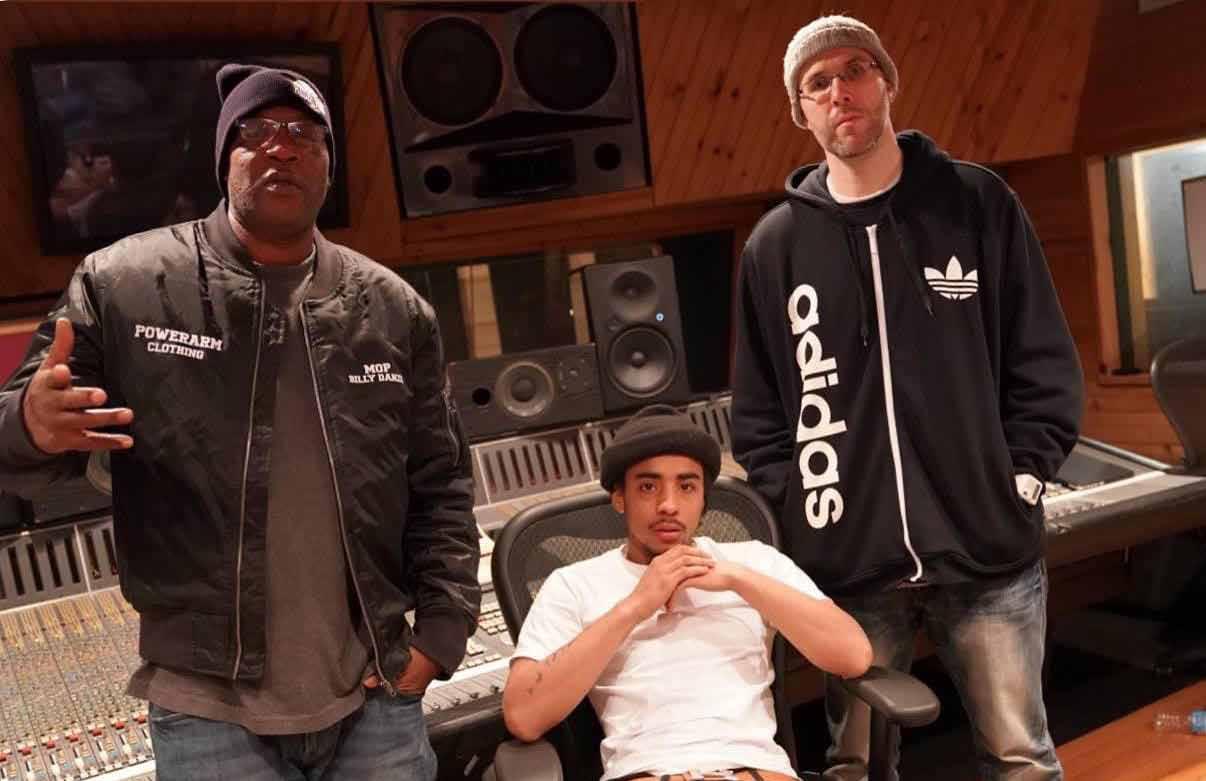
Doc Ish: "A lot. Like I said, you can by pass gatekeepers, A&R’s and Record labels to put out your music now. Which is huge. Some of the most talented people have never recieved nor will never get a record deal. The industry is changing more and more everyday."
BSM: How was it working on the Emenim project?
Doc Ish: "It was crazy and a very weird time because he was going through his first year of sobriety. A lot of people were off limits to him. Sobriety and feeling the magnitude of being the most famous rapper on earth has got to be a lot to take in. But for me, it was surreal."
BSM: What is the secret to longevity for a producer in the music business?
Doc Ish: "Staying true to yourself, evolving with the times, and not being scared of change."
BSM: Can you name some of the other artist that you've worked with?
Doc Ish: "Joe Budden, Billy Danze of M.O.P, Sean Price, Chris Webby, Max B, KRS-One, Kool G Rap, Ransom, Talib Kweli, Sammy Adams, Yung Crusha, ChrispyD, Inspectah Deck, KXnG Crooked, Uncle Murda, and Kendra Morris to name a few."
BSM: What was your most memorable recording session?
Doc Ish: "Probably I was at Dan the Man’s studio in NYC, and I was doing a recording session with Buckshot (of Black Moon) and in walked Rockness (of Heltah Skeltah) and Buckshot had just recorded a verse over my beat and told Rock jump on this. Then a few minutes all of The Boot Camp Clik was in the building. And I’m in the back on the coach listening to the record and in walks KRS-One..whom growning up was my older brothers favorite before Nas of course. So I was like ohhh shhhttttt…and everybody else was the same freaking way because KRS had just signed a deal with Duck Down and that was the very first time he was meeting everyone else on Duck Down. So by the time he got around to me all my jitters were out, everyone else was so excited to meet and work with the legendary KRS-One, that I was able to be cool and meet him and not act like an idiot.. lol
BSM: Has streaming changed the business model for the producer as much as it has for the artist? If so how?
Doc Ish: "Yes. I feel producers never get paid or the get the credit they really should. And no rapper I’ve ever heard has won an award with a whole acepella album. So Artist need producers more than producers need artist. I need a few producers that put beats up online streaming well and making a living not dealing with headaches of working with certain type of artist."
BSM: What is your preferred gear and software in the
studio when cranking out hits?
Doc Ish: "Right now it’s always Akai MPC, ASR-10, Ableton Live and a boat load of plugins"
BSM: Would you ever start your own record label?
Doc Ish: "I did in May of 2023, it’s called INYAHEAD Music and I signed my first artist Highlife Gully.
BSM: Is there anyone or any other genre of music you haven't worked with already that you would like to work with?
Doc Ish: "I’ve done pretty much everything. But Hip-Hop is my first love and I can’t leave her no matter how many times I try."
BSM: Do you have any new projects you would like to tell us about?
Doc Ish: "I just released 'Ishtrumentals Vol. 2' and I’m releasing new music every week. Highlife Gully is releasing his first debut album “Rabbit Got the Gun” the first week of February. All songs produced by me. Will be available on all platforms. I've got more sample packs and Drum Packs coming out this month available on my website www. iamdocish.com. Plus I started an online Beatstore I want to make beats available to artist that have always wanted to work with me but couldn’t afford, I wanted that to come to full fruition for any artist that wants to work with me can and will be able to afford it.
It’s https://docish.beatstars.com
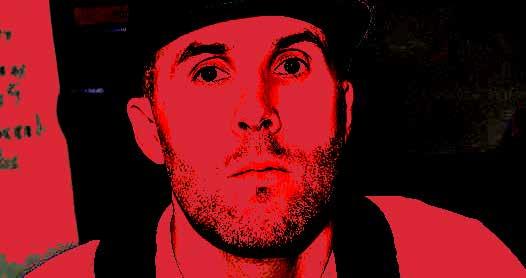
Sampling is the art of Hip-hop that I will always love. The way to take another persons body of work, pitch it, chop it, and flip it into your own piece is always dope to me. doc ish
" "
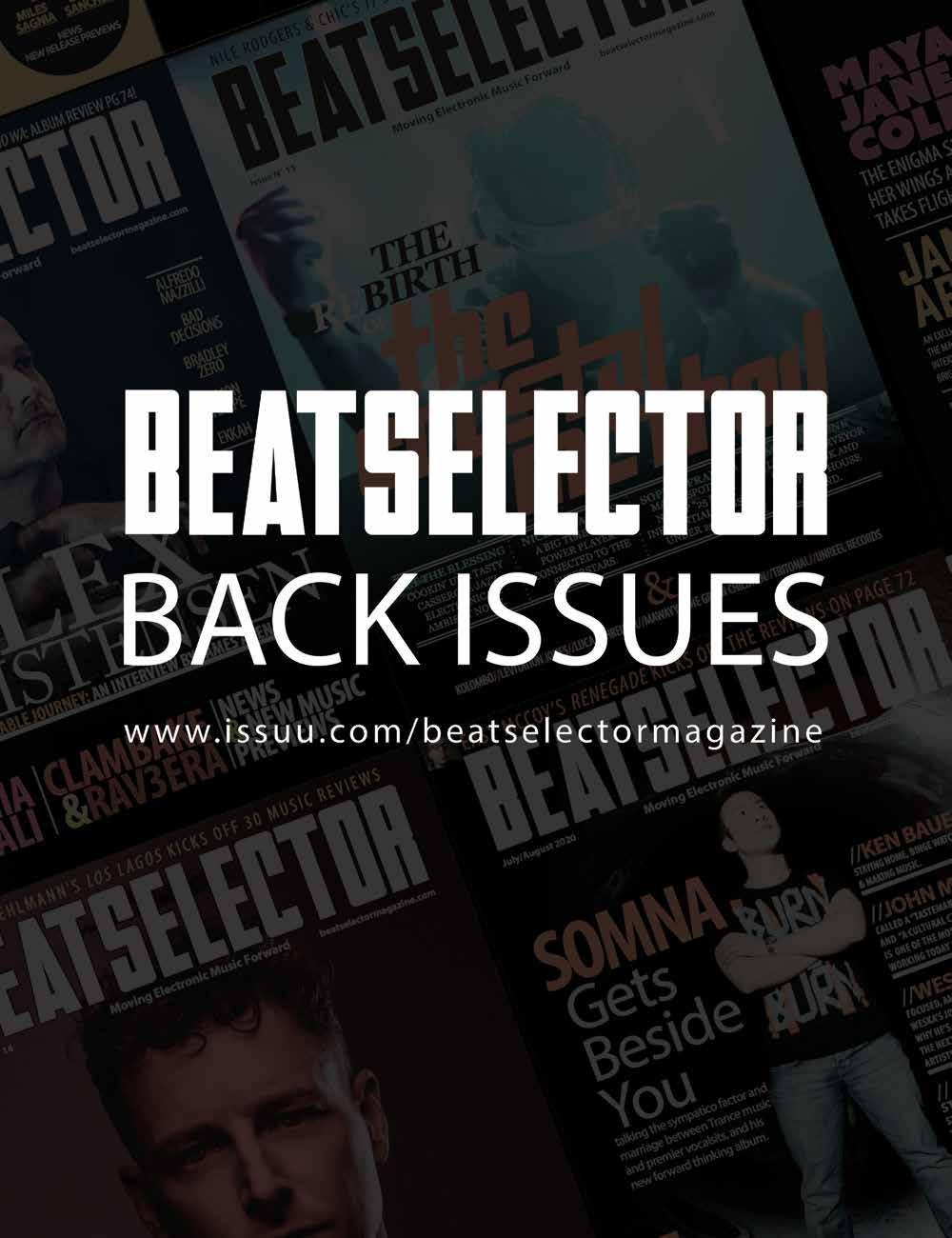

hristopher Gholson better known by his stage name Drumma Boy, is an American record producer, rapper, composer and philanthropist. Gholson has worked with an array of artists that span from Hiphop, R&B and Reggae. Gholson relocated to Atlanta in 2004 and set his sights on becoming a professional music producer and entrepreneur. Citing his sense of business acumen from his mother, a professional accountant, Gholson founded Drum Squad, an independent umbrella entertainment company that encompasses Drum Squad Productions, a music production company that represents producers and songwriters, Drum Squad Records (a record label), and Drum Squad Films, a film production and distribution company. Gholson also scores for television and film, most recently working on FOX’s hit TV show Empire with Bryshere Gray (Yazz). In December 2013, Drumma Boy was commissioned to create film scores for a new independent film called “Blood First.” GRAMMY AWARD WINNING PRODUCER & SOUND ENGINEER

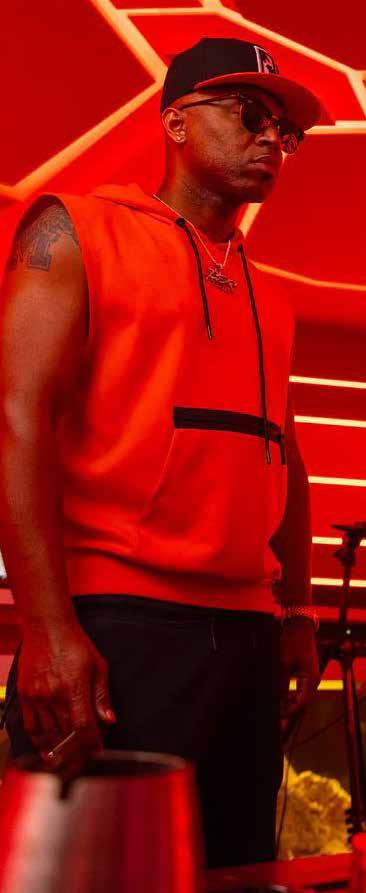
BSM: Congratulations on your venture The House of Fresh. Can you tell us more about it?
CG: “The hottest celebrity Boutique in Atlanta. We carry all the celebrity clothing brands like: The Cookies Brand, NBA Young Boys Brand , Lil Babies Brand, Ethika Gazelle, Fila, Adiadora, Akoo, Hustle Gang Staple Pigeon, The Drugs Brand and Michael Cherry just to name a few.”
BSM: Are there any other ventures outside of music you’re currently working on you would like to tell us about?
CG: “Man, I used to be all over the place, but right now I’m just focusing on The House of Fresh and music.”
BSM: How important is it for producers to reinvent themselves in business outside of music?
CG: “It’s necessary to first establish yourself as a producer or beat maker then evolve into developing artists and then move on to establishing some trends, maybe even establishing a genre like I was fortunate enough to do with trap music in Memphis. Yo Gotti was the first rapper I worked with.”
BSM: When you’re in the studio, what’s your favorite piece of recording software or gear?
CG: “Mpc Everything.”
BSM: How important are good pair of headphones when in the studio? And what makes a pair of headphones good?
CG: “Very important. I like Master Dynamics. They give you a true definition of the sound. Beats by Dre has too much bass and are real heavy on your ears and hurt after wearing them for long periods of time in the studio. I need something light and comfortable for those long studio sessions, especially for lengthy mixing or production projects that go on for hours.”
BSM: What studio are you working out of nowadays in Atlanta or do you have your own?
CG: “I currently work out of my own studio right from the house, back to the basics.”
BSM: How important are endorsements sponsorships and brand partnerships for artists in today’s market?
CG: “All of that s*** is important man. Imagine Michael Jordan without a shoe deal, especially in sports, it fills an income gap. Like Shaq, he makes most of his money off of endorsement deals. A lot of NBA players wouldn’t be able to have their lifestyles that they have if it wasn’t for the endorsement deals. It gives you a little bit more financial flexibility and also it’s a great face card for brand
recognition and credibility when you are dealing with a lot of these corporate brands.”
BSM: How has streaming changed the music business?
CG: “Streaming has changed the business to a more content focused industry and with the progress in technology, like with streaming devices and the way people consume their music, playlists become the thing because people would rather stream their own playlists over buying albums. Even Radio stations are downsizing. DJs do mixes from home now. It takes the experience out of buying the hot new album away in my opinion.”
BSM: What are your most successful projects in your opinion up-to-date?
CG: “Young Jeezy hands down. Let’s Get It: Thug Motivation 101 and Standing Ovation.”
BSM: How important is the Atlanta strip club scene to Atlanta’s hip hop culture?
CG: “Used to be essential and used to be a must like around 2016 let’s say to mm and 15, but now the way people consume the music is a lot different. People are at home and on devices, so it’s not as important.”
BSM: What other genres of music would you like to add to your production catalog to make it complete?
CG: “Jazz before I’m gone, even Disco maybe, or a new wave of country music. Being from Memphis, I have to give the hometown a blues album. Being friends with the likes of B.B. King for example, I have a lot of people to network with. Yeah, I have to do it. Plus there’s a lot of young Blues artists in Memphis I can pull talent from.”
BSM: Can you tell us how has the Atlanta music scene
impacted the music industry?
CG: “From an R&B perspective, first like with SWV, Toni Braxton, Monica, Jagged Edge, there were so many huge R&B artists out of Atlanta. Jermaine Durpi, he rapped also and he had the dope energy reppin his city. He put the city on the map. Many people in Atlanta come together and get money. You can come to Atlanta and get on. Most of the artists in Atlanta are doing amazing things and aren’t even originally from the city. I have always respected that about Atlanta.”
BSM: What advice can you give new producers about publishing?
CG: “Own it. Own it. Own it. Don’t sign it away and make sure you do split sheets so you can get paid. A lot of producers don’t even know how to get paid. Don’t sell beats exclusively for peanuts, don’t be too eager and keep your publishing!”
BSM: What do you look for when working with new artist?
CG: “Originality and work ethic.”
BSM: Do you see traditional R&B becoming popular in the market again?
CG: “It never really left. It’s still out there, you just have to look for it, just like real Hip-hop never really left. You just have to look for it.”
BSM: How was it working with Young Jeezy and NBA Youngboy?
CG: “I got a call from ‘bird man’ who said he wanted to bring his young boy over to the studio and that’s when I met NBA Youngboy. You know, he went in the booth and did his thing. He’s serious in the studio about his business.”

OWN IT. OWN IT. OWN IT. DON’T SIGN IT AWAY AND MAKE SURE YOU DO SPLIT SHEETS SO YOU CAN GET PAID. A LOT OF PRODUCERS DON’T EVEN KNOW HOW TO GET PAID. DON’T SELL BEATS EXCLUSIVELY FOR PEANUTS. DON’T BE TOO EAGER AND KEEP YOUR PUBLISHING!
CHRISTOPHER 'DRUMMA BOY' GHOLSON

ark Goodchild is a Los Angeles based record maker with 27+ years experience in the music business as a DJ, engineer, mixer, vocal producer, A&R, music supervisor, and artist manager. His client list is a superstar studded list of names that include Nas, DJ Premier, Swizz Beatz, Calvin Harris, Tiësto, Lady Gaga, Santigold, and dozens more resulting in 26 Grammy nominations and 5 wins. Goodchild currently is working as an A&R executive for Mass Appeal Records, and continues mixing for limited projects. MULTI-GRAMMY AWARD WINNING SOUND ENGINEER
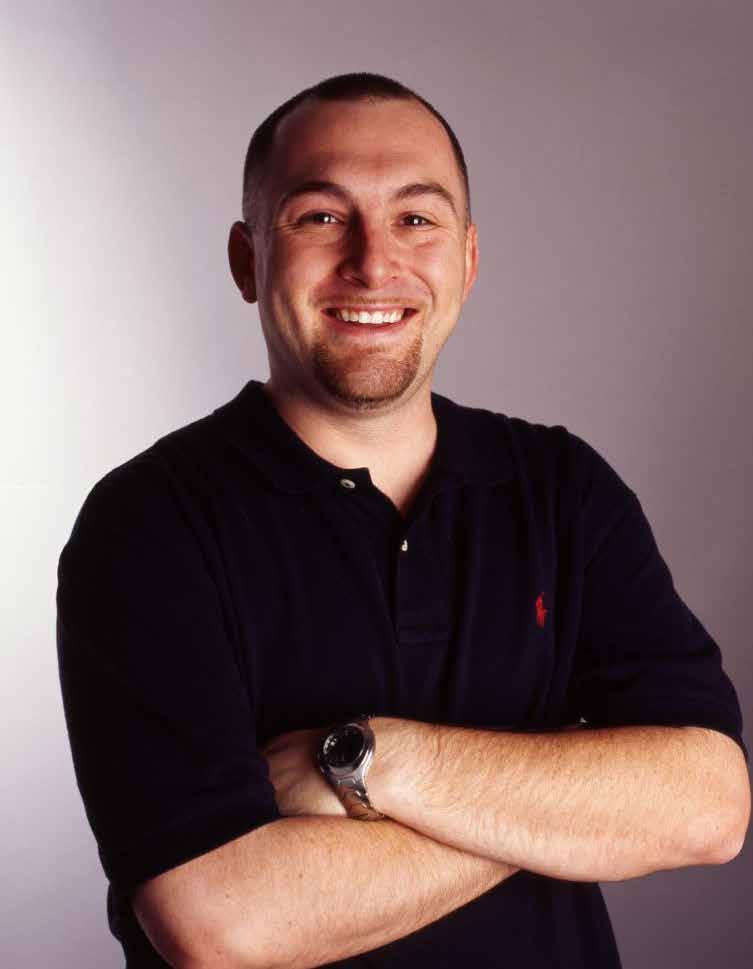

BSM: Where are you originally from?
"I’m originally from Keene, NH. My music aspirations started there as a Hip Hop DJ. After high school I moved to Atlanta to pursue music in any capacity. I was still DJing in Atlanta, but fell in love with the studio and never looked
BSM: What studios are you currently working out of or do you have your own studio?
I do most of my mixing at home currently. I have NS10’s and a very basic setup. I’ve been in the box for a LONG time so I don’t need much. When I’m recording, which I still do on occasion, I love working at Conway, Chalice, Shangri-La, and Westlake in Los Angeles. Whenever I’m at Conway, it feels like home."
BSM: How did you get started in the business?
"I count my first day in the business as the day I arrived in Atlanta in July of 1995. I immediately went to Earwax Records to make a connection there because I was heavy on my DJ grind. I was also attending the Art Institute of Atlanta for a program called Music Entertainment Management, with a concentration in recording. Later that year I started as an intern at DARP Studios. That’s where my career really started. Over the next several years I would still be DJing a lot, doing mixtapes, radio shows, tours, and club spots. Eventually I realized the studio was the place for me and in 1999 put my full focus on engineering. I have to give props to Monica Tannian, Carolyn Paige, Dewey Williamson, Leslie Brathwaite, and Ricco Lumpkins for seeing the drive in me, and arming me with the tools I needed to succeed."
BSM: What major changes has the music business undergone since you began?
"Not sure where to start here! On the studio side, I would say the evolution of engineers becoming vocal producers has been big. And engineers that are specific to vocalists seems to be more important than ever. Now that there’s a lot less collaboration in the studio between a producer and an artist, it has really become the job of the engineer to ensure performances are captured properly, from a production standpoint. Before we sent tracks back and forth over email it was much more customary for the producer to be the vocal producer as well. I’m especially thinking of people like Rodney Jerkins, Dallas Austin, Jermaine Dupri, Harvey Mason Jr, etc… They delivered entire records. Now the recording engineer fills in some of
BSM: How was it working with Nas on the Grammy winning "King Disease" album?
"It was interesting because we recorded a lot of that album during lockdown. I had already built him a home recording rig, but we never used it much. Once COVID hit,
we really cranked it up. I would be in one room and he would be in another, so we didn’t have an eye-line. I had worked with him so much up to that point though that I knew how to help keep the pace of the session. Like when he wouldn’t want the beat to play, what line he might want to get over, things like that. After that album I joined his label Mass Appeal as an A&R. Since KDII he’s done most of his recording directly with Hit-Boy & David Kim. Their chemistry is so crazy that I never worried about having to record with Nas on Hit-Boy tracks again."
BSM: What other Hip-hop greats have you worked with?
people like Leslie Brathwaite, Miles Walker, TK Kidd, Juan 'Natural' Najera, and Josh Gudwin." Networking is also important with producers, artists, and writers. Sometimes you have to be the fly on the wall in a recording session, but a confident one. Building trust with every client that walks in the room will only grow your network. Being an engineer that just wants to get thru a session but doesn’t build with the team around the creatives is just useless.
BSM: What do you look for when choosing to work with an artist?
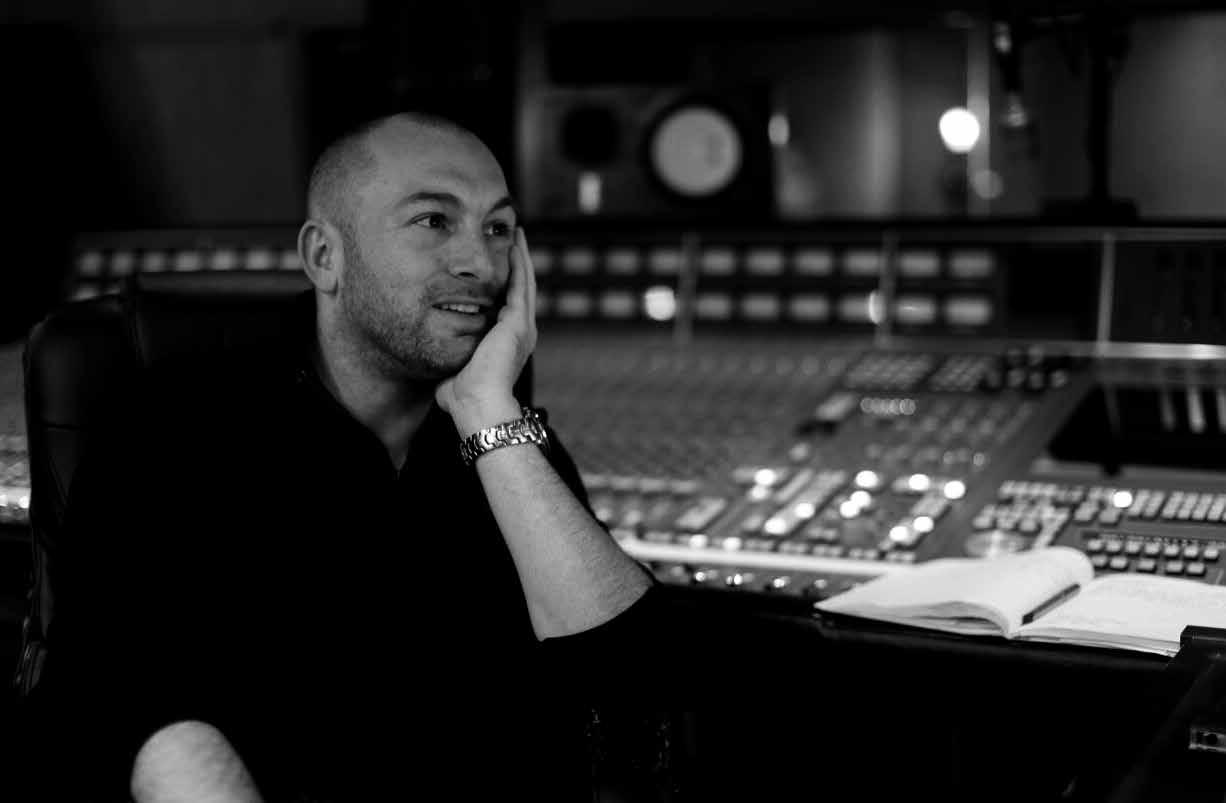
MG: "I spent a decent amount of time over at Stankonia working on various things with Big Boi and Andre of Outkast. I can’t say I did a ton with them, but enough! I recorded a lot of TI’s 2nd album “Trap Muzik.” I’ve done a good bit with various artists from Cash Money also. Most of my clients tend to be more melodic, like Akon, Usher, etc..."
BSM: How important is networking and building relationships for an engineer in the music business?
MG: "Relationships are the name of the game. I think one thing I can say is find engineering friends that want to help each other grow. Some of my best friends in the biz are engineers that also shared the love, sent me work, shared information, and in the midst of their own successes tried to lift up others. I’m thinking of
MG: "Can we communicate effectively? Does my style of work mesh with their style of work? Some of my favorite producers are also clients I would never want because their working methods would probably drive me nuts. (Spending a whole day picking a kick drum sound, etc…)"
BSM: What is your preferred recording and mixing software in the studio?
MG: "I am about that Pro Tools life and always will be. I’m pretty good in Logic but when it comes to Ableton I hand that stuff to an assistant."
BSM: Do you produce also or have any plans of going into music production?
MG: "No. I can produce. I’ve had production gear over the years. I’ve taught mys elf production methods. I just don’t have any interest in production or composition. I’m definitely more on the executive side now.
"BSM: Do you have any new projects you would like to tell us about?
MG: "Nothing on the recording or mixing side unfortunately. I’ve curbed a lot of that work to concentrate on my A&R duties at Mass Appeal. There, my roster consists of Nas, DJ Shadow, Statik Selektah, Richie Quake, Roc Marciano, and a series of EPs we’re releasing to celebrate Hip Hop’s 50th Anniversary. My first EP with DJ Premier came out last summer, and as of this writing we’re getting ready to release Swizz Beatz’ EP. I have 2 more coming. One from Hit-Boy and one from Take A Daytrip."
"One fun story is that I’m also helping get a Slick Rick project finished for Mass Appeal. One of my earlier credits was assisting Ricco Lumpkins on a mix for a Slick Rick song featuring Outkast back in the day! We just threw a celebration for Rick because of his Lifetime Achievement Grammy, and I was a little beside myself to think that I had worked on his last full length in 1999 and here I am helping to get his new full length album delivered."
BSM: Any advice for up and coming engineers?
MG: "A few things I’ve lived by: 1) Keep accurate notes
and session logs. I have 'session books' from 2007 to now which detail every session I’ve been in. Sometimes there are lyric sheets hiding in there. Sometimes drawings from clients. What hard drives I worked on. Who was there. This information will be invaluable over the years as people come back looking for old songs.
2) Get a manager and/or attorney if you’re not particularly good at talking money. You should never be discussing money in sessions anyway. That should always be handled outside the room, before the session happens. I wish that I had hired a manager years earlier in my career. Once I started working with Monica Tannian in 2005, I would say my career accelerated at a crazy pace. I was able to be present in a session to the fullest. I never had to have awkward talks with producers or their reps. I could be the best engineer I could be. Plus managers will always ask for more money than you would yourself!
3) Don’t rush to be a mixer. For some reason, in pro audio everyone showers love mostly on mixers. No shots at any of them, because they all deserve their flowers. BUT. Recording engineers are more vital than ever. They are responsible for so much of the sound leading up to mix. You build your relationships being IN THE ROOM with clients. Not over email. Don’t rush to call yourself a mixer and turn away work that could lead to a fruitful career. I generally like being in the room with vocalists as much as I do mixing a record by myself on my own time."

""Relationships
are the name of the game. I think
one thing I can say is
find engineering
friends that want to help each other grow.
Some of my best friends in the biz are engineers that also shared the love, sent me work, shared information, and in the midst of their own successes tried to lift up others. mark goodchild

"I can't imagine comprehending the vastness of the EDM universe without Beatselector Magazine. It's my #1 go-to source for exploring this music to its fullest, and there hasn't been an issue yet that I haven't read completely, cover to cover."
JAMES ARENA
Published Author & Dance Music Historian

Shamel Hughes is a Recording Engineer, Educator and Entrepreneur from Brooklyn, New York. Shamel has worked with recording artists such as Busta Rhymes, Alicia Keys, Emeli Sande, H.E.R. and many more. He was the apprentice of Tommy Uzzo at Mirror Images Recorders in New York, NY and now mentor others in the arts. Being highly skilled in the recording arts and computer sciences has allowed him to work with companies such as Monster Media and Audible Inc. He is also an educator in multi-media arts and has been an instructor at the Institute of Audio Research; the oldest audio school in the world. Other side projects include music production and media arts programs for organizations that support the arts and community development. Hughes is also a certified Avid Pro Tools Instructor and curates an adult Music Production education program at PioneerWorks in the Red Hook neighborhood of Brooklyn, New York. His philanthropy work continues throughout the community at Red Hook Initiative where he facilitates a music production and media arts program for middle school and high school students.
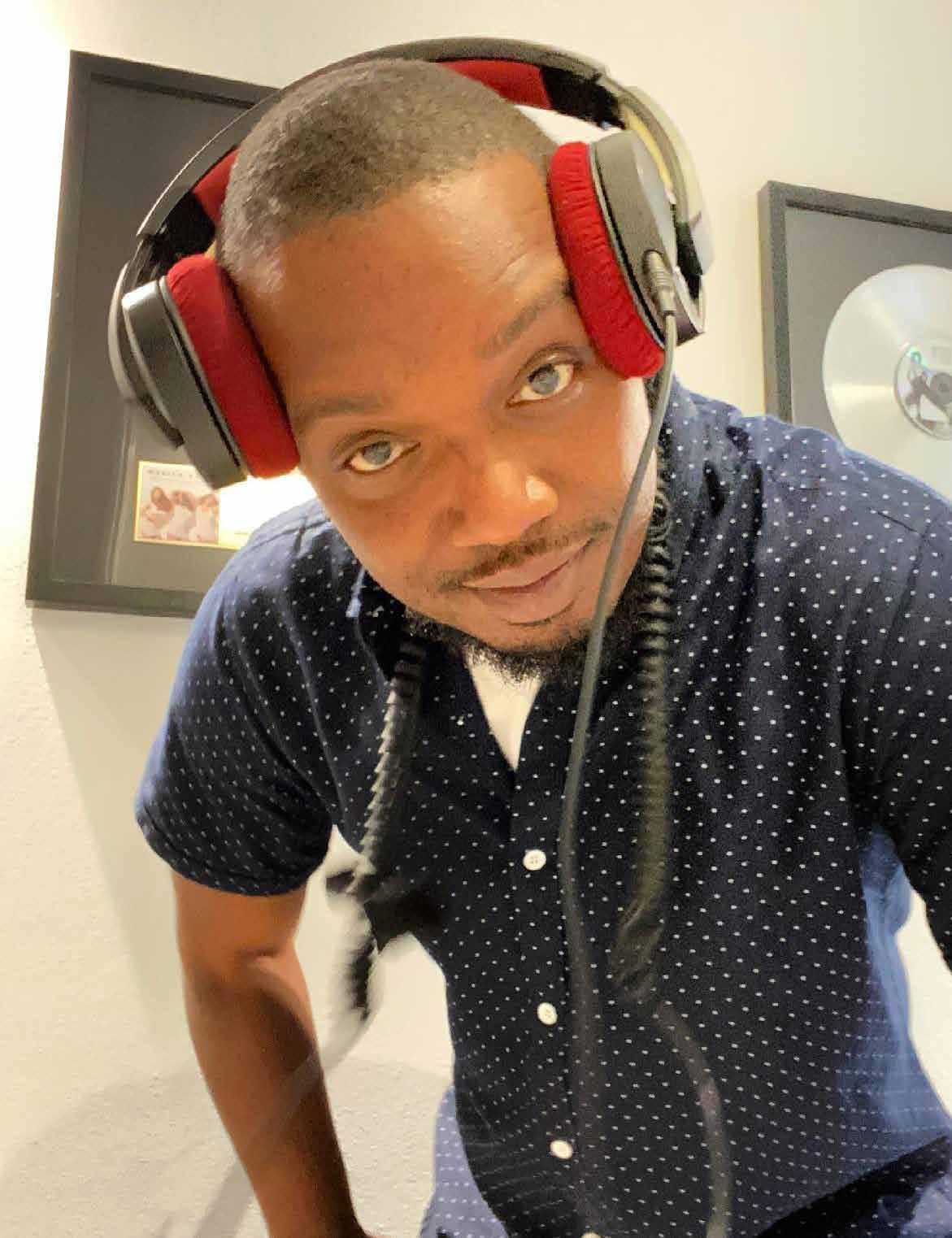
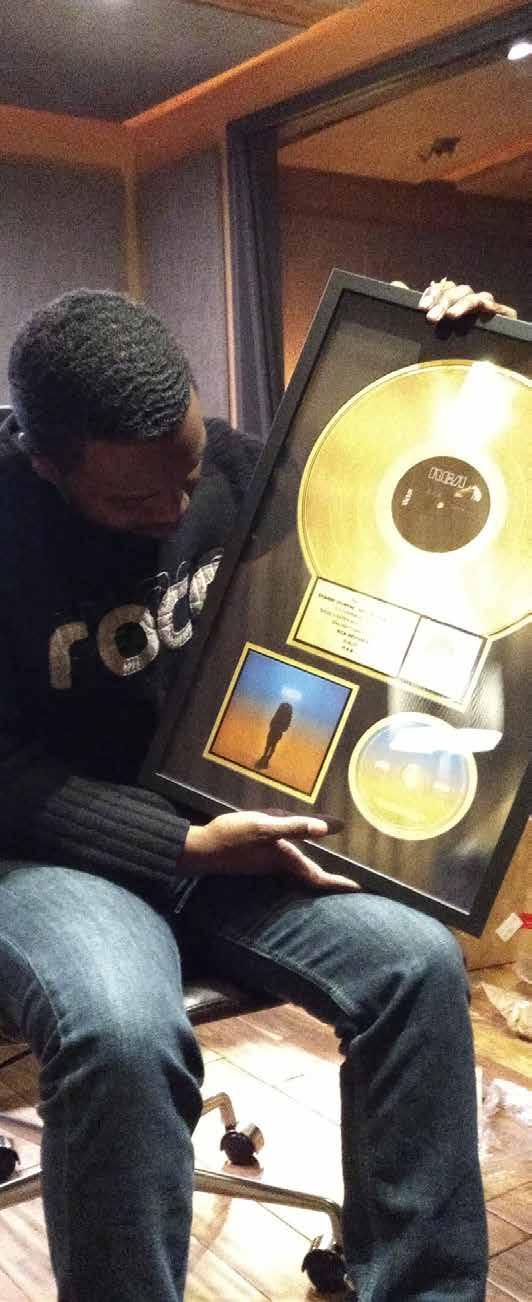
BSM: Describe your very first “big break” into the music and entertainment industry and how that felt.
SH: “My first break into the business was probably my first assistant engineering credit the first year working in the field. I was working with one of my colleagues at the time who was my mentor in the field. We were working on finalizing this one major record that was like the Latin version to ‘We Are The World’ by Micheal Jackson. This was the Latin version at the time and it was called ‘Nuestro Himno,’ a Spanish-language version of ‘The Star-Spangled Banner.’ It was first released as a single in May 2006 as a commentary on the immigration/border debate in the United States. Right after we mixed the record, I delivered the CD to the radio station and headed back to the studio. Within 10-15 minutes the song was played and that experience changed the way I saw the business.“
BSM: What is the greatest lesson you have learned so far working in the entertainment industry?
SH: “I’ve learned what it takes to be a team player and what it takes to be a model student of the craft. I believe the greatest lesson I have learned was that there is always someone that is working to take your spot, and I wasn’t having that.”
BSM: Under the tutelage of the legendary Tommy Uzzo, how does that experience translate in terms of you now being a mentor to others?
SH: “Tommy Uzzo was different from many engineers that I have come across in the field. I learned a lot about the ‘traditional’ methods of the craft and the business practices of running a professional recording studio. I have taken those morals, values, and experiences to educate others who also pursue the craft.”
BSM: Name your heroes and how they inspire you to be the best you can be.
SH: “My mother is my hero. Despite what she may have felt personally about the music industry, she wanted me to be the best at whatever I put my energy into. My mother just wanted me out of the neighborhood and do something better with my life. Coming from a place of hardship and being in a tough community to raise a family in, she always encouraged me to do something that I was passionate about. She purchased my DJ set when I was about 15 and it was my way out of that lifestyle; I never looked back.”
BSM: What would you say is your most memorable moment working in the studio?
SH: “Most would be my LaBelle session. I was with Sara, Nona, and Patti, along with Lenny Kravitz and Ronny Drayton (R.I.P). It was all vibes, storytelling, and talent that I have never experienced before. Just he energy in the room was so warm and loving that I felt at home with family."
BSM: Out of all the people you’ve worked with, who left the greatest impression on you and why?
SH: “Patti LaBelle, she is the best singer in the business. We recorded her and every take was flawless. When we thought we got the take, she scratched it to do it differently and I never experience a singer since who can flawlessly do perfect takes in different ways. Which makes me appreciate and identify what a modeled singer should be.”
BSM: Since 2005, your beginnings, what are your greatest accomplishments and failures (if any)?
SH: “I do not believe I failed in anything, I only grew into the music professional I am today. My greatest accomplishment is being recognized by the Recording Academy for being apart of the success of the Grammy-Award Winning Recording Artist H.E.R. for the Best Album of the Year during the 61st Grammy Awards.”
BSM: Tell us about your Music Production education program PioneerWorks, your ongoing work with the Red Hook Initiative and the Hughes Media Group.
SH: ”I have been an Audio Technology and Avid Pro Tools Instructor at the Institute of Audio Research in New York City for 10 years. I took my love and passion to educate others. I was referred by Swizz Beats to work with Brooklyn artists/sculpture Dustin Yellin at Pioneer Works to implement a music education component for their non-profit organization. During the time, we realized Red Hook projects were just one block over and learned there was a nonprofit that supported the youth from ages 10-18 in the community. My company pitches the idea to bring music production to the Red Hook Initiative organization and for 3 years Hughes Media Group facilitated the program teaching the community the different elements of audio production with a variety of content created by our community youth.”
BSM: What is your “go-to mantra” when things get tough, hard or overwhelming?
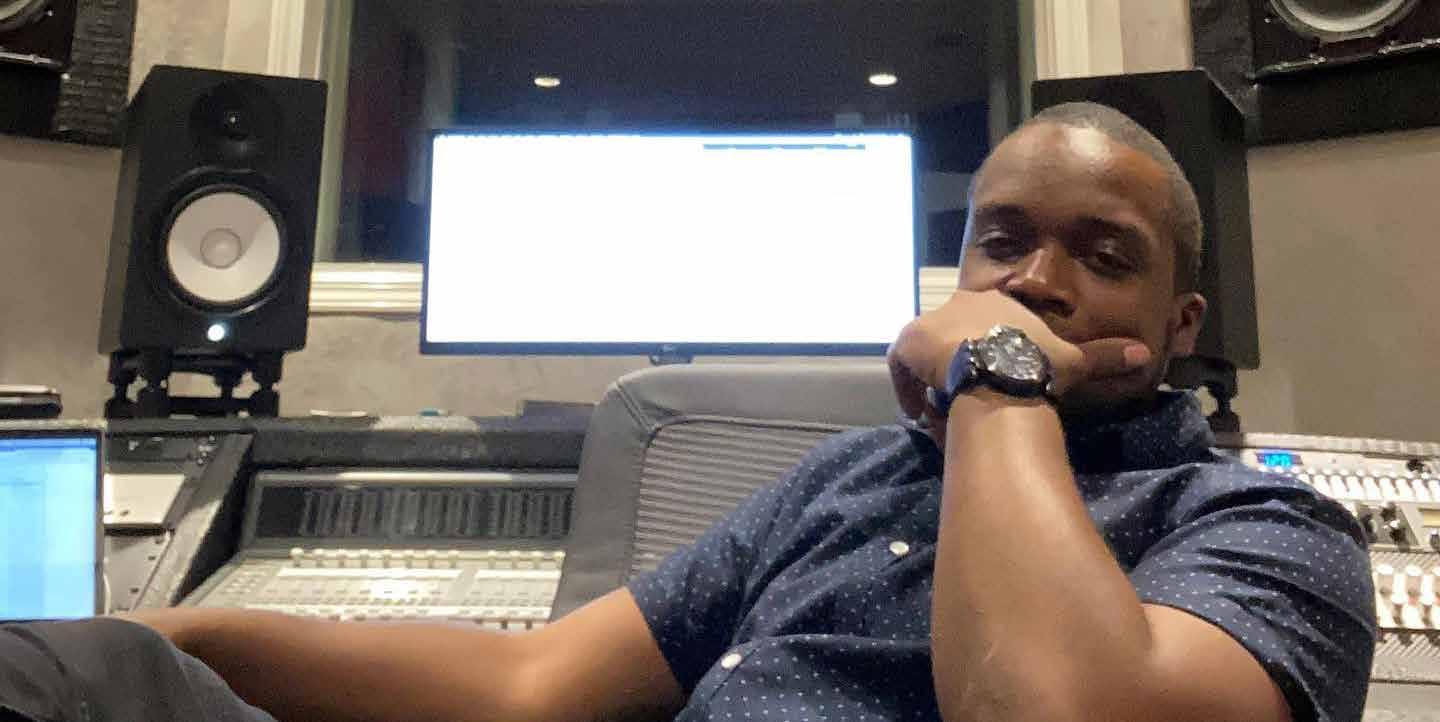
BSM: In your opinion, how has technology helped or hindered the creative process in the studio?
SH: “It is a double-edged sword. Technology always helped the creative process move forward in the music industry. With anything, technology advances helped with making creating music more feasible, workflows more efficient, and equipment more affordable for individuals to participate in the music industry. It has hindered our ability to learn the theories, science, protocols, and the mechanical know-how behind the elements of creating music. Technology has made people “dumb-down” their growth for knowledge and sped up the expectation without understanding the core values of their craft.”
SH: “When things get hard or overwhelming I always go back to basics and remind myself why I am who I am today. I ask to be here in this position and to be great at anything you have to accept what it takes to be that. Either buckle up for the ride or get out and quitting is never an option.
BSM: When you are not working, what activities do you enjoy and look forward to?
SH: “I really enjoy time with my daughter, family, and friends. I enjoy being outdoors doing things like camping, fishing, and experience what the world has to offer us. Soon as I’m done with the hustle and demand of the industry, I love to escape and enjoy the freedom to have fun.”
BSM: In your opinion, who’s the G.O.A.T. musician and why?
SH: “James Brown! He was the hardest working man in show business. I like to term the phrase that “I’m the hardest working man in show business since James Brown died”.
BSM: What album do you continually play, how often, and does it make you feel like the first time you listened to it?
SH: “JAY-Z ‘Reasonable Doubt.’ Every time I hear it, it brings me back to where I started finding my identity in the streets and who I wanted to become. It makes me feel the hardships I fought my way out of and the gratitude of my success as I strived toward my passion.”
BSM: What are your favorite studio foods and beverages?
SH:“COFFEE!!!! And more coffee!! I like lost of healthy snacks and foods because we spend days on end in the same location that sometimes you can get out of shape real fast in a short amount of time.”
BSM: How did it feel working on the H.E.R. project?
SH:“I really didn’t feel any way about it. At this point, I have worked with so many artists that I was just grateful and excited to be working with a young artist who actually fit the mold of what I was brought up working with. It was refreshing working with steady musicians, producers, and songwriters. Every song and every session was a blessing to
"Technology always helped the creative process move forward in the music industry. With anything, technology advances helped with making creating music more feasible, workflows more efficient, and equipment more affordable for individuals to participate in the music industry.
be pushing my talents to its full potential.”
BSM: What was the first concert you attended?
SH: “When I think about it, I never attended a concert. I’m protective of my hearing so I guess that subconsciously keeps me away from attending. However, I have been to a bunch of show or performance and if I ever was at a concert, I was part of the backstage scene.”
BSM: How does it feel to win a Grammy?
SH: “It feels great being recognize by your colleagues and industry professionals. It felt very rewarding after sacrificing and giving up so much to the passion of the craft that it was actually recognized. Very satisfying.”
BSM: What sports are you into and what teams do you follow?
SH: “NYG baby!!! New York Giants all day. I love my New York teams, even the Knickerbockers.”
BSM: If you were not working in the music industry, what profession do you think you would be in?
SH: “Honestly, I would be pushing my company in the field of creative content and marketing. Working with entrepreneurs like CEO Shon Murdock from SMG/The Brand Collaborative on various branding and marketing solutions for companies. Being inspired by business minds like Shon and working with teams of individuals he mentored to be.”
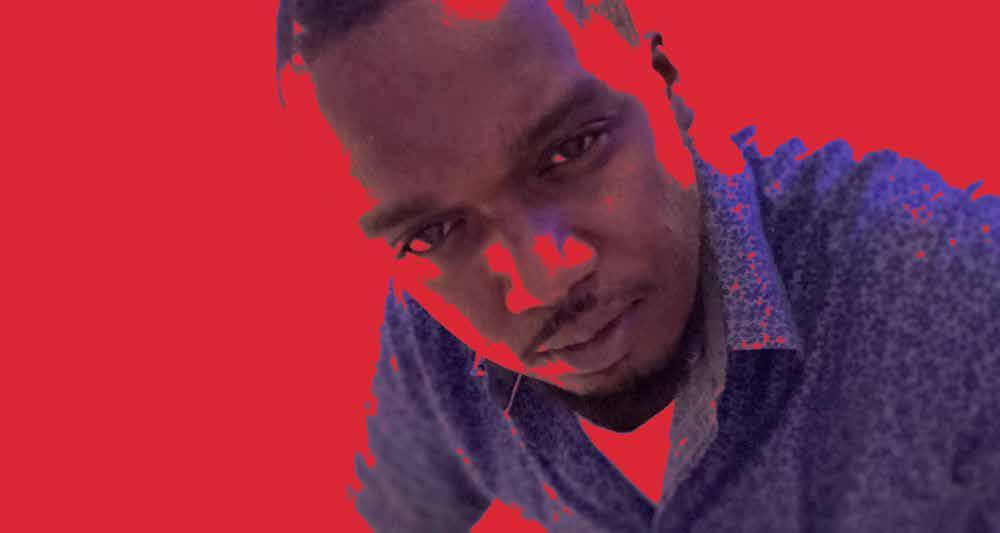
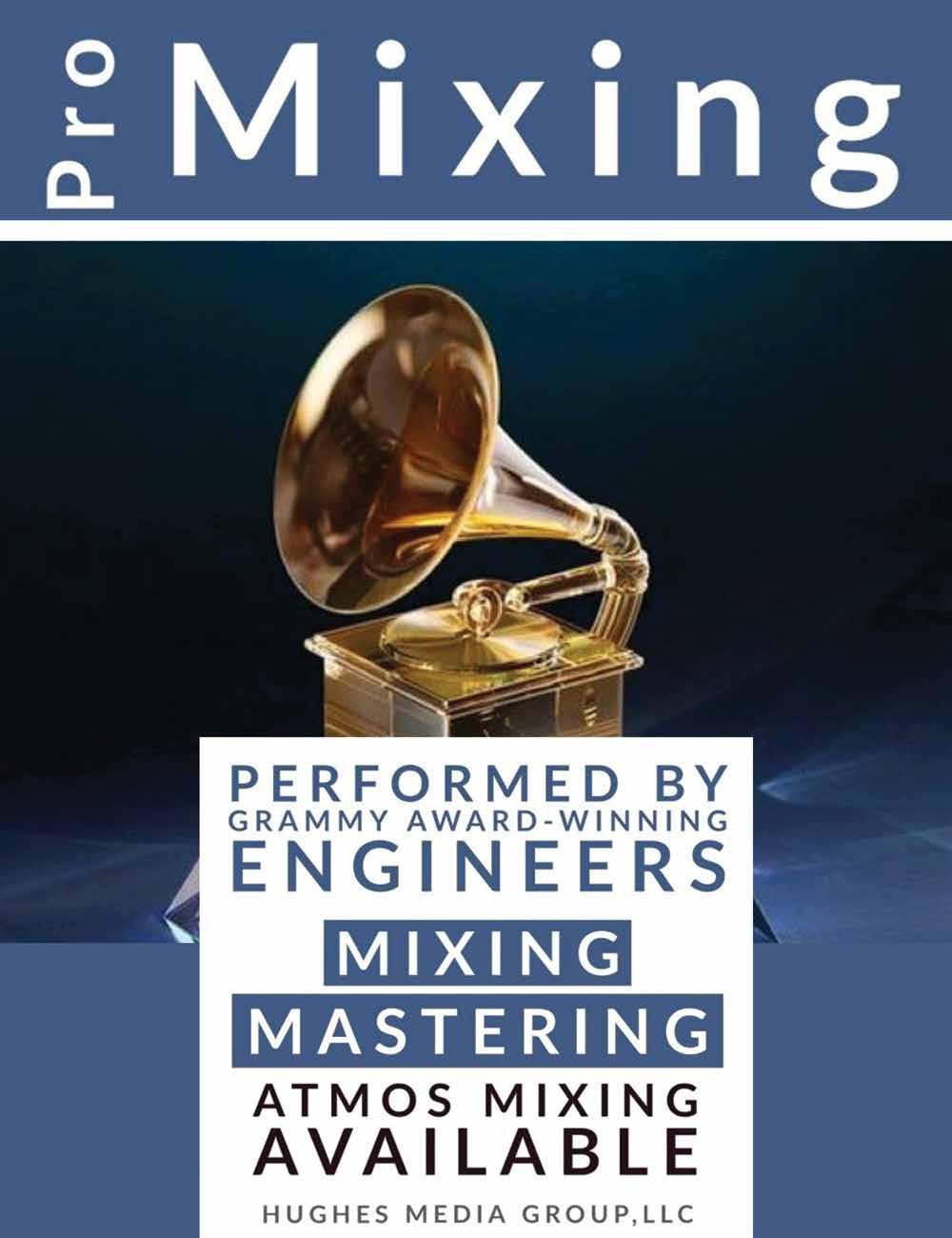

enny Kornegay is a Grammy award winning producer and entrepreneur. He’s worked with CASE, Mary J. Blige and Teyana Taylor among many others. In this interview, Kenny shares how he broke into the music business with Al B. Sure and DJ Eddie from Heavy D and the Boyz, as well as working with Case, Pharrell Williams and Russell Simmons. Kenny also addresses technology and tools, such as the loved/hated Auto-Tune, the music streaming industry, gear, studios, influences and more.
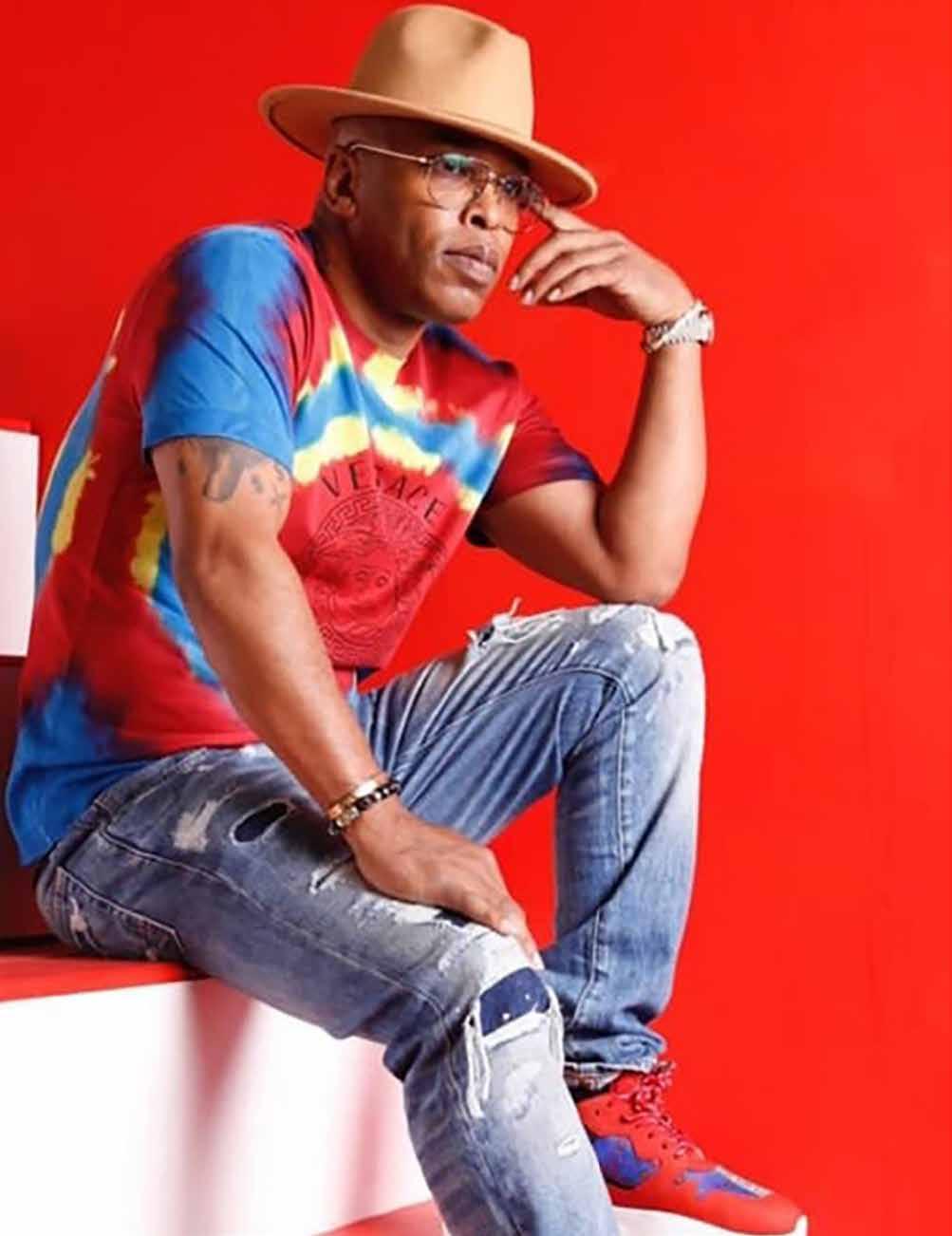
BSM: What entrepreneurial endeavors outside of music are you involved with?
KK: “I own a Lounge called DOOR 54 Atlanta WILLIAM K DESIGNS is an Accessory company. i design leather goods and just built a Recording studio called the WRAITH ROOM Atl.”
BSM: How was it working with King Combs and what projects did you do with him?
KK: “I knew his Dad for years and met King Combs when he was a little kid. I taught him how to fish at Puff’s house in Miami along with Justin and Quincy. They were all young kids then. They actually picked my original track from artist CASE called 'Touch me tease' and asked me if I could clear it for use.”
BSM: How was it working with Teyana Taylor and what projects did you do with her?
KK: “I met Teyana at a high school showcase inHarlem. She was standing in the hallway singing by the lockers. I heard her voice before I saw her and I was like 'who is that with that voice.' Then I saw her and I said you’re a star. I immediately asked 'can I work with you?' The first thing we did was a hook for a Jamaican artist. Then weeks later Teyana expressed that Pharrell was interested in signing her. Again, I immediately asked to produce her first demos-'FLY AWAY,' 'LEAVE” and 'U MAKE ME.' Pharrell heard the songs and did her deal. Teyana has always been super talented on many levels and a professional. I really like working with her.”
BSM: How was it working with Mary J. Blige and what projects did you do with her?
KK: “Mary is the queen. I love working with Mary. Our first song we worked together on was ‘You Don’t Have To Worry’
for the 'Who’s The Man’ soundtrack. Then we went on to work with my artist CASE. Mary and Faith Evans wrote Case’s first demo song called 'Don’t Be Afraid’ and I produced it, which got Case his deal. From there Mary and I developed a creative relationship and we went on to make more songs such as ‘Touch Me, Tease Me’ for Case and ‘Sincerity’ for the ‘Share My World’ album.”
BSM: Do you think traditional R&B will make a comeback or is it gone forever?
KK: “I think it’s going to be a long process because the millennials are being musically manipulated by one genre of music which is Rap and now Rap is the new R&B. If it wasn’t for Beyoncé and Chris Brown, it would be totally dead. I blame the radio programmers for killing R&B. They are not giving our new generation a chance by giving us both R&B and Hip-hop. It’s 99% Hip-hop now.”
BSM: How do you feel about artists using Auto-Tune?
KK: “It’s cool to me because it’s another instrument on a track, not to mention it helps people who need a little help to make the song sound as best as possible. As a listener or a consumer, you’re not thinking technical details, you are only looking for what feels good and sounds great when you hear the completed song.”
BSM: What is your most successful record to date in your opinion?
KK: “'Touch Me Tease Me’ by Case. That record keeps on living. Still bangs in the Clubs, on the Radio and the artists that reuses it. The track has been used for recent projects like ‘Bad Boys 3’ soundtrack feat Rick Ross and The TV series Boomerang on BET. The song is 24 years old to be exact. I am truly blessed.
BSM: Do you plan to start a record label one day?
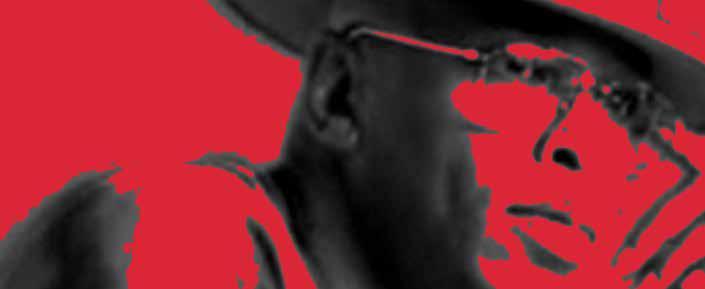
KK: “I had a record company back in the day called Spoiled Rotten Ent./ Def Jam/ Atlantic/ Warner Bros. that signed Case, Changing Faces and Drea. I had 3 deals at one time. I now have a company called BORN RICH AGENCY LLC. We manage music producers and television and film projects.
BSM: What is your favorite piece of studio equipment for banging out hits?
KK: “Logic and MPC.”
BSM: Do you have a favorite Studio you work out of or do you have your own?
KK: “Yes, I own THE WRAITH ROOM ATL.”
BSM: Who were your musical influences coming up in the game?
KK: “Teddy Riley, JImmy Jam, Terry Lewis , LA Babyface and Russell Simmons.”
BSM: If you could work with anybody that you haven’t already who would it be?
KK: “Jay-Z, Beyoncé, Dr. Dre, and Shaquille O’Neal from a music and business perspective.”
BSM: Do you think the game has changed since you first started? Can you explain?
KK: “Yes of course. Different ways we sell music, meaning no more record stores and the way we market it . No more street teams, we are in an internet climate, which has some advantages in terms of reaching the world in seconds.”
BSM: What advice do you have for an up-and-coming writer and producer in the business?
"KK: “Be passionate about your craft and don’t do it for the money because when you’re great at something you love, the money comes in abundance. Don’t ever stop, stay focused and be consistent. DREAM BIG!”
BSM: What makes an artist hot in your opinion?
KK: “Being a star, having talent and having great music.”
BSM: What kind of artist turns you off?
KK: “Copy cats. An artist can be influenced by other great artists, but they need to put their own spin on it. Be yourself at the end of the day."
BSM: Who gave you your first start in the business?
KK: “DJ Eddie from Heavy D and the Boyz started a producer company called the Untouchables and I was a member.
Eddie and Al B. Sure taught me how to make beats. Then I met Craig Kalman from Big Beat/Atlantic and he gave me my first production deal. Then I was introduced to Russell Simmons by a video director and now famous Movie director Brett Ratner.”
BSM: Is there a difference between a producer and a beat maker in your opinion? Can you explain?
KK: “Hell yeah! Beat makers think they are a producer, which let me say, they are not. They make beats and that is it. Producers orchestrate the entire sound for the artist from top to bottom and they actually work with the artist in the studio to create it. The best records are made when producers make the songs. Beat makers have no direction and wouldn’t know how to tell an artist the first thing to do in the studio."

Beat makers think they are a producer, which let me say, they are not. They make beats and that is it. Producers orchestrate the entire sound for the artist from top to bottom and they actually work with the artist in the studio to create it. The best records are made when producers make the songs. Beat makers have no direction and wouldn’t know how to tell an artist the first thing to do in the studio.
KENNY kornegay

MULTI-GRAMMY AWARD WINNING PRODUCER & SOUND ENGINEER
Ricco Lumpkins has had several songs placed in movies, television shows, and video games including NBA Ballers Phenom, Kangaroo Jack, Couples Retreat, and 3 Strikes. He holds a Masters of Science in Entertainment Business and a Bachelors of Science in Recordings Arts. Ricco is also known for giving back to his community by sitting on music business, production, and engineering panels throughout the metropolitan Chicago area. Other credentials include: Voting member of NARAS (the National Association of Recording Arts and Sciences); Member of EARS (Engineering and Recording Society - Chicago); Faculty Professor, Music Business Management and Music Production at LA Film School; Former Post Production Instructor at Full Sail University; Former Department Chair SAE Institute Chicago; Former Adjunct Professor, Audio Recording and Digital Audio Workstations at Illinois Institute of Art Chicago.
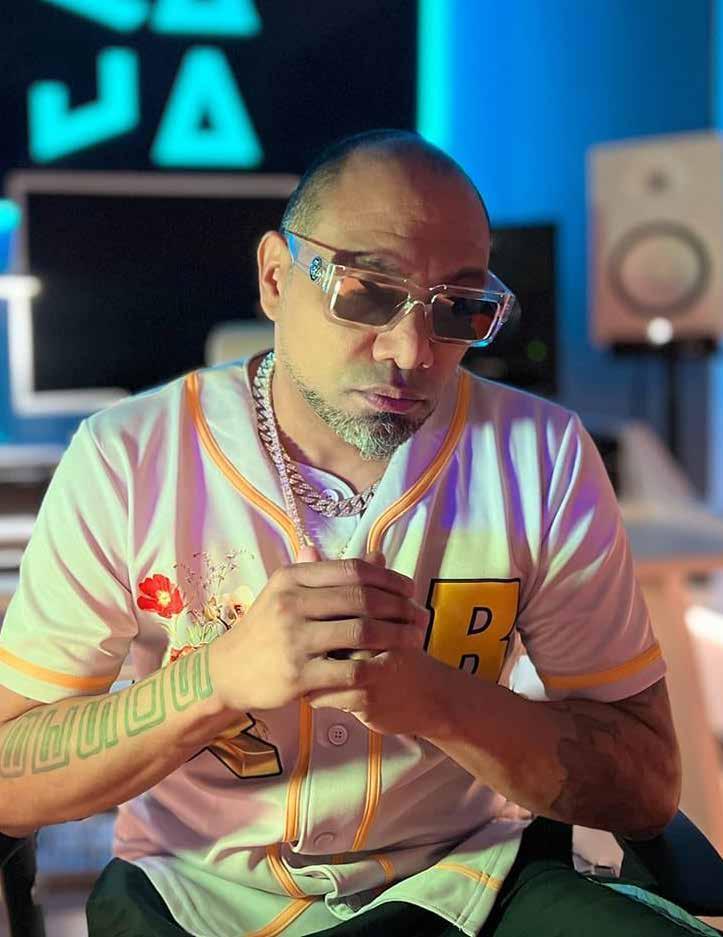
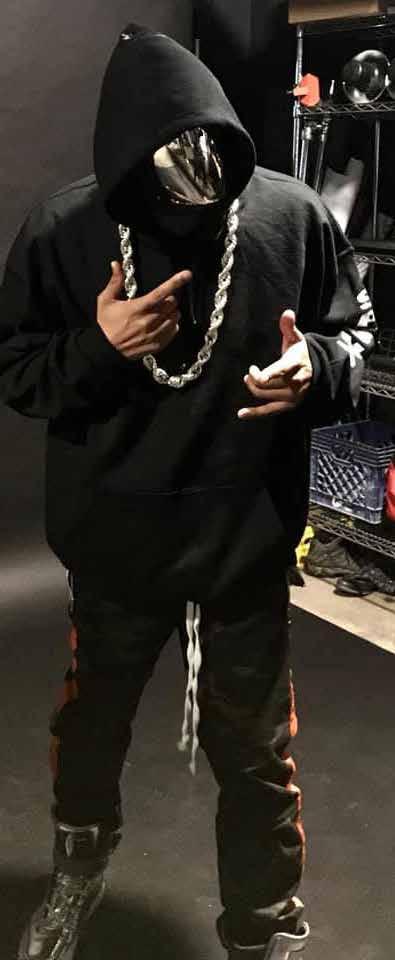
BSM: Name some of your musical influences and did you have an opportunity to work with any of them?
RL: “My main musical influences include Michael Jackson, Prince, Babyface, Quincy Jones, Jimmy Jam and Terry Lewis. Oddly enough, I’ve never worked directly with them, but have met all of them at some point in my career. I have produced, engineered, and co-written on some of the same albums/ artists they were also on. So, it was like one degree of separation. (TLC – ‘FanMail/Crazy Sexy Cool,’ Boys II Men and Millions More Movement). Regarding other producers, I’ve had the opportunity to work with and or learn under Dallas Austin, Rodney Jerkins, Tim and Bob, Arnold Hennings, Debra Killings, Lauryn Hill, Andre 3000 from Outkast, Bobby Brown, Organized Noize, Mobb Deep, Lil G from Silk, and Dennis Ross. Regarding engineering, I rose up the ranks under Neal H. Pogue (NHP Sound/ Fulton Yard), Leslie Brathwaite, and Alvin Speights. I also engineered a couple of sessions for Diddy when he was producing 112’s first album.”
BSM: What is the most successful record you mixed or engineered?
RL: “Although not successful by sales standard, all of my songs that have been placed, checks cleared, and still making me royalties in which I have produced, engineered, mixed and co-written. Most of them were the last ones to close out albums, and most of them were number 7 on each album. The most notable I have co-engineered would be ‘Waterfalls’ by TLC. I recorded Left Eye’s rap, edited and assisted the mix with NHP Sound.”
BSM: In your opinion and experience, what sound elements and techniques makes a song HOT?
RL: “It really depends on the genre. Defining ‘hot’ is subjective and totally depends on the individual fan/ consumer, but there are certain elements that move me. There has to be a nice melodic catchy hook with wellcrafted lyrics. The vocalist has to be able to sing or rap and have a welcoming tone and presence. I also like nice sub basses, electric Rhodes pianos, a catchy lead synth line, and 808 elements with good sounding drums that cut through the mix. All of it has to be arranged in a nice sensible format – not unorthodox.”
BSM: How do you discover new talent and determine which project to take on?
RL: “Funny thing is I don’t actively look for talent anymore. I often get referrals from colleagues, friends, and family. However, the most common response would be everyone looks on social media. I actually enjoy going to live showcases and sitting on panels. I also work with various musical educational institutions as an educator. So, often times I get graduating students fresh out of school. Obviously, if a client has a budget, as well as talent, we can work.”
BSM: What significant changes have you seen and embraced over the course of your 27-year career as a producer, engineer and a songwriter?
RL: “Wow. I have seen and lived through the evolution in technology – a swing from the analogue world of recording to 2” and I/2” inch tape formats to ADATs or DA 88s to the slew of digital audio workstations and plugins. However, although workflow and workstations have changed, the songwriting process has not short of online collabos. I’ve also witnessed and adapted from the downsizing of major labels to the DIY approach.”
What is your proudest moment and biggest regret so far in your illustrious career?
of artists and influencing the populace consumption of music. How does that feel and do you feel “pressure” when making your Grammy recommendations?
RL: “First off, it is an honor to be part of that community. I do not take it for granted. Neither do I take it lightly. The system has been in place for 60 plus years, so, I do not think I will rock the boat one way or another. However, when the prenominating and final voting rounds arise, I vote with my heart on the music that personally resonates with me – no pressure.”
BSM: Can you name some of the greatest talents that went through DARP STUDIOS - Atlanta?
RL: “Unfortunately DARP no longer exists, which I think has
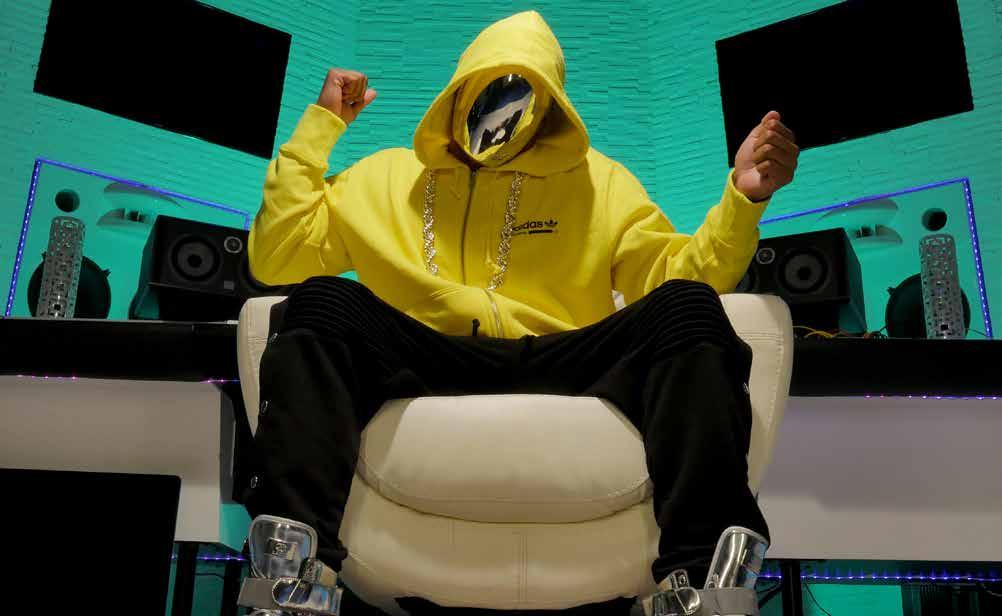
RL: “When TLC was nominated in 5 different categories and won R&B Album, Song of the Year, and Record of the Year. It enabled me to become a voting member of the Recording Academy. I just celebrated my 20th year of membership. My proudest moment is being part of and contributing to the Golden Era of Hip-hop and R&B. I’ve worked with some really talented people – a la TLC, Sammie, Lil Zane, Master P, Boys II Men, Outkast, Cee-Lo Green (when he was in GOODIE MOB), Bobby Brown, Whitney Houston, 112, P Diddy, etc. Regrets – I would say not embracing the time as it happened - it flew by super-fast.”
BSM: As a voting member of Recording Academy (Grammy’s), you are essentially driving the future success
recently been purchased by Future. Nonetheless, some of the legendary artists (not all inclusive) that have graced those mics are: TLC, Boys II Men, Madonna, Michael Jackson, Babyface, Akon, Bobby Brown, Gwen Stefani, Toni Braxton, Tamar, R. Kelly, NAS, Common, Monica, Brandy, Usher, George Clinton and the P-Funk All Stars, Ludacris, TI, Pink, Lloyd, Ciara, Curtis Mayfield, A Tribe Called Quest, Raphael Saadiq, Silk, Metro Boomin’, Gucci Mane, Lionel Richie, Jon B, The Roots, Speech and Arrested Development, Erykah Badu, Jaheim, Destiny’s Child, Keith Sweat, Kelly Price, Slick Rick, Public Enemy, Sugar Babes, Gwen Stefani, Lil John and the East Side Boys, Lenny Kravitz, Puffy, Ma$e, EPDM, Outkast, Nivea, Shanice, Mario Winans, Debra Cox, Blu Cantrell, Aretha Franklin, Tony Rich, Jagged Edge, Lil Zane, Kronic,
Felix da Housecat, Stacie Orrica, Vega, UGK, Paula Abdul, Janet Jackson, Ann Nesby, Donell Jones, For Real, Kelis, Sleepy Brown, JT Money, Rasheeda, Da Brat, Leona Lewis, Darlene McCoy, Joi, Debra Killings, Joyce Irby, Sammie, Backwoods Boys, Section 8 Mob, Guccione, Shon Murdock, Bobby Valentino, Mista, Ray Lavender, Collabo, Butta B Rock, Muk Feature, Slim Goodie, VIPER, Royal C, Colin Wolfe, Big Jasper Love, A Few Good Men, Pebbles, LA Reid, Sy Scott, Tomi Martin, Tom Knight, Charles Pettaway, DJ RUKUS, Highland Place Mobster, Derrick Demetri, “Chip” Theopholous Glass, Too Short, Shorty B, Carl Glover, GA, and Another Bad Creation and many more.”
BSM: How has the Atlanta music scene changed since you were there?
RL: “During the 1990s to mid 2000s, Atlanta was the music mecca of the south. I am honored to have been a part of that movement. Everything from LaFace Records (La Reid and Babyface), So So Def (Jermaine Dupri), Rowdy Music (Dallas Austin), Organized Noize, DJ Smurf, DJ Jelly, DJ Toomp, etc. had set the scene for R&B, Hip-hop, Pop to 808-Bass music to dominate the music industry. Atlanta took a bit of a dip between 2004-2012, but then bounced right back with the trap sound which in my opinion is an evolution of the 808- bass music.”
BSM: So, you are back in your hometown of Chicago. What’s hot in Chicago these days?
RL: “Although I used to live off Halsted and Chicago, I am actually from about 70 miles west of there in a suburb called Rockford, IL (Fred VanVleet, Jimmy Wright, Virgil Abloh, Michelle Williams, Ann Nesby, Cheap Trick, Rick Nielsen, Parris Bennett), but I’d say, just like any other city, Chicago has its fair share of talent and really great talent at that! I embrace the live entertainment community. I am working with a couple of gate keepers in the city who sponsor many showcases throughout the region.”
BSM: What’s the best and worst thing about living in Chicago? (Besides the notorious “Hawk!”)
RL: “Yes, the Hawk is the worst! Still can’t get used to it. I think until within the last decade, CHI did not get the respect it deserves. Nowadays, with the television and film companies becoming more common place, the music business is starting to give it a chance. I’ve had a couple of top executives asking for the next wave of talent from the CHI.”
BSM: Name your go-to venue/night club in Chicago. Why so?
RL: “Again, it depends on what you are looking for. It’s changing all the time. My buddy is a resident DJ at various locations throughout the city. So, I will periodically visit different ones just to see what’s hittin’ for various demographics. I personally like the low-key rooftop lounges. They’re chic.”
BSM: Do you have any news to share regarding future projects?
RL: “I try not to jinx my opportunities, but I can generally speak
on some of the irons in the fire: Focusing on rebranding my imprint as RICCI∆NO J∆MEZ (Producer/DJ); Recently started DJ’ing, and I’m seeking an agent to start performing as RICCI∆NO J∆MEZ; Working on a docuseries of my professional and personal experience in the music business from a producer, engineer, songwriter, to former studio owner, publisher, as well as consultant; A pilot being presented to BET; Negotiating 2 more song placements via Viacom; Working with 2 female pop artists; Working with 2 female R&B artists; Working with 1 male R&B Trap artist/songwriter/vocal producer – John Renaissance; Working with 2 Hip Hop artists from Chicago; Working on a “true” lyrical Hip Hop artist from Queens, NY – Shon Murdock of SMG; Formulating a series of books about production and engineering; Working on a sample library pack; Working with various educational institutions for teaching and development curriculum - At some point, I will be putting together a clothing line.”
BSM: How much did you have to sacrifice to make it to the top?
RL: “I’ve sacrificed a lot of former friends, girlfriends, an ex-wife, ex-fiancée and quality time with my family. However, I have since re-established my foundation and reconciled with my son, mother, father, and brothers and have found a significant other who has my back. I love them all to pieces.”
BSM: What is the greatest challenge in mentoring new Talent?
RL: “It all stems from the song and musical vision of the artist, producer, and team. We live in a viral world now. So, going viral is their definition of success. There appears to be a trend where artists think “hard work and dedication” to the craft is not necessary. So, I would say artist development and media training is a bit of a lost art, but the entertainment business mindset of new talent is the biggest hurdle. Brand equity, marketing and promotional campaigns are what assist in longevity.”
BSM: How important is it to reinvent yourself in today’s market?
RL: “I think it truly depends on what one’s ultimate goals are. If one is trying to be validated by the mass population, then it is all about trying to be relevant, but if one has a hold on self- identity, then reinvention is on its own timeline. Creativity and inspiration will lead the way. Don’t force it.”
BSM: What piece of equipment in the studio is your greatest Ally when mixing a hit record?
RL: “Well, when mixing I am pretty much within the box now. So, I use various pieces. There is no 1 go-to anymore. I use Ableton and Pro Tools for mixing. I use Ableton and FL Studio Producers Edition for beat-making. I used to be a die-hard Maschine user but recently switched to FL Studio Producers Edition. Some of my current plugin favs are Melodyne, AutoTune, R Vox, Channel Strip, Shadow Hills, Avalon 737, Super Tap, Fab Filter Q2, Izotope Ozone, R Bass, Lurssen Mastering Tool, Final Plug by Wave Arts, and YouLean Loudness Metering.”
BSM: Any Pro recording tips for the home studio engineer?
RL: “Try not to get overwhelmed by the abundance of plugins and gear. Try to perfect the art of recording, mixing and mastering. Then keep it simple by using what gives you the best possible sound and will get you paid.”
BSM: Looking to the future, how do you think the roles of a producer, engineer, songwriter and the music industry as a whole will evolve in the next 5-10 years?
RL: “Regarding the producer, engineer, and songwriter, I don’t think much. The trend I see happening is they are becoming more of a singular role versus separate entities. Creatives are learning
how to streamline and multi-task responsibilities. However, the cybersphere will continue to change regarding digital distribution and how fans will consume. Live shows will continue to be experiential, but video games and VR will be the ones to set the stage.”
BSM: Was all the hard work worth it when you look back on your career?
RL: “The hard work is the fun part – most times it doesn’t feel like work – feels like passion or the pulse of your heartbeat if you are doing it for real. It is learning how to deal with ‘music business personnel’ that is the real task for most.”
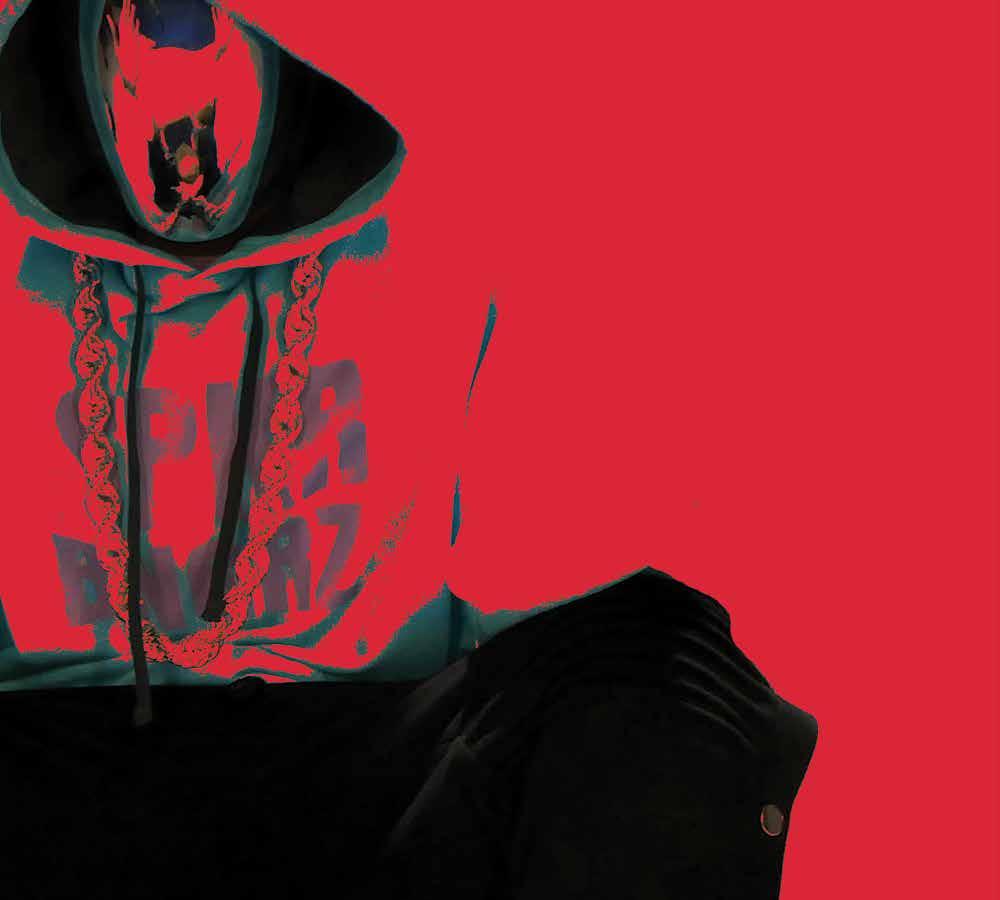
YES, THE (CHICAGO) HAWK IS THE WORST! STILL CAN’T GET USED TO IT. I THINK UNTIL
WITHIN
THE LAST DECADE,
CHI
DID
NOT GET
THE RESPECTIT DESERVES. NOWADAYS,
WITH THE TELEVISION AND FILM COMPANIES BECOMING MORE COMMON PLACE, THE MUSIC BUSINESS IS STARTING TO GIVE IT A CHANCE. I’VE HAD A COUPLE OF TOP EXECUTIVES ASKING FOR THE NEXT WAVE OF TALENT FROM THE CHI. ricco lumpkins

Aaron ‘Freedom’ Lyles is a native of Queens, New York. His musical journey has led him to high-profile projects as a songwriter, producer and sound engineer for many labels under the Universal Music Group and Warner Brothers umbrella, as well as many other labels. The multi-Platinum and Grammy award winning producer/engineer has worked with some of the most talented recording artists and performers on the planet ranging from the legendary Earth, Wind and Fire and the Reverend Al Green to Cece Peniston, Poppa Large of Ultramagnetic MCs, Angie Stone, Heather Hunter and many more. Producing and engineering in genres as diverse as R&B, Soul, Hiphop, Gospel, Pop and Dance, showcases Aaron’s prolific creative capacity. His talents and skills also extend into composition and scoring for film and television, as well as sound design for pro-audio musical equipment.
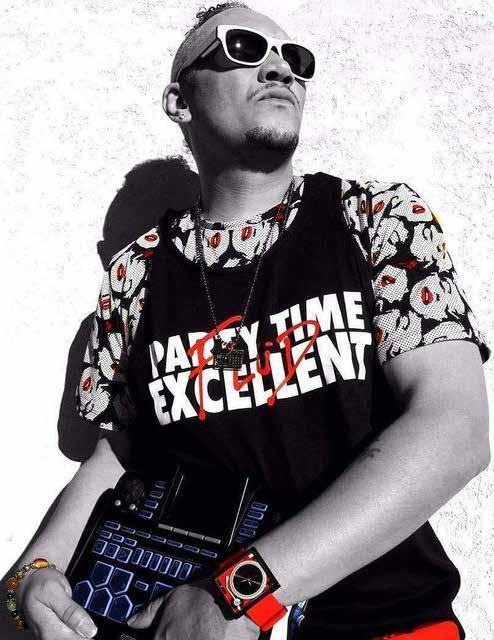

BSM: Who were your musical influences coming up in the game?
AL: “So many. My Mother for one and she happens to be a great talent. I was raised in a family of music lovers spanning Jazz, R&B, Classic Rock, Blues and Modern Rock.”
BSM: How did it feel to work on the Cece Peniston project? And what actually did you do?
AL: “It was a great time for music and I enjoyed every minute. I co-produced ‘Keep On Walking’ and five or six alternate versions we called ‘Remixes’ back then. But remixes were different then as well, they were completely different versions.”
BSM: Do you think with the introduction of streaming, the game has changed?
AL: “I don’t agree with streaming music at all. And yes, it has changed the game a lot, just not in a good way.”
BSM: Do you think traditional R&B will make a comeback or is it gone forever?
AL: “Yes it will. Music is a cycle. It will come around again like Soul music returned as Neo-Soul. It’s Soul, just with a new name.”
BSM: How do you feel about artists using AutoTune?
AL: “It’s a great tool, however, it has been overused and abused and has given lazy and less talented singers a way in. It’s trendy.”
BSM: What is your most successful work to date in your opinion?
AL: “ I’ve had some success with music, but everything I’ve worked on is a personal success. Known and unknown.”
BSM: What advice do you have for an up-andcoming writer and producer working in today’s industry?
AL: “Invest in yourself, work hard and then work harder. Respect the craft.”
BSM: What is your favorite piece of studio equiptment for banging out hits?
AL: “I love Pro Tools and MPC.”
BSM: Are you involved with with any entrepreneurial endeavors outside of music?
AL: “I enjoy miniature model painting, through which I have received a couple commissions.”
BSM: If you could work with anybody that you haven’t already, who would that be?
AL: “I’d like to work with Rihanna, Melli...Doja would be fire. There’s so much talent out there.”
BSM: How did it feel to work with Angie Stone? What did you actually do?
AL: “It was a great experience. We had a lot of fun creating music together. I produced and co-wrote several songs with Angie.”
BSM: You’ve produced a couple of great records in the “Golden Era” of Hip-hop. How has things changed from then to now?
AL: “Creativity has changed and the ‘dare to be different’ ideal is gone. In my opinion, the industry is oversaturated.”
BSM: Do you think the original sound of Hip-hop will ever make a comeback?
AL: “Like I said, music is a cycle. It will return.”
BSM: What’s more important today, great music or a sizeable social media following?
AL: “For me, it will always be great music. Great music lives forever. Clout chasing is what it is.”
BSM: WHat work did you do with the legendary Charlie Wilson?
AL: “I produced and co-wrote a song titled ‘Wonderful One’ with Angie Stone.”
BSM: How did the Heather Hunter project come about?
AL: “We’re great friends and she asked me to produce her album, pretty much that’s it.”
BSM: What is the difference between a ‘beat maker’ and a producer?
AL: “Making a beat is just that. It’s not at all what producing entails. Making a body of work and being completely responsible of that work until it’s complete and commercially viable is more than just a making a beat.”
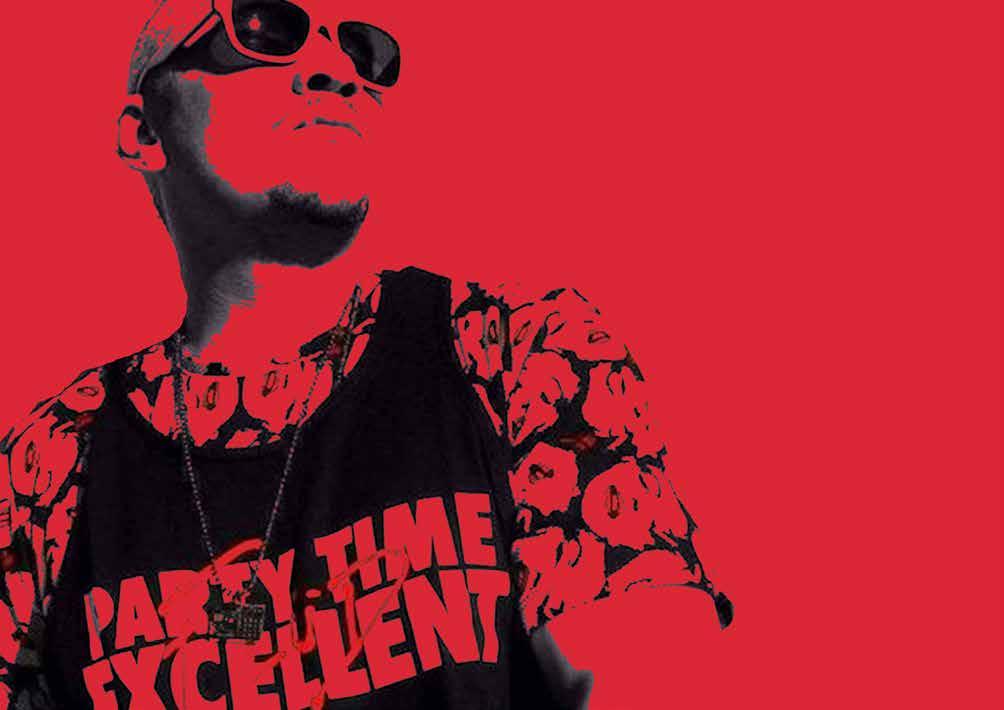
"MAKING A BEAT IS JUST THAT. IT’S NOT AT ALL WHAT PRODUCING ENTAILS. MAKING A BODY OF WORK AND BEING COMPLETELY RESPONSIBLE OF THAT WORK UNTIL IT’S COMPLETE AND COMMERCIALLY VIABLE IS MORE THAN JUST A MAKING A BEAT.
"aaron 'freedom' lyles

Carlton Lynn started his career in Atlanta, Georgia at uber producer Dallas Austin’s studio and has since amassed mixing and recording engineer credits for some of the music industry’s biggest acts including: India Arie, Usher, Pink, Namie Amuro, Nas, Ciara, Jennifer Hudson, Fantasia, Monica, Sugababes, Texas, Carlos Santana, Collective Soul, Madonna, The Roots, Aretha Franklin, Sean Combs and Brandy. He earned a Best R&B Album Grammy award in 2000 for his engineering efforts on the 6x-platinum selling album, “Fanmail” by TLC. In 2013, Carlton again received a Grammy award as a mixer for 2012’s “Best Gospel”album by hip hop artist, Lecrae. Currently based inTokyo, Carlton continues to mix for his US-based clientele and has been steadily building his Japanese client base. In the last few years, he has worked with a variety of artists in Japan including King & Prince, Dean Fujioka, Hypnosis Mic, Red Velvet,
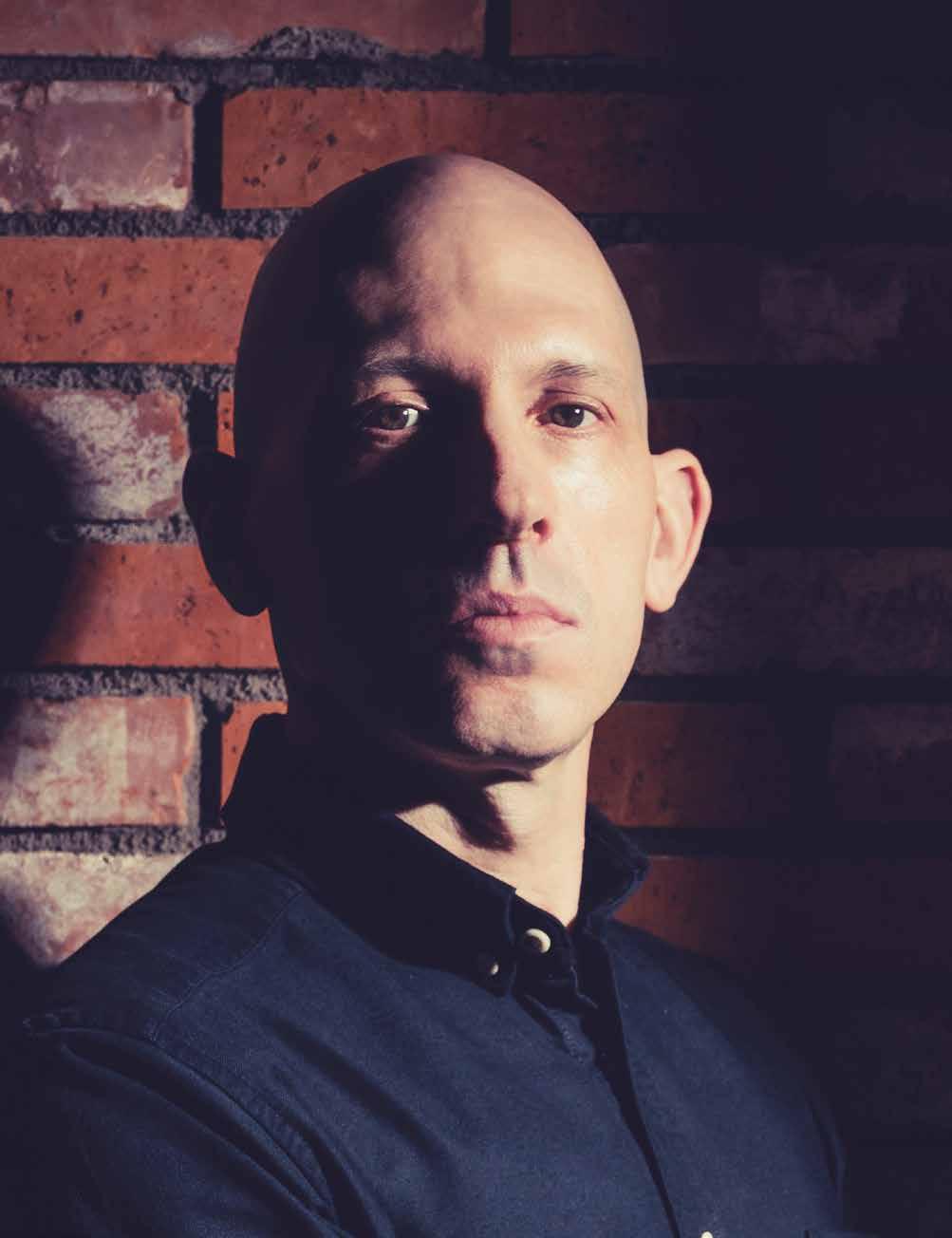
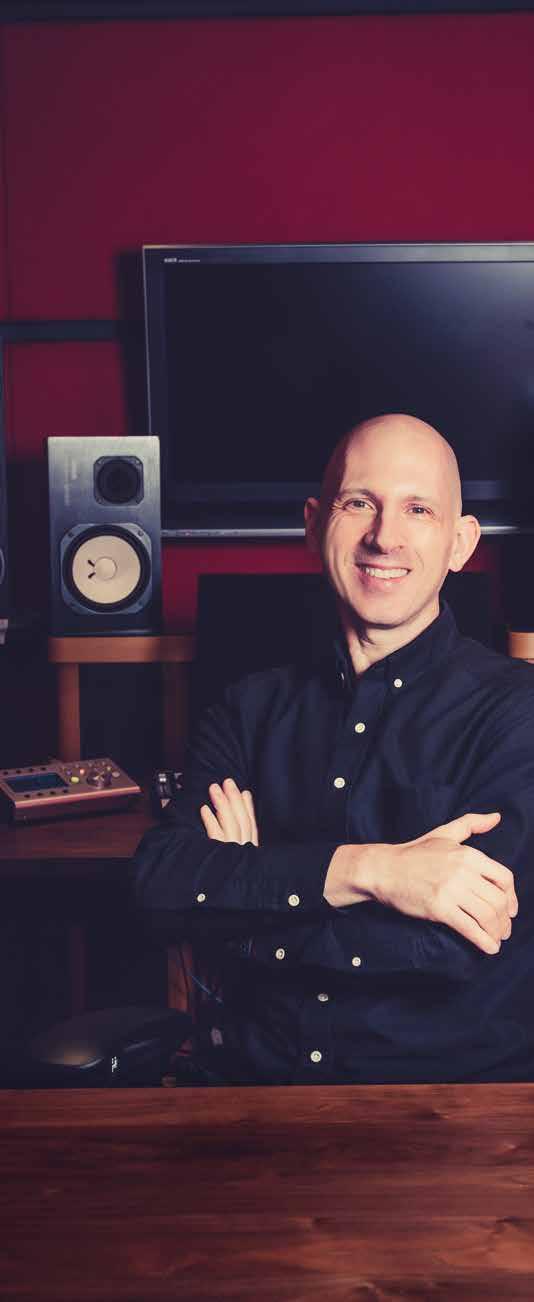
BSM: Where are you originally from?
CL: "I grew up in Charlotte, NC but lived in Atlanta, GA for about 22 years. So, I feel like the ‘A’ is my hometown more than anyplace else."
BSM: Where and how did you get your start in the industry ?
CL: "After graduating from the recording arts program at Full Sail University, I immediately moved to Atlanta, GA to begin an internship at producer Dallas Austin’s studio, DARP. At the time, he was just finishing Madonna’s ‘Bedtime Stories’ and TLC’s “Craxy Sexy Cool”. I was lucky enough to be one of the only interns in the four room facility so I got plenty of face time with the engineers, artist and producers. They noticed that I was eager to work and learn, so Dallas’ engineer, Leslie Brathwaite pulled me aside one day and asked me if I wanted to become his assistant engineer. That was the beginning, and from there I was able to gain tons of knowledge and experience from Dallas, Leslie and programmer/engineer Rick Sheppard."
BSM: What projects have you received a Grammy for?
CL: "I received a Grammy as recording engineer for TLC’s “Fan Mail” in 2000. In 2015, I received a Grammy as the mixer for Best Gospel Album, Lecrae’s “Anomaly”although it was actually a hip hop record!"
BSM: How did you end up working out of Tokyo?
CL: "My wife is Japanese so I’ve been visiting Japan for more than 20 years and have been able to create a network of clientele. About ten years ago we started talking a bit about moving closer to family in Japan, then before I knew what was happening, I found myself living and working in Tokyo!"
BSM: What other chart topping records did you work on?
CL: "I recorded several songs of Pink’s album “Missundaztood” which I think has sold over 12 million albums worldwide. Another big record I've worked on was Leona Lewis’ debut album “Spirit” which is at 10 times platinum in the UK and did fairly well in the US too. I also worked on Chris Brown’s “Exclusive” album which went 3 or 4 times platinum I believe."
BSM: What major changes has the music business undergone since you began?
CL: "I’ve witnessed a some big changes in the music industry during my career so far. Two of those are in regards to recording medium and delivery mediums. When I first started engineering, we almost exclusively recorded on analog tape. Other places like Nashville were already recording on various digital tape formats on a
regular basis but for the most part, the industry at large were still some type of linear format for the multitrack, either digital or analog tape. Non-linear digital technology was around but was expensive and didn’t offer that many tracks. Once the Pro Tools 24 | Mix systems became available and offered 64 voices, the game changed almost overnight. We literally stopped recording directly to analog tape one day and only recorded to Pro Toolsfor better or worse!
The second major change I witnessed was the shift from music consumption via CDs to listening to compressed formats via the web either through download or streaming. That change was much more difficult for the industry to handle and caused quite a
had their hands in the pie and different elements were constantly being added, edited or taken away from the song. The song still ended up sounding great at the end of the day, but it just took a long time! Generally though, if all the elements are in order, I like to spend no more than 2 days on a mix. I do spend a good bit of time prepping a session before it’s mixed, but I don’t really consider that ‘mixing’."
BSM: What is your preferred recording and mixing software in the studio?
CL: "I`ve been a Pro Tools user for almost 25 years. I’m not fast like these young kids who operate Pro Tools like a video game, but I
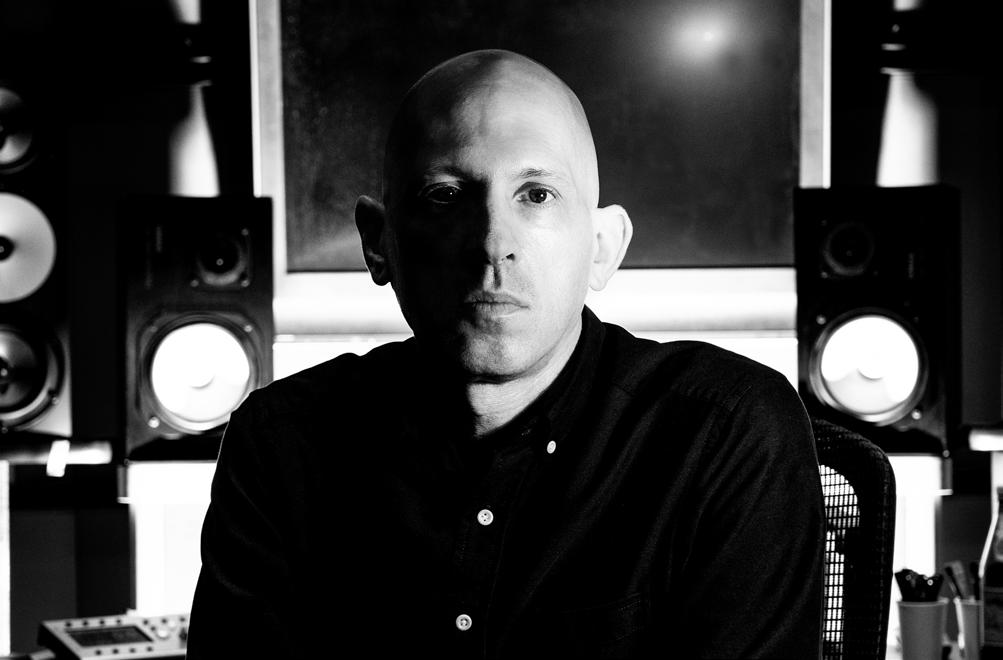
bit of pain for everyone until the labels finally figured out how to adapt and monetize (with a little help from Apple)."
BSM: How long does a good mix really take?
CL: "Well, I’ve had mixes that went on to be number one singles that were essentially the rough mix that was made after the final tracking session. Many times the producer and artists are married to that moment and don’t embrace anything that deviates a lot from that original mix even though it might sound “better”. Sometimes, it truly is all about the vibe. That being said, other times I’ve spent weeks and months working on a mix off and on. This has usually been the result of a project where many people
know it pretty well and can get some work done! I also use Apple Logic Studio quite a bit."
BSM: What format do you prefer digital or analog? What are the major differences?
CL: "I haven’t recorded or mixed to analog in many years although I still love the sound. I do remember the shock of hearing analog tape after several years of recording exclusively digital. I had to transfer some songs to Pro Tools that I had recorded years earlier to analog tape using DARP Studios' Studer A827 24 track machines. Man! I couldn’t believe how fat and round the tracks sounding coming off of tape. It immediately
made me question recording to Pro Tools over the last few years. But, I later realized that Pro Tools or any other digital format wasn’t bad per se, since it was capturing the audio with fidelity and not adding or taking away anything, Essentially, analog is doing just that - it is adding the sound of the tape formulation, the tape heads and circuitry from the machines used. On top of that, as analog tape ages the top end will slowly dissipate, so there’s some loss happening. Analog is super fun and sounds amazing but it’s definitely a commitment if you choose to go that route. But now, digital technology is so good and very affordable. Finally, no one can argue about the convenience of non-linear digital compared with a linear format."
BSM: Would you ever start your own label?
CL: "No plans to do so, but it would be a boutique type thing with a specific niche."
BSM: What is the secret to longevity in this business?
CL: "The secret to longevity is being dependable, trustworthy and likeable. Being great at your craft is essential of course, but there are lots of folks that are amazing, so you have to set yourself apart and have great soft skills as well.
That’s when being a 'cool' person really helps!"
BSM: How was it working with Dallas Austin?
CL: "Working with Dallas Austin introduced me to real artistry. Before then, I’d never been in the studio with someone as they created something amazing from scratch. In session with Dallas, I witnessed him sequencing killer beats on the MPC, SP1200 or n Logic. Then he would switch over to piano and play lovely delicate synth parts. Later when the artist came in, he'd huddle with them and teach them a top-line that he had composed in his head as he made the track. I saw him do this type of thing on many occasions on piano and guitar. There are lots of people that can make tracks and write songs, but he was doing it at such a high level - it was quite something to watch and be a part of."
BSM: What was your most memorable studio session?
CL: "I don’t think I have a 'most memorable session’ during my career. But when I worked at Dallas Austin’s studio, what I do remember was that it was a magical place and you never quite knew what was going to happen on a given night or who would randomly show up at the studio. Back in the day,

DARP Studios was a hotspot and everyone wanted to record there or just drop by to soak up the vibes. So, you’d have Outkast and Goodie Mob sliding through one night, then George Clinton “stopping by” the next night even though he often ended staying several days straight if he didn’t have a show to go to. There’d be movie stars and professional athletes - you just never knew what kind of night it would be."
BSM: Has streaming changed the business model for the engineer?
CL: "I don’t think streaming has changed the business model of the engineer so much. We still create the best mixes and recordings we can for a rate that we can charge commensurate with our skill and reputation. What has changed is that we need to deliver a product that is going to sound good played back through the various delivery formats and devices we have today. So, instead of just checking on Yamaha NS-10M’s and in the car, we should now check how an .mp3 (or worse) version of our mix will sound on a smartphone, soundbar or smart speaker."
BSM: Do you produce also or have any plans of going into music production?
"CL: "I’ve done a bit of production work recently, but I still feel my strong points are in recording and mixing. We’ll see what happens!"
BSM: Do you have any new projects you would like to tell us about?
CL: "Just finished up some mixes for two different boy bands here in Japan. Also, I’ve been collaborating with friends in the US on various production and some sync material."
BSM: Any advice for up and coming engineers?
CL: "Refer to question number 12! In addition, learn about microphone techniques and the ‘front end’ of recording and mixing. Don’t just treat everything with plug-ins once it’s inside the DAW. Learn how to get great sounds from the source. I know that in modern music, there might not be an opportunity to record live instruments, but if you can show proficiency at doing that, when the opportunity comes along, you’ll look like a rock star! Everyone can run Ableton, Pro Tools and Live but if you can record great sounds, whether it’s vocals or drums, you’ll be noticed."

The secret to longevity is being dependable, trust-worthy and likeable. Being great at your craft is essential of course, but there are lots of folks that are amazing, so you have to set yourself apart and have great soft skills as well. That’s when being a “cool” person really helps!
CARLTON LYNN

Gregory ‘88-KEYZ’ Mance is an elite and accomplished record producer living in Atlanta, GA with over 30 years of professional experience in the entertainment industry. He has worked with labels such as Hollywood Records, Universal, Disney, Sony, Island Black Entertainment, Elektra Records, Rawkus Records, G-Unit, Def Jam and more. His credits include work with Macy Gray, Alicia Keys, Mos Def, Musiq Soulchild, Tank, and Raheem Devaughn. Gregory also operates the studio production for P.U.P.I.L., where he dedicates a huge portion of his time developing artists and young producers. In this Q&A, Mance reflects on his back successes, memories of working with superstars, gear and technology, advice on what young producers need to do in order to make it in today’s highly competetive music industry and what he was listening to growing up.
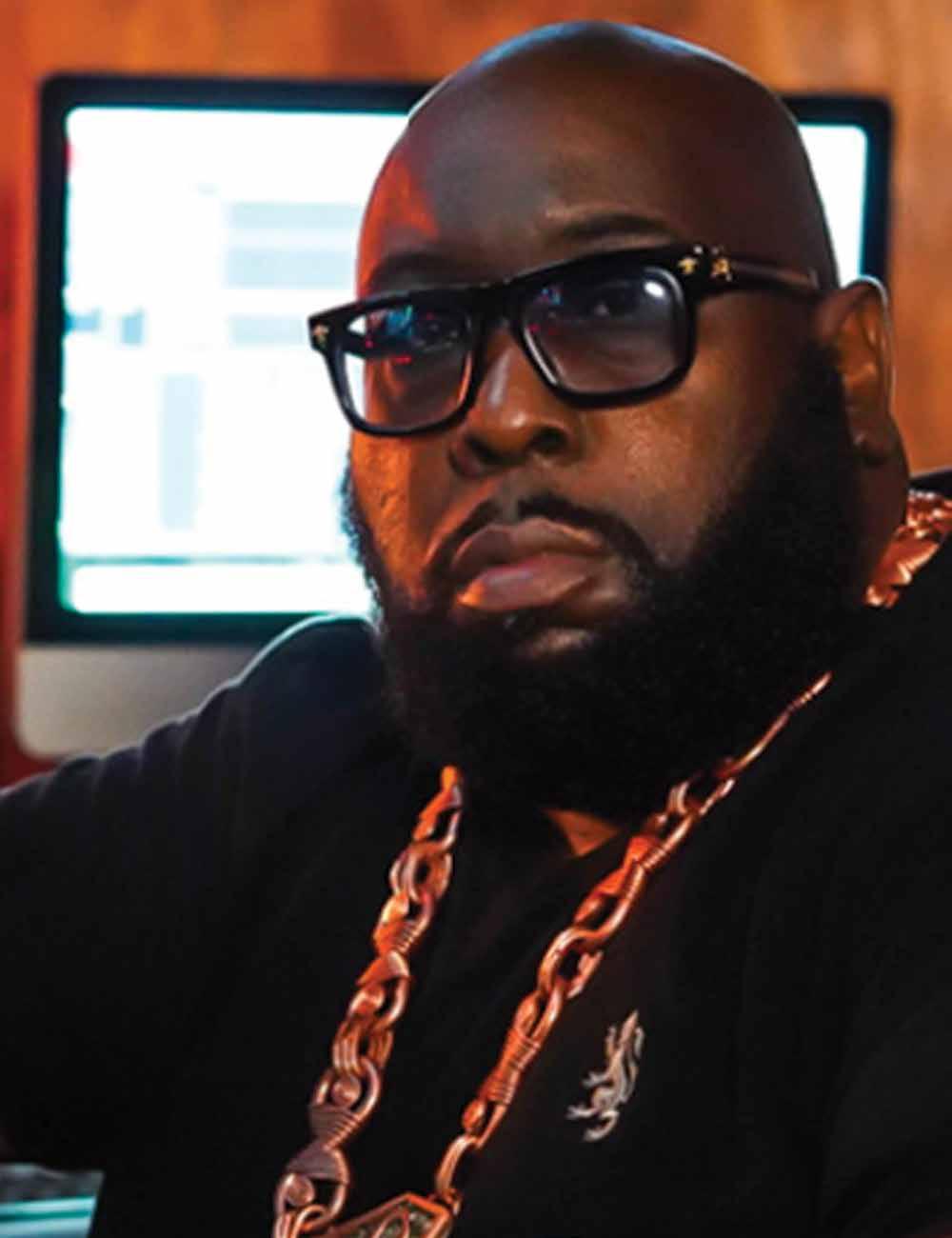

BSM: How did you come up with a great name like 88-Keyz?
GM: “My mother gave me the name beacause of the way I used to bang on the piano. LOL.”
BSM: How was it working with Macy Gray? And what project did you exactly do with her?
GM: “I worked with her on a track, but unfortunately we were unable to finish the record. But she’s real cool people, cool vibes,sweet energy and straight to the point.”
BSM: How was it working with Alicia Keys and what was the project?
GM: “Alicia was real sweet and very skillful and she was adamant about getting the job done. At the time she was with MBK (my brother’s keepers) when she was with Sony. When she got signed to Arista I started working with her on 'Butterflies' which she won the Grammy and I’m still eating off of it. LOL.”
BSM: Who were your musical influences growing up?
GM: “Tony Mercedes and when I was in Washington, D.C., I hung out a lot at Night Flight Studios and Horizon Studios. Stacy Lattisaw’s husband was a big influence on me too.”
BSM: What has been the biggest change in the music industry since you started?
GM: “Analog to digital.”
BSM: What is your most successful project to date in your opinion?
GM: “Definitely Alicia Keys.”
BSM: What project did you do with Mos Def? How was it working with him?
GM: "Mos Def was cool as a mother f*****. His energy is great. He has a lot of collaborative spirit and he really wants your opinion, which worked out very well.”
BSM: What is your favorite piece of studio equipment that you can’t live without?
GM: “MPC no matter what it is!! The 5 the 3 the 2 or MPC X .... Anything MPC !”
BSM: Do you plan on starting your own label one day?
GM: “I tried to, but it really didn’t work out. What you really want to do is start a Publishing Company nowadays, which I’m doing now. The digital age has taken over.”
BSM: Any entrepreneurial endeavors outside of music you would like to tell us about?
GM: “Club Door 54 with Kenny 'Smoove' Kornegay in Atlanta and also Digi Card (the digital download card company), which I helped pioneered in its Inception.”
BSM: Do you feel the pure Hip-hop sound is gone forever?
GM: “Every 20 years music repeats itself, just in a different format, but it’s all Hip-hop. Hip-hop is here to stay. It’s what we make of it.”
BSM: Do you think traditional R&B will ever make a comeback?
GM: “Absolutely yes! R&B is back now. Just like in Japan, they have boy groups singing straight R&B. It will never go away!”
BSM: What’s more important to artists today, great music or a social media following?
GM: “Social Media.”
BSM: Who would be your dream collaboration?
GM: “Teddy Riley. He can come up with a hit right now in today’s times.”
BSM: With streaming introduced to the business, is producing records still lucrative?
GM: “Yes, because you can control your income stream a lot better.”
BSM: Any advice for a young up-and-coming producer?
GM: “Take time and learn your craft better. Just don’t focus on the music and studio aspect of the game because music is trend based. Learning the craft gives you longevity in the business!!!”
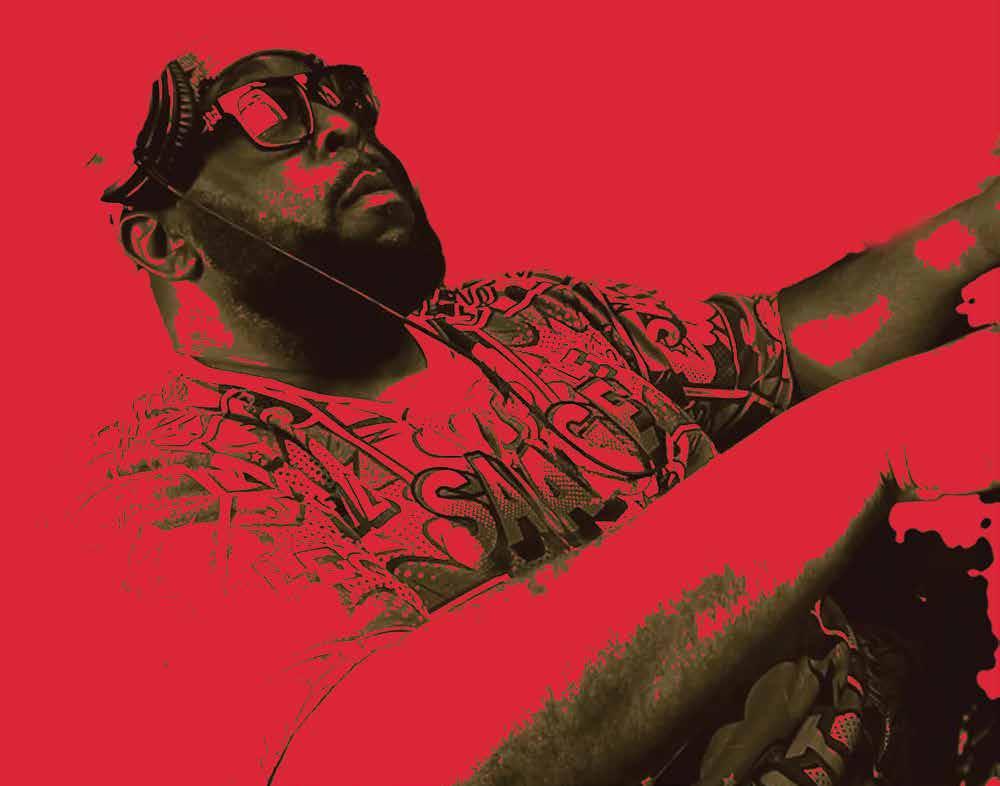
"ALICIA WAS REAL SWEET AND VERY SKILLFUL AND SHE WAS ADAMANT ABOUT GETTING THE JOB DONE. WHEN SHE GOT SIGNED TO ARISTA I STARTED WORKING WITH HER ON “BUTTERFLIES” WHICH SHE WON THE GRAMMY AND I’M STILL EATING OFF OF IT. LOL. gregory '88-keyz' mance

Tony Mercedes is a highly talented, seasoned and respected Music Industry Executive with over 75 Million records sold. His successes include six TopFive records and four Grammy nominations. Exploding on the scene, the Atlanta, Georgia based music producer's first big hit was "Dazzey Duks" by Duice and the later world-wide smash "Whoomp (There It Is)" by Tag Team. Tony also holds the Publishing Rights to TLC's "No Scrubs" & Ed Sheeran's "Shape Of You." With a passion for film making, Mercedes also has directing credits on over 30 music videos. In 2023, Tony announced his first major motion picture film production titled “Athena Saves Christmas,” directed by Josh Webber and starring Oscar winner Cuba Gooding Jr.
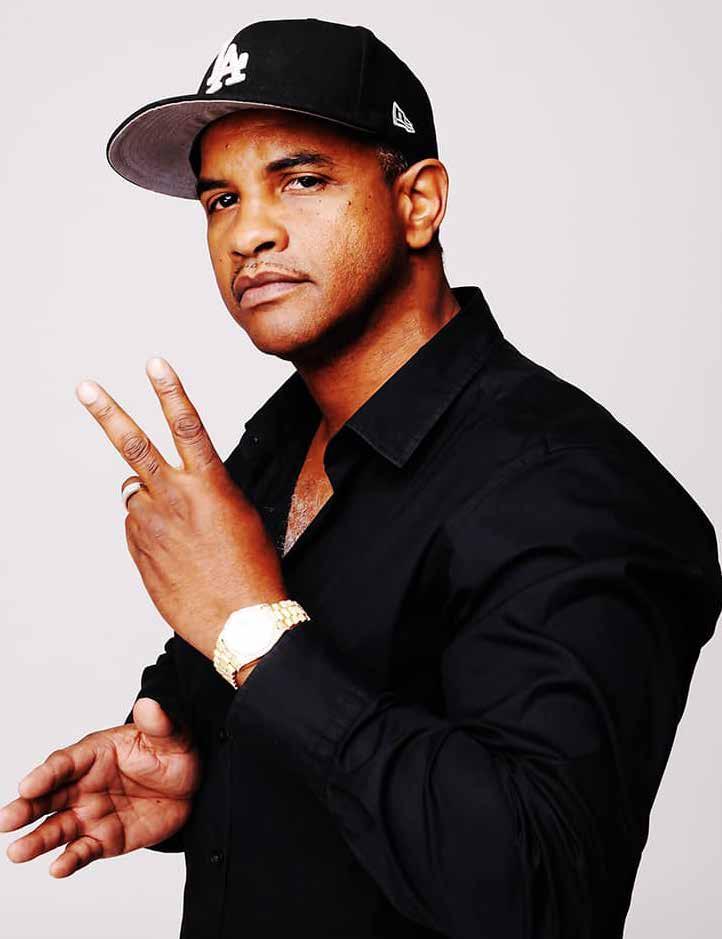
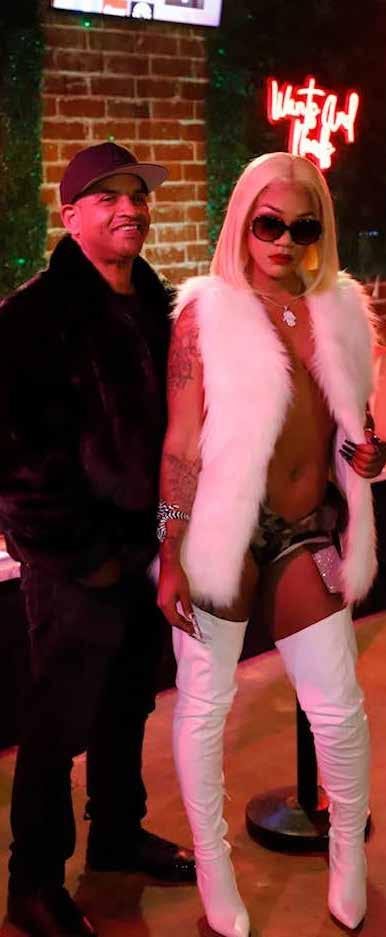
BSM: Where are you originally from?
TM: "I was born in Nuremberg, Germany and raised in the Republic of Panama."
BSM: How long have you been in the business?
TM: "Since 1990. 33 years or so.
BSM: What records have you received a Grammy for?
TM: "As a publisher, I published the songs 'No Scrubs' by TLC and 'Shape of You' by Ed Sheeran. They gave us Grammy Certificates from the academy."
BSM: How and when did you get your start in the music business?
TM: "I started as a concert promoter at age of 19."
BSM: Some people don't understand music publishing. What exactly is it?
TM: "Music publishing is the bloodline of the record business. Long after the artist is not popping anymore the songs still generate income from several different income revenue streams."
BSM: Can you tell us some of the most notable projects published under your company?
TM: "Ed Sheeran’s Shape of You. Almost 6 Billion views on YouTube."
BSM: What exactly is the job of an executive producer?
TM: "An executive producer is the person that puts the money up or puts the deal together."
BSM: What exactly is the job of an associate producer?
TM: "The Associate Producer is really just a fluff title in most instances. Some instances you give that title to a person that’s not really a producer but they contributed in some way to help complete the project."
BSM: How has streaming changed the business model in the music industry?
TM: "Interesting question. I personally think the streaming platforms are pimping the industry. They pay fractions of pennieson the dollar. But that's just my opinion."
BSM: Is owning your masters as important for an artist today as it was before?
TM: "Owning your masters are more important today."
BSM: What has been your secret to longevity in the music and film business?
TM: "My secret to longevity is always thinking outside the box. Recognizing that although the kids make up 50% of the population, they make up 100% of our future. Tap into the younger generations creativity and back those plays."
BSM: How has the industry changed from when you began up until now?
TM: "The industry is all data analytics now. It’s not about how good you are it’s about how many followers or subscribers you
first. When I managed Tiffany Haddish I remember Tiffany telling me that everyday I do one thing that gets me one step closer to success. I took that and applied that ideology to my own career. Another mistake Artist make is trying to mimic someone that’s already out. Be original. Be a trendsetter. Be epic."
BSM: What's the major difference between a record deal and a publishing deal?
TM: "Two entirely different deals. Too different to answer this question. One is about artistry. The other about song writing and producing."
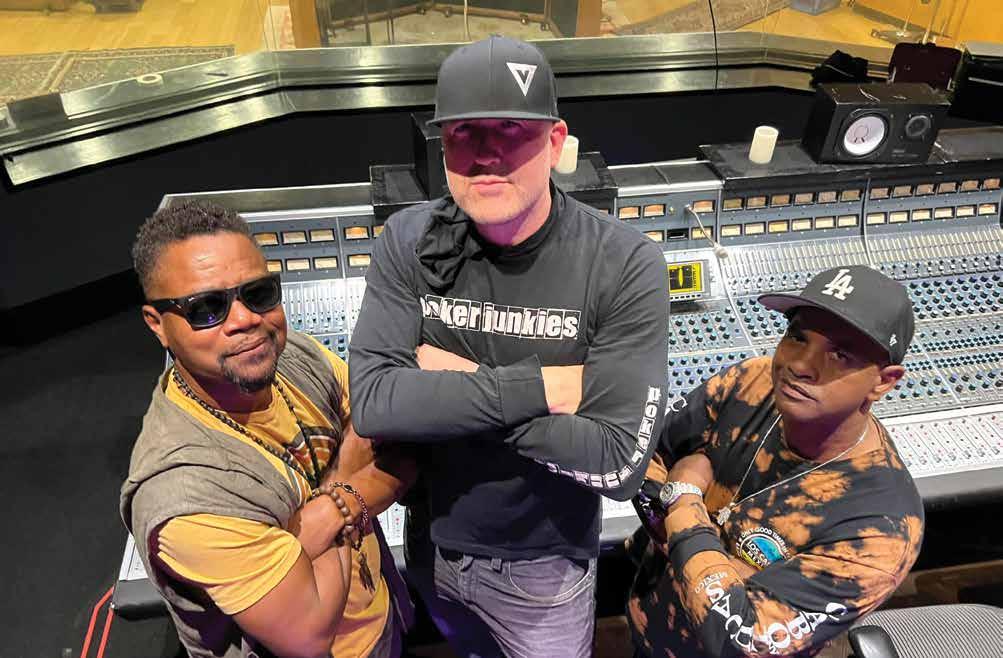
got. When did social media supersede talent. It’s crazy watching the industry transform to a popularity contest."
BSM: Do you plan on starting your own label?
TM: "My label days are over. I think consumers believe that music should be free. I mean why buy records when you can pay Apple Music $10 per month and listen to every song released."
BSM: What do you look for when working with a new artist?
TM: "What I look for when working with an artist is commitment
BSM: Have you worked in music licensing for television and films?
TM: "I’ve never worked in music licensing but I have done many licensing deals with film and TV."
BSM: Any advice for up-and-comers?
TM: "Learn the business. Do some research. Read a lot of books. TikTok, IG or Twitter will not teach you the record business."
BSM: Do you have any new projects that you can tell us about?
TM: "I manage a few new artist now with some big potential. Female rapper/pop star Roxanne Luciano, 15 year old pop star in the making Kylie Marshall, French born R&B singer Elidjah Diallo and my country artis Jarvis Redd. I also Produced and financed a new kid’s Christmas film called Athena Saves Christmas starring Oscar winner Cuba Gooding, Jr.
BSM: What has been your secret to longevity in the music and film business?
TM: "My secret to longevity is always thinking outside the box. Recognizing that although the kids make up 50% of the population, they make up 100% of our future. Tap into the younger generations creativity and back those plays."
BSM: How has the industry changed from when you began up until now?
TM: "The industry is all data analytics now. It’s not about how good you are it’s about how many followers or subscribers you got. When did social media supersede talent. It’s crazy watching the industry transform to a popularity contest."
BSM: Do you plan on starting your own label?
TM: "My label days are over. I think consumers believe that music should be free. I mean why buy records when you can pay Apple Music $10 per month and listen to every song released."
My secret to longevity is always thinking outside the box. Recognizing that although the kids make up 50% of the population, they make up 100% of our future. Tap into the younger generations creativity and back those plays. tony mercedes
BSM: What do you look for when working with a new artist?
TM: "What I look for when working with an artist is commitment first. When I managed Tiffany Haddish I remember Tiffany telling me that everyday I do one thing that gets me one step closer to success. I took that and applied that ideology to my own career. Another mistake Artist make is trying to mimic someone that’s already out. Be original. Be a trendsetter. Be epic."
BSM: What's the major difference between a record deal and a publishing deal?
TM: "Two entirely different deals. Too different to answer this question. One is about artistry. The other about song writing and producing."
BSM: Have you worked in music licensing for television and films?
TM: "I’ve never worked in music licensing but I have done many licensing deals with film and TV."
BSM: Any advice for up-and-comers?
TM: "Learn the business. Do some research. Read a lot of books. Tiktok, IG or Twitter will not teach you the record business."
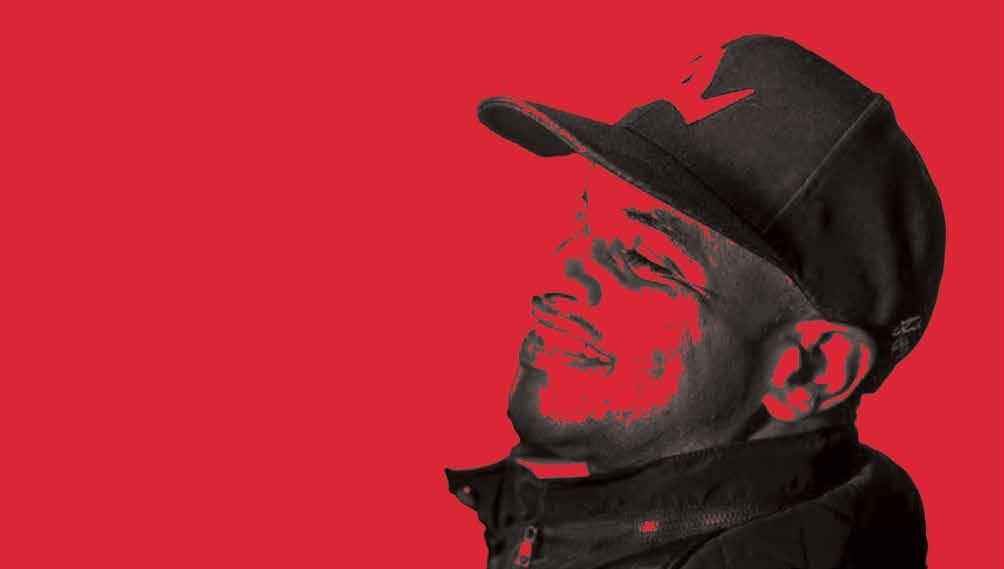
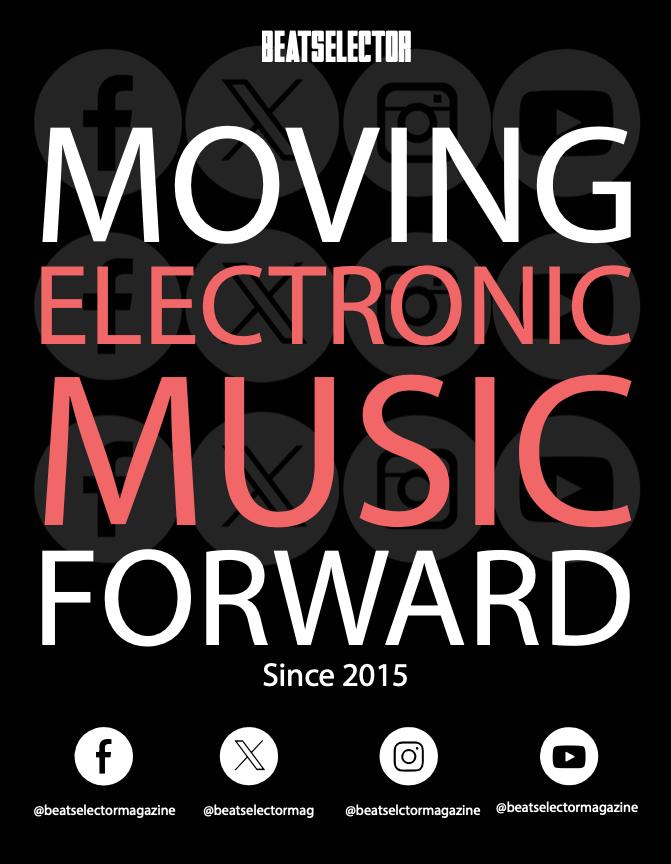

Dr. Felton Pilate is an American singer, songwriter, multiinstrumentalist and record producer. He is best known as a member of the 1970s and 1980s funk-R&B band, Con Funk Shun and for his work with MC Hammer. Pilate knew from a young age that music would be an important part of his life, learning trumpet, piano, guitar and the trombone. Michael Cooper, who had another local band, asked Pilate to join his band during their final high school years. This was the beginning of his career as a member of Project Soul. The band went on the road with The Soul Children and moved to Memphis, Tennessee. There they got a record deal and were asked to change their name from Project Soul to Con Funk Shun going on to record a string of hit records in the 1970s and 1980s. Pilate's work on MC Hammer's "Feel My Power," "Let's Get It Started," "Please Hammer Don't Hurt 'Em," "Too Legit to Quit" and "Inside Out" resulted in more than 30 million units sold combined.
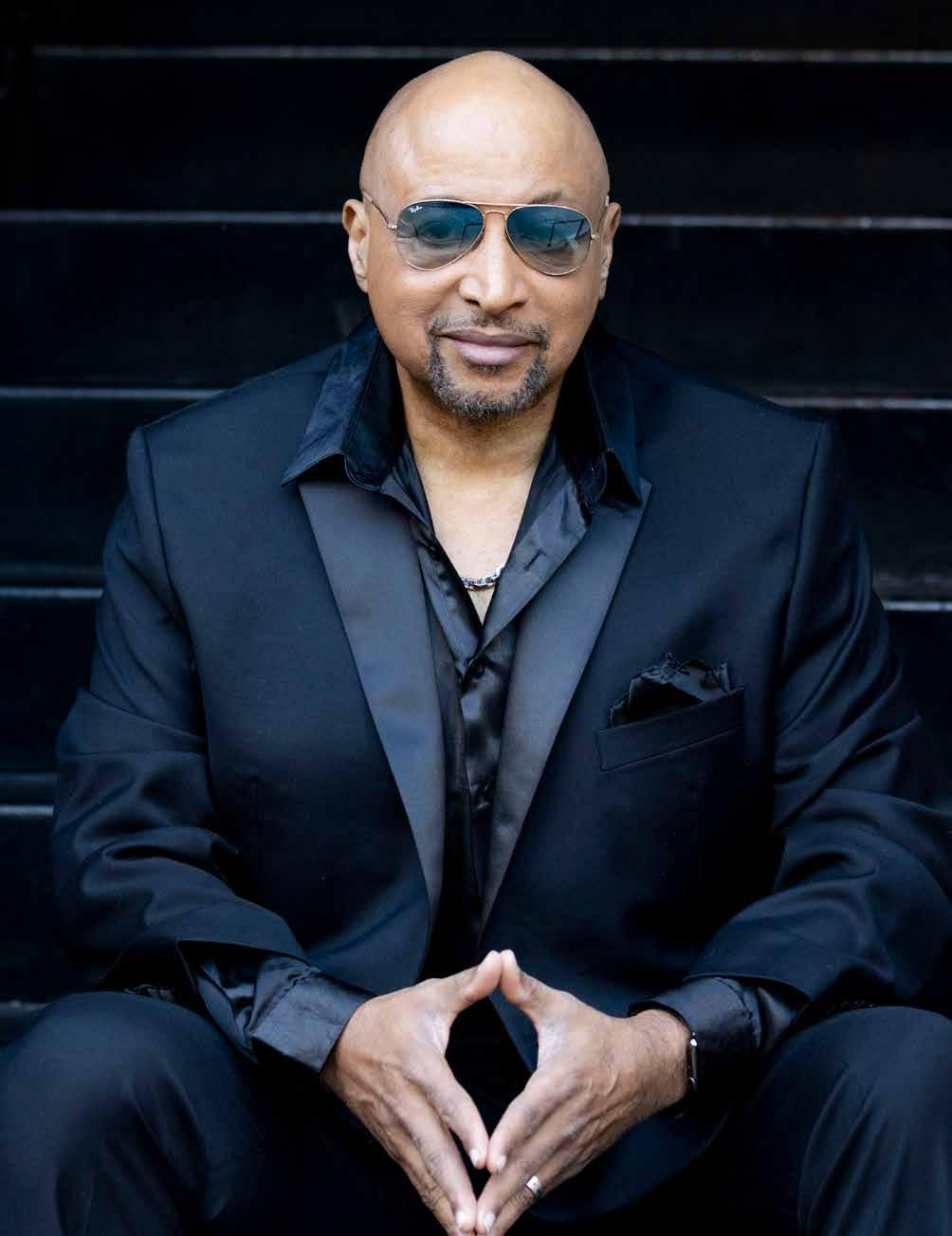
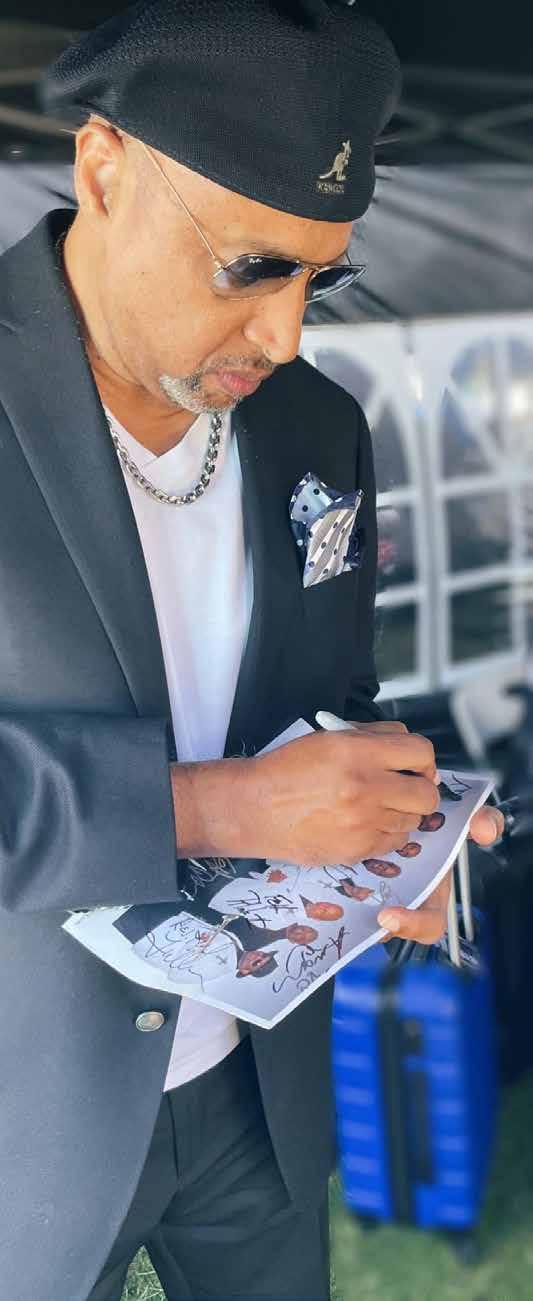
BSM: Where are you originally from?
FP: "I was born in Jackson, Mississippi. My father was in the Navy and was being transferred to multiple locations around the country, so my grandmother raised me from at least 3 years old until I was 5, when I flew to California to join the rest of the family. Vallejo, California was my home until I was 19."
BSM: How did you get your start in producing?
FP: "I learned a lot about producing from our producer, Skip Scarborough, who produced all of ConFunkShun’s Gold Albums. I asked a WHOLE lot of questions and began applying what I learned from him to all of my work, starting after the 'Spirit of Love' LP and ConFunkShun started producing ourselves. When I left Confunkshun in 1986, I was literally kind of forced into producing full-time because that became my only source of income."
BSM: What studios are you currently working out of or do you have your own?
FP: "I have my own studio in Marietta, Georgia, but recently I have worked at Electric Shop Recording in Las Vegas."
BSM: What are the major differences between digital and analog recordings and which do you prefer?
FP: "Although I currently work entirely in the digital domain, I miss that sense of excitement about working with the limitations of recording on tape. In the digital world, you often have the luxury of working with unlimited tracks (limited only by the processing power of your computer). When ConFunkShun started recording, the usual configuration in multi-track analog studios was 24 tracks or 48 tracks, if you were lucky enough to have the money to afford it. (I do need to point out that the early Motown recordings were only 8 tracks). That often required making some final production decisions before getting to the final mixing stage. Don’t get me wrong… I LOVE the ability to copy/ paste, manipulate pitch and timing, and all the other hundreds of options you get working digitally!"
BSM: How many Grammys have you received and for what songs?
FP: "Although I was nominated for producing Album of the Year, and helped MC Hammer get his Grammy and other awards, I got my Grammy working with Stanley Clarke on the song 'I Wanna Play For You Too.'"
BSM: How did you feel when you won your first Grammy?
FP: "I remember being told about it while getting ready to go onstage at a ConFunkShun concert. I was in a VERY pleasant daze for the entire show and afterwards, when
it all sank in, there was just this calm sensation of gratitude, awe, and 'Wow…'”
BSM: What do you feel about the state of rap and Hip-hop music today compared to before?
FP: "It has been very interesting, watching it go through its phases since the beginning. Like all music, it’s been going through and continues to go through a metamorphosis. If it continues in the direction of artists such as Kendrick Lamar and Drake, who don’t get stuck in just one 'groove' musically, it will only continue to expand."
when I was creating the tracks that I worked on and James Earley, my other engineer/ producer at Felstar Studios, did the others. The pressure was also on because I heard a recording that Hammer did at a 24 track studio, and I had told him that I could deliver a better sound at half the price at my 16 track studio. We basically took the 16 track, bare-bones approach to recording when we installed an identical 16 track recorder in the back of a tour bus to record 'Please Hammer Don’t Hurt ‘Em.' James and I would be recording the tracks during the day as the bus was driving between cities on the tour. We would do vocals at night after the concerts using a second bus as the vocal booth.
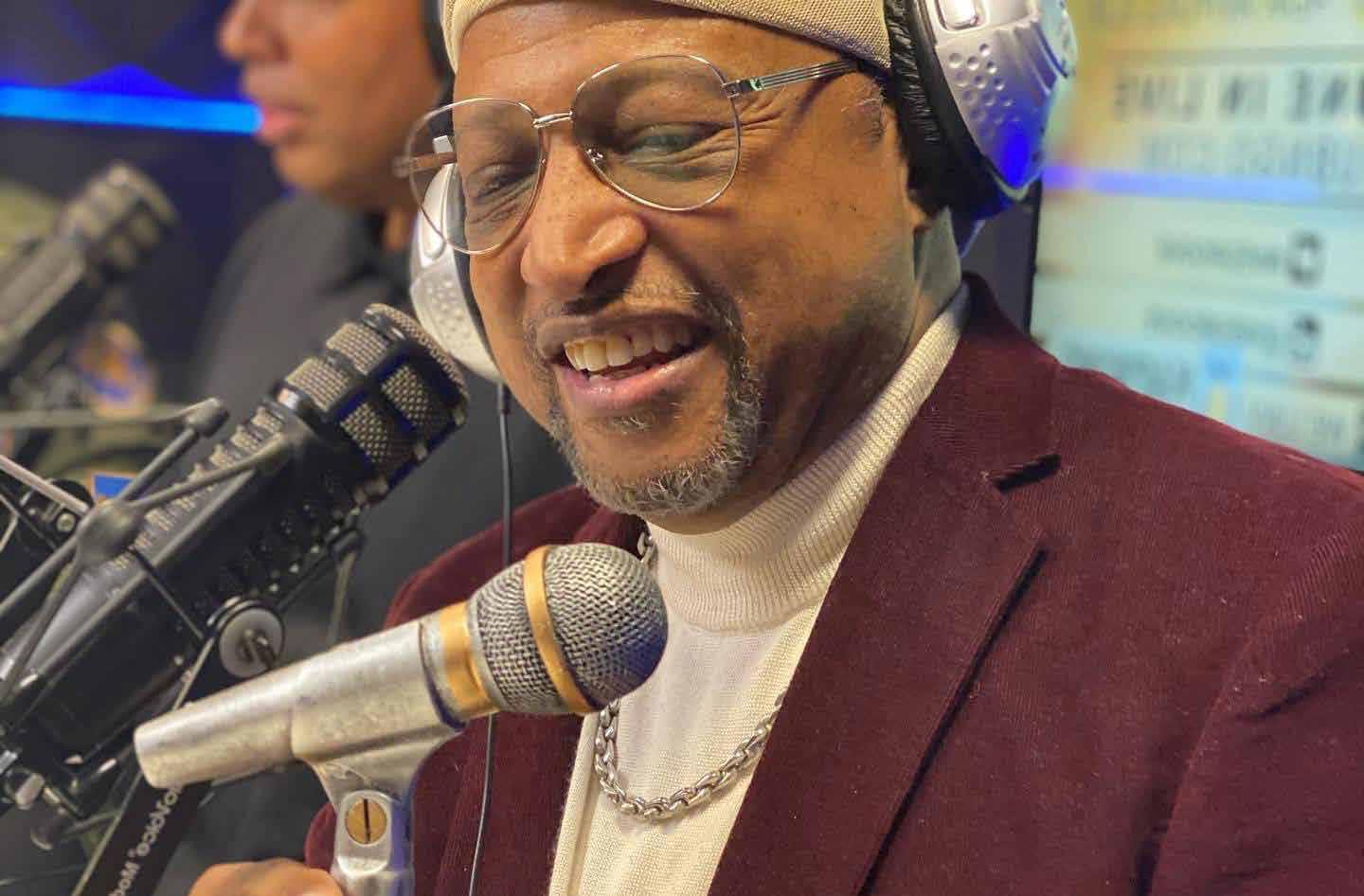
BSM: What major changes has the music business undergone since you began?
FP: "One of the major changes is how music is being recorded. Another is the actual importance of having an actual record company be involved (or not). Additionally, the newfound importance of social media has made HUGE changes in the way artists are promoted now."
9) How was it being in the studio with MC Hammer ?
FP: "The 'Feel My Power' album was a mental challenge because I was in the 'early' stages of even appreciating rap/ hip hop. I used Eric B & Rakim, Digital Underground, and LL Cool J as references
BSM: How important is networking and building relationships in the music business ?
FP: "With the exception of song-writing, I cannot think of a single job in the music business that doesn’t require some kind of positive working relationship with somebody!"
BSM: What do you look for when it comes to working with new artists?
FP: "That totally depends on the artist, what kind of work is needed and what kind of budget is available. Do they already have songs or do I need to spend time writing/finding material for them? Are they a seasoned, experienced singer musician , or
does extra time need to be spent fixing stuff?"
BSM: What is the secret to longevity for a producer in the music industry?
FP: "I don’t know how much a secret it is, but I firmly believe that one needs to embrace growth and the willingness to study and learn new things. Music evolves. I strongly believe that one’s ability to adapt to the changes makes a huge impact on how long you survive here in the music business… and that doesn’t just go for producers. Artists, songwriters, engineers, publishers and publicists all need to be able to identify and respond to alterations and trends in what the public wishes to be exposed to aurally and visually, and how they prefer to be exposed to it."
BSM: Can you name some of the other artist that you've worked with?
FP: "Ice Cube, E-40, George Duke, Stanley Clarke, En Vogue, and Ralph Tresvant. They would be the most recognizable, but there are literally hundreds more…"
BSM: What was your most memorable recording session?
"FP: "That would’ve been the day that we recorded 'Addam’s Groove' for the 'Addams Family' movie. The finished product needed to be in their hands on Monday, and as of Thursday night, we had absolutely nothing. I heard James Brown’s 'Funky Good Time' on the radio and decided to use that feel to be the basis of the track that I would record as soon as I got to the studio. We were recording at Paisley Park studios in Minneapolis, and all of the equipment was still set up from the previous night so I was able to put down my ideas as soon as I walked into the control room at 9am. When Hammer walked into the studio at roughly 12 o’clock, I had already finished the entire track. He loved it, and immediately sat down to write the hook as the engineer and I committed the sounds to tape. Around 1 o’clock we had the crew record the hook and the background chants and we sampled them to be able to use them where needed. Hammer then went in to record his vocals and left as soon as he was through. The engineer, and I then began to 'fly' in the background and mix the song. We finished right before 1 AM… 16 hours from conception to final mix. It went out via FedEx the following morning and the company had it in their hands by Monday morning, as requested. Whew…"
BSM: Has streaming changed the business model for the producer as much as it has for the artist?

The 'Feel My Power' album was a mental challenge because I was in the 'early' stages of even appreciating rap/hip hop. I used Eric B. & Rakim, Digital Underground, and LL Cool J as references when I was creating the tracks that I worked. The pressure was also on because I heard a recording that Hammer did at a 24 track studio, and I had told him that I could deliver a better sound at half the price at my 16 track studio...we installed an identical 16 track recorder in the back of a tour bus to record 'Please Hammer Don’t Hurt ‘Em.' James and I would be recording the tracks during the day as the bus was driving between cities on the tour. We would do vocals at night after the concerts using a second bus as the vocal booth. dr. felton pilate
FP: "It appears that streaming has changed the business model for *everyone*. The focus is no longer on physical product… albums, singles, and CDs, etc… which made it easier to track where money was coming from and going to. Streaming is far more difficult to track and understand."
BSM: What is your preferred gear and software in the studio when cranking out hits?
FP: "My preferred software is Logic Pro, although I occasionally use Reason and Studio One. I also have Digital Performer, ProTools, and Ableton to allow for compatibility when working with new clients."
BSM: Would you ever start your own record label?
FP: "Owning and running your own record label, like any other business, requires a huge commitment of passion, money, and time. Right now, I am far more focused on the production, writing, and performing side."
BSM: Is there anyone or any other genre of music you haven't worked with already that you would like to work with?
FP: "I have been blessed to have had an opportunity to do R&B, jazz, rap/hip-hop, country, and gospel. I can’t wait to do some classical style composing for a motion picture or TV show."
BSM: Do you have any new projects you would like to tell us about?
FP: "We are re-releasing the Christmas CD we released last year called “Home for Christmas''. We are in the final process of mixing and song selection of the material for ConFunkShun’s newest CD, “Smooth Jukebox” and I am putting the final touches on my upcoming solo CD."
BSM: Any advice for up and coming producers trying to make their mark in the business?
FP: Yes… DO NOT MAKE THE MISTAKE OF THINKING THAT THE ABILITY TO MAKE A BEAT MAKES YOU A PRODUCER! There are soooo many other skills needed and important decisions to be made in the process of getting a great sounding, chart-ready song finished that go far past just writing the track."
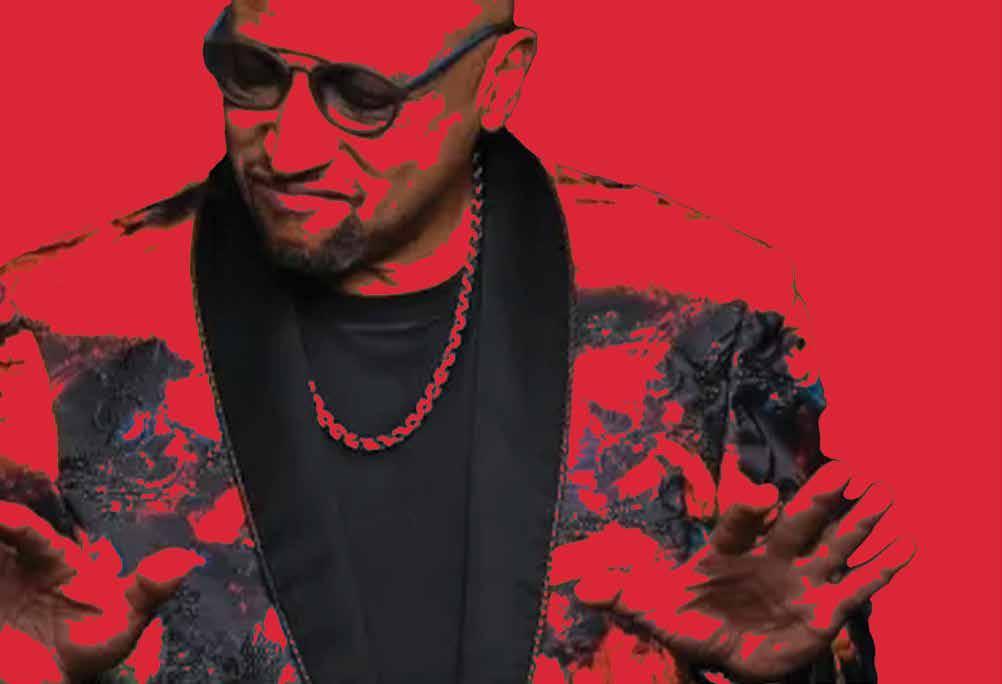

Neal Pogue began his career in Los Angeles in the 80’s as an aspiring musician. One day while looking for opportunities to join touring acts as a drummer, Pogue noticed an advertisement in the newspaper for Sound Master Recording, a local school for audio engineering. At that time, Pogue didn’t consider engineering as a possible career option, but thought that if he learned the craft on the other side of the recording studio glass, he could record his own demos. Decades later, Pogue's credits have become legendary with an a-list discography that includes 24KGoldn, Victoria Monét, Doja Cat, Kali Uchis, Steve Lacy, Tyler, The Creator, Common, Pink, Nelly Furtado, Stevie Wonder, TLC, Lil Wayne, Janelle Monae, Outkast, and Earth, Wind and Fire. With seven trophies and a dozen nominations to date, Neal Harrington Pogue contributions to modern popular music are what makes him a high in-demand producer, sound engineer, mixer, and an perennial Grammy award front runner.
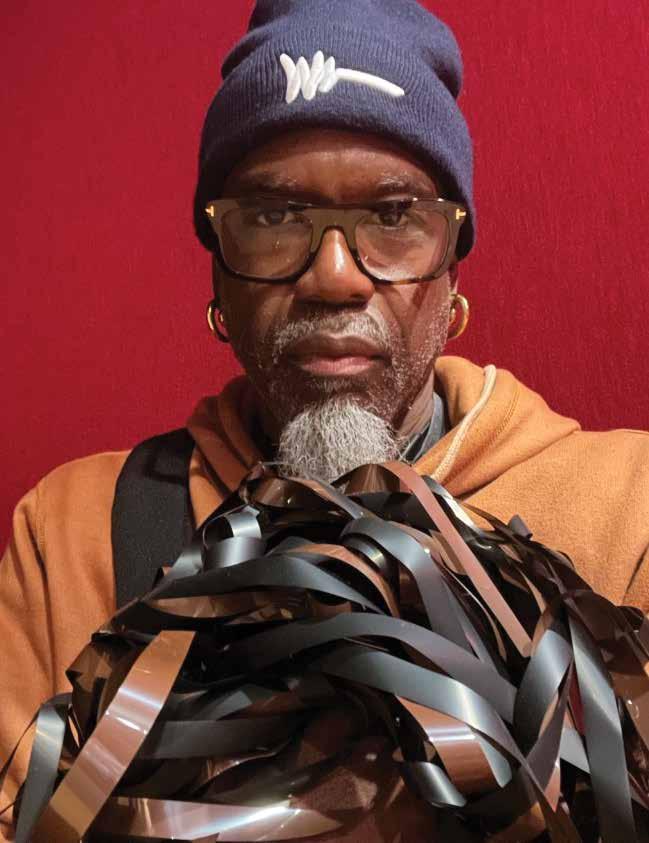
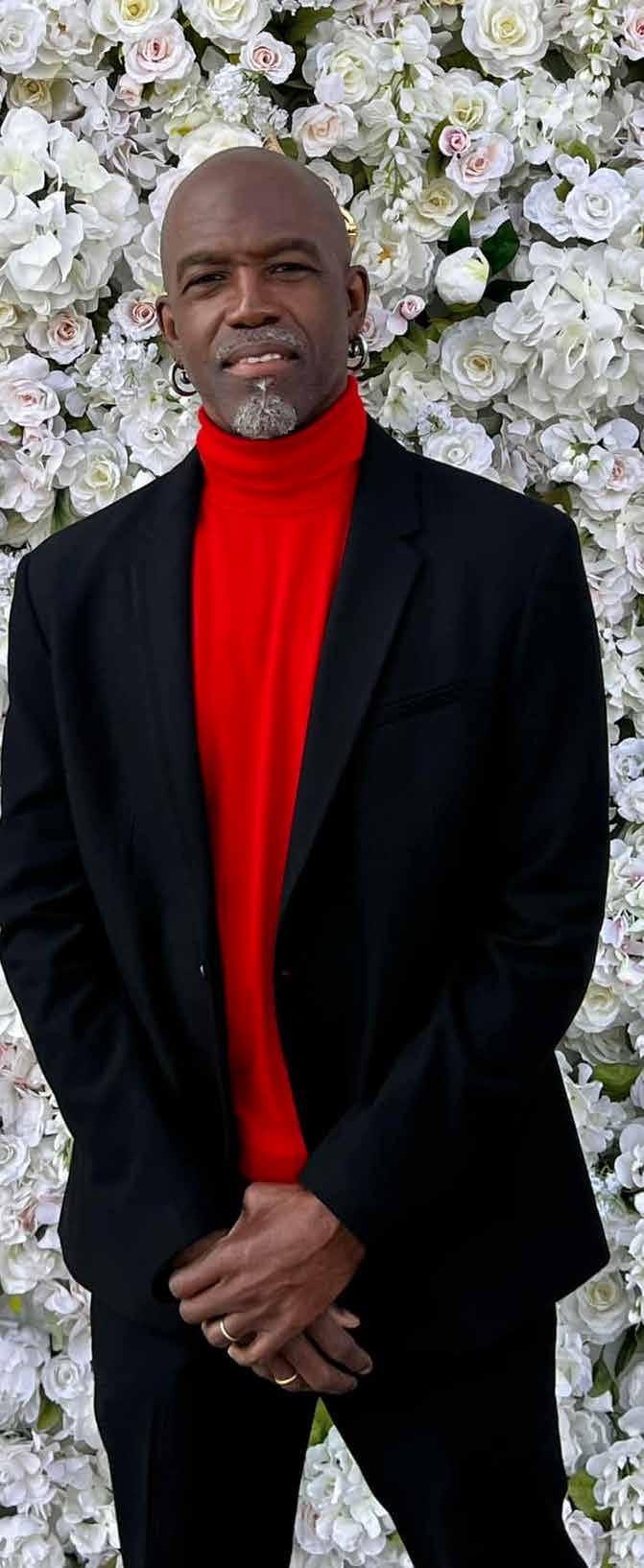
BSM: Where are you originally from?
NHP: "I'm originally from New Jersey."
BSM: What projects have you received a Grammy for?
NHP: "I've received Grammy's for Outkast ALBUM OF THE YEAR (Speakerboxx/The Love Below) , Tyler The Creator BEST RAP ALBUM (IGOR and Call Me If You Get Lost), Kaytranada BEST DANCE RECORDING "10%" featuring Kali Uchis and BEST DANCE/ELECTRONIC ALBUM (Bubba), Steve Lacy BEST PROGRESSIVE R&B ALBUM (Gemini Rights)."
BSM: What studios are you currently working out of or do you have your own studio?
NHP: "I mix out of my own studio and also work at outside studios when the client has a good right budget."
BSM: How did you get started on your journey to being one of the hottest engineers in the industry?
NHP: "Long story short, my journey started in Los Angeles in the mid 80's. I enrolled at an engineering school called Sound Master Recording. After I graduated I interned at several studios around LA and ended up getting a permanent position at a popular studio called Larrabee Sound West. That location has since closed down however Larrabee Sound North is still going strong. After spending a couple of years at Larrabee West learning the tools of mixing i went out on my own. In 1990 i move to Atlanta where i worked for Bobby Brown for a couple but during that time i met Organized Noize who were just getting their feet wet in the music biz and they had a crew of artists that included a very young just out of high school rap group called Outkast. They also had Goodie Mob as well. Outkast was signed to LaFace Records and through that label connection i worked TLC, Usher, Toni Braxton and the rest is history. After LaFace closed their Atlanta offices in 2001, I continued my journey back to Los Angeles where everything started for me and i've been here ever since."
BSM: What format do you prefer digital or analog? And what are the major differences?
NHP: "I prefer to work on pro tools which run through an analog console."
BSM: What major changes has the music business undergone since you began?
NHP: The only two major changes that I see in the business is how music is produced and distributed. Producers do not attend mixing sessions like they used to back in my early days and music is distributed online through alot of digital music platforms.
BSM: How long does a good mix really take?
NHP: "It depends on the song. There is no specific time limit. A simple song can sometimes take longer."
BSM: What other chart topping records were mixed by you?
NHP: "Steve Lacy "Bad Habit" topped multiple Billboard charts simultaneously for several weeks and Tyler The Creator's "Call Me If You Get Lost" topped the Billboard 200 album chart."
BSM: "What are some of the latest projects you've worked on?
NHP: "Yes. I've been thinking about that very heavily lately."
BSM: What is the secret to longevity in this business?
NHP: "I think the secret to longevity in the business is to stay humble, unique, grateful and patient."
BSM: Can you name some of the producers that you've worked with?
NHP: "Pharrell, Stevie Wonder and Raphael Saadiq."
BSM: What was your most memorable studio session?
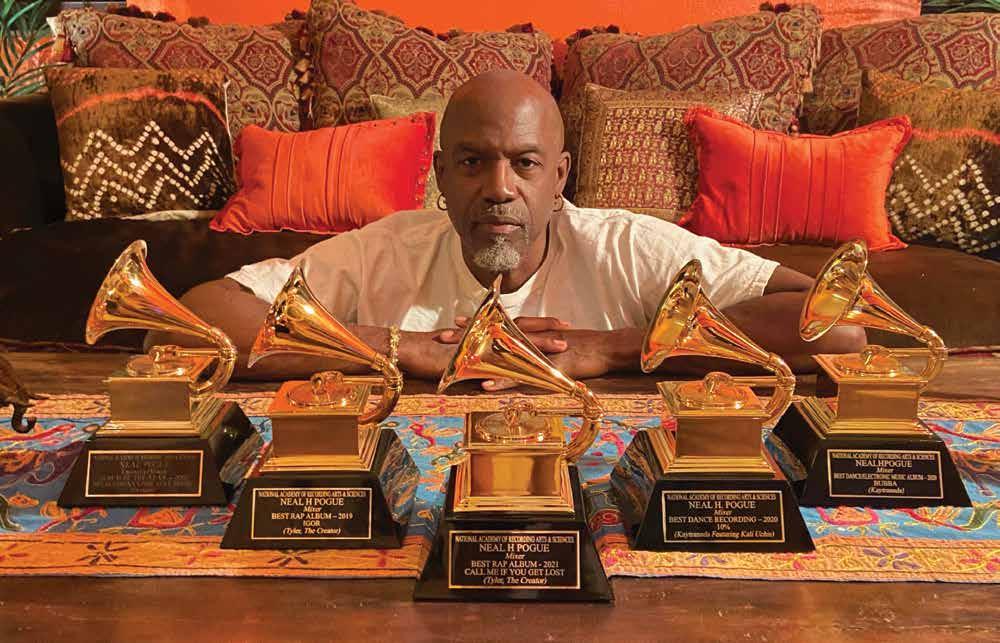
NHP:"Andy Shauf's album NORM, John Robert single Waistbin, THEY's album Nü Moon and PWP Works of Art feat Titus "ELY" Makin single "To Be First" for the Sweetwater Soundtrack album."
BSM: How important is networking and building relationships for an engineer in the music business?
NHP: "Networking and building relationships with artists, producers, label execs and song writers is key to building a career in the music business."
BSM: Would you ever start your own label?
NHP: "My most memorable studio session is producing Earth, Wind and Fire's "Now, Then & Forever" album."
BSM: Has streaming changed the business model for the engineer?
NHP: "No, I don't believe streaming has changed the business model for engineers. Except for not being about to see our credits."
BSM: What is your preferred recording and mixing software in the studio?
NHP: "My preferred software is Pro Tools."
BSM: Do you produce also or have any plans of going into music production?
NHP: "Yes, I've always produced and engineered sessions as well."
BSM: Is there anyone or any other genre of music you haven't worked with already that you would like to work with?
NHP:"There isn't anyone per se that I have a desire to work with at this point in my career. I love working with new talent. However, I would love to work with country artists."
BSM: Do you have any new projects you would like to tell us about?
NHP: "Check out PWP Work of Art's song "To Be First" on the Sweetwater Soundtrack album."
BSM: Any advice for up and coming engineers?
NHP: "Try not to get controlled by trends."
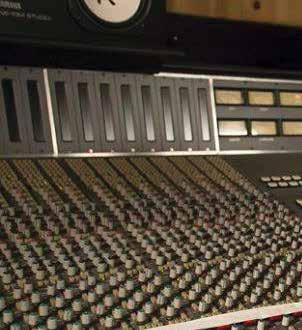
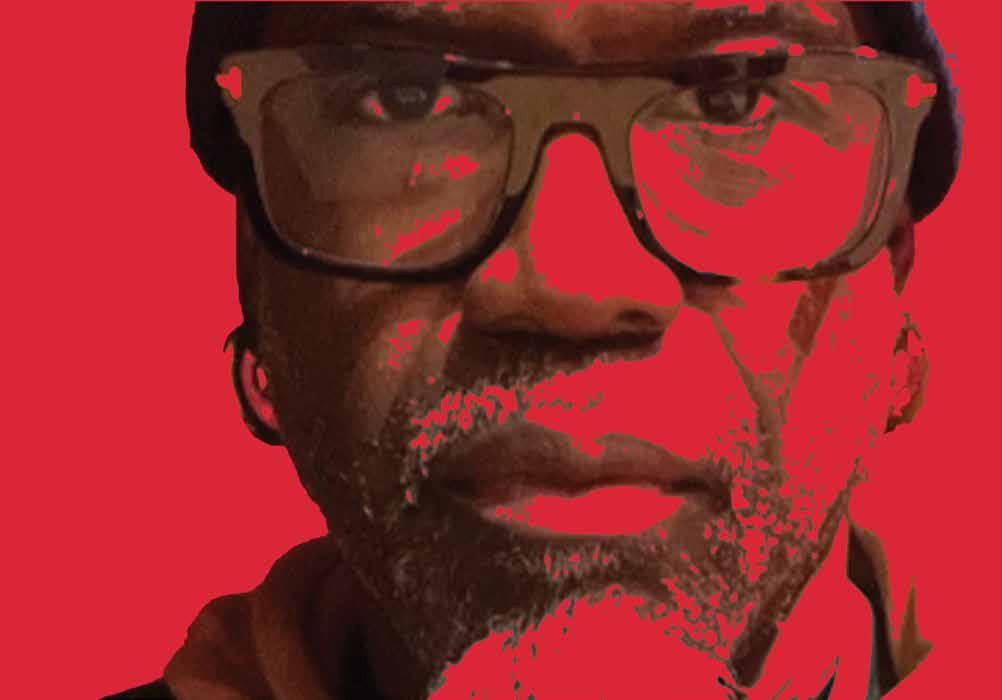
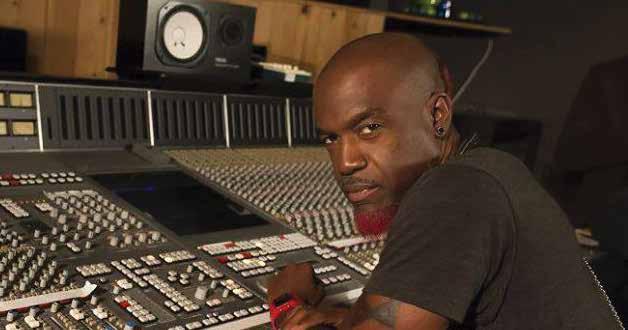

"The only two major changes that I see in the business is how music is produced and distributed. Producers do not attend mixing sessions like they used to back in my early days and music is distributed online through alot of digital music platforms.
NEAL HARRINGTON POGUE

Logging well over 30,000 hours in the studio spanning over 25 years of experience, Luca’s prolific career has led him to his current status as a worldrenowned mixing and mastering engineer he’s known for today. He’s won a multitude of awards ranging from multiple Grammy nominations, Platinum, Diamond, Billboard, and Golden Melody awards, as well as founding and creating Studio DMI, his state of the art facility based in Las Vegas, Nevada. Luca and his Studio DMI brand are synonymous with unrivaled quality and style sought out by the biggest names in electronic and pop music. Luca has had the honor of working with top artists around the globe such as Steve Aoki, Diplo, David Guetta, J Balvin, Snoop Lion, Above & Beyond, G-Dragon, Jolin Tsai and many more. Luca’s Grammy nominations include: J Balvin & Willy William’s “Mi Gente”-Record of the Year, Steve Aoki’s “Wonderland”-Best Dance Album, Snoop Lion’s “Reincarnation”-Best Reggae Album.
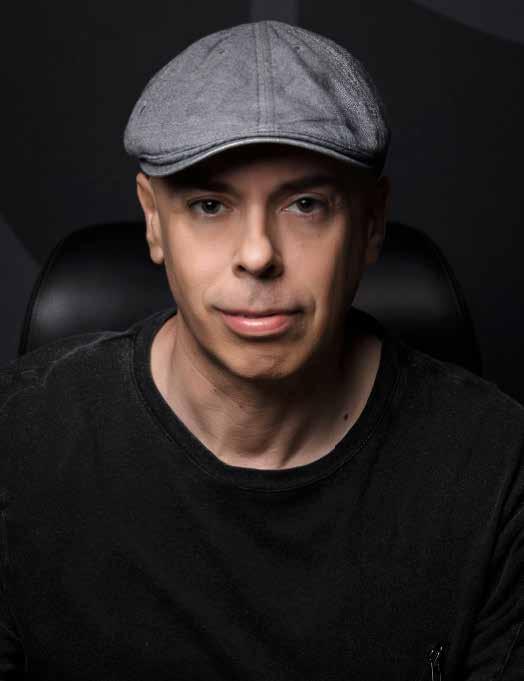
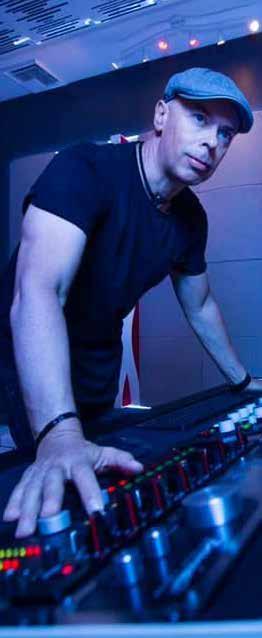
BSM: You’ve been called the “Modern Day Da Vinci” when it comes to the skillful art of mixing and mastering a song?
LP: “It felt great! It’s always nice to be compared to da Vinci! “
BSM: Make the case proving how important the mixing and mastering techniques and how they have a direct effect on the success of a song.
LP: “It’s very important to have dynamics, contrast, diversity and high polish when crafting a song. And, it is also very important to bring a fresh perspective to the project to turn it out as a masterpiece.”
BSM: Early on, you developed your own plug-ins, custom hardware and components. What inspired you and how did you acquire the technical skills to create your equipment?
LP: ”I started out using analog and eventually leading digital plugins early on while living in Genoa, Italy. I learned how to use analog and digital tools in unique ways that really separated myself from other producers, mixers and sound engineers. It’s about being being openminded and using both formats to bring out the best possible results, and of course, utilizing my custom created plug-ins tools to perfect the DMI Studio signature sound.”
BSM: How important are good pair of headphones when mixing?
LP: “Headphones are important but proper calibration with linear equations curve on them is even more important. I like Sonarworks Reference 4 for that.”
BSM: Given that you have worked with many accomplished artists and producers, what is the one project are you most proud of?
LP: “That’s a difficult one. The two that come to mind are Diplo and Major Lazer.”
BSM: Your studio set up looks sweet. What’s the first impression your clients experience upon entering your facility?
LP: “My clients love it. The versatility and set up makes the whole process more efficient, not having to get up from behind the desk is a real advantage and importantly, The studio’s space and layout allows for all kinds of flexibility and mobility.”
BSM: Who’s on your team at Studio DMI?
LP: “Our engineers include Andy Lin, Scott Banks, and myself. Jacob Work handles the bookings and manages the projects. And, we also have a management team in place to deal with Record labels and artist representatives.”
BSM: How important are “Trade Shows,” such a NAMM, to the industry? What was it like for you the first time?
LP: “Attending NAMM for the first time was incredible. It’s kind of like thousands of people attending a concert, but the difference being that you can remain behind the scenes, check out new and evolving gear and also conduct business, revisit existing relationships and form new ones as well.”
BSM: Name five (5) albums that you cannot live without?
LP: “Pink Floyd’s ‘Dark Side of the Moon,’ Kraftwork’s ‘The Man Machine’ & ‘Computer World,’ Depeche Mode’s ‘Music for the Masses’ and Michael Jackson’s ‘Thriller.’”
BSM: What’s the best thing about living in Las Vegas?
LP: “The location. Very close to Los Angeles, only an hour away, but Las Vegas is like an island in the middle of the desert. Surrounded by mountains and a lake close by. The landscape is beautiful and it’s one of the reasons I live here.”
BSM: Do you have family living in Italy? Do you visit Genoa and Italy for that matter, often?
LP: “Yes, I have family in Italy and under normal circumstances, I would travel back home every couple of months or so for business, and of course for family time.”
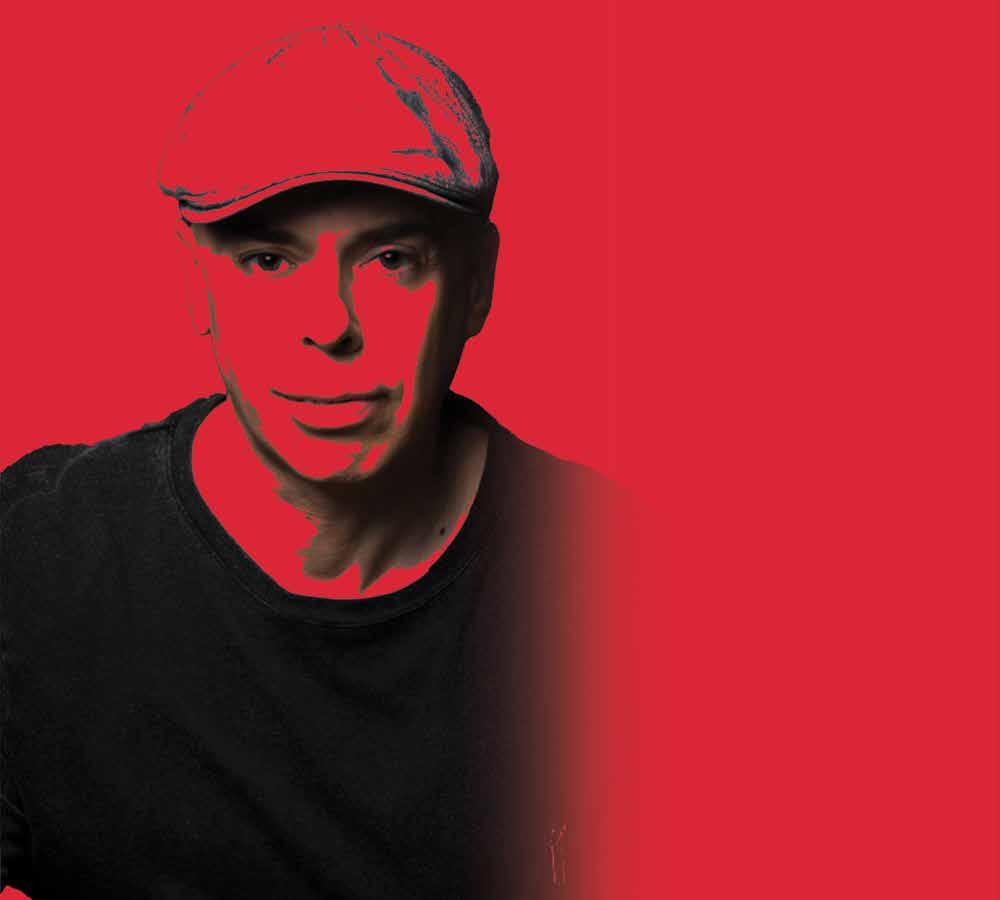
"I LEARNED HOW TO USE ANALOG AND DIGITAL TOOLS IN UNIQUE WAYS THAT REALLY SEPARATED MYSELF FROM OTHER PRODUCERS, MIXERS AND SOUND ENGINEERS. IT’S ABOUT BEING BEING OPEN-MINDED AND USING BOTH FORMATS TO BRING OUT THE BEST POSSIBLE RESULTS, AND OF COURSE, UTILIZING MY CUSTOM CREATED PLUG-INS TOOLS TO PERFECT THE DMI STUDIO SIGNATURE SOUND. LUCA PRETOLESI

MULTI-GRAMMY AWARD WINNING PRODUCER & SOUND ENGINEER
ana Stinson better known by his stage name Rockwilder, is an American Hip- hop record producer and rapper. A long term friend of Def Jam rapper Redman, Rockwilder got his start producing for East Coast Hip-hop artists in the mid-1990s. In 1999 Rockwilder produced Method Man & Redman’s hit single “Da Rockwilder.” He has produced at least one track on every Redman album since 1994’s “Dare Iz a Darkside.” Stinson has also crafted records by other artists including Jay-Z’s “Do It Again (Put Ya Hands Up)”, Busta Rhymes and Erykah Badu’s “One,” Xzibit’s “Front 2 Back” and De La Soul’s “I.C. Y’All.” Other artists he’s worked with is a who’s who list of artists and inlcudes the likes of Janet Jackson, Destiny’s Child, and Christina Aguilera/Lil’ Kim/Mýa/Pink Grammy Award winning cover of Labelle’s 1974 “Lady Marmalade” for the film Moulin Rouge. Additionally, Rockwilder scored the movie“How High”starring Redman and Method Man.
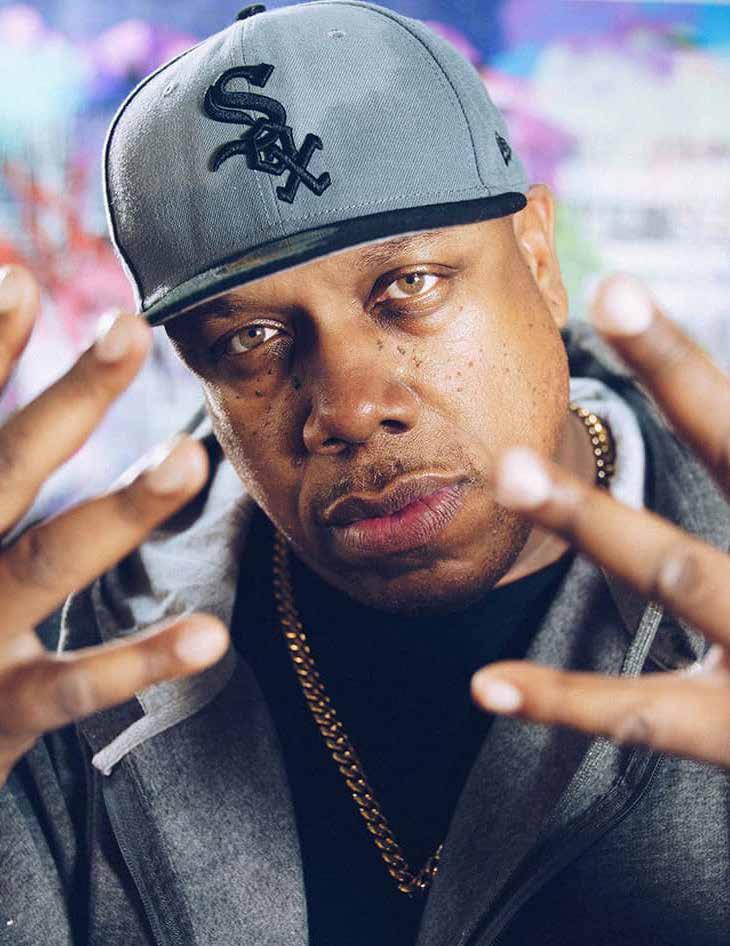

BSM: How was it working with Jay-Z ? What records did you work on?
DS: “I worked on ‘Do It Again,’ ‘NYMP’ and ‘Guilty Until Proven Innocent.’ Jay-Z was very professional and he knows exactly what he wants. He and Big Pun were the same.”
BSM: How has the New York Hip-hop scene changed?
DS: “A lot of youth, a lot of vibe. The kids have a new thing going on and I think it’s cool. They’ve evolved the art form and the business has also evolved in to many bigger deals. The period of 1988 through 2000 was like the Motown era of Hip-hop for producing classic and timeless music, however, not the greatest when it comes to business.”
BSM: What is your favorite piece of studio gear and production software?
DS: “Reasons Studio, Logic, Protools. I use them all and I’m pretty up to date with all the studio tech.”
BSM: What’s going on with Musik Park?
DS: “It’s still here. A lot of ventures are on the table. I stay busy with a lot of production work, but Musik Park is still here.”
BSM: Are they’re any artist would you say you let get away?
DS: “No, I think things went as planned. I’m pretty awed at my career. I feel blessed to have worked with the people I’ve worked with.”
BSM: What would you say is your most successful record to date?
DS: “‘Da Rockwilder: with Method Man and Redman.’ It created my brand and furthered my business opportunities, thus making me a household name.”
BSM: Where are you originally from?
DS: “Queens, New York, baby!”
BSM: Who was the most memorable person you’ve worked with in the studio?
DS: "Jimmy Jam and Terry Lewis hands down. It was incredible and a different breed on another level.”
BSM: Who would be your dream collaboration?
DS: “Quincy Jones!”
BSM: Has the game changed for Producers in today’s market?
DS: “Streaming has definitely changed the game, but for producers like myself, Just Blaze, Scott Scorch, Kanye West, etc... have hit records that are timeless that will stand the test of time. I feel grateful that I have made records and a legacy that will take care of my kids.”
BSM: Who were your musical influences growing up?
DS: “Quincy Jones, Stevie Wonder, Earth Wind & Fire,Teddy Riley, Curtis Mayfield, Jimmy Jam & Terry Lewis, Erick Sermon, The Beatminerz and Pete Rock.”
BSM: Do you feel Boom Bap/real Hip-hop has a place in the market today?
DS: “It has never left! There is definitely a core audience for it. Vinyl is still strong and going to the next level, but radio will have you thinking that Boom Bap is dead, but it’s far from dead!”
BSM: Do you think radio is still important in today’s market?
DS: “No! Who needs it with streaming and creating your own playlists.”
BSM: Do you have any ventures outside of music that you would like to tell us about?
DS: “RocBattle.com. RocBattle is a beat battling and beat licensing website that connects musicians and producers.
You can buy and sell beats on Rocbattle.com.”
BSM: Do you have any advice for up-and-coming producers?
DS: “Know your business. Be a better observant of the market, stay focused and save your money!”
BSM: Do you have any up-and-coming artists that you would like to tell us about?
DS: “I don’t wanna jinx it.”
BSM: How was it working with Janet Jackson? What records did you work on?
DS: “I did most of the ‘All For You’ album. Janet and I are great friends and we have a great vibe way past the business aspects. A lot of artists you think are 'Hollywood' are really not!”
BSM: Do you think mixtapes are good or bad for the market and the industry?
DS: ”Bad actually, because producers are putting together full albums and calling them mixtapes and not being paid for their production. Mixtapes are not shedding enough light on the producers. Today’s mixtapes are like full albums and EPs, but the producer doesn’t receive any publishing royalites.”
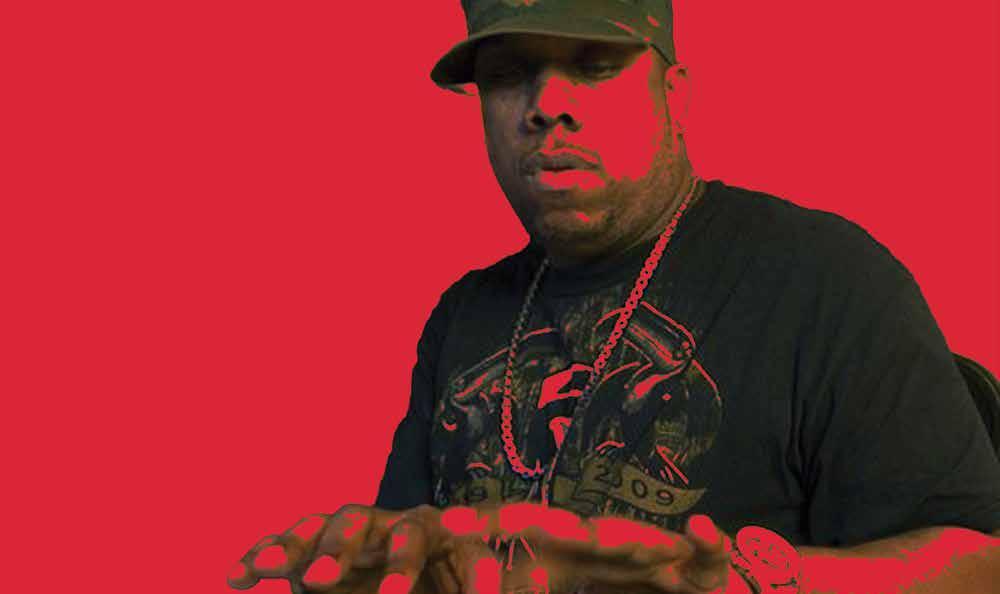
DANA 'ROCKWILDER' STINSON " "
The period of 1988 through 2000 was like the Motown era of Hip-hop for producing classic and timeless music, however, not the greatest when it comes to business.

Jeff Villanueva is one of the most sought after engineers in the music industry. His rise to engineering pre-eminence is a testament to his strong work ethic, raw ability and high energy levels. In his brief musical career he has contributed his work to many multi-platinum albums with some of the music biggest names in the industry including: Beyoncé, Mary J. Blige, Jay-Z, Carlos Santana, Drake, Rihanna, and Kanye West and dozens more, resulting in over 110 million units sold and 4 Grammy wins. Jeff also provides high-quality audio post production and original recordings to the TV/Film, Video Games, Theme Park, and Recording industries. Recently, Jeff’s has crossed over into AAA gaming with titles such as Madden NFL 20, NBA Live 19, and contributing to Walt Disney’s feature animation film Encanto, “We Don’t Talk About Bruno.”
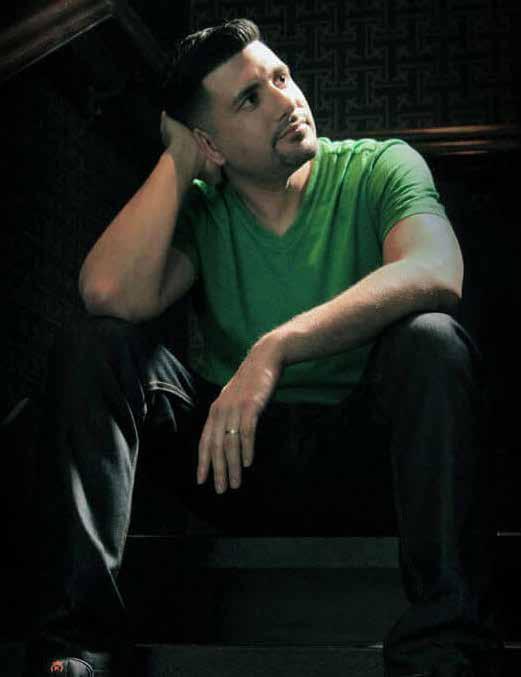
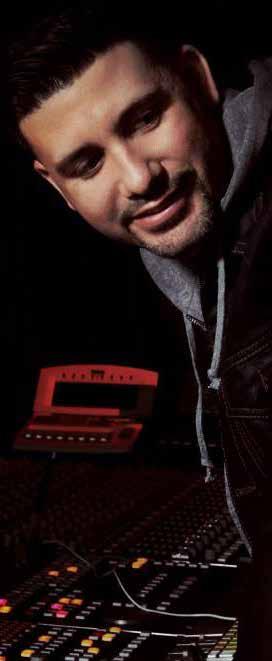
BSM: Congratulations on your success, how does it feel to win a Grammy?
JV: “Thanks very much! It still feels very much surreal. It’s truly an honor to not only be a part of music history but to be recognized by your peers for it. It’s an accomplishment that will outlive me and live on for all to see who love and share the same passion of music as I do. From experience though just because you’re working with an A list artist like a Beyoncé doesn’t always guarantee you that covenant prize. You have to always put out the same energy into every project and nothing less because that Grammy win will be the one you least expected.”
BSM: Did you go to school for audio engineering and if so where did you go?
JV: “I did attend Engineering school. For me it was the best thing. I was a musician growing up playing the trumpet for about 11 years prior to engineering but knew literally nothing about the technical end. After some research and visiting several schools I decided on Full Sail University. This prove to be a great experience for me because it’s a programmed designed around real-world scenario. The education staff there brings so much personal experience as well and are willing to share with you while being very hands on the gear. In the end I was not only able to learn in these environments but make mistakes so I could grow and avoid mistakes.”
BSM: What piece of gear or software is a must have in the studio when mixing a record?
JV: “Honestly, every time I approach the mix, I end up using something different every time As far as plugins go because I’m known for my vocals, I usually start with waves LA2A compressor to get that up in our face vocal feel and the MAAG Audio Eq4 plugin to sweeten up the vocals. For FX processing I was recently turned on to a plug created by my boy Producer/ Engineer DJ Swivel called The Sauce. This plug is amazing! It has everything I need into one plug to creatively transform my vocals and its also great on drums and instruments. Another Plug that I recently was put onto by another friend Engineer / Sound Designer Tommy Bailey was Symphony 3D by Exponential Audio. This plug right here is by far the most realistic and best sounding reverb I have ever heard.”
BSM: Are good pair of headphones important while in the studio?
JV: “I have to be honest here when it comes to headphones, I quite haven’t mastered mixing inside of headphones. Something about it for me is feels restricting, but when it comes to recording I look for headphones that offer clear playback for the artist and the least amount of headphone bleed so I can capture a clean recording.”
BSM: How was it working on the Destiny’s Child project? And what exactly did you do?
JV: “Believe it or not working with Destiny’s Child on their last album ‘Destiny’s Fulfilled’ was one of my first big projects engineering in the industry. I had just recently become Rodney ‘Darkchild’ Jerkins Engineer and we were in NYC two weeks prior to working with them taking meetings. We just happen to run into Beyoncé over at Sony Studios in NYC and because Rodney had a prior working relationship with her, she told us about the upcoming project and insisted we be in on it. Two weeks later we were back in NYC and in the studio locked in. Crazy thing about the process of making this album and I have yet been able to see this done again was that project was recorded, mixed, and mastered in just one month. They even dropped the first single off of that album ‘Loose My Breath’ at the end of that month. Of course, it took an army to do this.
JV: “It’s a balance of both but I would have to lean more on the side of having a good ear. As a recording or mixing engineer, you are an extension of the process. When a client comes to you there relying on you for your sound and expertise. You have to be able to have a thick skin to take constructive criticism when you don’t nail it. A lot of times when I find myself doing too much outside of what the clients want, I always refer back to the clients Demo mix and just get on the phone with them and talk and listen to the record several times. The client will always steer you in the right direction because this is their baby. All you have to do is listen that’s why you have to have a good ear. The educational aspect of it comes with being on the job.”
BSM: Are you currently working on anything new you would like to tell us about?
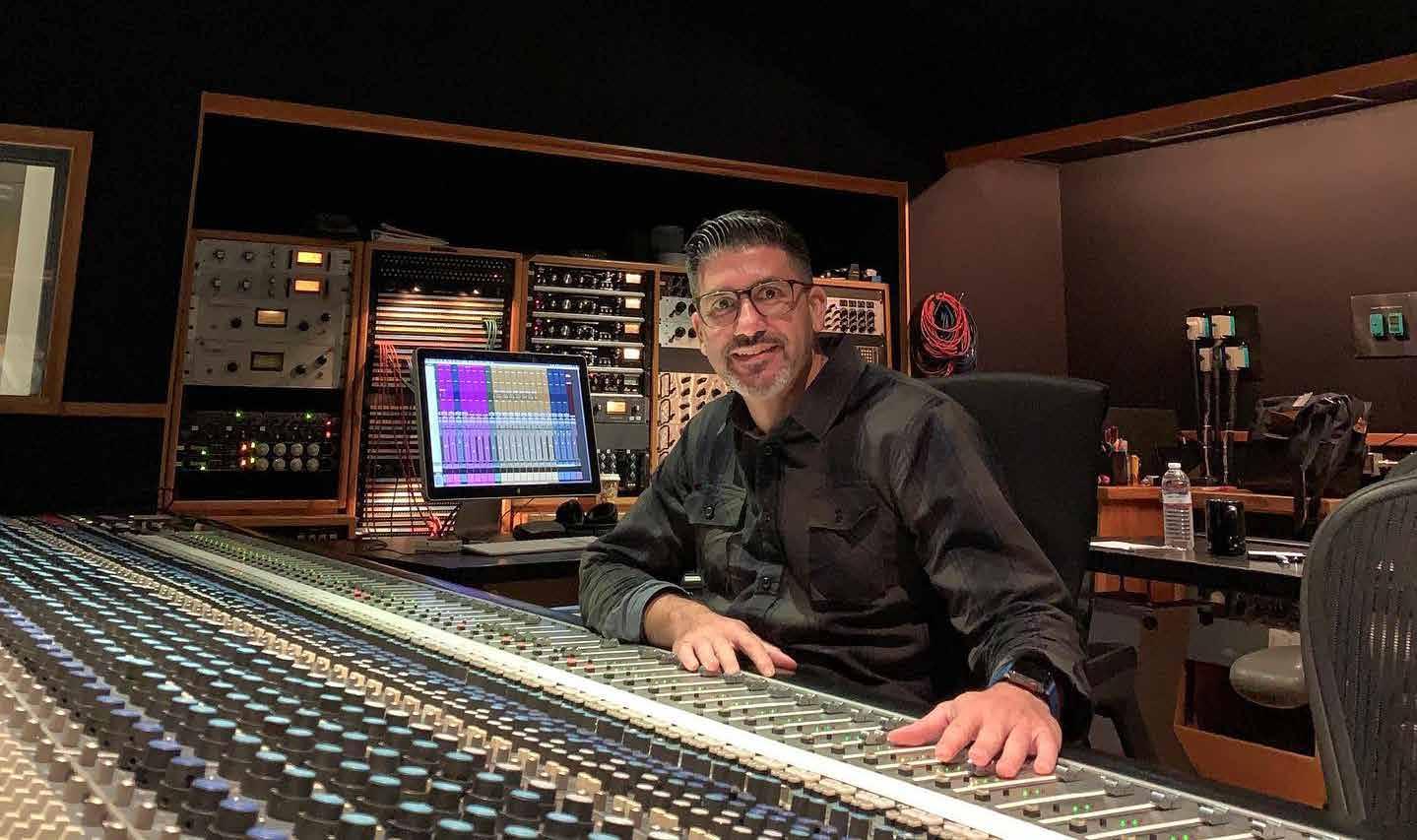
They had literally locked down seven rooms at Sony at once with some of the biggest producers in the game from Swiss Beats, Rockwilder, Rodney Jerkins, B. Cox, Scott Storch and the girls would bounce from room to room and ask what we had. We play the record and if they liked it one would jump on the verse record their part while the others would be recording in another room. To think between all those producers and time in the studio there were probably over 70 records cut and only 11 made the final cut. I was fortunate enough to have been part of 2 of the singles off of that album as recording engineer for ‘Lose My Breath’ and ‘Cater 2 U.’”
BSM: What’s more important to a successful engineer, education or a good ear?
JV: “Over the years I’ve always tried to challenge myself and continue to grow into different aspects of the industry, so I won’t get pigeonholed into being known to only do one thing. Recently I have got myself into recording more orchestra and choir type recordings and less mainstream top 40. It’s something that I’m new at and it’s challenging because it takes all the same principles that I’ve learned over the years of capturing a solid recording, but it multiplied by 80 because I’m dealing with full orchestration. It's almost like I’m learning to engineer all over again.”
BSM: Do you have your own label? Do you plan on starting your own label some day?
JV: “No, no (laughing). No Label. I thought about it at one point but decided not too because for me running a label means your also running and managing someone else’s livelihood and I didn’t want that responsibility. It’s hard enough to make it on your own. Plus, I believe it can take you away from other opportunities. Might sound like a cop out to most but for me its not.”
BSM: How important is maintaining good relationships in the industry?
JV: “Very important! It’s almost all you have at the end of the day to be honest. You may not like them on a personal level or always agree with them but maintaining a professional relationship will always keep them coming back because they know that you can deliver without having to babysit you. Plus, in this industry you just never know. A lot of the people I’ve come up with in the game are now in a position of power to make decisions and this is key because who do you think will be the first people they turn too? The ones they made relations within the beginning, that can get the job done and were all in the same room trying to get put on.”
BSM: Who were your musical influences growing up?
JV: “Funny thing growing up, I never really had a big musical collection or went to a lot of shows. I mainly just listened to the radio and whatever was playing at the time, so I like a lot of wide range of music. Coming up in the industry though especially after graduating engineering school Grammy Award Winning Producer/Engineer Ricco Lumpkins really played a vital role as a mentor and still very much does so to this day. When I first met Ricco, I was in awe because he had been a part of my favorite albums and records from TLC, Brandy, to Outkast. So, growing up as a 90’s R&B / Hip-hop Head I did whatever I could to pick his brain. He did more than just that by taking me under his wing. Ricco began bringing me into his sessions with major clients to
assist for him and later introducing me to one of his clients Rodney ‘Darkchild’ Jerkins. Rodney was looking for an up and coming engineer at the time and Ricco helped open that opportunity up for me that I believe was a breaking point in my career and gave me the career I have today. In the famous word of Ricco...Thanks Bro, Bro, I appreciate ya.
BSM: How was it working on the Rihanna project? And what did you do exactly?
JV: “Working on the Rihanna ‘Loud’ album was amazing. Lot of factors and motivation behind the making of this album from all the way up from the Top from Rihanna and LA Reid to the songwriter, producers and engineers. First of all, got to give it up to LA Reid. He had something to prove on this album and he did. The ‘Loud’ album had 7 singles off this album. Should’ve won Album of the Year that year in my eyes but competition was tuff going against Adele’s ‘21.’ I engineered 2 records that made this project called ‘Cheers... Drink to That’ and ‘California King Bed.’ Two records that I feel like Rihanna had never done stylistically and wish she would do more of because she sounds amazing on. The ‘Cheers’ record will always be one of the most memorable records I was a part of because of the way it came together. It was literally started with us just going thru songs we grew up on and taking about stylistically what we liked about them until we came across a record by Avril Lavigne called, I’m with you where we sampled a vocal from the bridge and made a song with it. The song references drinking Jameson Whisky, so we got a couple of bottles of that and decided to make the record. By the end of the night we literally had 30 people I didn’t know in a booth taking shot of Jameson and singing drunk background vocals throughout the record. All in all, the song is very simple and the hook plays like 6 times throughout the song, but it just feels so good. I knew it would be a smash. When we were done with the demo. The A&R flipped and sent it over to LA Reid with a bottle of Jameson at 8am in the morning. The ‘California King Bed’
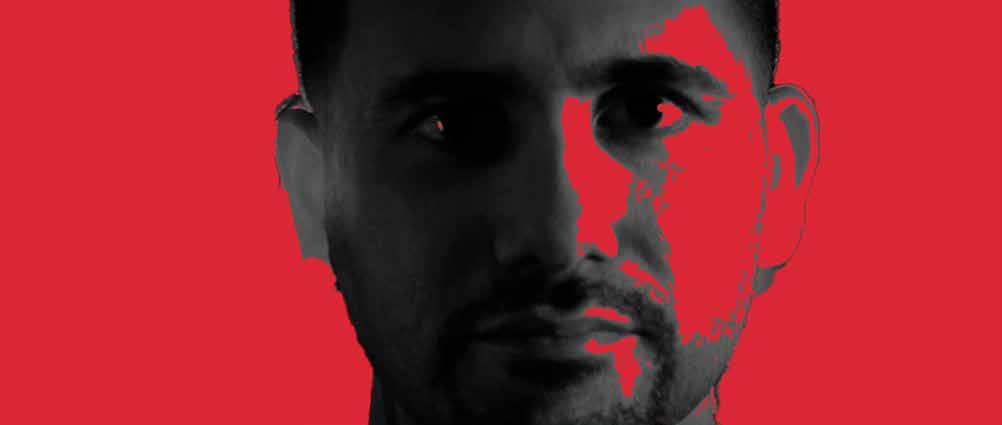
record a lot different approach where in this record feels very like a big country rock/pop ballad but very emotional. I saw this record, no lie, come together lyrically in 15 minutes and was based on a real situation the song writer was personally going through. Again, totally two opposite records when it comes to vibes and two records stylistically Rihanna had never did before. She sounds so amazing on these records and I wish she would go Rock/POP.”
BSM: Do you work alongside the producer of the song/track when doing a mix?
JV: “Always! Again, my job is to be an extension of the creativity and bring the music to life sonically. So, I very much enjoy having the Producer, Artist and all involved on the mix. I do usually wait until I believe the record is about 90% finished before bringing them in because this process for most can be very much like watching paint dry. Having this process for me I believe its most effective because we can nail the mix in one to two passes.”
BSM: Do you have any Ventures outside of music that you would like to tell us about?
JV: “I don’t at the moment but if any of you have any opportunities out there Holla at you boy! I’m open lol. In all seriousness though that’s one thing I’m consistently thinking about with my career and I’m calling it 2.0. What that opportunity is I don’t know, but I would very much like it to use all my professional experiences I’ve built throughout my career from recording, touring, audio post production and game audio experiences combined.”
BSM: What’s the big difference between analog and digital mixes?
JV: “I’ve been really impressed with digital mixing lately. The big difference between the two is minor in a lot of cases now
a days because they sound that great. With Analog mixing I do feel like I get a little more depth from the mix and has a smoother and punchier bottom end when it comes to the low end of a mix but again I think you would’ve had to some experiences with analog in order to tell those differences. In the end of the day most people don’t know the difference and the records being mixed digitally sound great!”
BSM: What studios are you currently working out of?
JV: “Any studio that will have me really. A lot of my time now a days is spent in the studio at the crib but Im willing to go wherever the project takes me even during a global Pandemic.”
BSM: Has the introduction of streaming changed the business model for the engineer? Can you explain?
JV: “It hasn’t changed for me in the way I make records but where I do feel like it has changed the business model a bit is that its quicker and easier to get your product out there so I believe some production values in making a great sonic recording have suffered and the art of engineering is getting lost a little.”
BSM: Any advice for up-and-coming engineers?
JV: “Hate to sound cliché, but you can’t give up! If it’s a feeling that your passionate about or feel like that’s what your meant to do don’t stop. Position yourself around likeminded people who have and share the same goals as you do. Go where the work is and don’t expect it to come to you in the beginning. After you’ve built up a resume for yourself than the work will come to you. As a creator you have to be honest with yourself not everything you create is going to be hot. If there is 1% doubt in your mind that you do better, then your only 99% done with the job. See it out and finish strong. You only get one chance to make a first impression."

I’VE BEEN REALLY IMPRESSED WITH DIGITAL MIXING LATELY. THE BIG
DIFFERENCE BETWEEN THE TWO IS MINOR IN A LOT OF CASES NOW A DAYS BECAUSE THEY SOUND THAT GREAT. WITH ANALOG MIXING I DO FEEL LIKE I GET A LITTLE MORE DEPTH FROM THE MIX AND HAS A SMOOTHER AND PUNCHIER BOTTOM END
WHEN IT COMES TO THE LOW END OF A MIX BUT AGAIN I THINK YOU WOULD’VE HAD TO SOME EXPERIENCES WITH ANALOG IN ORDER TO TELL THOSE DIFFERENCES.
JEFF VILLANUEVA
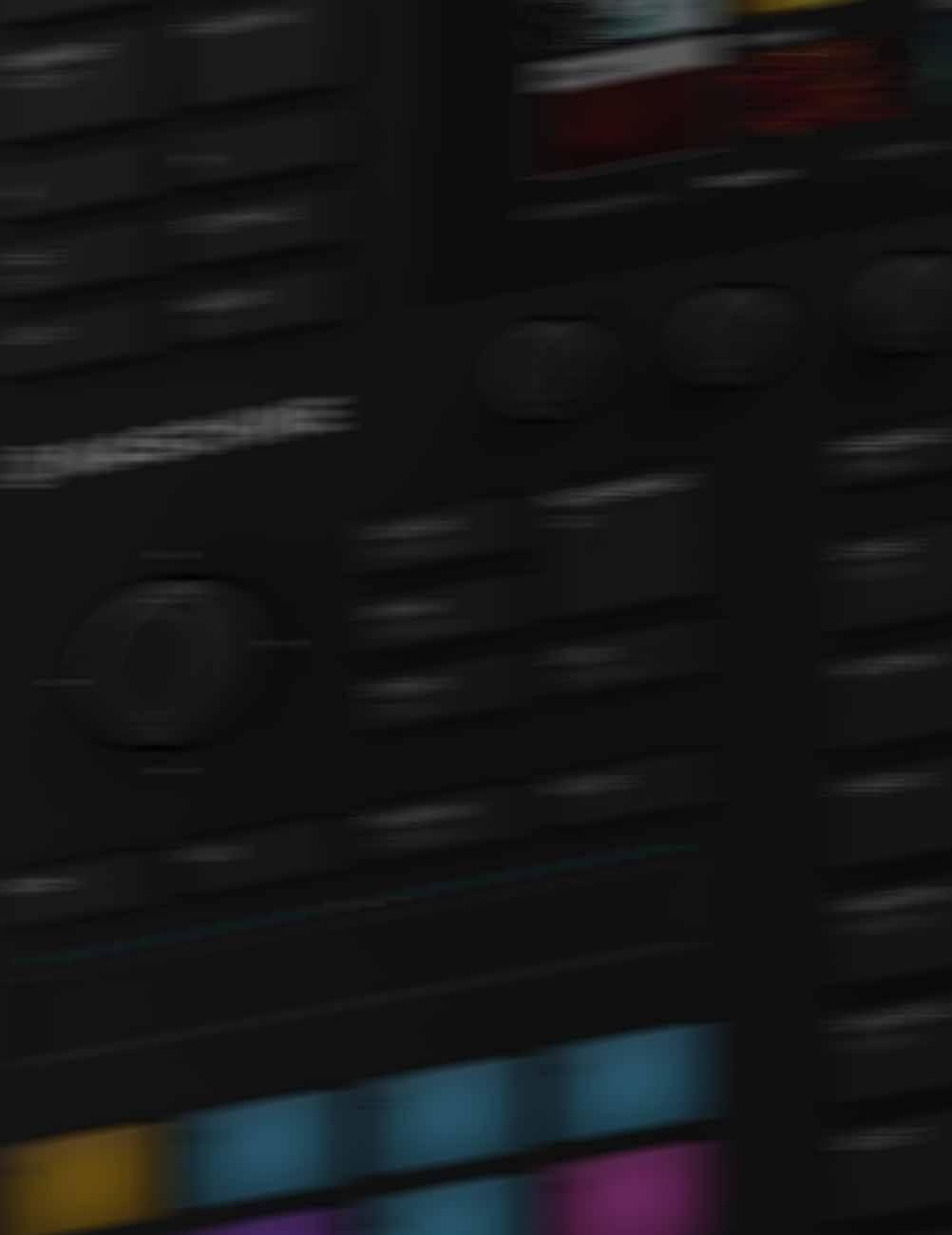
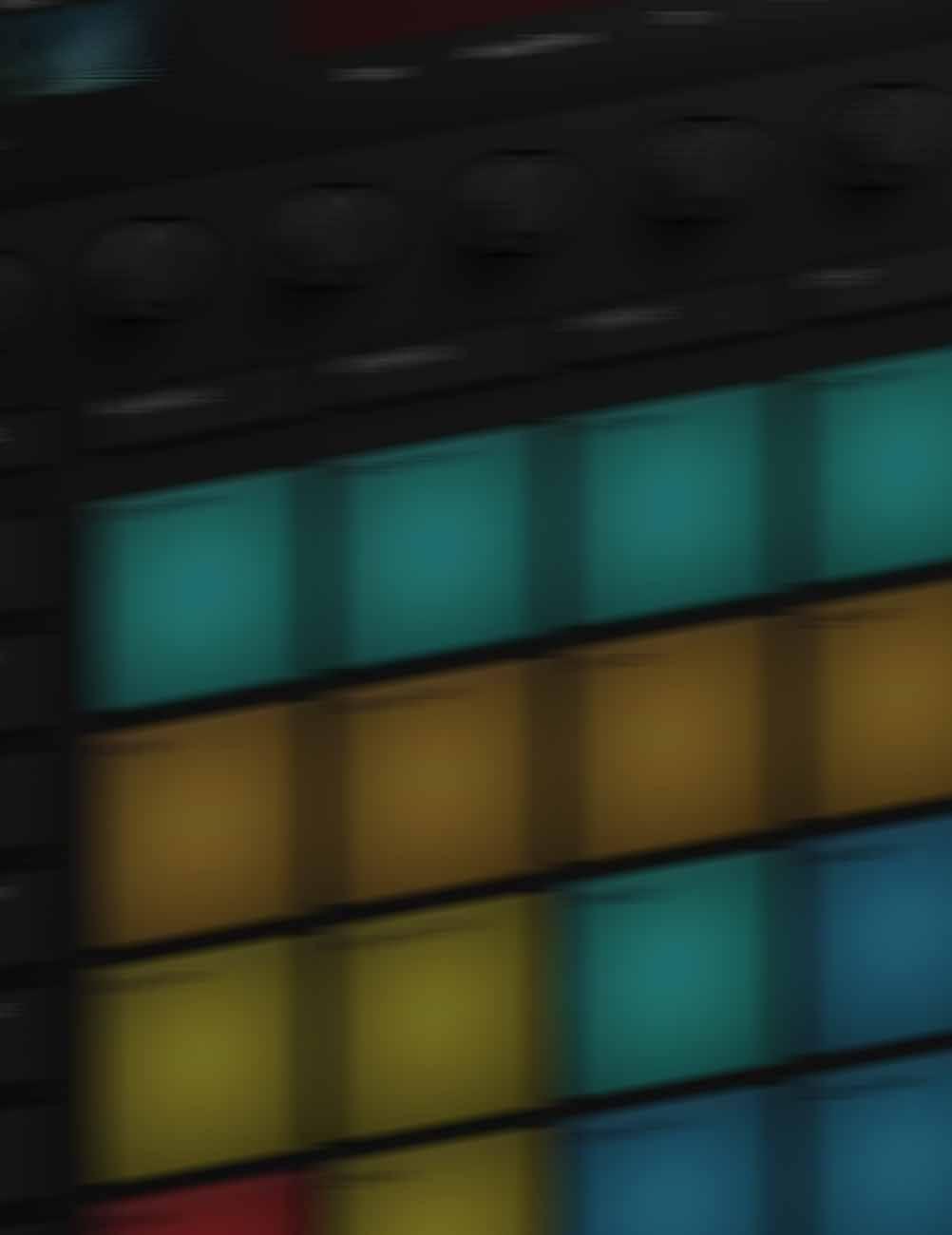
Drum machines have revolutionized the way we create and produce music, offering an endless array of possibilities and inspiring creativity. Whether you're a professional producer or an aspiring musician, the top drum machines mentioned above are sure to elevate your beat-making game. Remember, the key is to find a drum machine that suits your unique needs, preferences, and musical style. Within the fascinating world of drum machines, you have many choices in selecting what is best for you. We dug in and did some research exploring some of the top drum machines available for creating infectious beats and rhythm tracks to provide you with. Whether you're a beginner producer or an experienced musician looking to add some groovy beats to your compositions, we've got you covered. So, get drumming!
First up on our list is the Roland TR-8S Rhythm Performer, hailed as one of the most versatile and powerful drum machines on the market. Combining classic sounds from Roland's renowned TR drum machines with modern features, the TR-8S offers an extensive range of drums, samples, and sequencing capabilities. Its intuitive interface and customizable parameters make it a favorite among EDM producers.
Machine Models: 808, 606, 909, 707, 727.
128 User Drum Kits + 128 User Patterns.
11 Instruments with Multiple ACB Tones.
Preset Samples: 150 Tones or Greater.
SD Card for Sample Playback: 600 Seconds.
16 Steps per Measure with 8 Variations.
Updated Instrument and Master FX.
Motion Recording Function.
Side Chain, Scatter, and Auto Fill In.
USB Audio and MIDI.


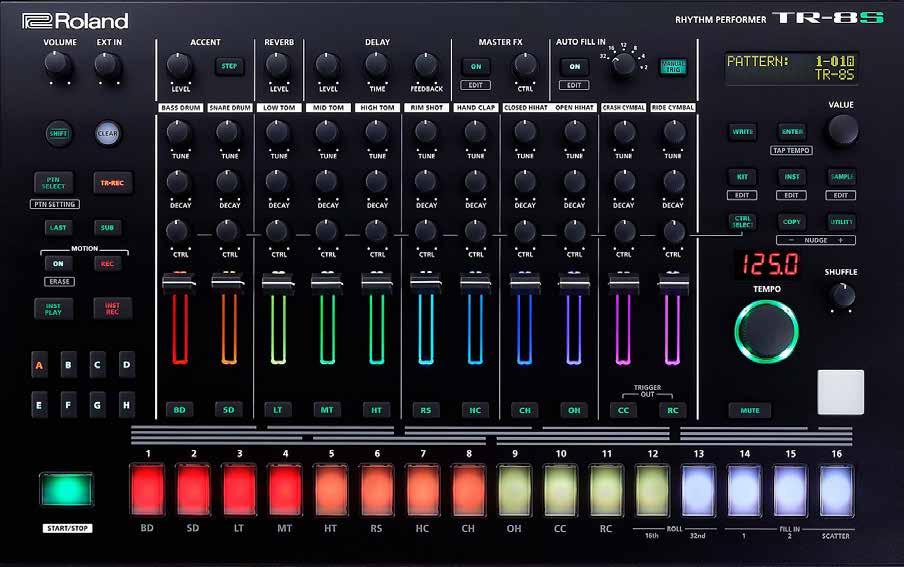
Next, we have the Elektron Digitakt, a compact yet robust drum machine designed to unleash your creativity. With its eight audio tracks, extensive sound manipulation options, and a built-in sequencer, the Digitakt offers endless possibilities for sound design. This machine is perfect for those who crave a hands-on approach to beat making and want to experiment with unique rhythms and textures.

8 Voice Polyphony (multitimbral).
Multiple FM Algorithms.
1 × Multimode Filter per Voice.
1 × Base-width Filter per Voice.
1 × Overdrive per Voice.
2 × Assignable LFOs per Voice.
4 Synth Tracks.
4 MIDI Tracks.
Arpeggiator per Synth Track.
Polyphonic Sequencing.

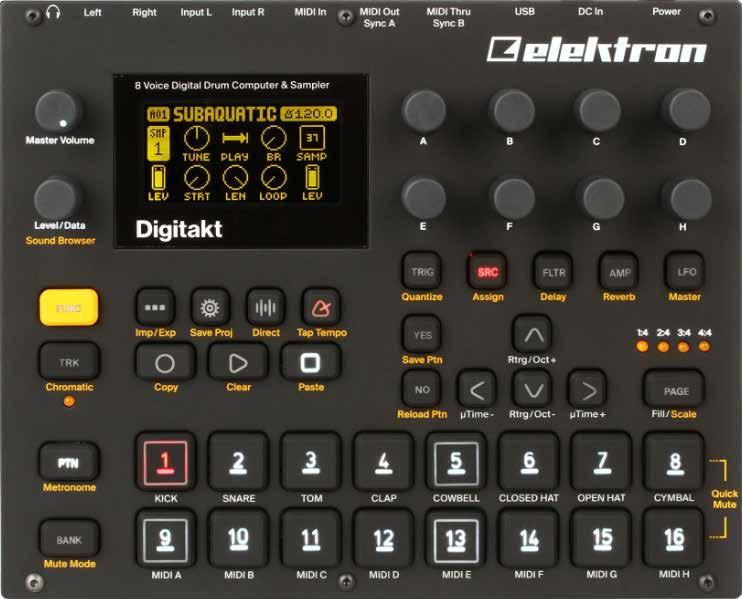
Stepping into the realm of hybrid drum machines, the Native Instruments Maschine MK3 seamlessly integrates hardware and software to provide an exceptional beat-making experience. With its responsive pads, intuitive workflow, and a vast library of sounds, the Maschine MK3 allows you to create intricate drum patterns and melodic sequences with ease. Furthermore, its integration with the powerful Maschine software makes it an excellent choice for both studio and live performances.
Integrated hardware/software system includes sampler, arranger, mixer, sound library, FX.
8 GB MASCHINE library with samples, oneshots, sliced loops, sampled instruments, drums synths, presets, patterns, drum kits, and songs.
Includes 45 GB KOMPLETE 14 SELECT library

25 pro-quality studio and creative FX including filter, EQ, delay, reverb and compressor.
2 high-resolution RGB color displays for precision sample slicing, sound tweaking, note editing, mixing, browsing.
16 large, ultra-sensitive pads make two-handed drumming easy.

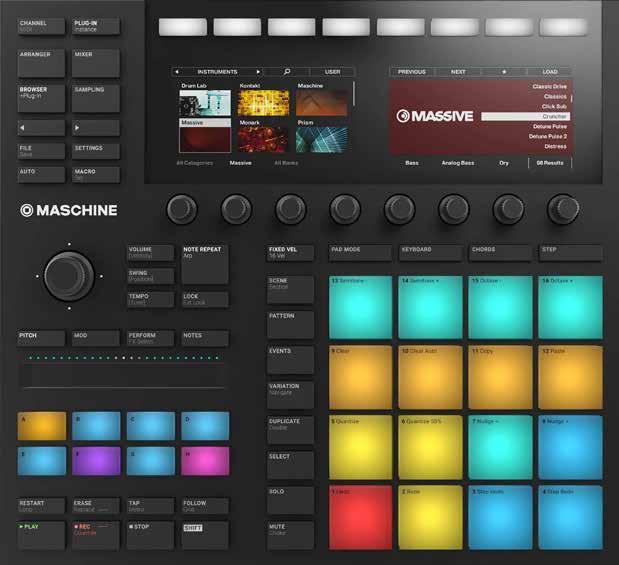
For those seeking a more affordable option without sacrificing quality, the Korg Volca Beats is a fantastic choice. This pocket-sized drum machine captures the essence of analog drum sounds, packed with vintage-style charm. With its built-in sequencer, PCM samples, and ability to synchronize with other Volca devices, the Volca Beats is a portable powerhouse suitable for both beginners and experienced producers.
Multi-touch Trigger Pad/Step Key.
TYPE: Analog Synthesis (Kick, Snare, Hi Tom, Lo Tom, Closed Hi Hat/Open Hi Hat), PCM synthesis (Clap, Claves, Agogo, Crash).
KICK: Click, Pitch, Decay, Part Level.

SNARE: Snappy, Pitch, Decay, Part Level.
TOM: Hi Pitch, Lo Pitch, Decay, Part Level
HI HAT: Closed Decay, Open Decay, Grain, Part Level.
PC: MPCM Speed, Part Level.

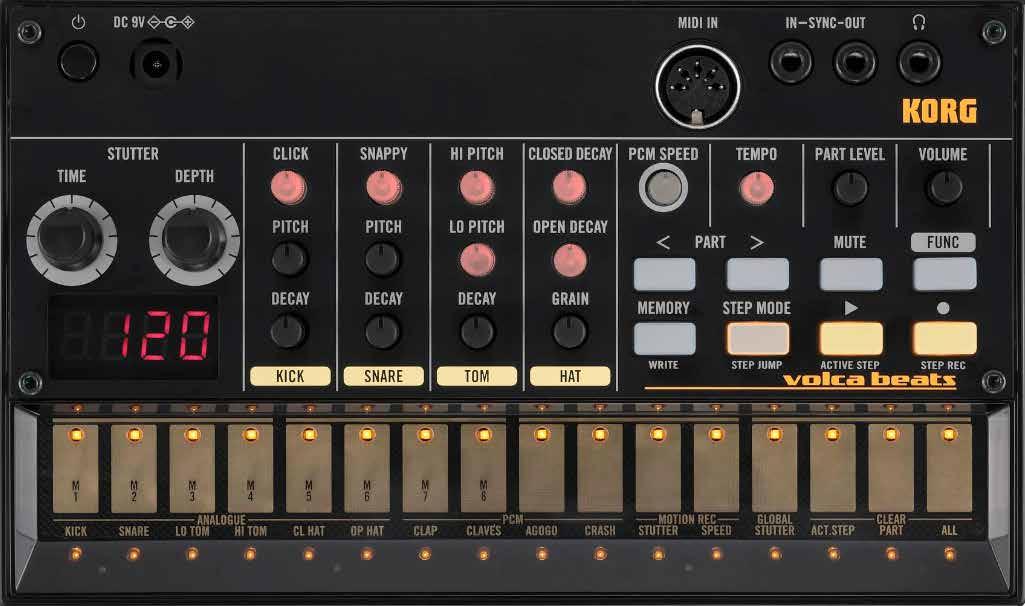
Another highly regarded drum machine is the Akai MPC Live II. This standalone production unit combines the classic feel of Akai's iconic MPC series with modern features and portability. With its touchscreen interface, robust sampling capabilities, and integrated effects, the MPC Live II empowers producers to create professional-quality beats and tracks on the go. Its seamless integration with popular DAWs and MIDI connectivity adds to its versatility, making it a go-to choice for many music creators.
PADS: (16) velocity and pressure-sensitive pads, RGB-backlit; (8) banks accessible via Pad Bank buttons.
KNOBS: (4) 360° touch-sensitive Q-Link Knobs; (4) Q-Link Knob columns accessible via Q-Link button; (1) 360° encoder for display navigation and selection via push.
BUTTONS: (27) dedicated function buttons; red, amber, or green backlit.
DISPLAY: 6.9” / 176 mm (diagonal)
5.9” x 3.7” / 150 x 93 mm (width x height) Full-color LED-backlit display with touch interface.
CPU: Quad-core ARM® processor
RAM: 2 GB


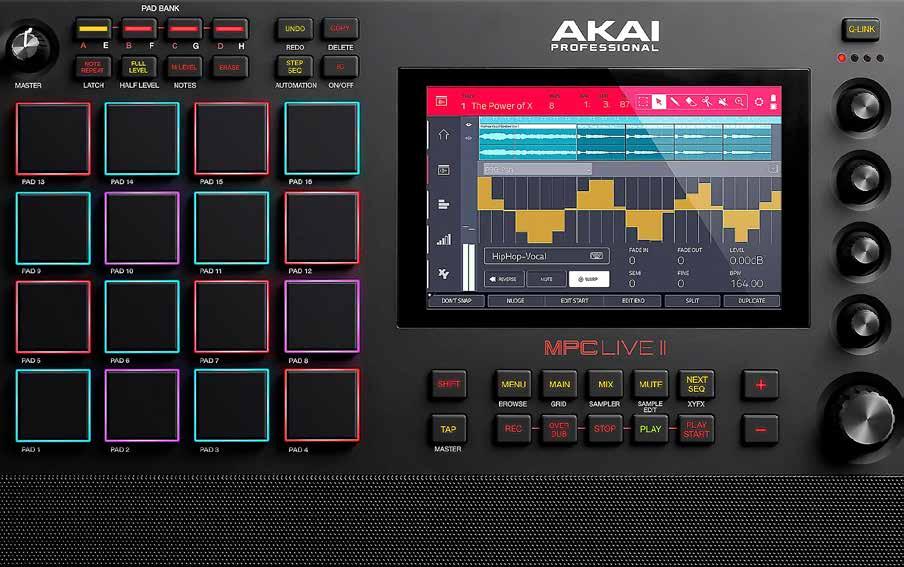
For those seeking a vintage and iconic drum machine, the E-MU SP-1200 is a legend in its own right. Originally released in the late 1980s, the SP-1200 is known for its distinctive sound and gritty sampling capabilities. Despite its age, the SP-1200 has remained a favorite among hip-hop producers and beatmakers, offering a distinct character and warm analog sound. While it may lack the modern features of newer models, its timeless appeal and unique sonic qualities make it a prized possession for many music creators.
New 3.5" disk drive and SD card floppy emulator integrated into the original SP-1200 software by Dave Rossum.
Manual filter cutoff frequency control sliders for the SSM 2044 analog filters for channels 1 and 2 added to the rear panel.

New metal chassis and panel overlay. The top shell restored and painted “SP Grey.”
New power supply with locking connector (and cool operation).
New LCD display with adjustable brightness and a selectable red, blue, or green color LED backlight.

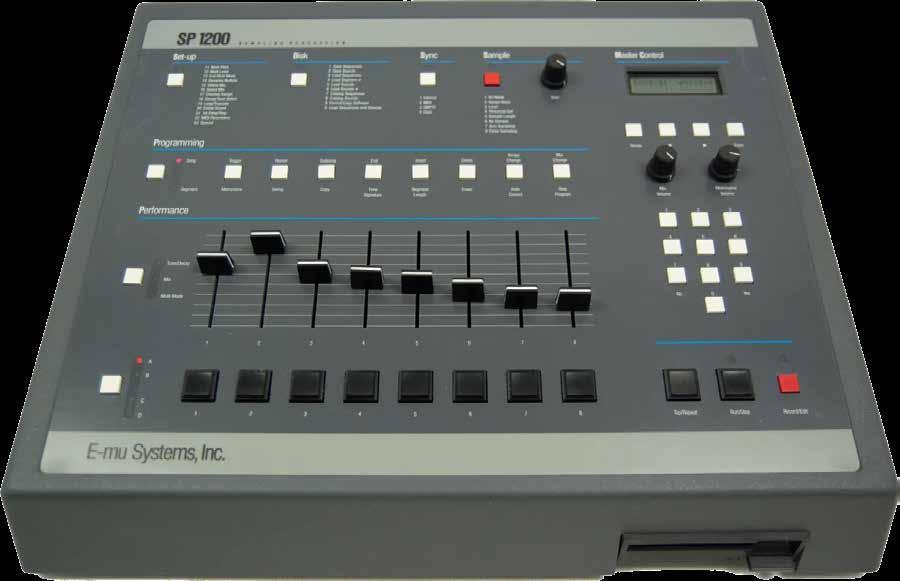
Closing out our list, the Arturia DrumBrute is a true analog drum machine that offers immense sonic versatility and flexibility. With its impressive array of 17 analog drum sounds, comprehensive sequencing capabilities, and multiple output options, the DrumBrute caters to the needs of the most discerning drum enthusiasts. Its intuitive interface and hands-on control make it a joy to use, allowing you to quickly create dynamic beats and rhythms.
17 Analog Drum Sounds.
64 Patterns Up to 64 Steps Each.
1/4" Mix Outputs.
12 Individual 1/8" Drum Outputs.

Headphone jacks.
1/8" Clock I/O, MIDI I/O.
Song Mode with Pattern Chaining. Swing and Randomized Pattern Effects.

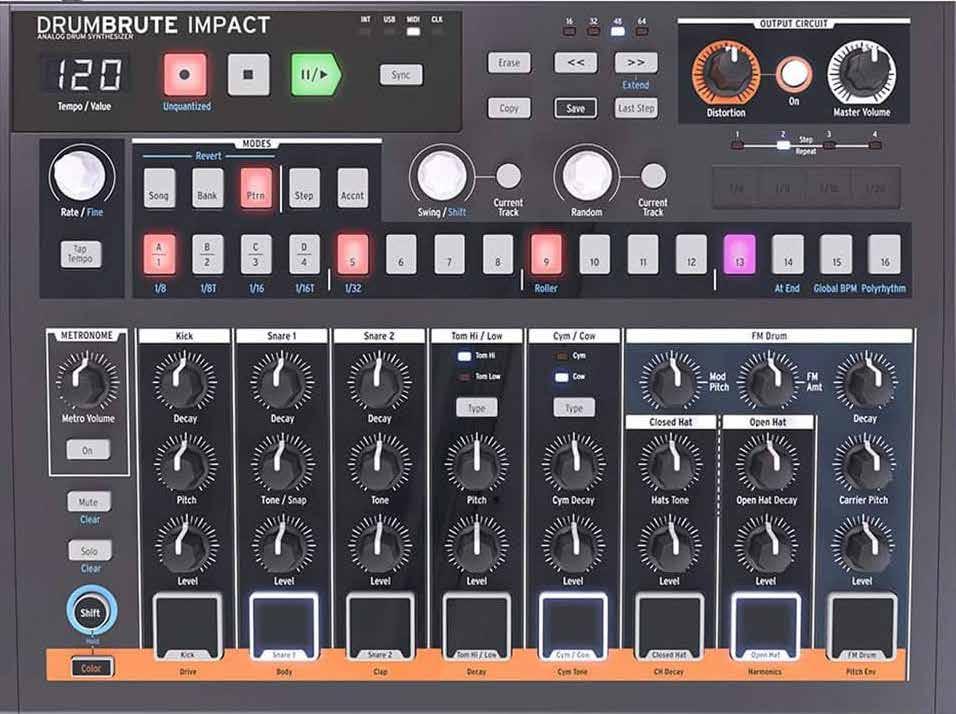
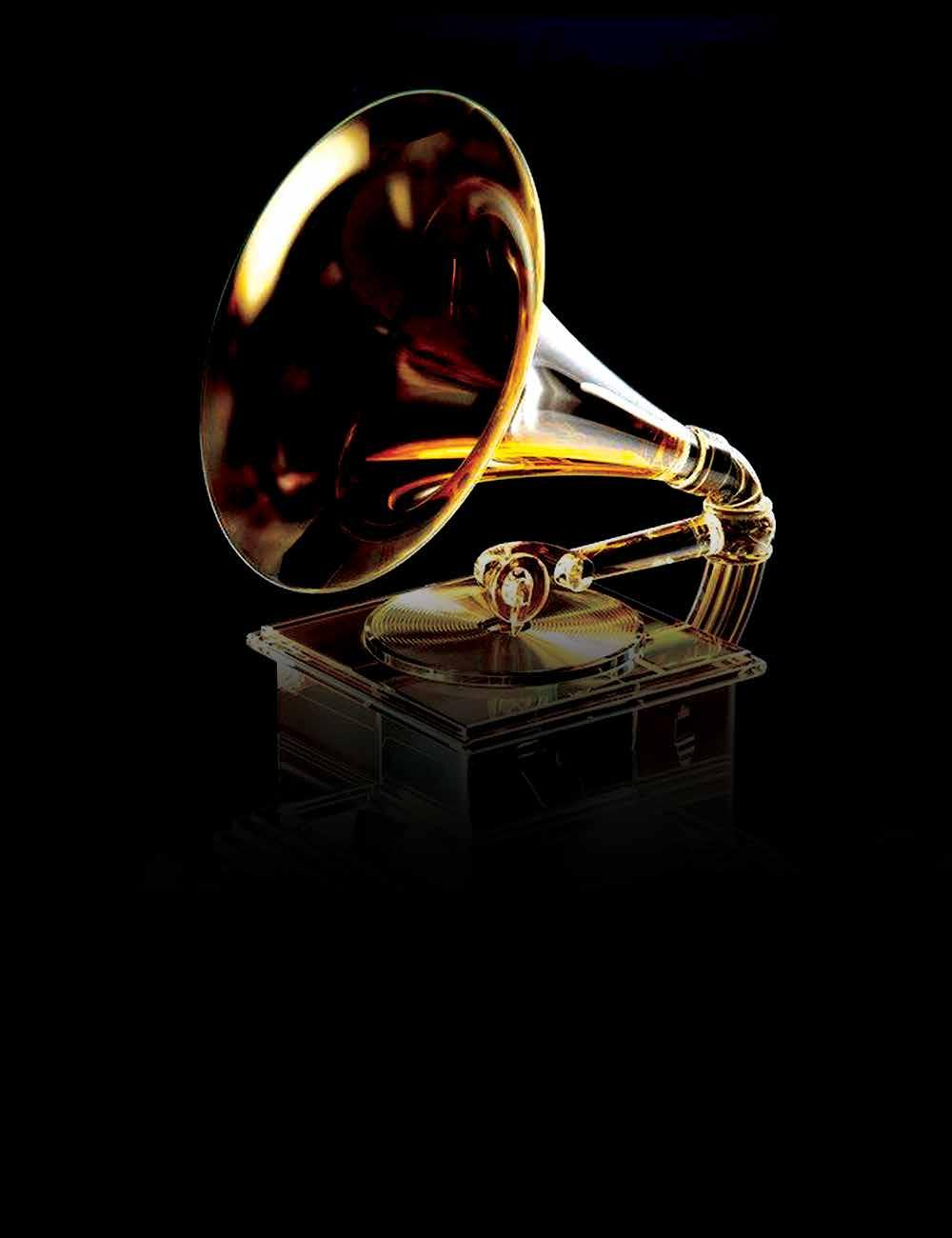
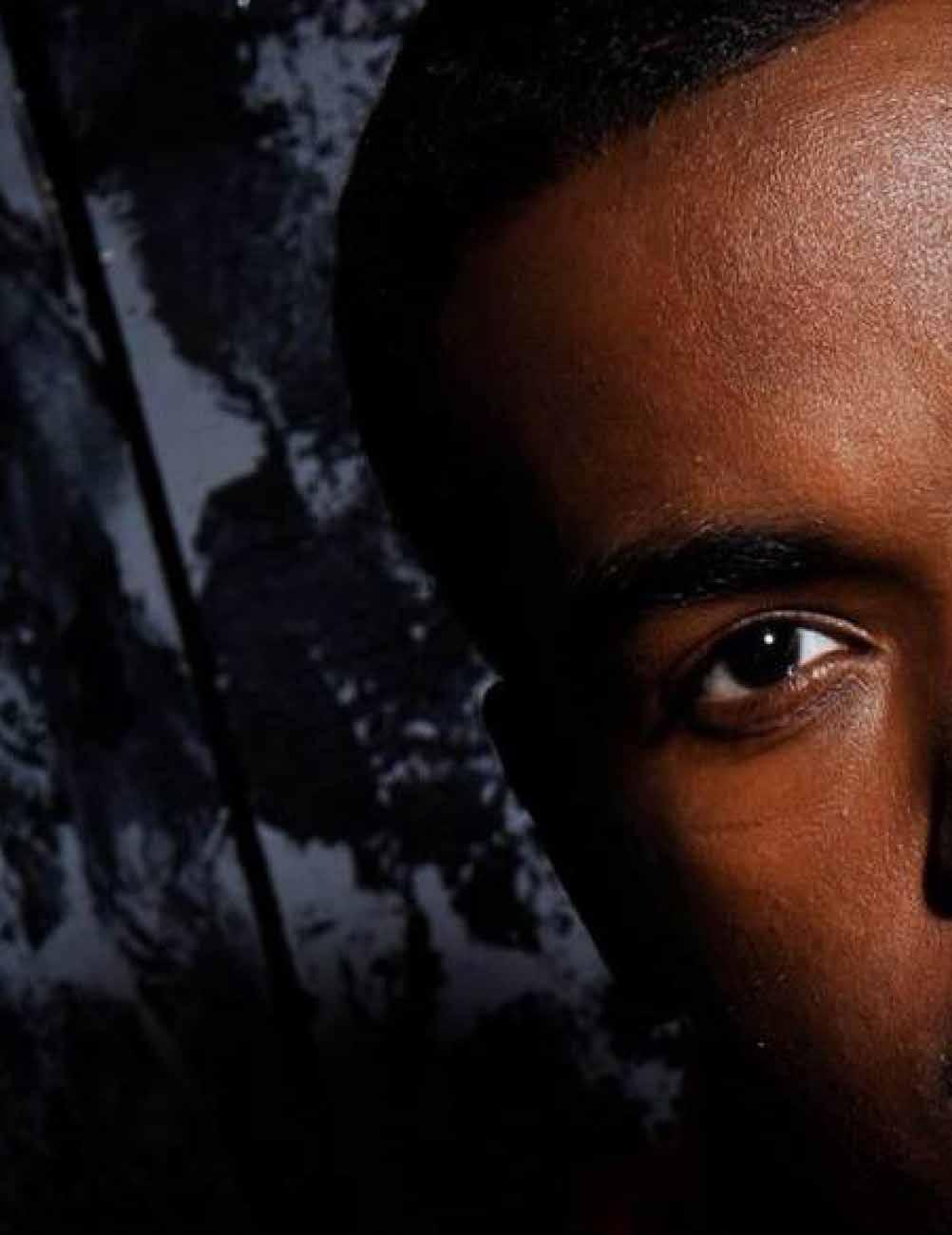
Grammy award-winning producer Rodney Jerkins, widely known as Darkchild, has left an indelible mark on the music industry.
His journey from a young prodigy to a prominent figure in the production landscape is chronicled through his contributions to iconic releases by artists such as Michael Jackson, Beyoncé, Black Eyed Peas, and Maroon 5.
With a career boasting over 170 million record sales globally, Rodney's dynamic skill set spans diverse musical genres, rooted in classical piano, gospel music, and MPC experimentation.
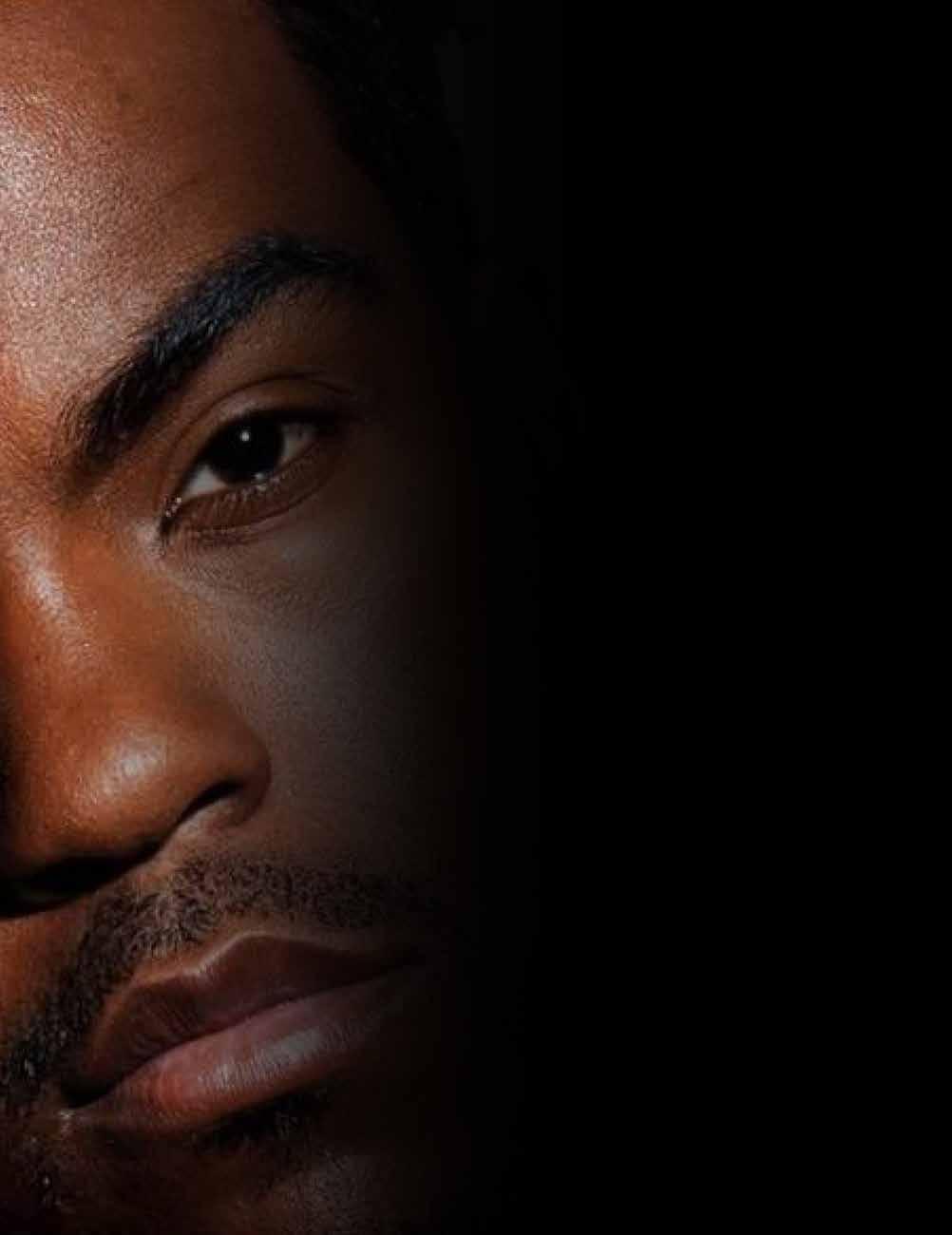
Jerkins' rapid ascent to R&B production mastery is evident in a catalog of charttopping hits, demonstrating his ability to create memorable and addictive singles that resonate with the musical zeitgeist. At the core of his studio prowess is the versatile V Collection X by Arturia, reflecting Rodney's ambition and intuition in crafting a sound that not only supports lead vocals but also propels tracks to fandom heights.
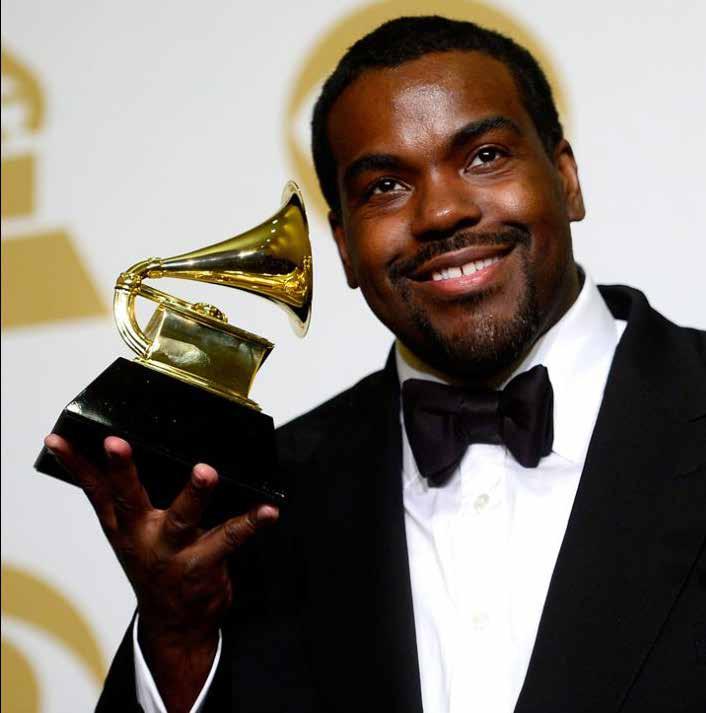
Born in 1977, Rodney has witnessed the evolution of music production, transitioning from analog studio workflows to today's streamlined DAWs and hybridized digitalanalog production suites.
Embracing this evolution, he emphasizes an "even playing field for pro and beginners," acknowledging the transformative impact of technology on the industry.
Rodney's reliance on Arturia's V Collection is unmistakable, as he attests to abandoning his previous go-to plugins once he discovered the comprehensive suite.
Encompassing keys, chords, melodies, and basses, the V Collection has become Rodney's primary choice alongside his mixing, mastering, and recording gear. The recently introduced Augmented WOODWINDS from V Collection X, featuring morphing effects and
advanced arpeggiation options, showcases the suite's versatility.
In Rodney's own words, the V Collection allows him to transform organic sounds into otherworldly experiences, highlighting its creative potential. The suite, featuring instruments like Mini V, Wurli V, and CP-70 V, resonates with authenticity, capturing the depth and richness of original analog sounds.
Rodney applauds the V Collection for its accessibility, breadth, and quality, deeming it a go-to instrument suite that seamlessly bridges the sounds of the past with the music-makers of tomorrow.
His playful style and unwavering dedication to his craft, evident in the studio, underscore how the V Collection continues to play a pivotal role in shaping his prolific sound and influential approach as a producer.
